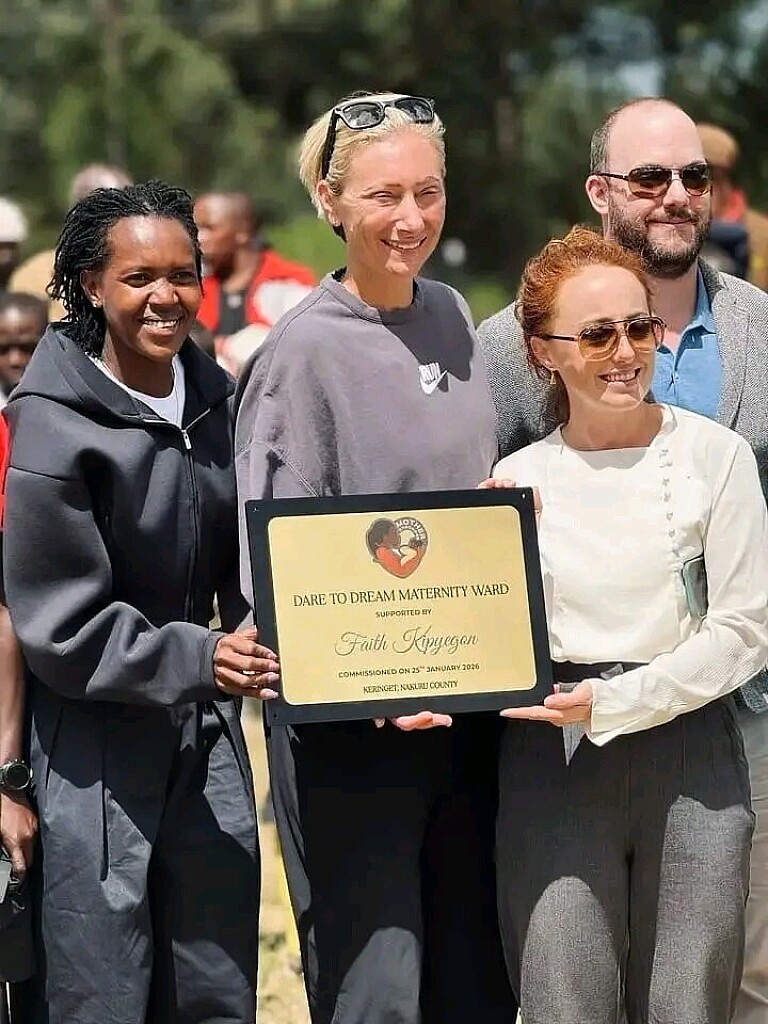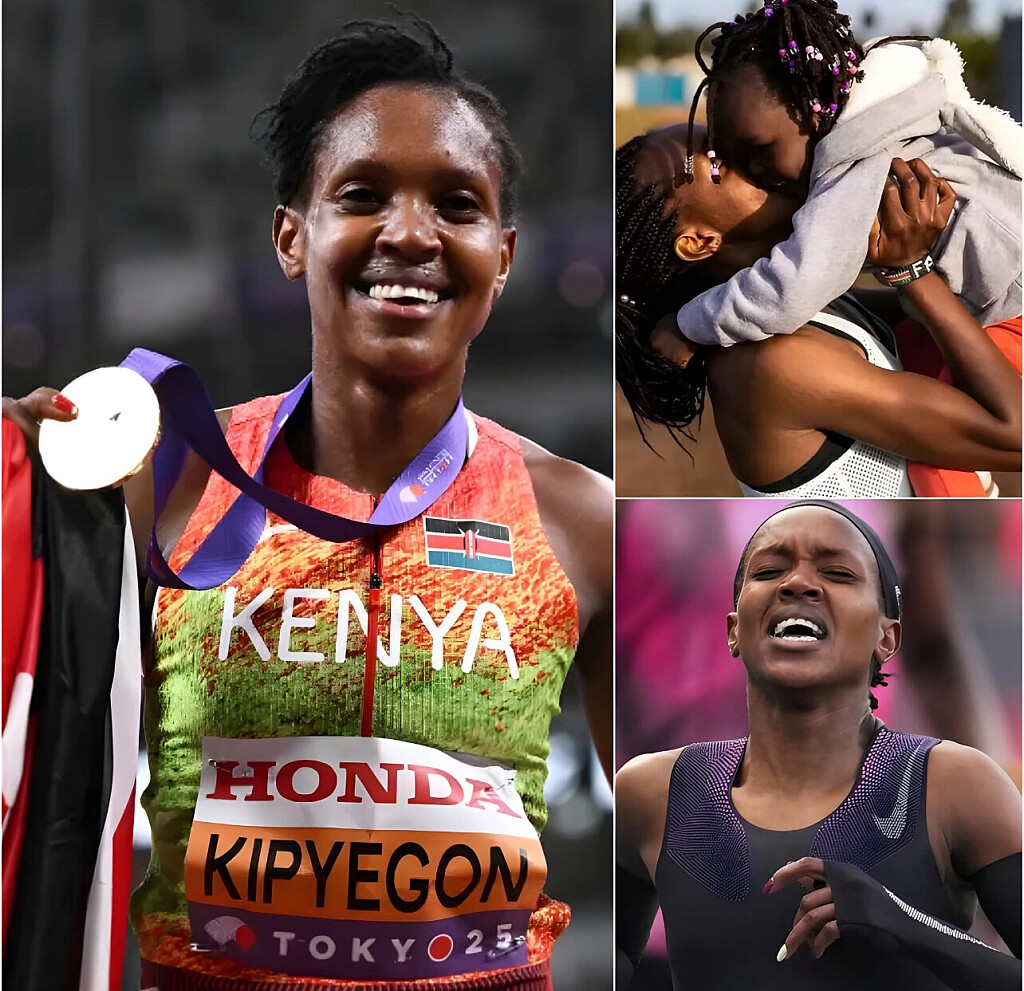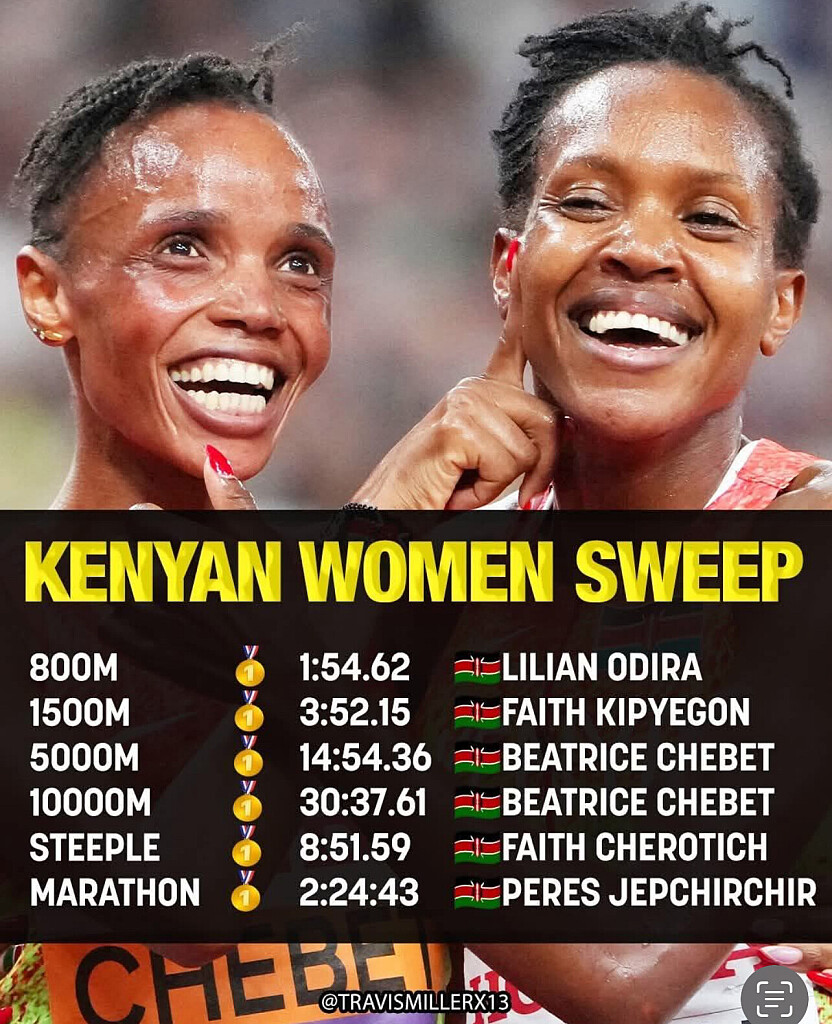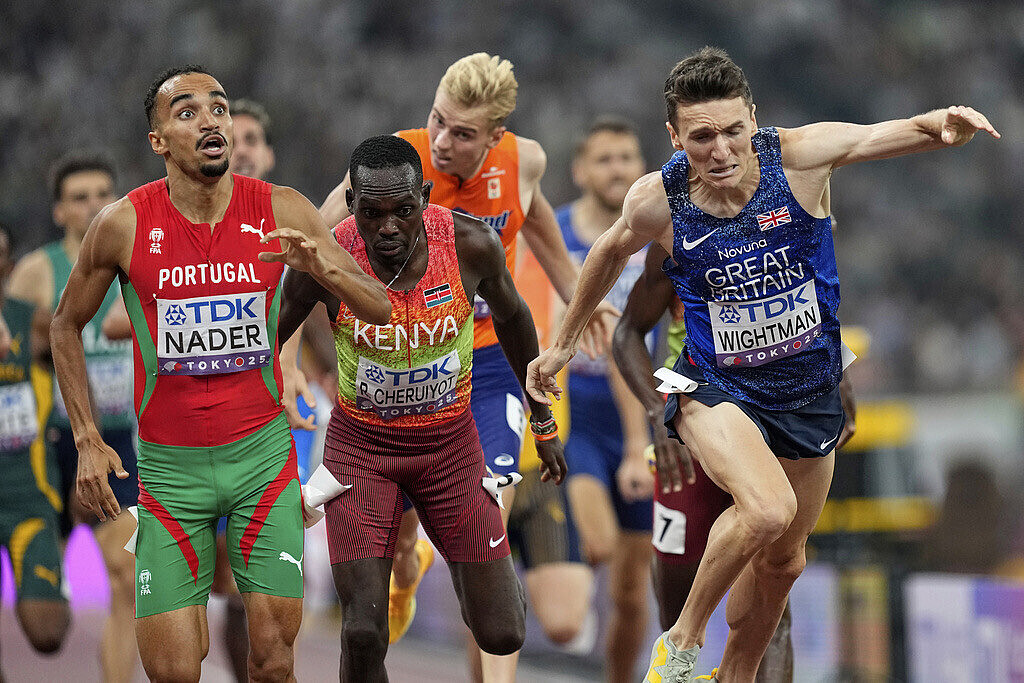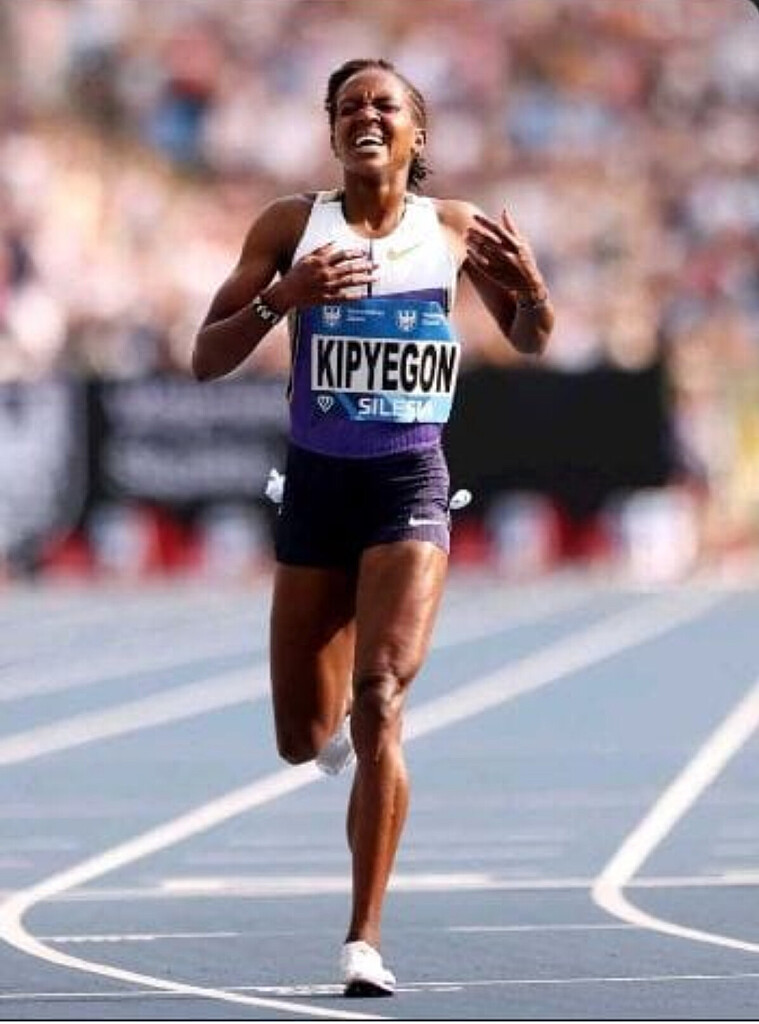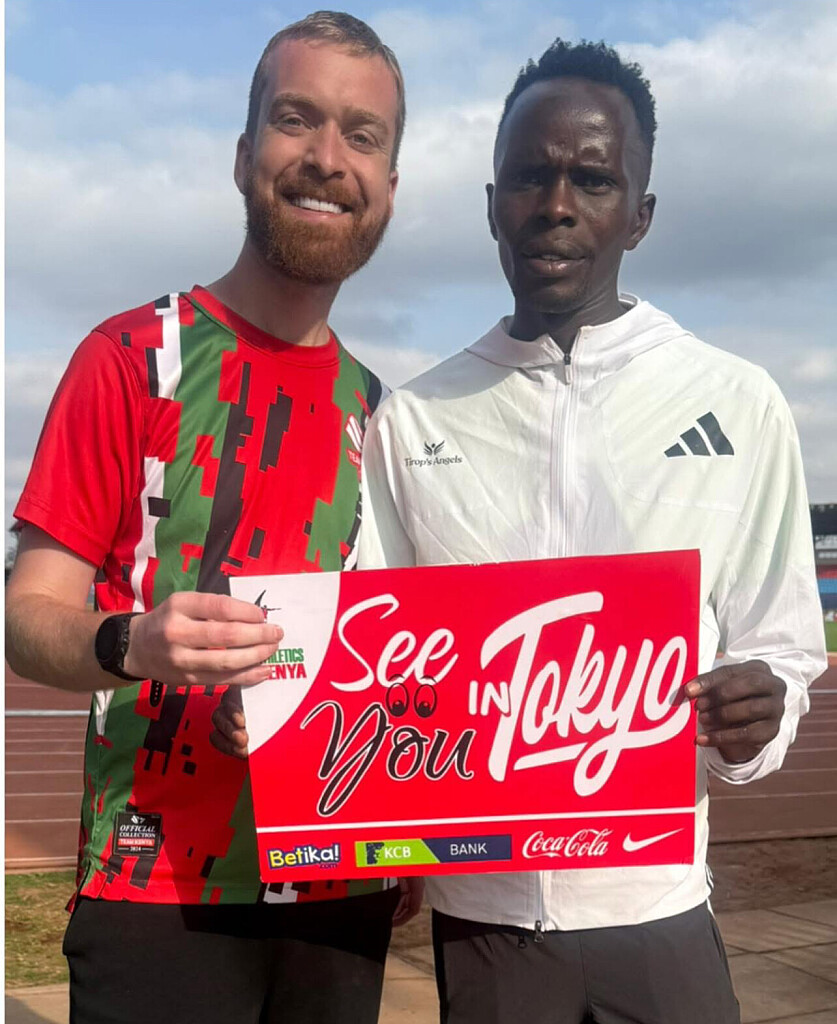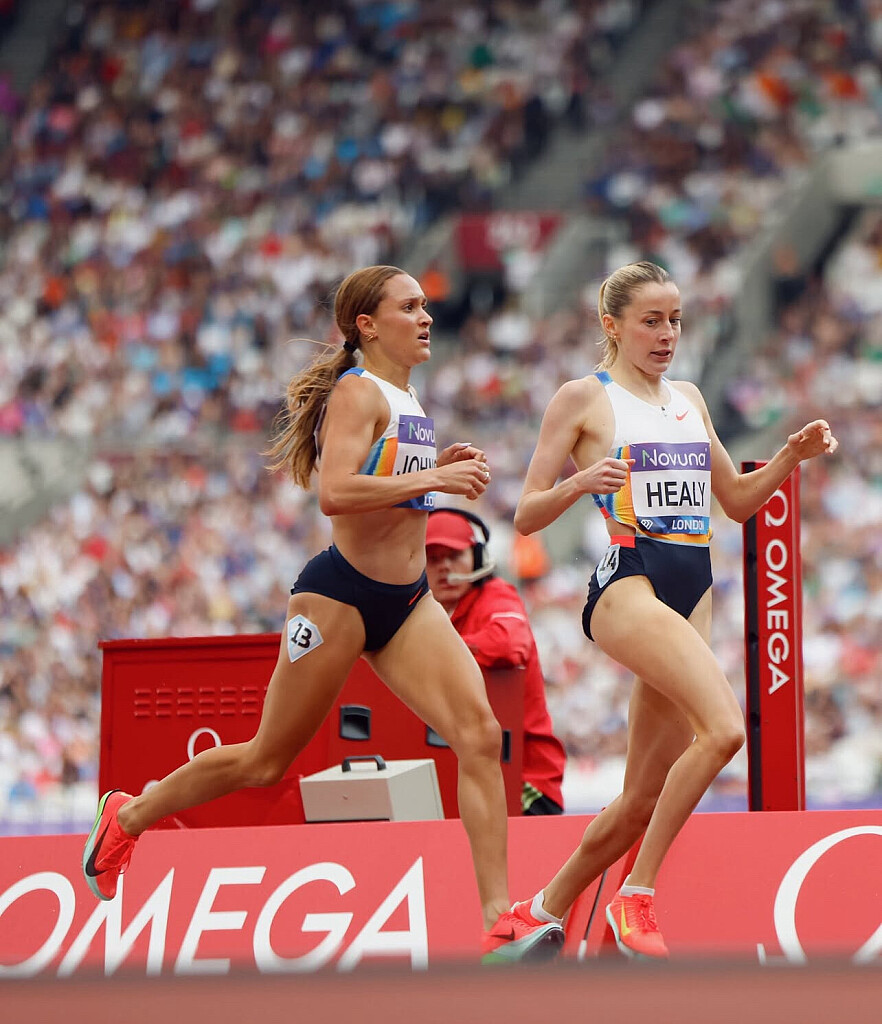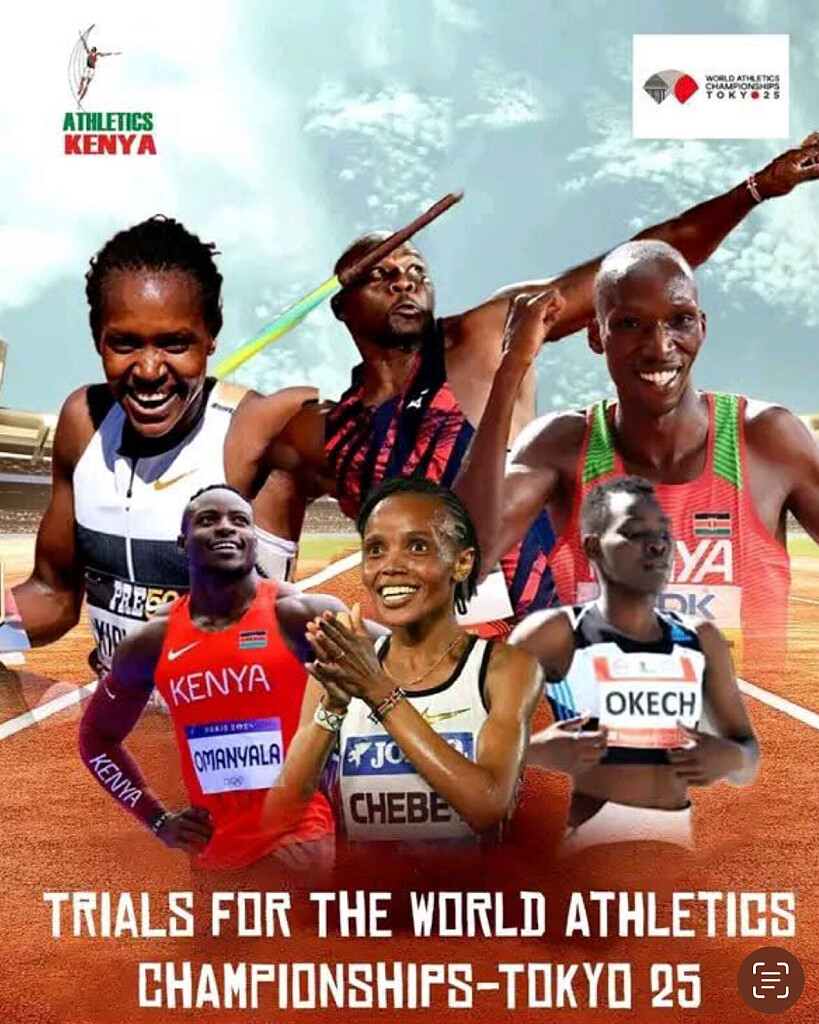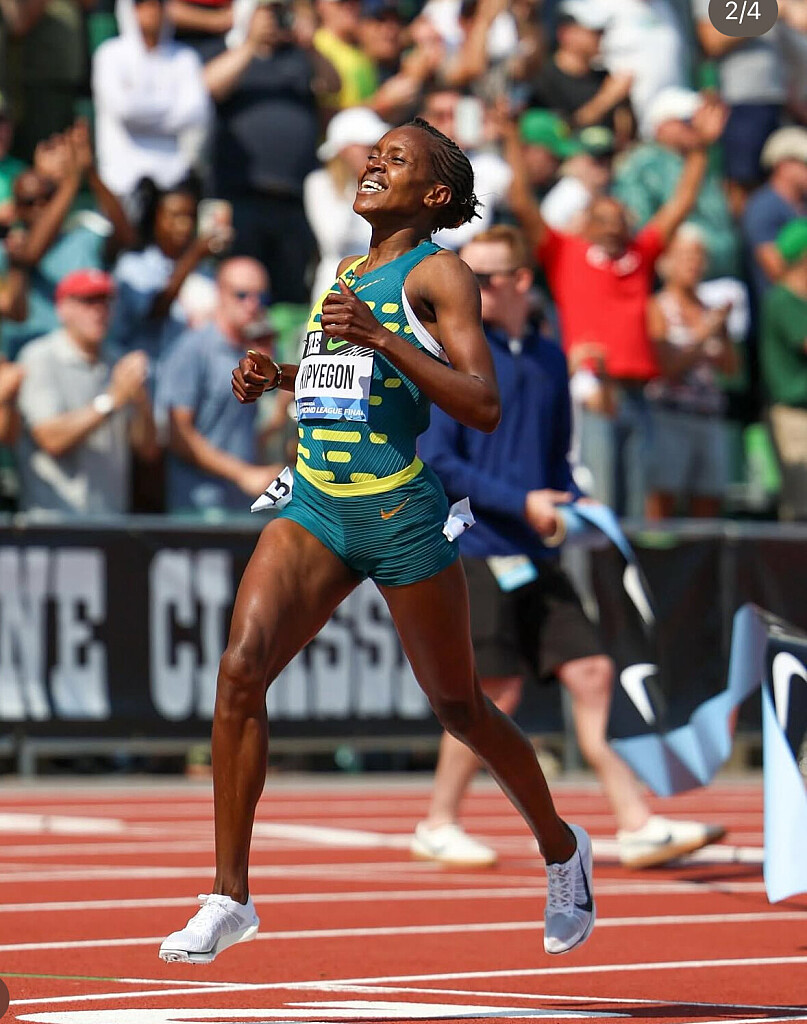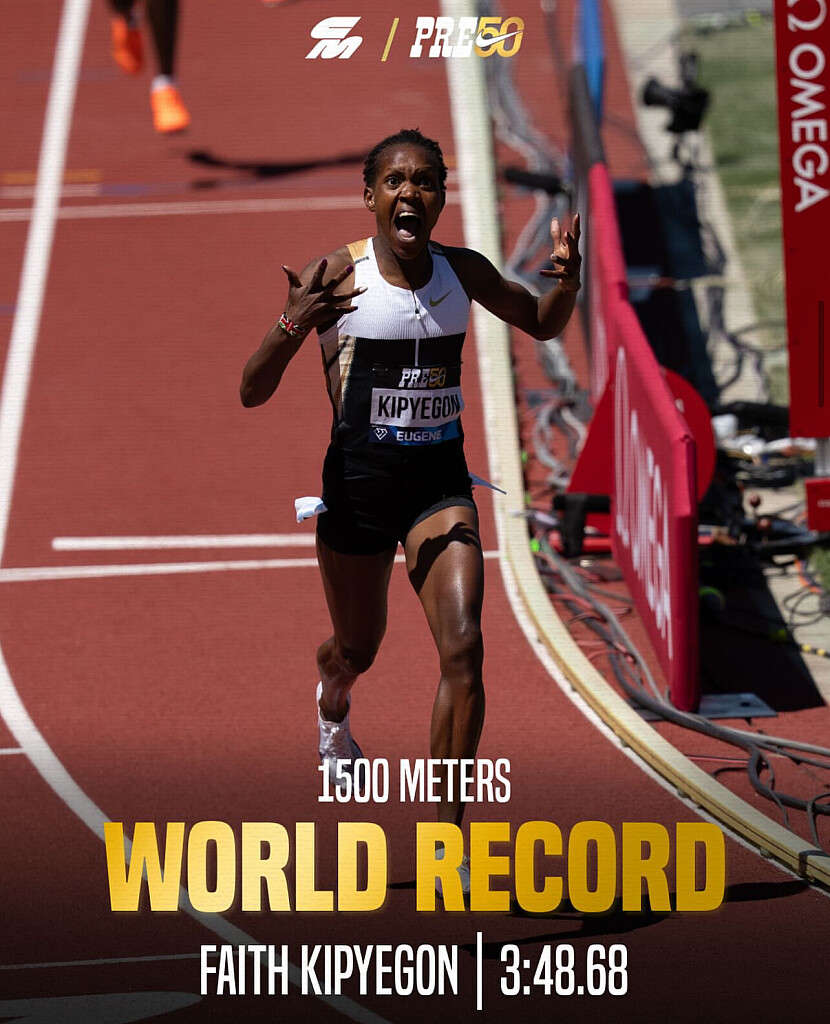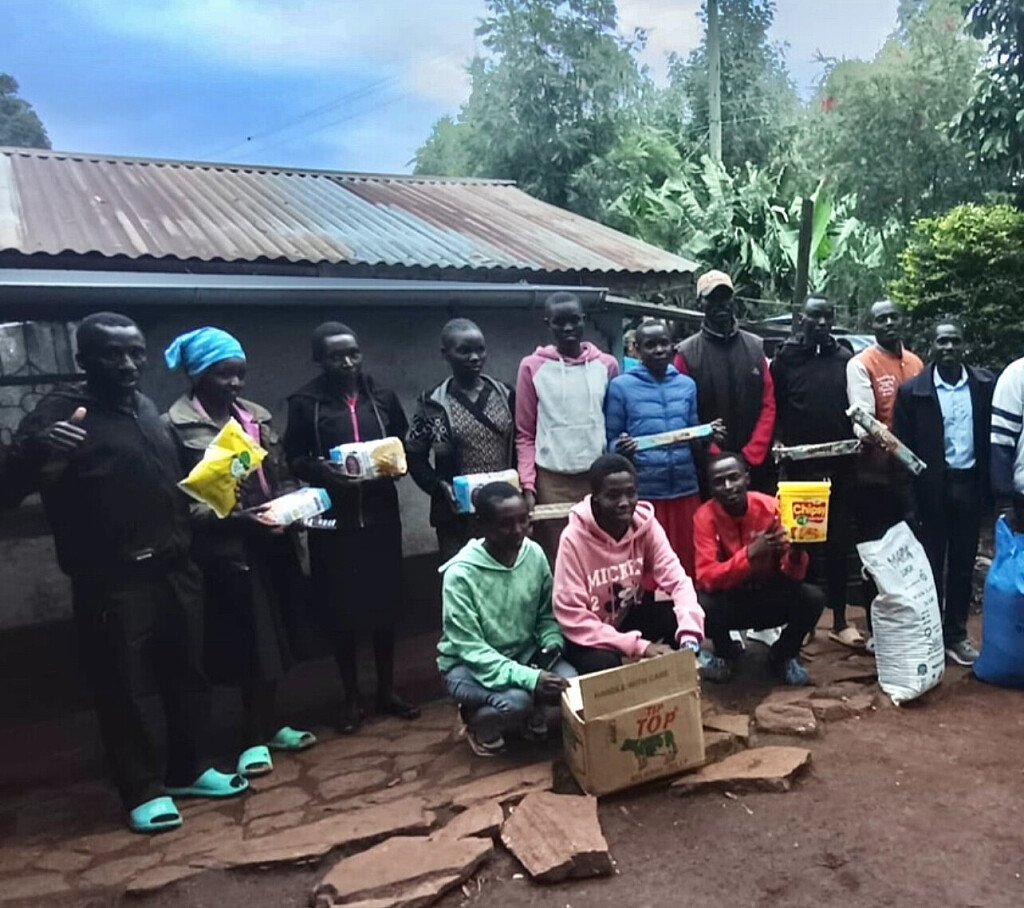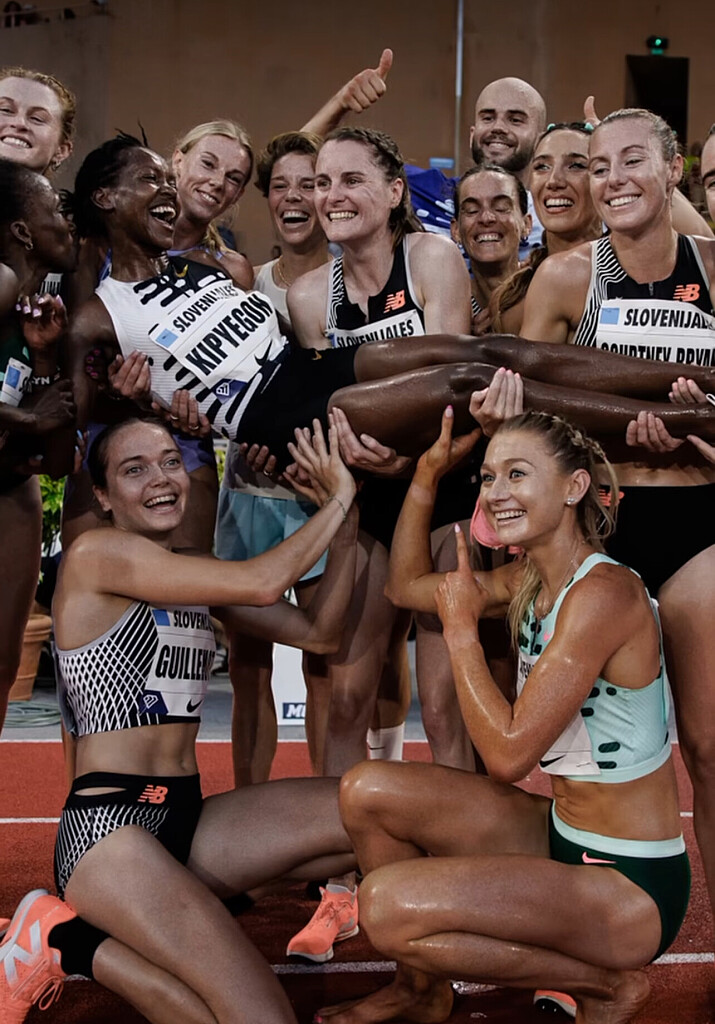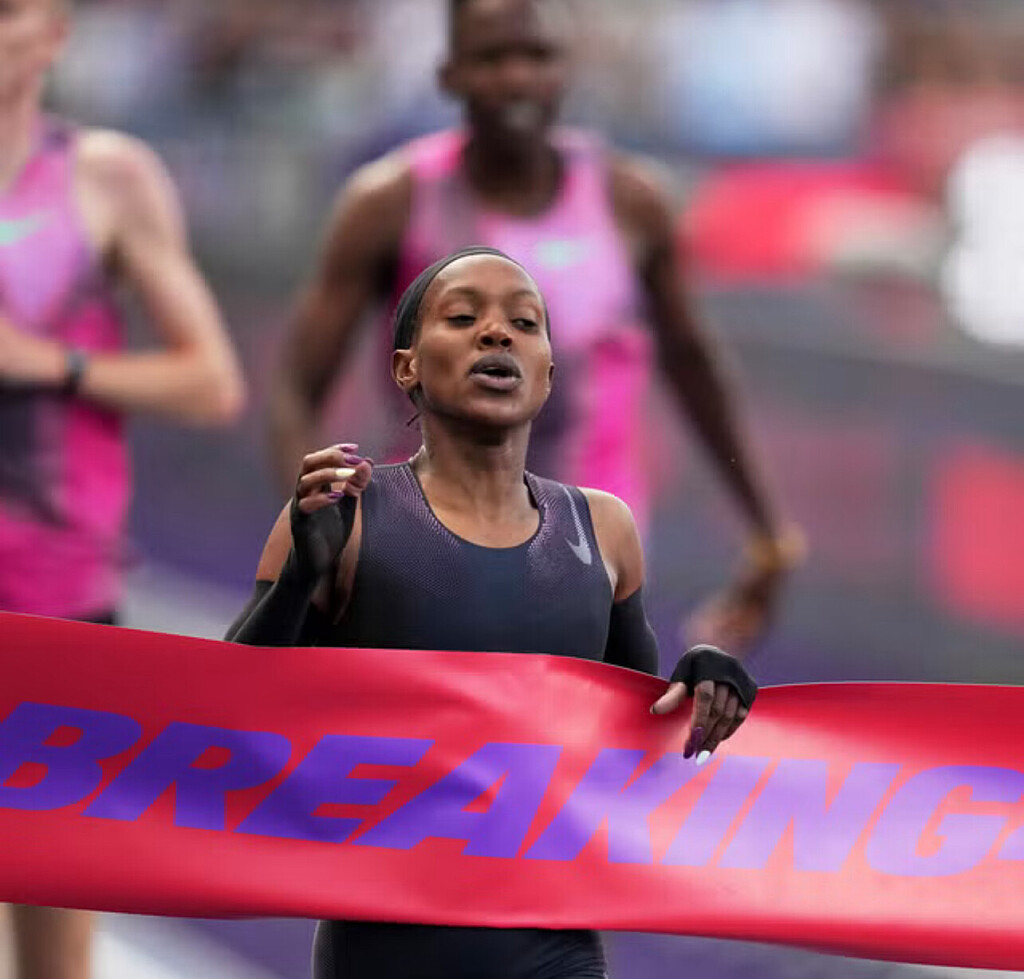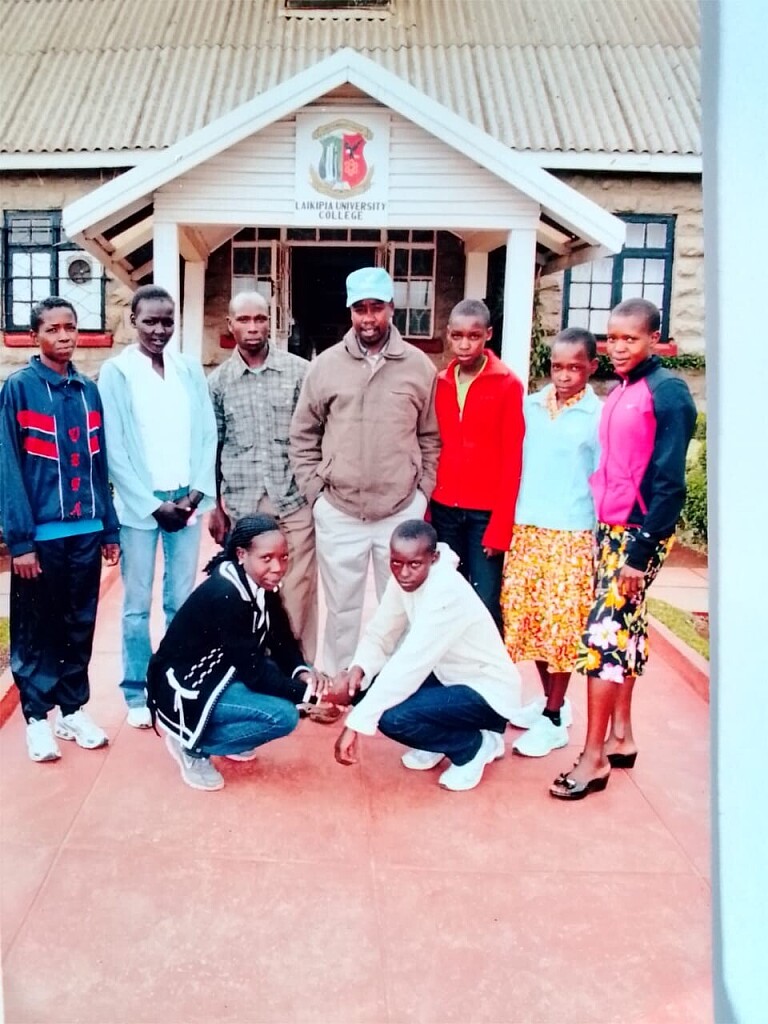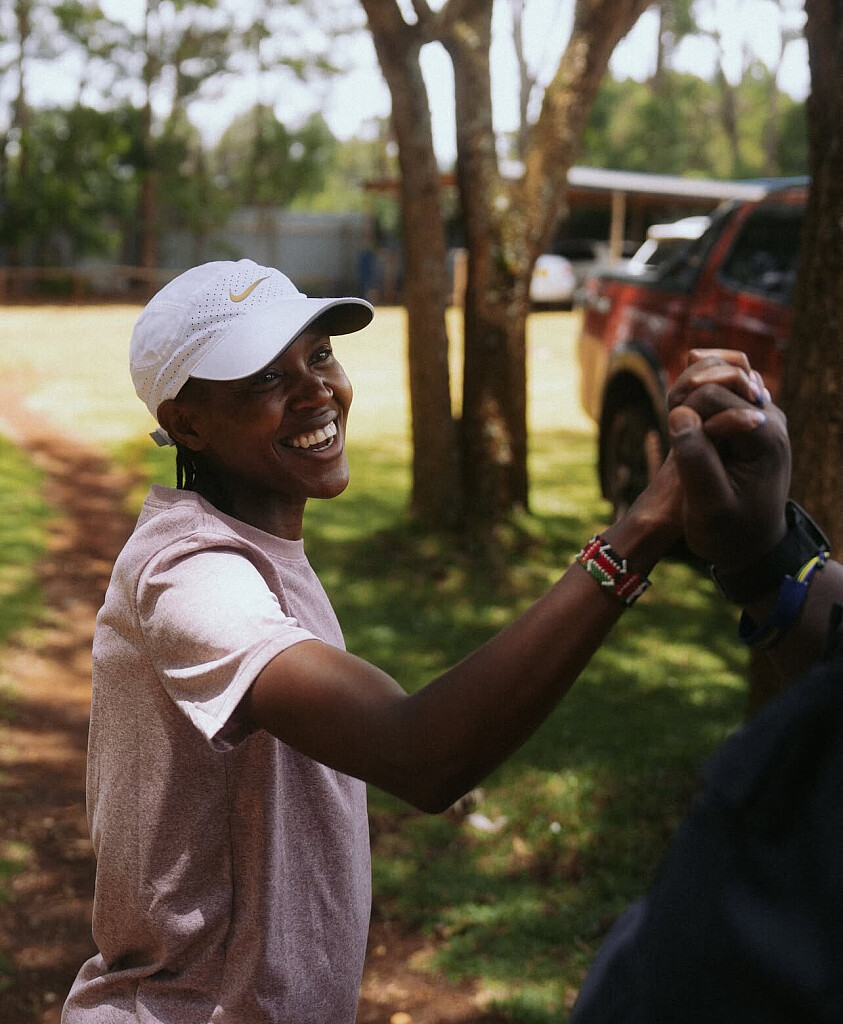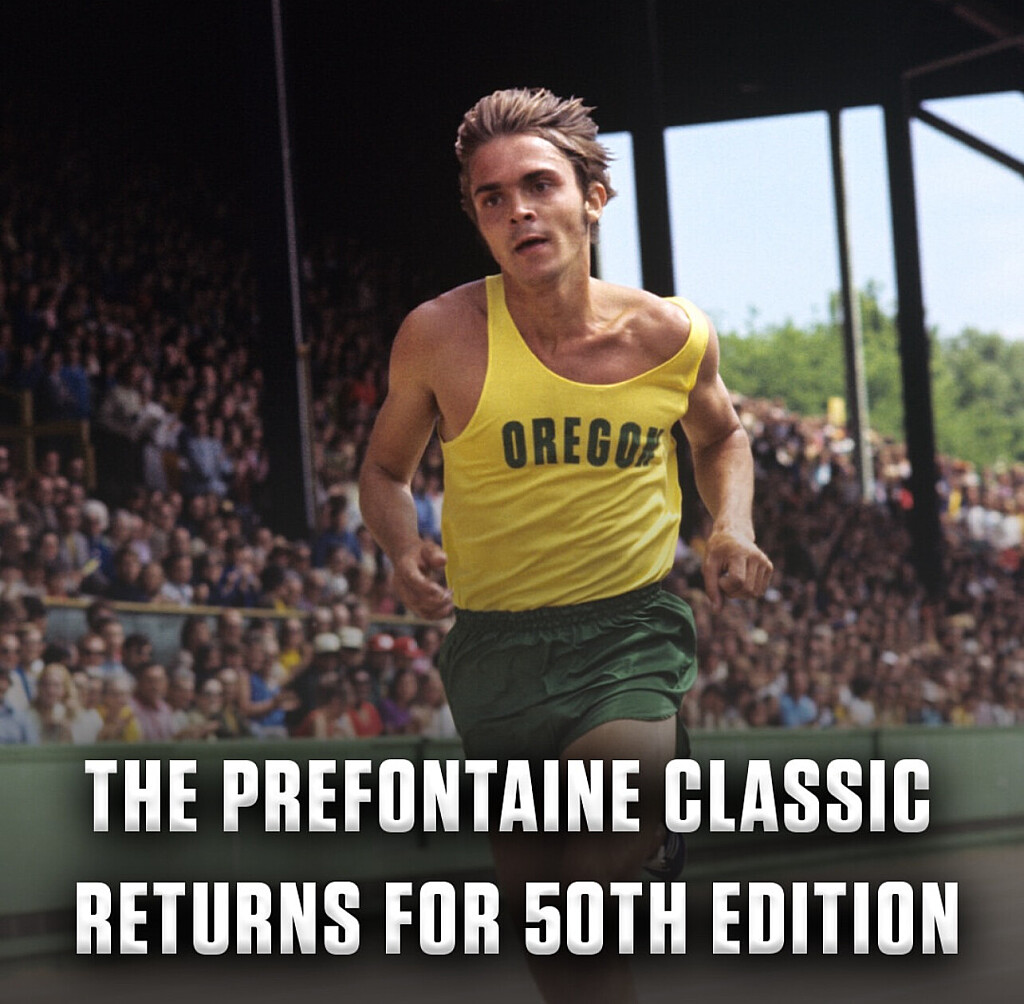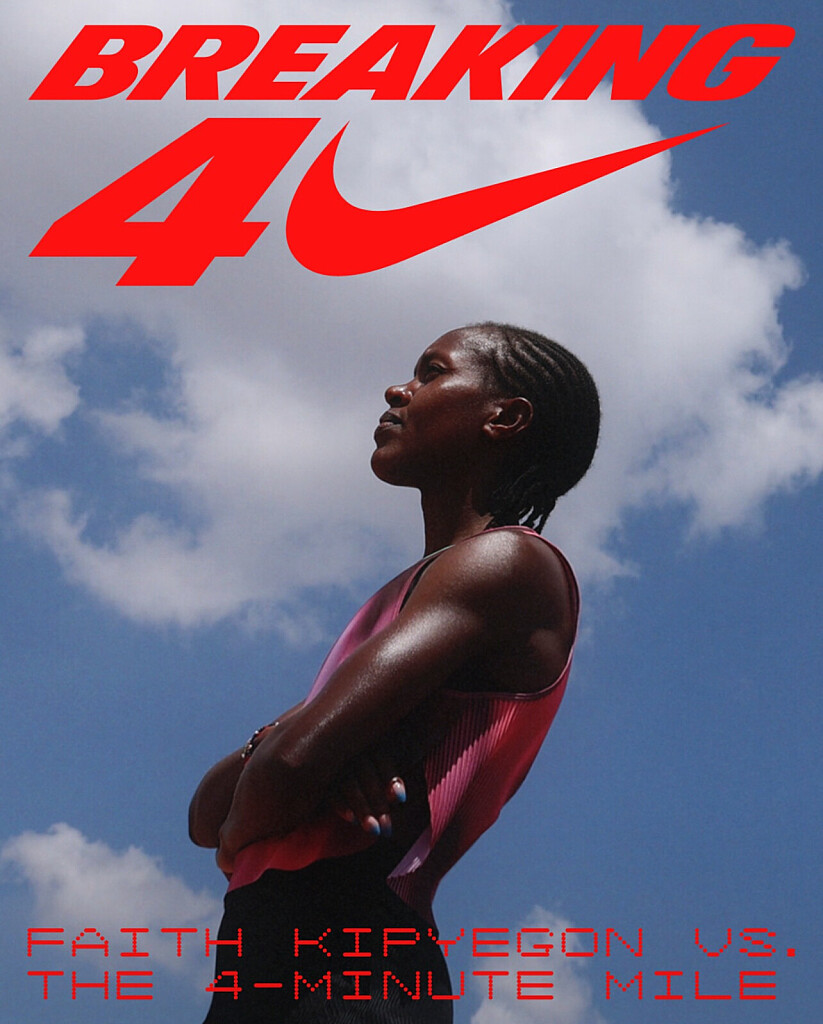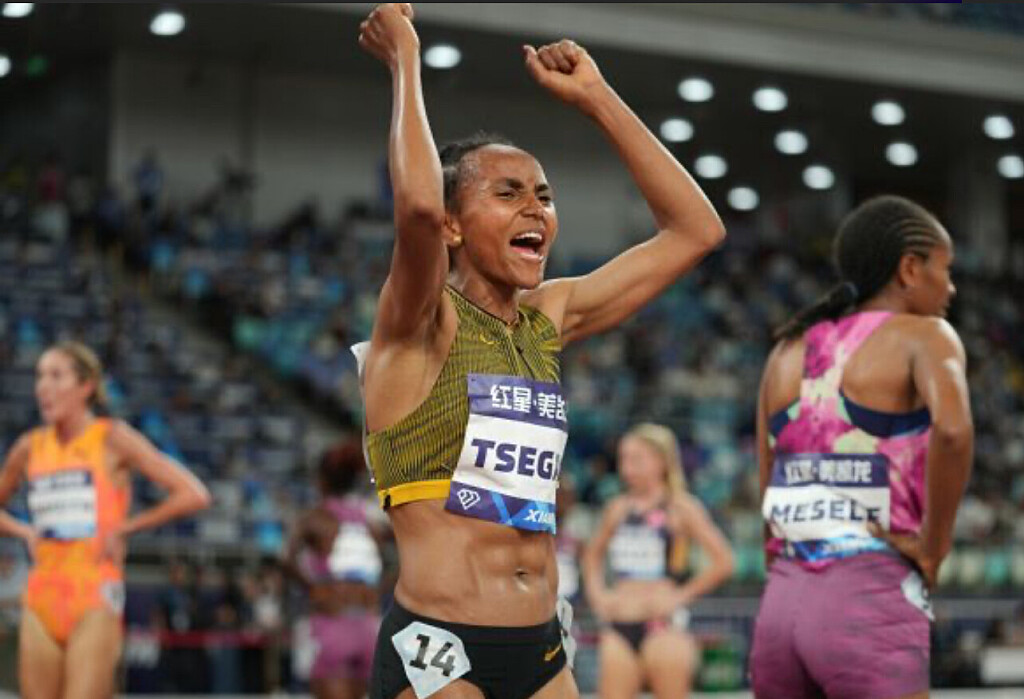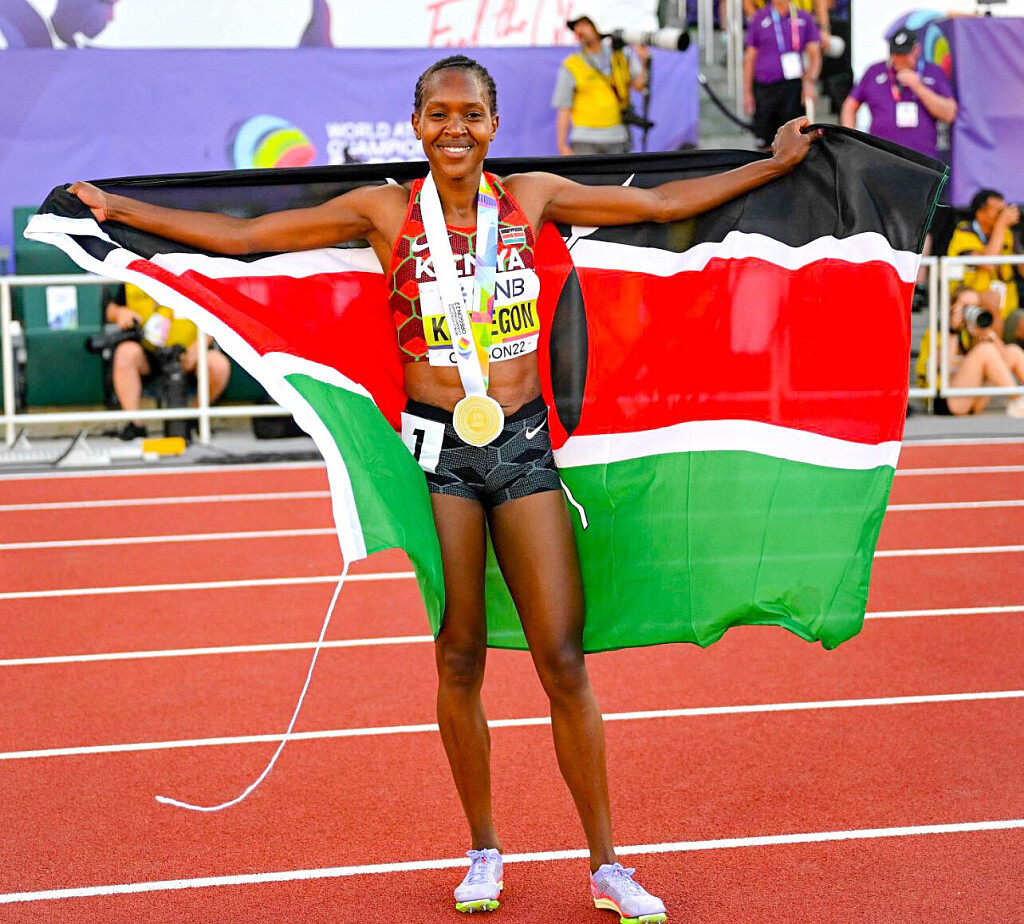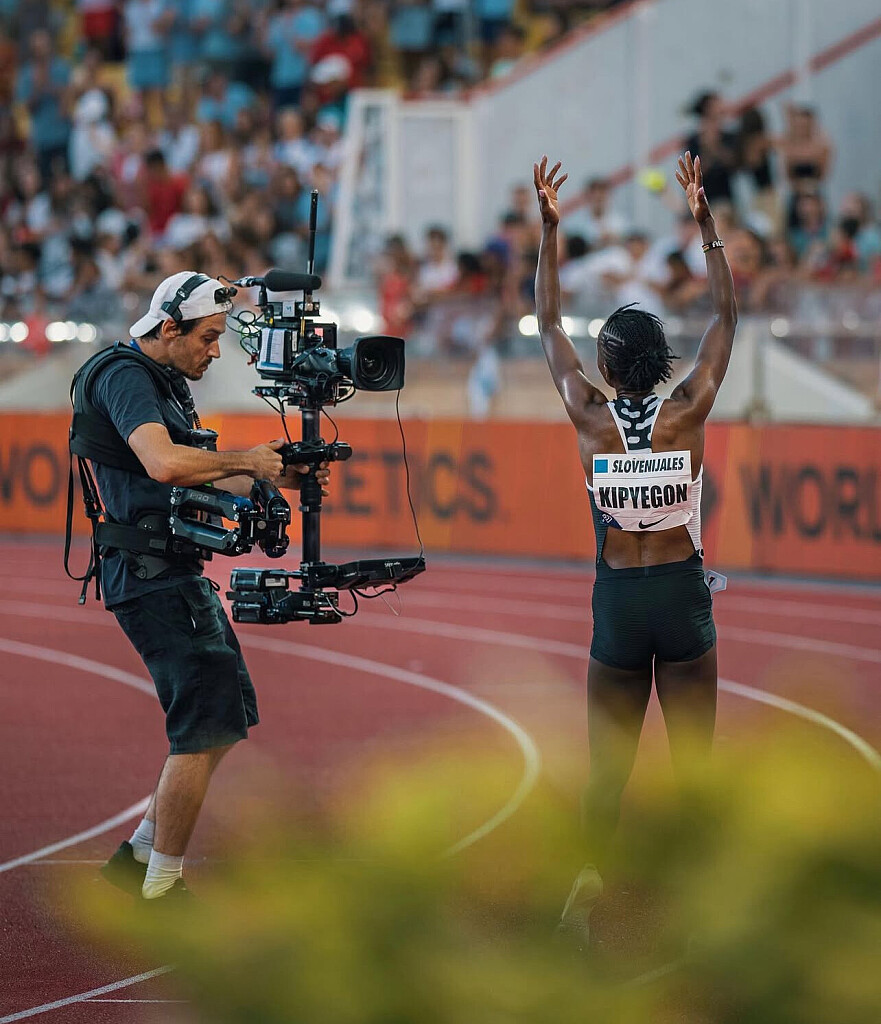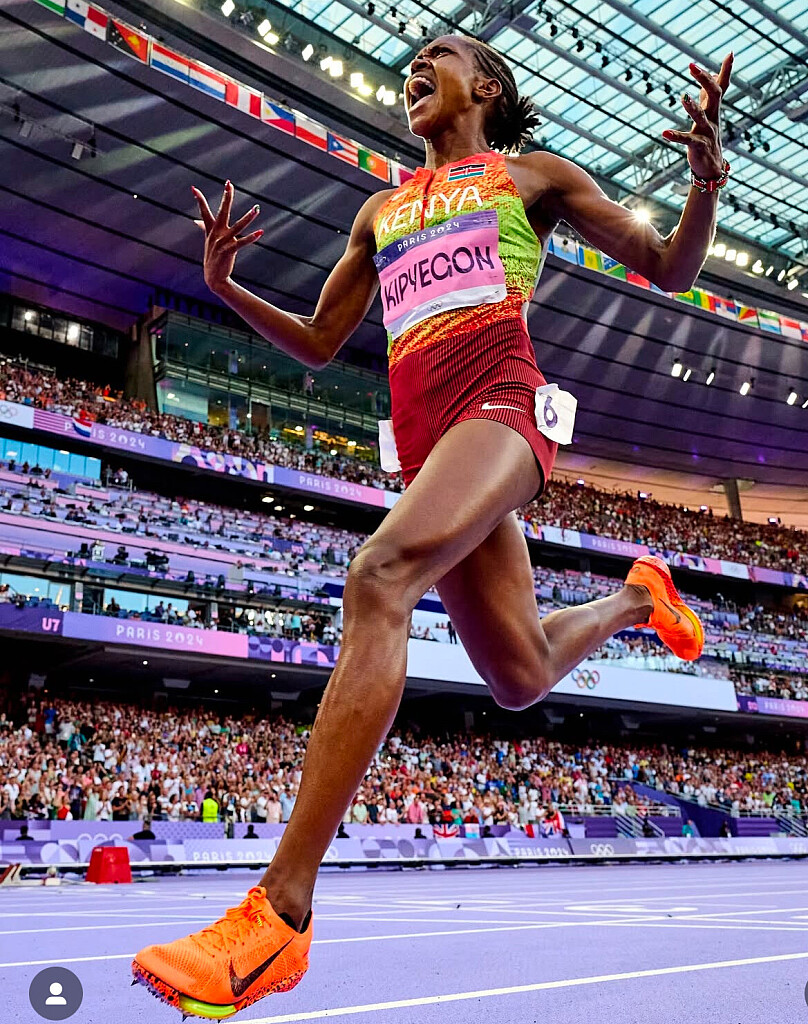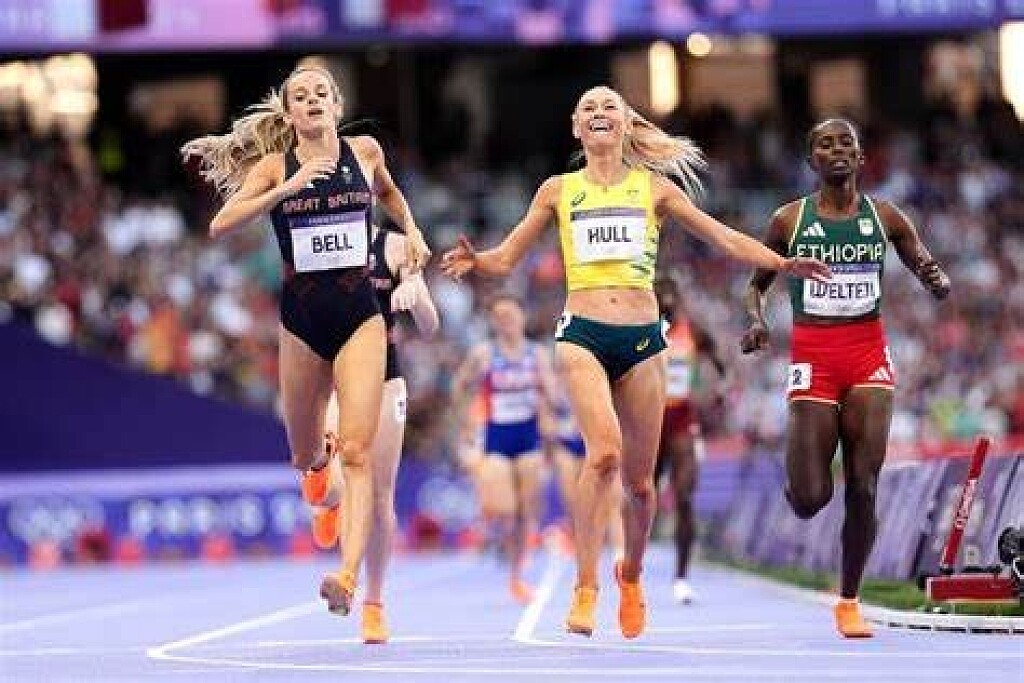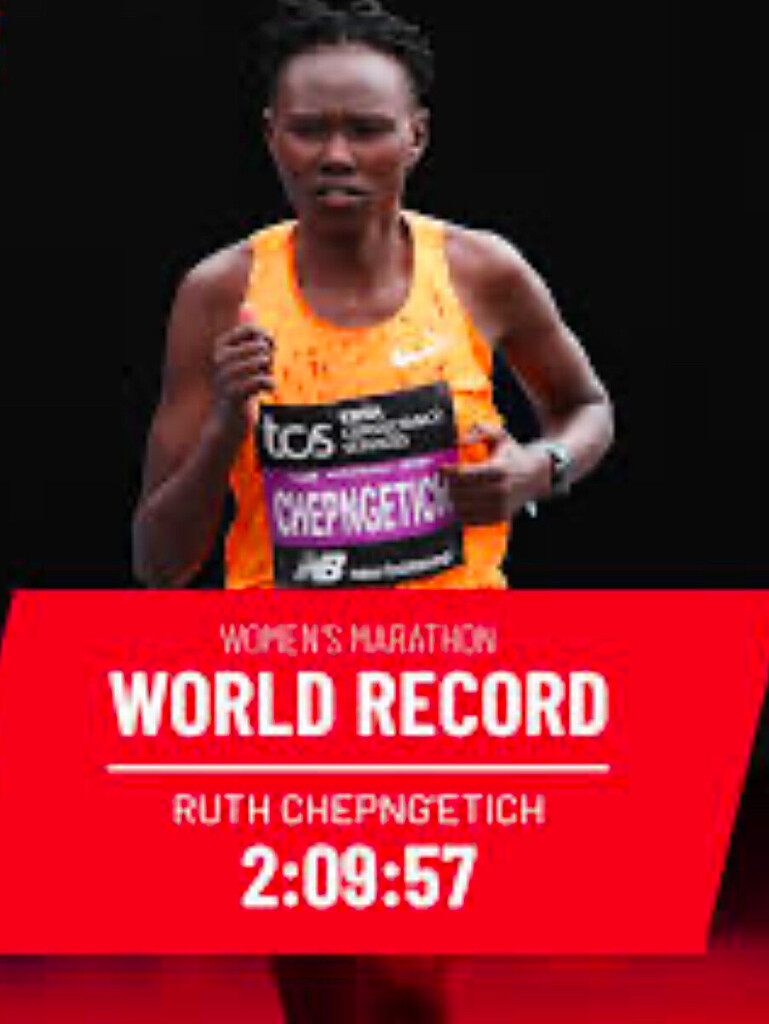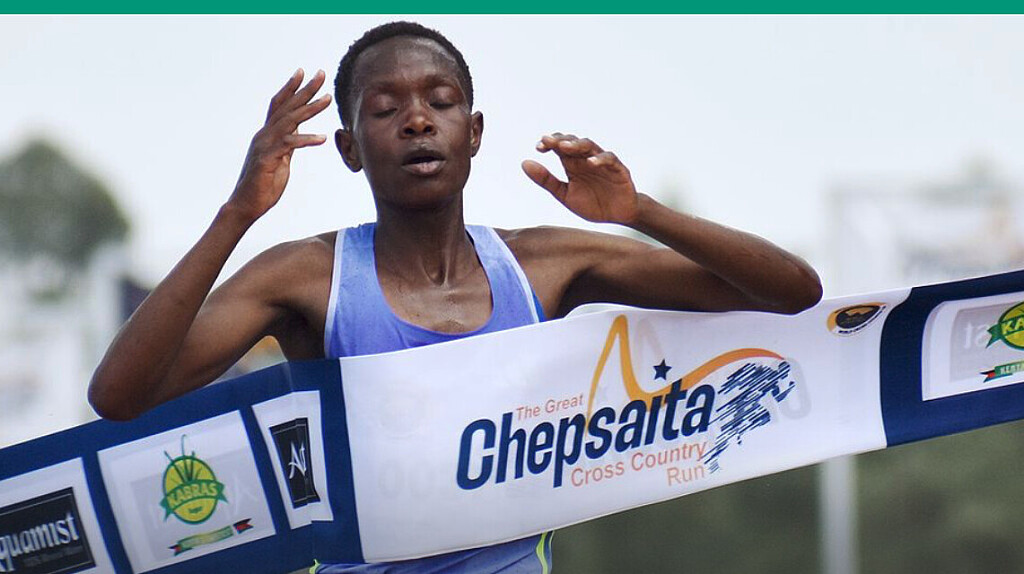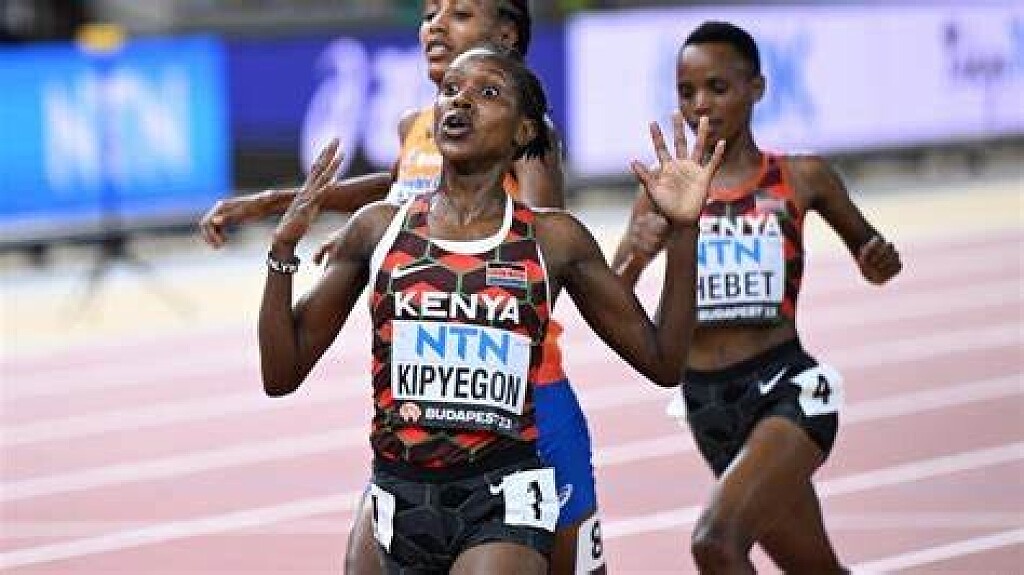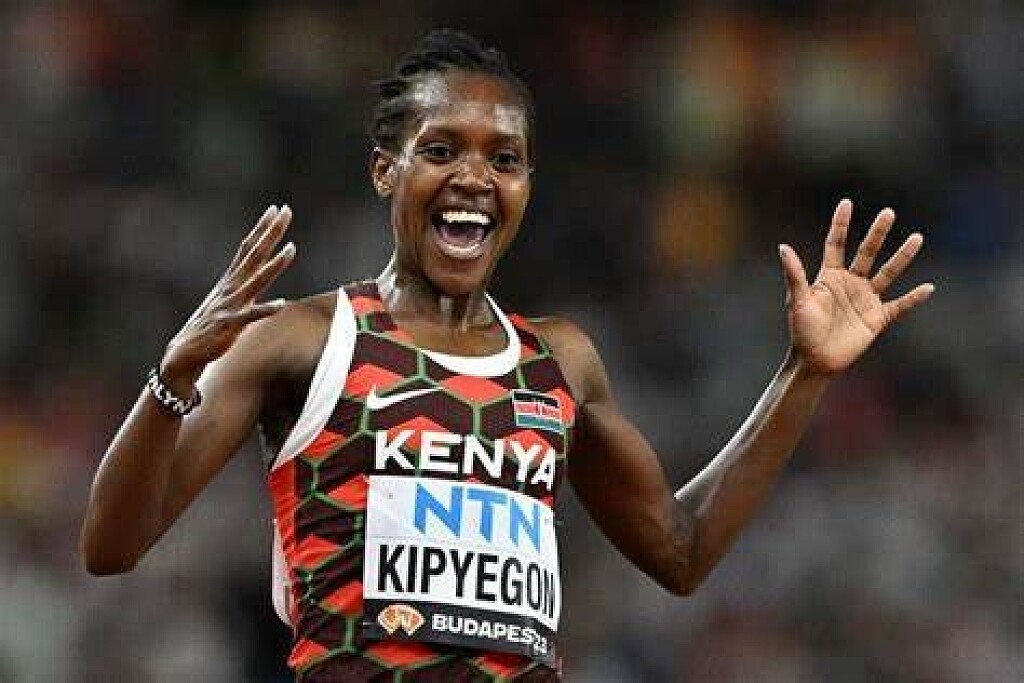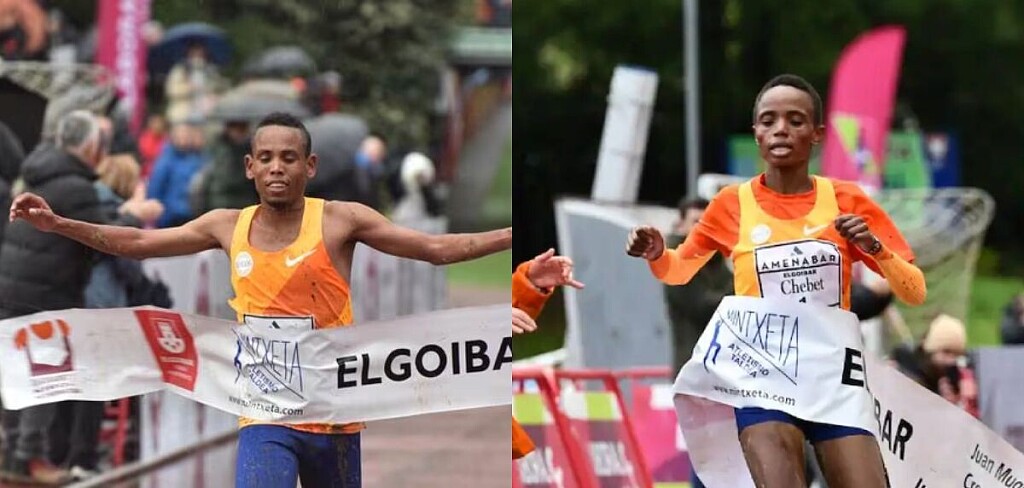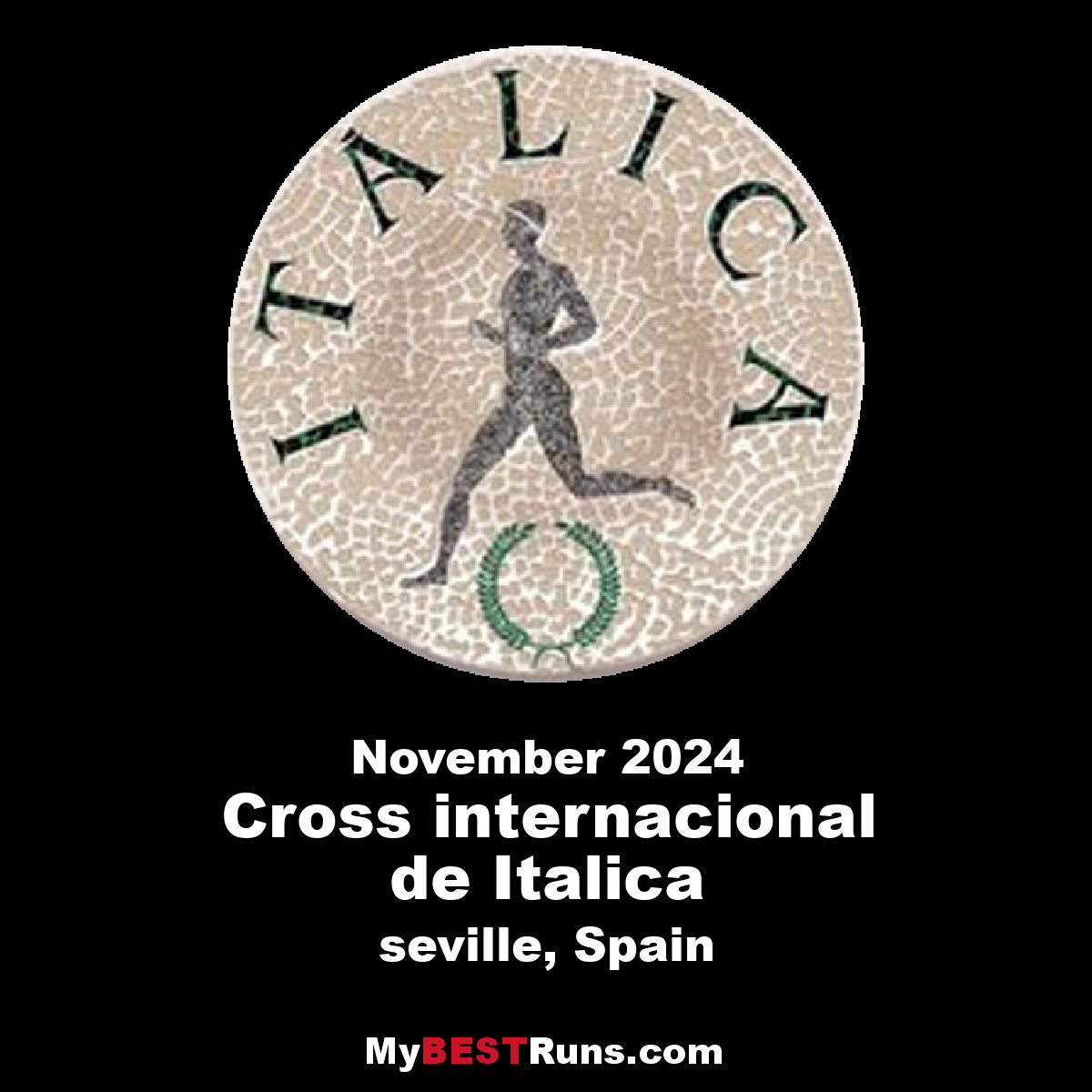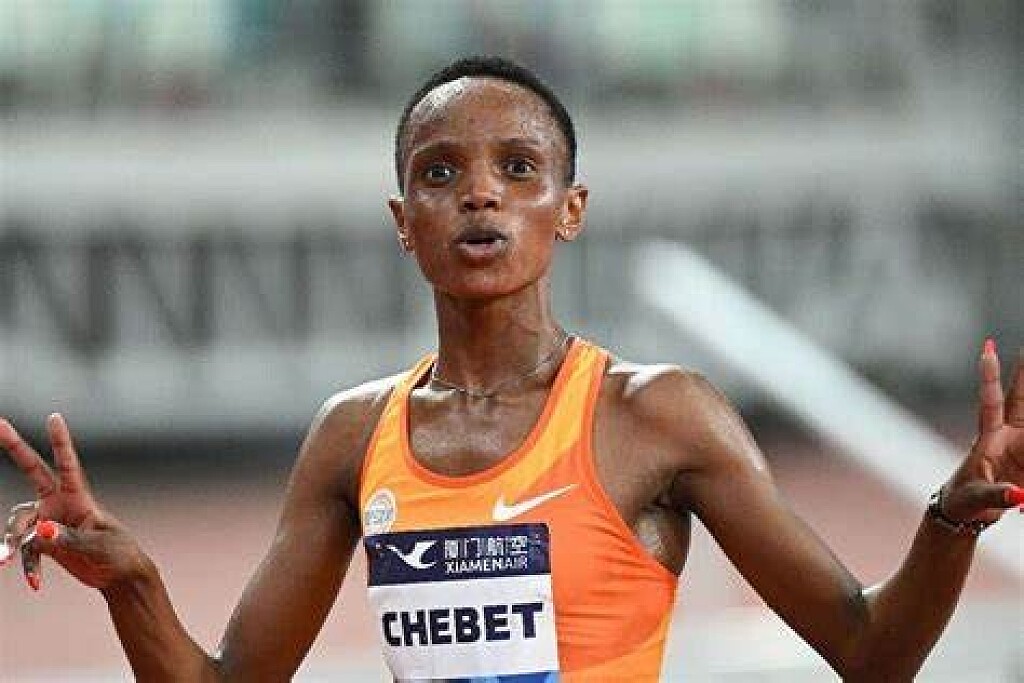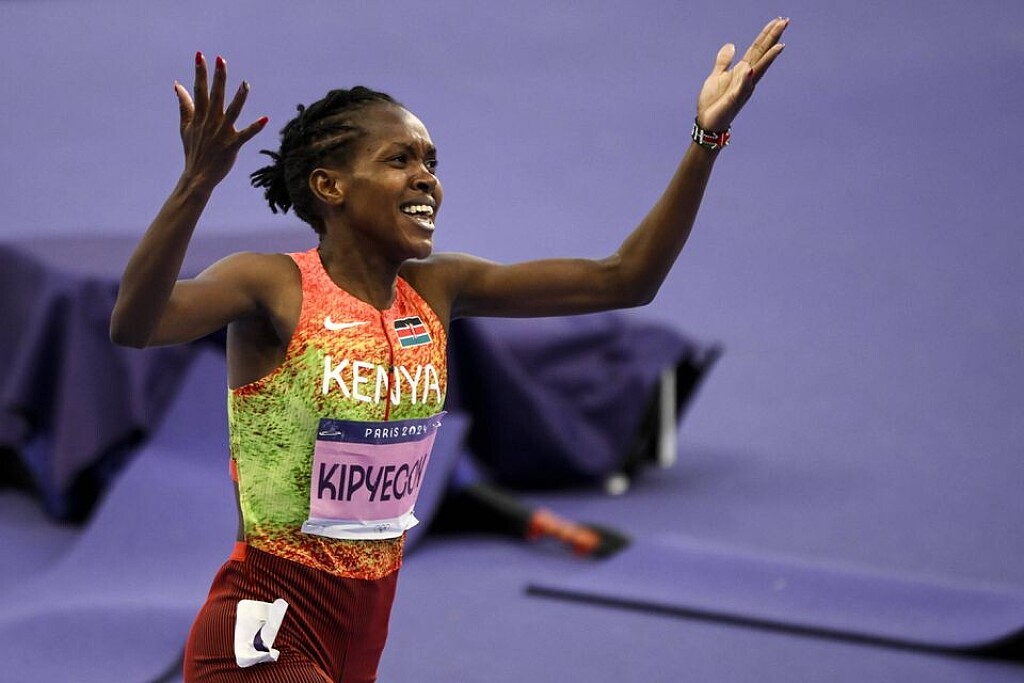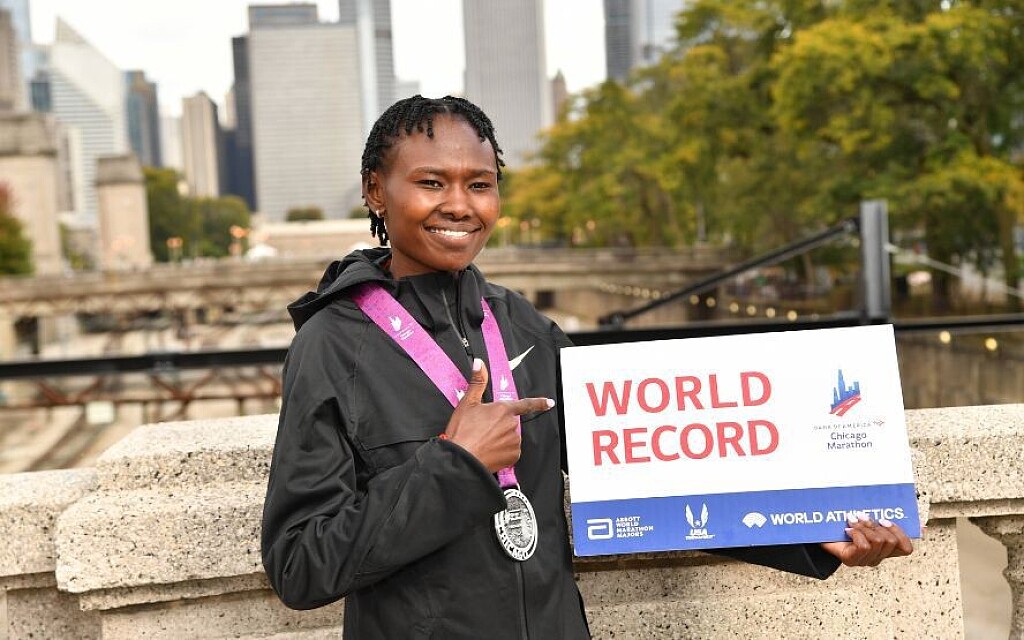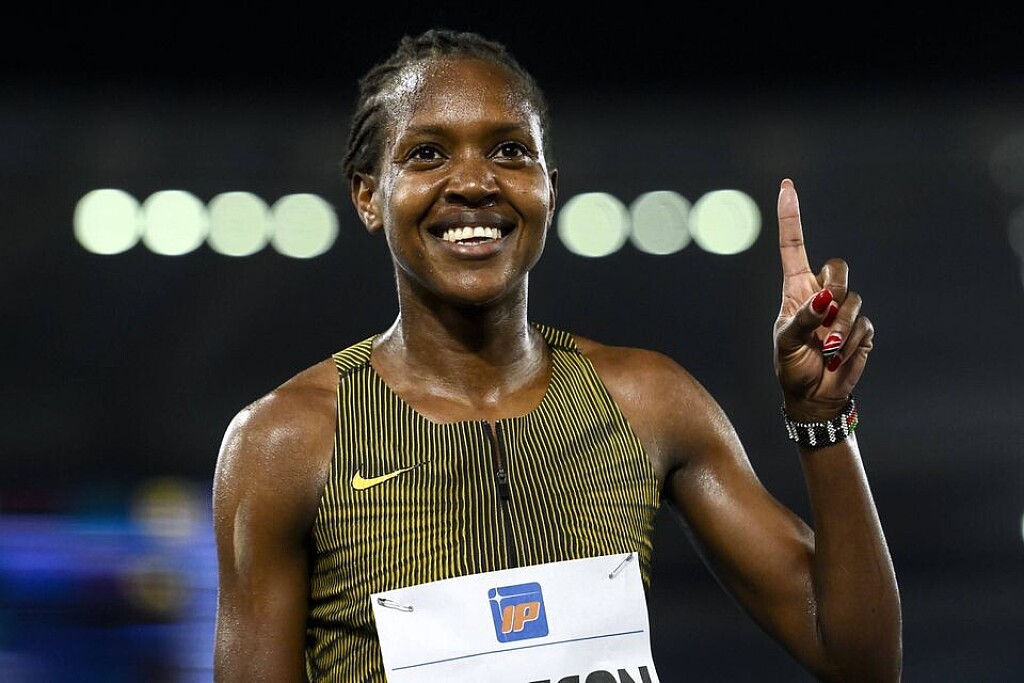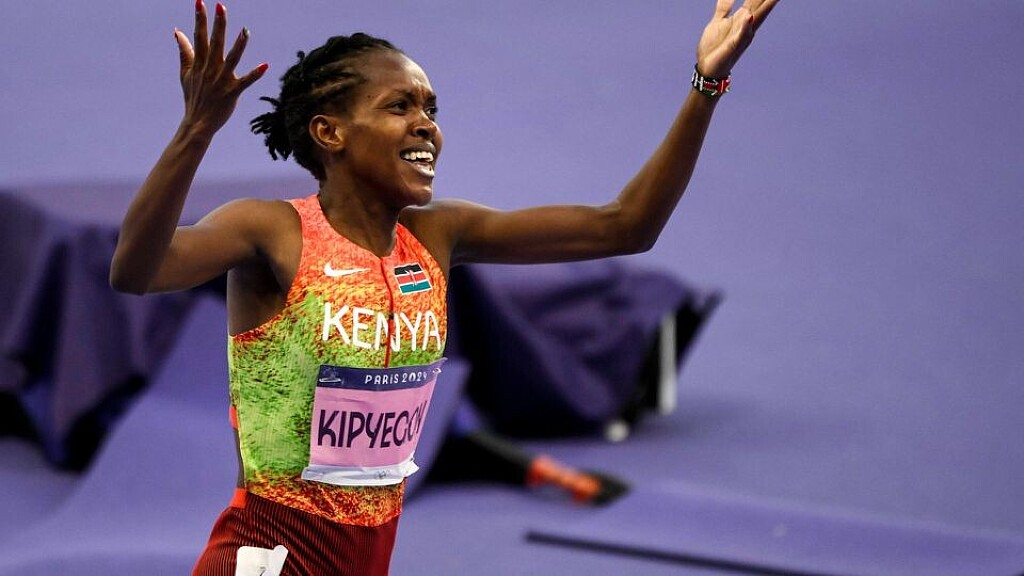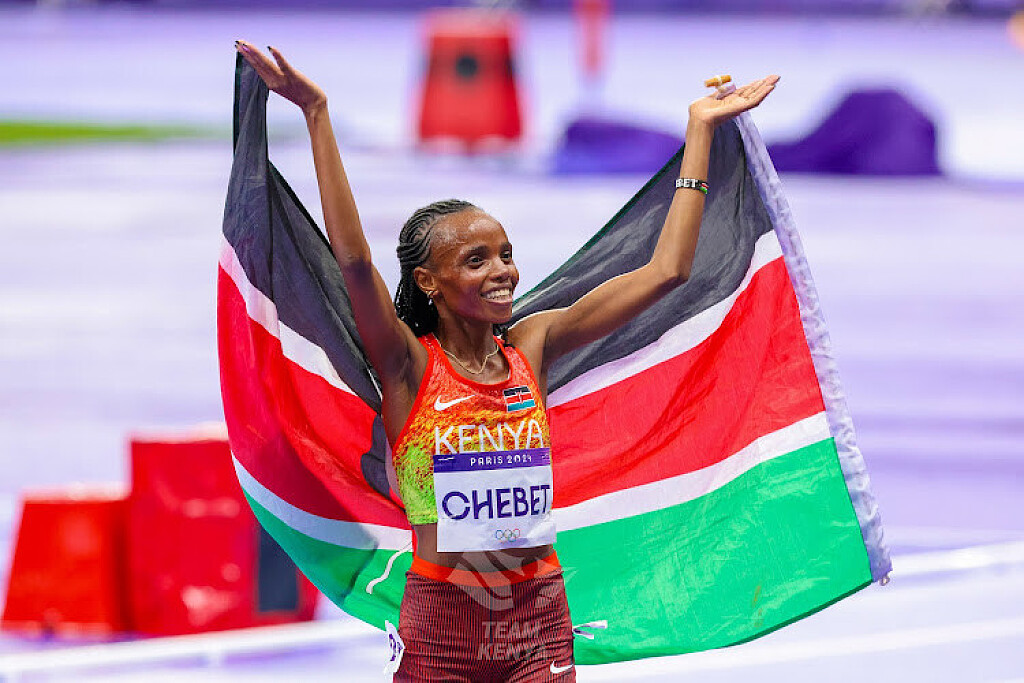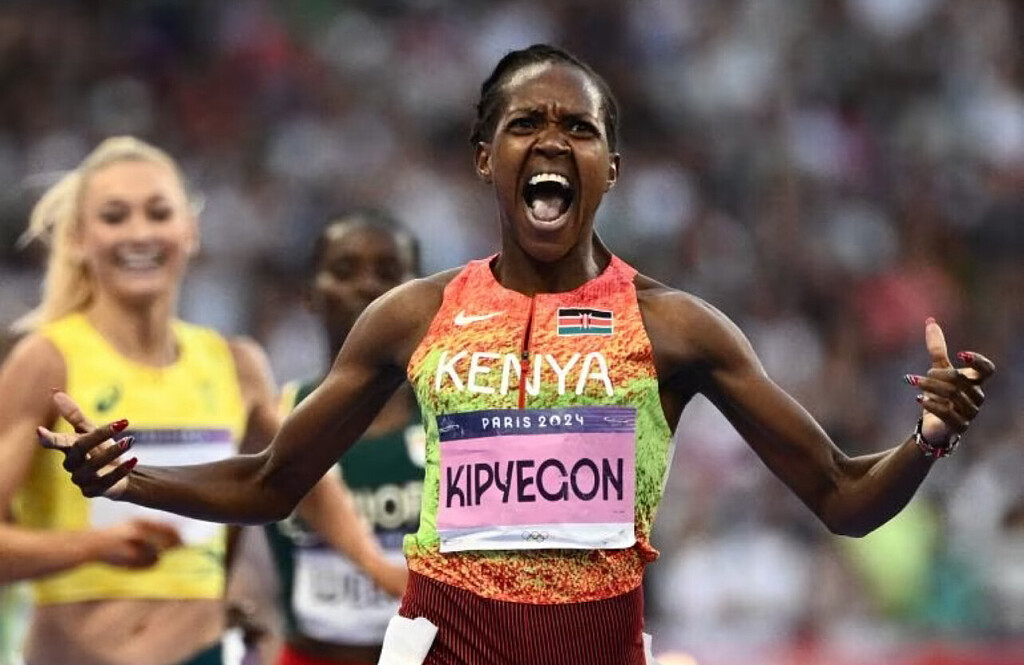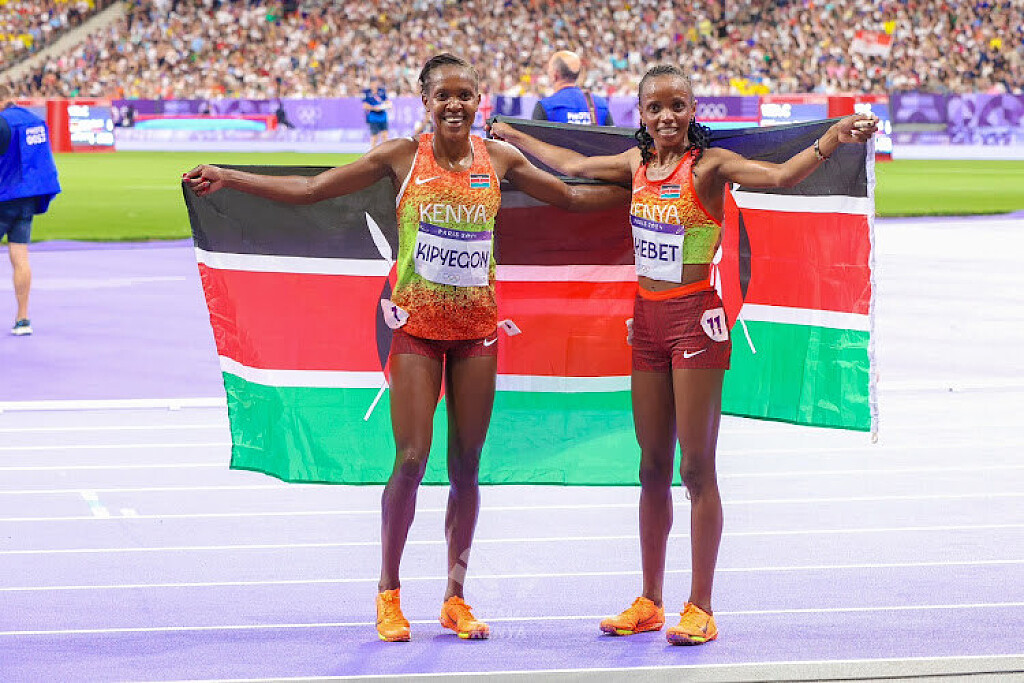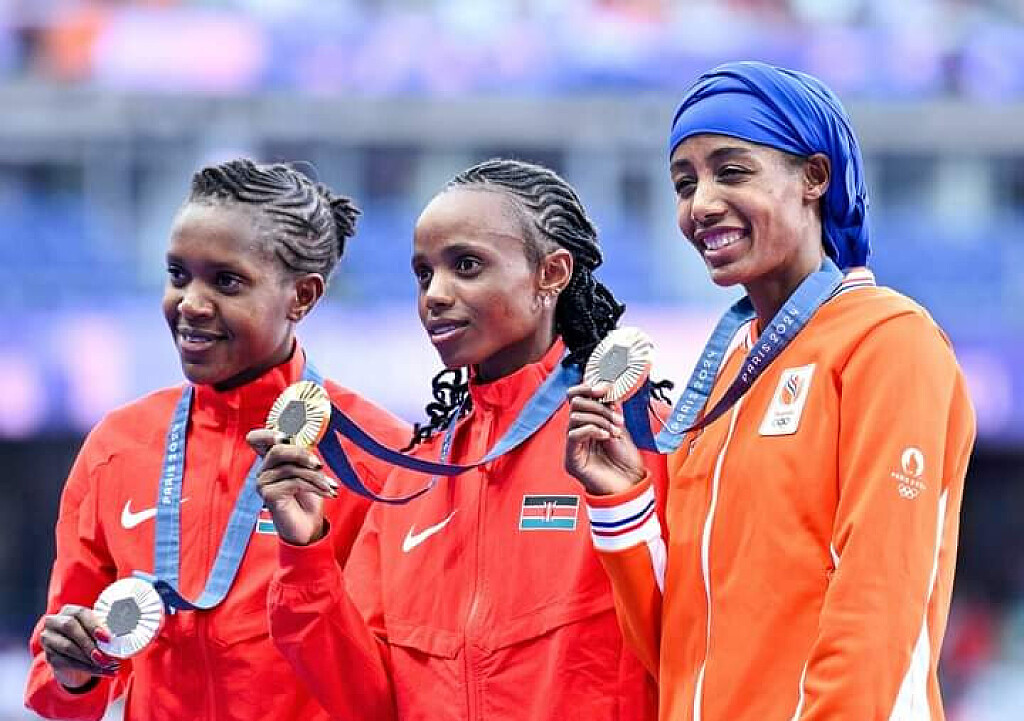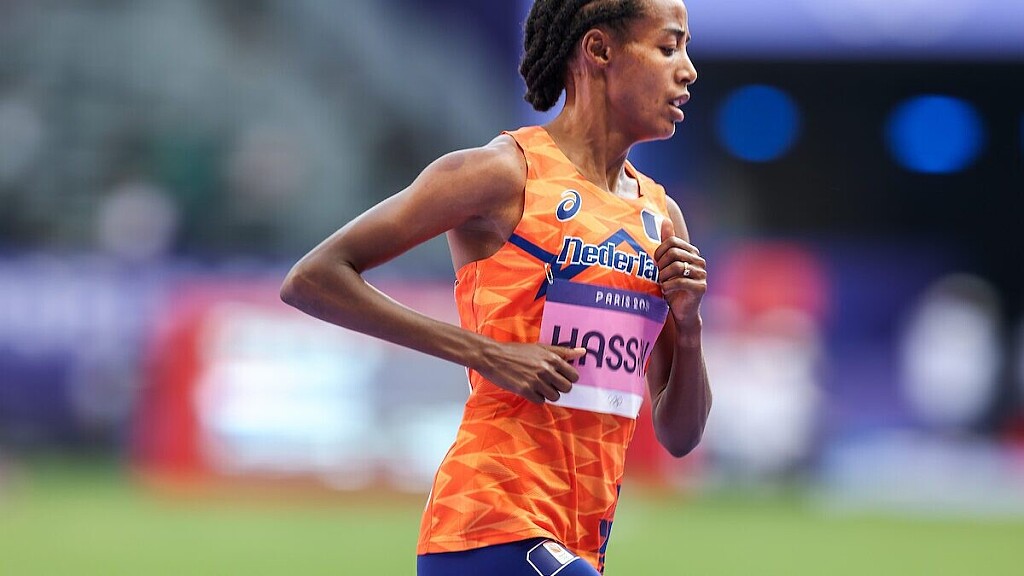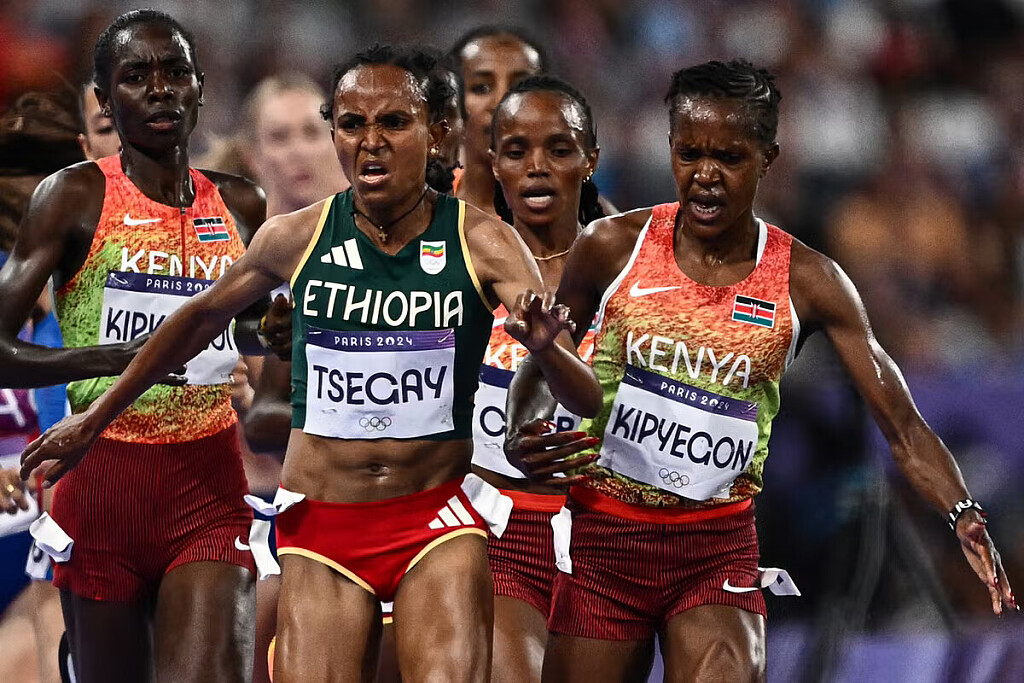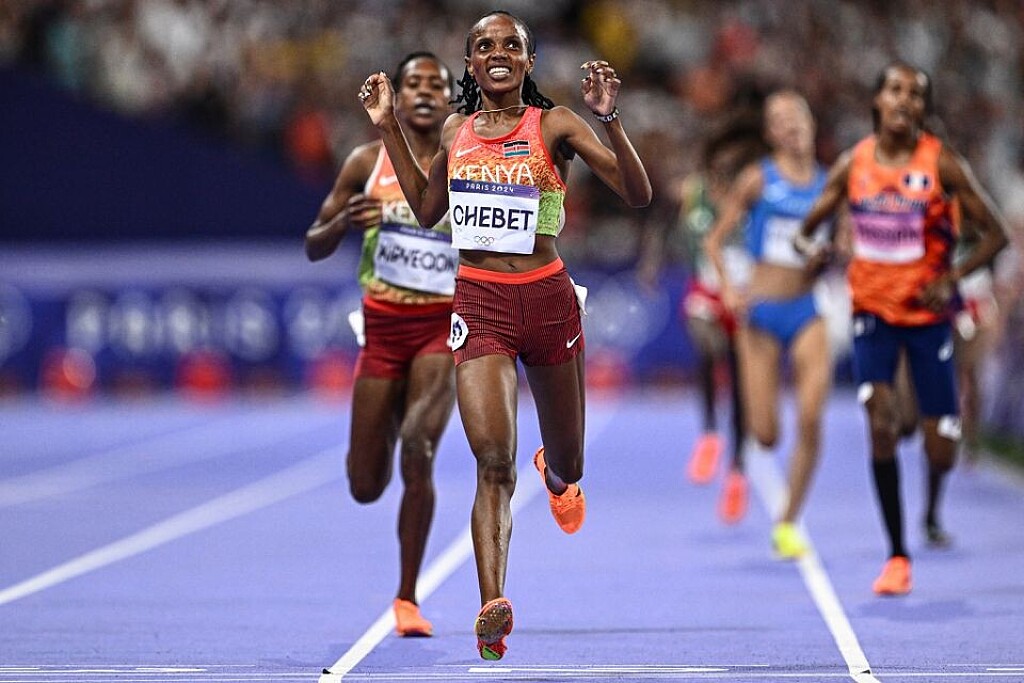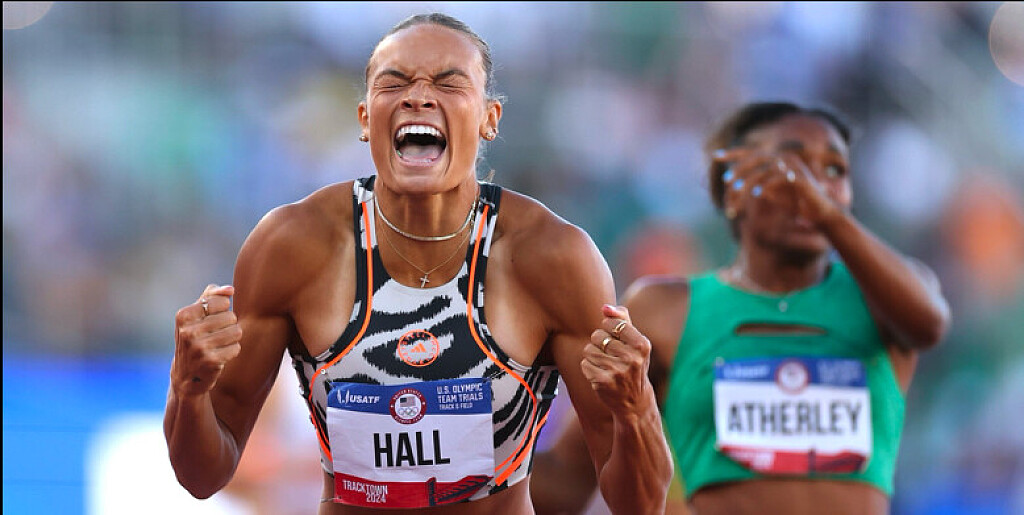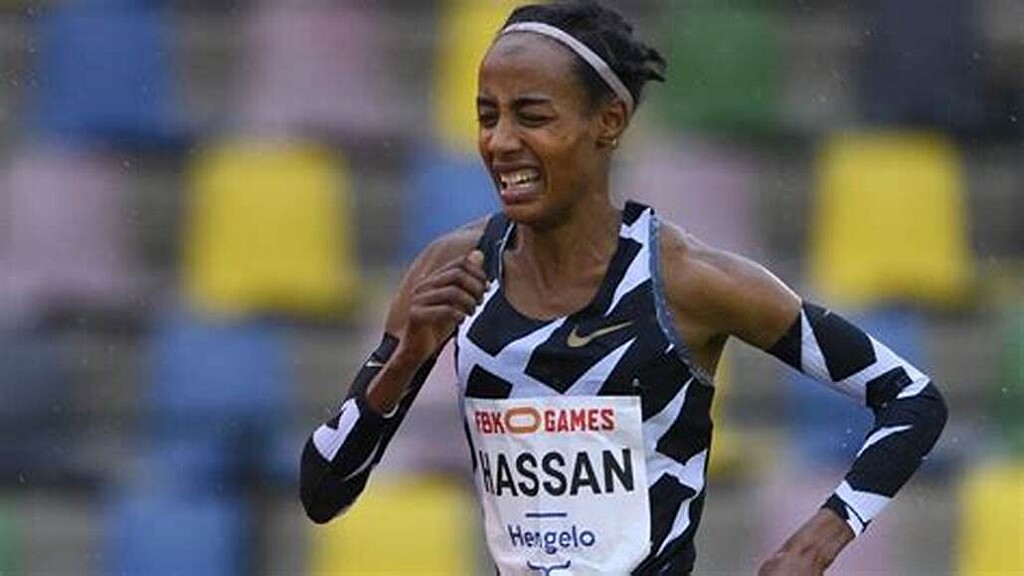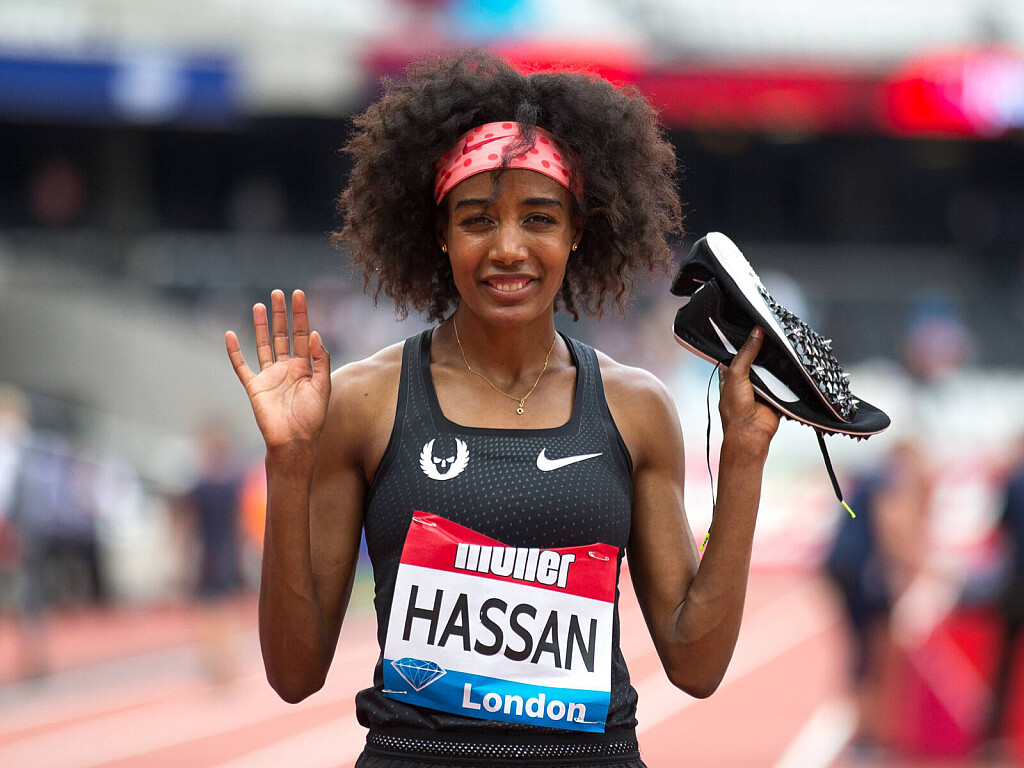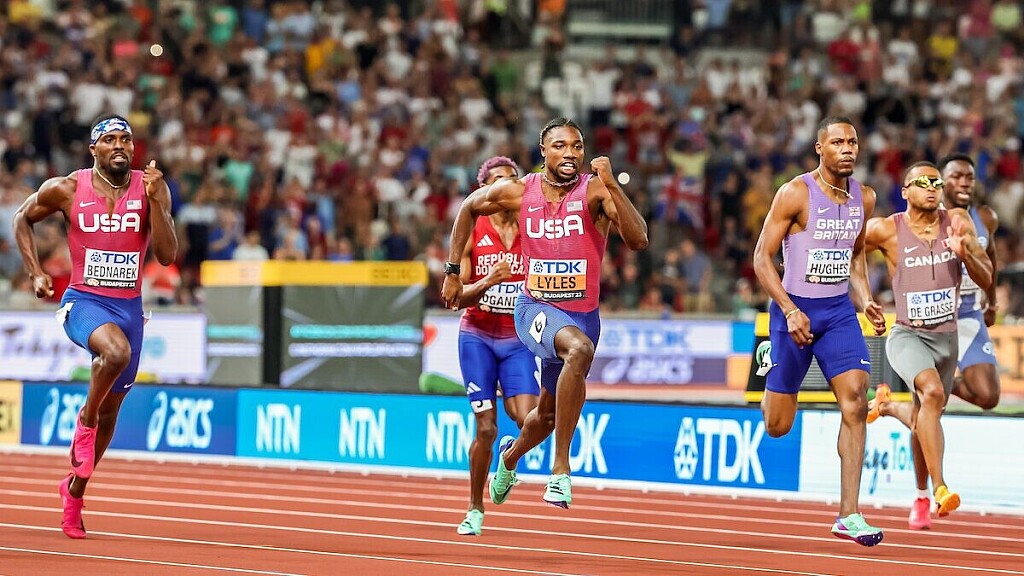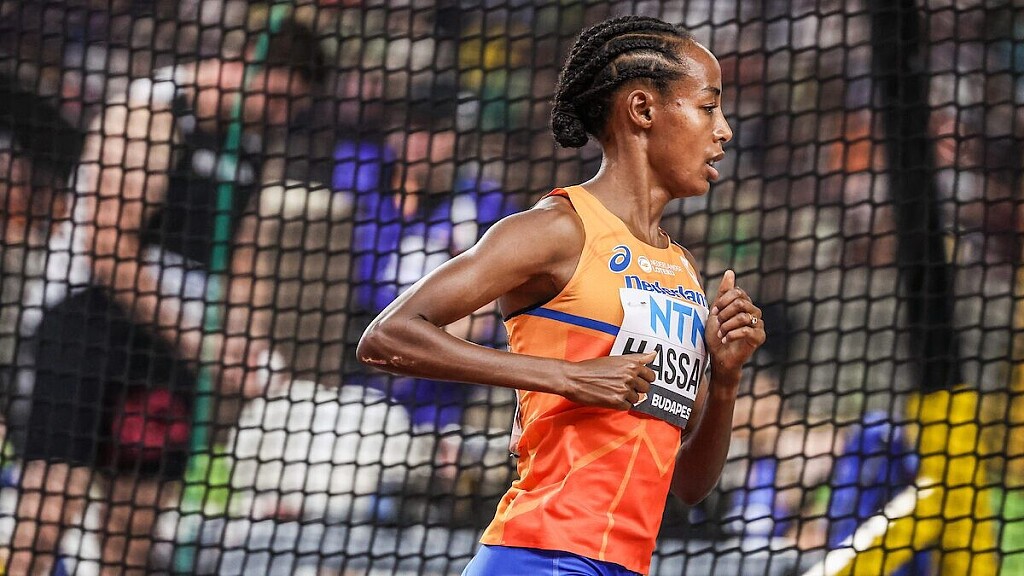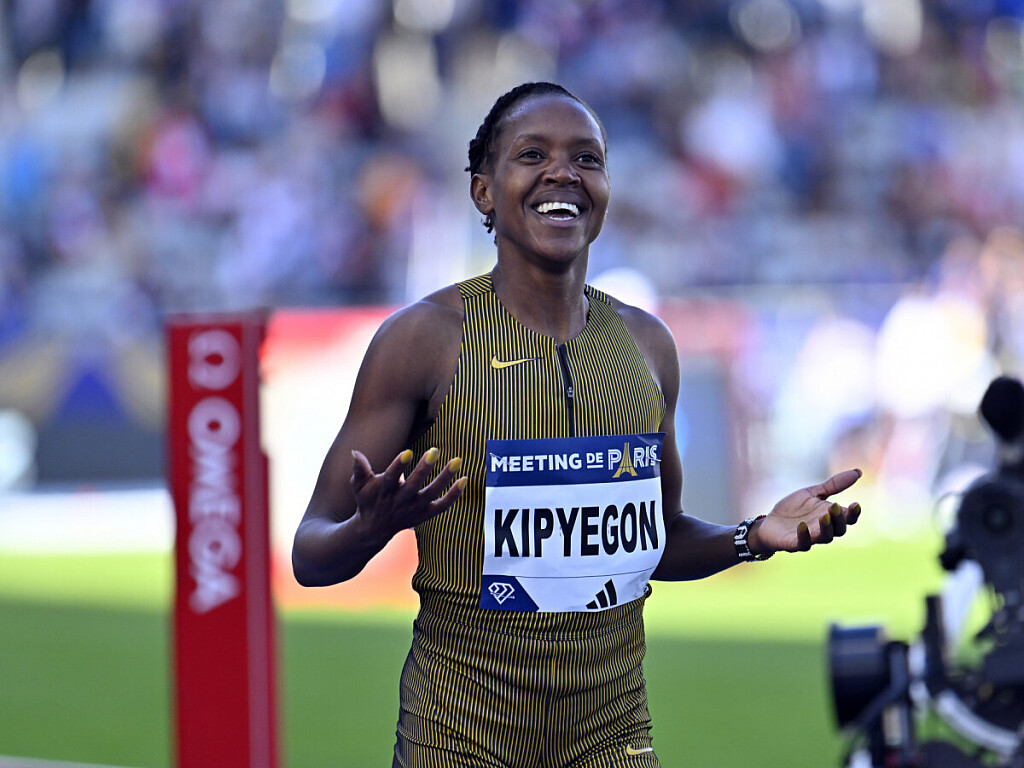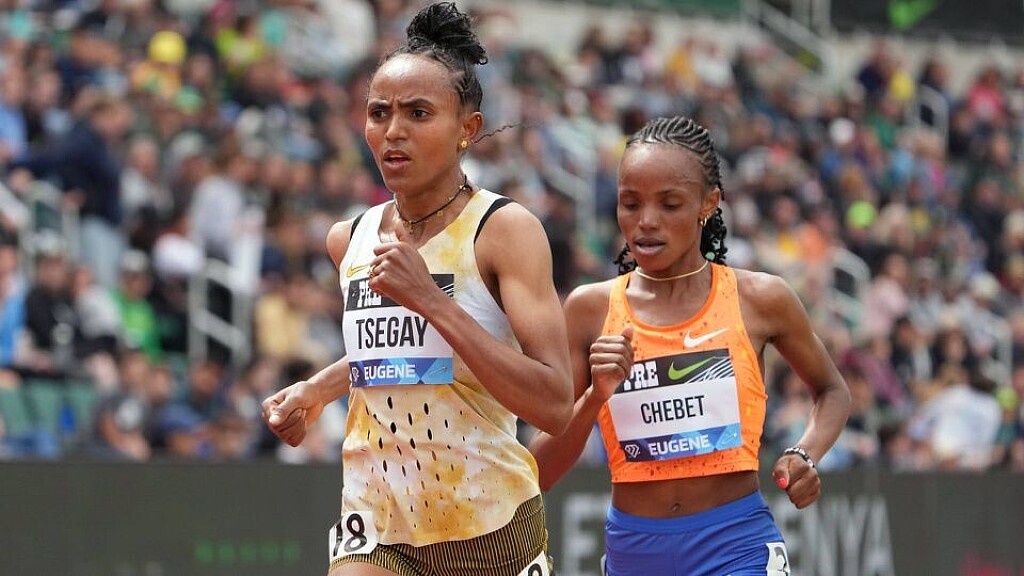Running News Daily
Running News Daily is edited by Bob Anderson. Send your news items to bob@mybestruns.com Advertising opportunities available. Train the Kenyan Way at KATA Kenya and Portugal owned and operated by Bob Anderson. Be sure to catch our movie A Long Run the movie KATA Running Camps and KATA Potato Farms - 31 now open in Kenya! https://kata.ke/
Index to Daily Posts · Sign Up For Updates · Run The World Feed
Articles tagged #Faith Kipyegon
Today's Running News
Faith Kipyegon Takes Her Next Victory Off the Track: Launches Dare to Dream Maternity Ward
Faith Kipyegon has spent years dazzling the world with her speed, breaking records, and redefining what it means to be a champion. Now, the Kenyan superstar is turning her focus to a different kind of finish line—one where the stakes are life itself.
The three-time Olympic 1500m champion has launched the Dare to Dream Maternity Ward in her hometown of Keringet, a project aimed at improving maternal and child healthcare in rural Kenya, where access to safe childbirth is still a challenge for many families.
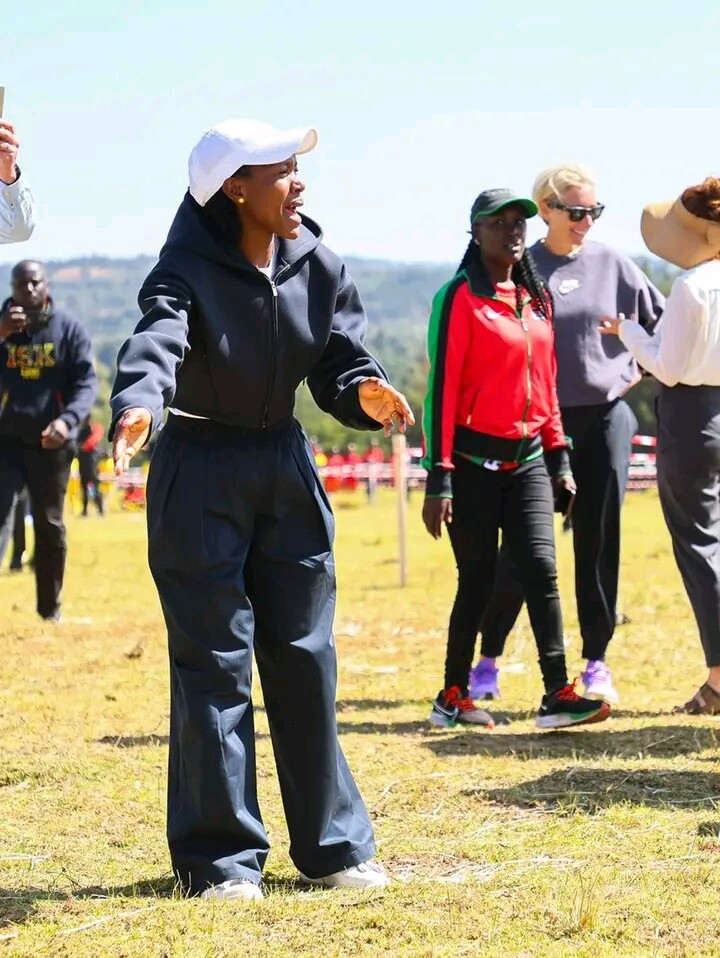
Since becoming a mother, Kipyegon has been acutely aware of the struggles women face during pregnancy and childbirth. She recalls seeing expectant mothers full of hope, only to face preventable tragedies due to limited medical support. Those experiences inspired her to act.
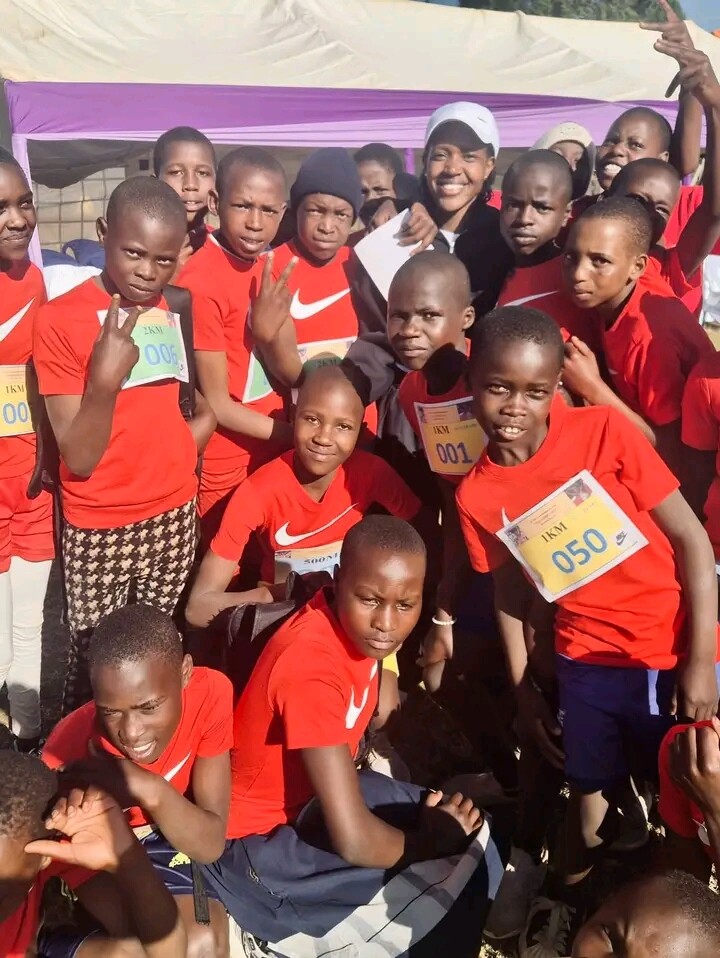
“I’m looking forward to developing this project further with the support of Nike, the Order of Malta, the Franciscan Sisters of The Immaculate Conception and the local community,” Kipyegon shared on social media, underlining the collaborative nature of this life-changing initiative.
The Dare to Dream Maternity Ward is designed to be more than just a facility; it’s a safe haven where mothers can give birth with dignity and care, and children can start life under the protection and guidance they deserve. While the wing will carry Kipyegon’s name, the project is about the women and families who will benefit from it, not personal recognition.
Faith Kipyegon’s impact has already been felt on the track, but with this project, she is creating a legacy that reaches far beyond athletics. By tackling one of Kenya’s most pressing health challenges, she is showing that true champions don’t just break records—they also lift lives.
by Erick Cheruiyot for My Bestruns.
Login to leave a comment
Faith Kipyegon: The Mother, the Champion, the Miracle
When Faith Kipyegon gave birth to her daughter in 2018, doctors advised her to take it slow—very slow. Heavy training, they cautioned, should wait at least two years. Most athletes would have accepted that timeline. But Faith Kipyegon is not like most athletes.
Just six months after becoming a mother, she laced up her spikes again.
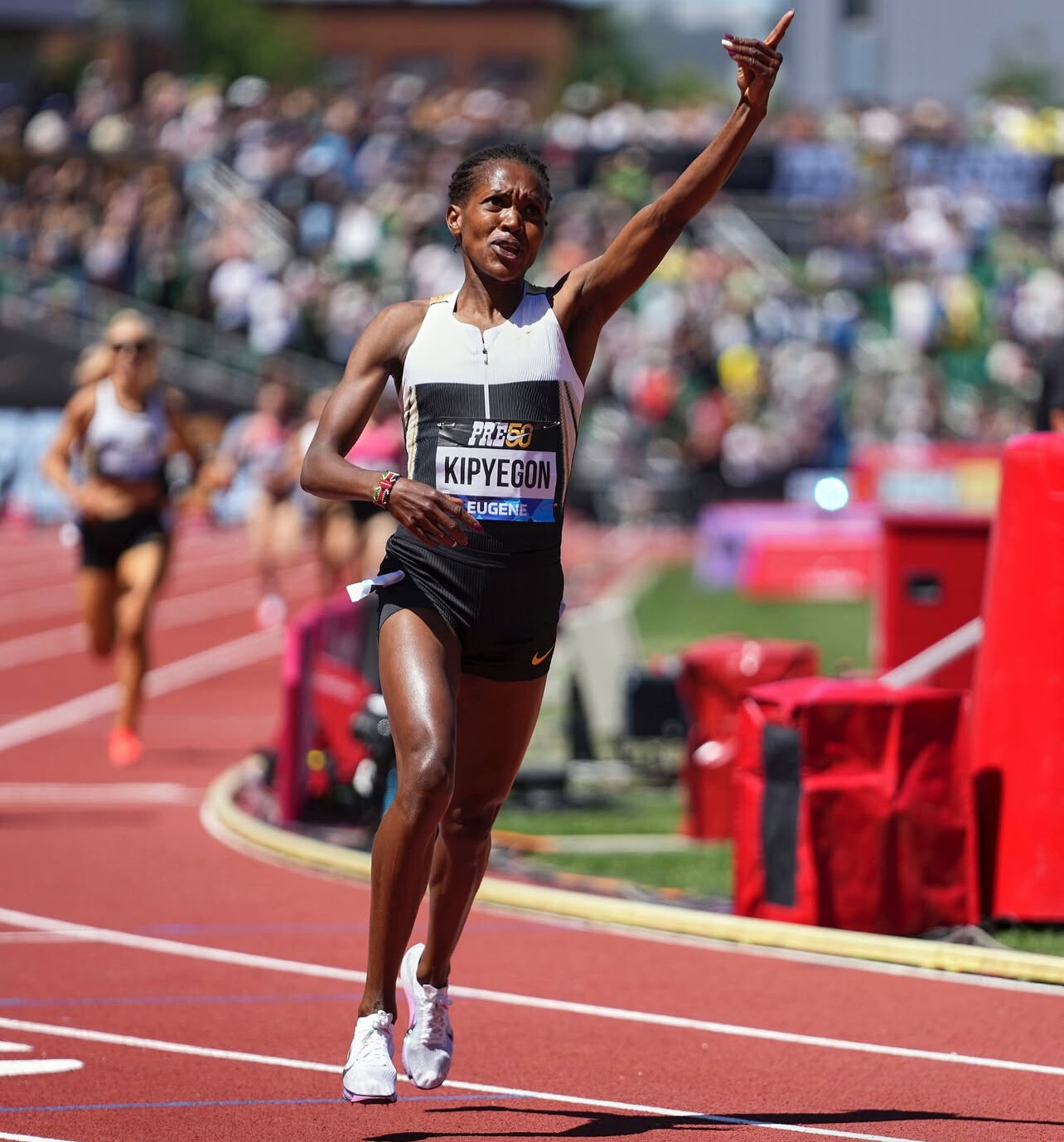
At first, it was simply to move, to feel the track beneath her feet. But soon, the quiet fire that defines the greatest champions began to burn again. What unfolded next is one of the most remarkable comeback stories in modern athletics.
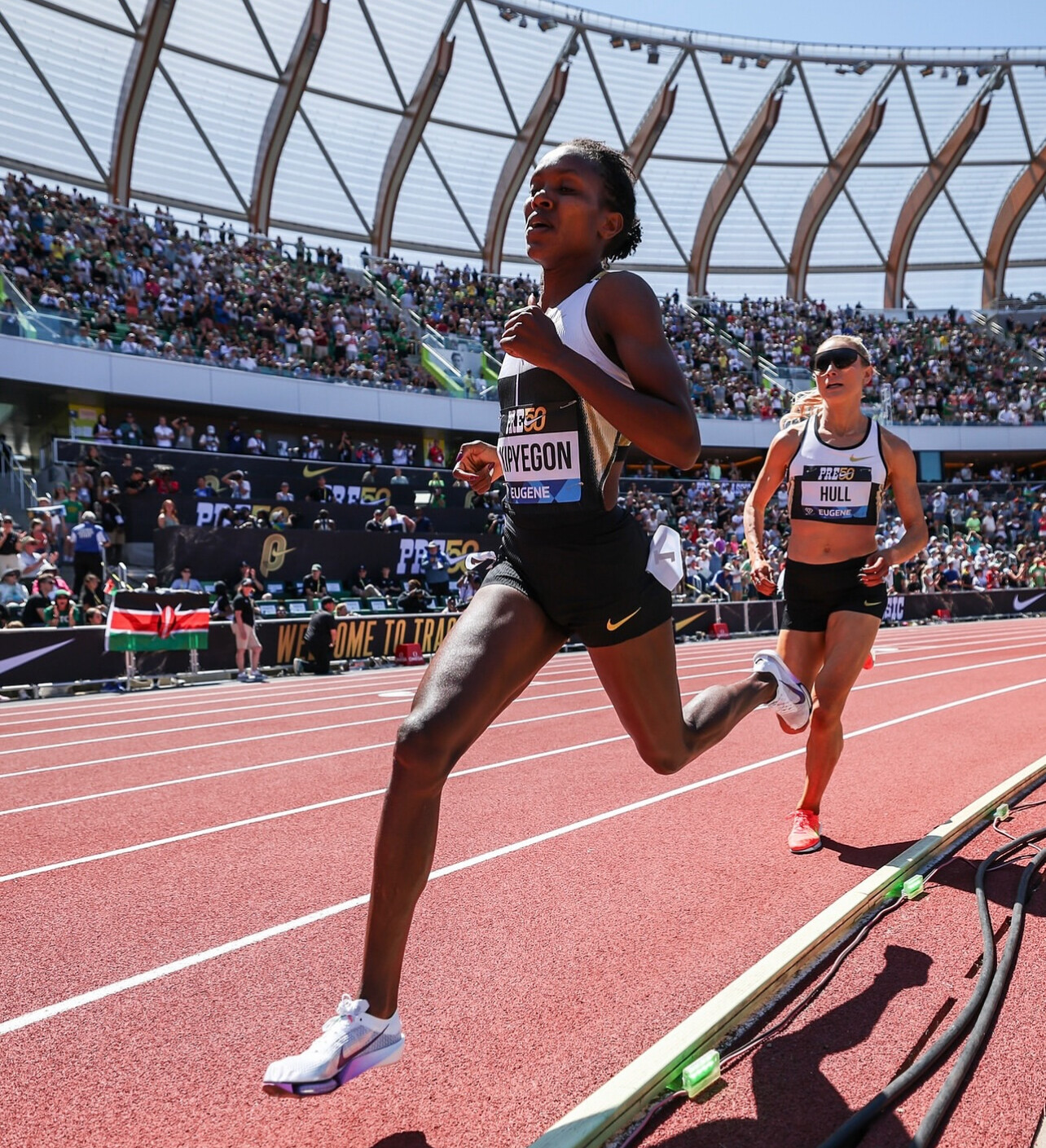
Kipyegon didn’t just return—
she rose higher than ever before.
In a sport where returning to elite form after childbirth is already a major achievement, Kipyegon did the unthinkable. She not only reclaimed the top of the world, she reset the limits of what humans—and mothers—can do.
In 2023, she produced one of the most extraordinary streaks in track history, breaking two world records within weeks:
• 1500m World Record – 3:49.11
• 5000m World Record – 14:05.20
Her 1500m dominance continued into global championships, where she ran with a mixture of elegance, ferocity, and absolute confidence—qualities that have made her one of Kenya’s most beloved athletes and one of the greatest middle-distance runners of all time.
Kipyegon’s story is not simply about medals or records.
It is the story of resilience, of a woman who refused to accept limitations—medical, physical, or societal. It is about the extraordinary will of a mother who wanted to show her daughter, and the world, that strength does not disappear with motherhood; it transforms.
Today, Faith Kipyegon stands as a global symbol of perseverance. Her journey continues to inspire millions—athletes, mothers, and dreamers everywhere—who see in her story a reminder that the human spirit is capable of more than we dare to imagine.
A champion.
A mother.
A legend rewriting what is possible.
by Boris Baron
Login to leave a comment
Kenyan Women Make History with Unprecedented Distance Sweep at World Championships
Kenyan Women Make History with Unprecedented Distance Sweep at World Championships
Kenya has written one of the greatest chapters in athletics history. For the first time ever—by men or women—one nation has swept every distance race at the World Championships, from the 800 meters all the way to the marathon. Six races, six gold medals. And they all belong to Kenya’s women.
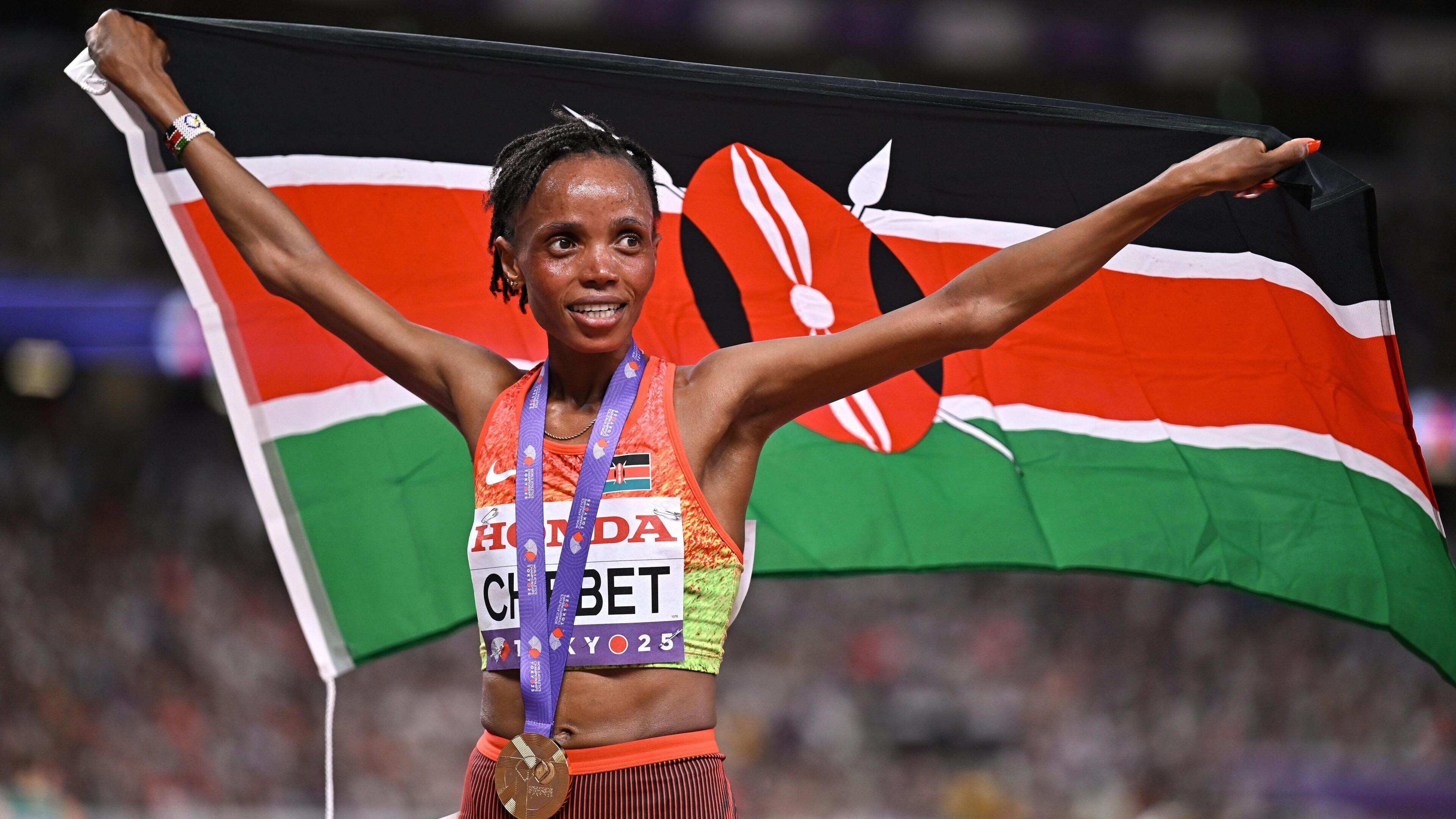
A Golden Run Across Every Distance
It all began with Lilian Odira, who stunned the world in the women’s 800m. Running with patience and power, she stormed to victory in 1:54.62, a championship record that announced her as the new queen of the two-lap race.
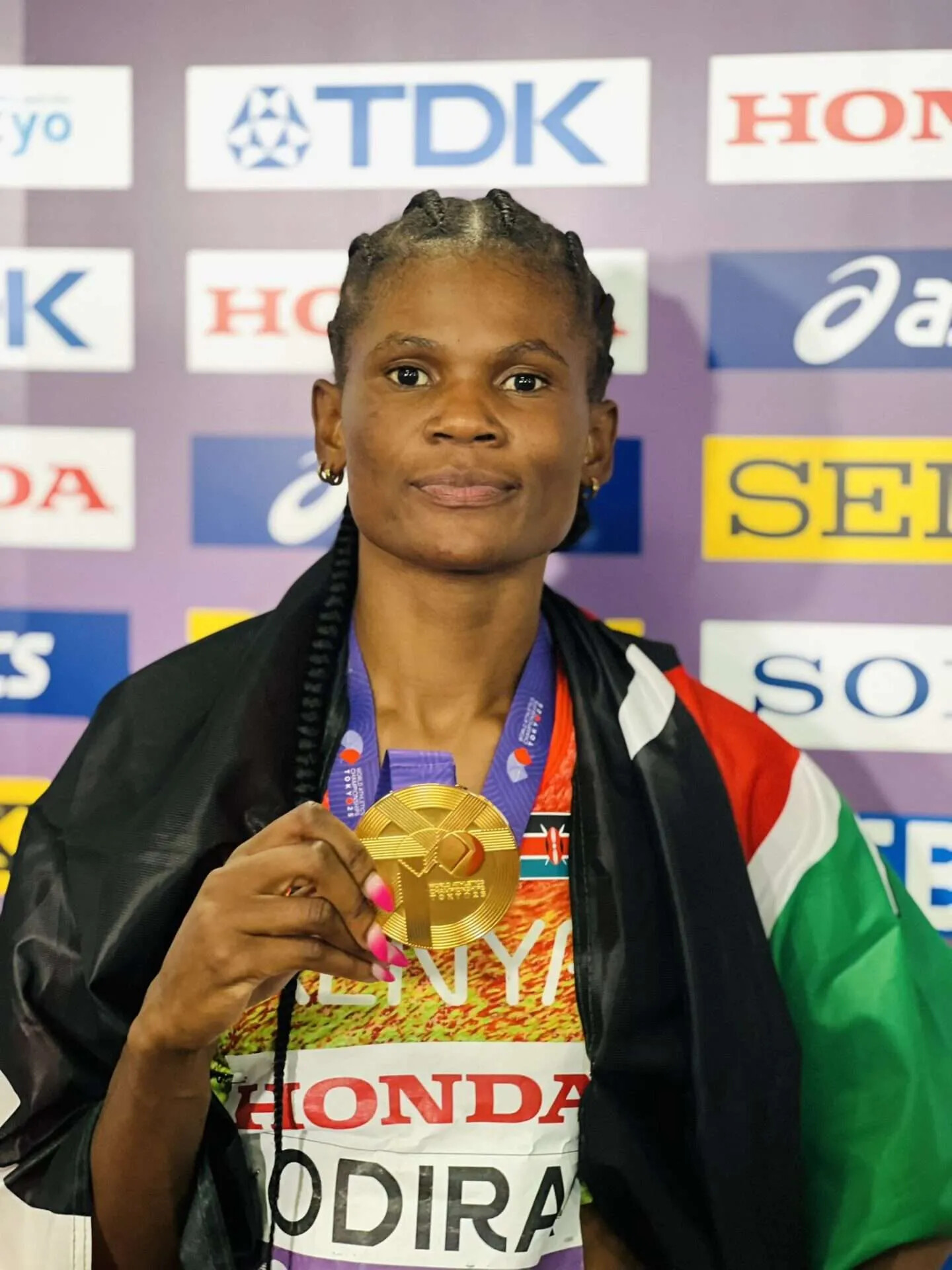
Next came the familiar dominance of Faith Kipyegon. Already a legend of middle-distance running, she defended her crown in the 1500m, producing another masterpiece of speed and tactics with a time of 3:52.15.
From there, Beatrice Chebet took over the spotlight, showing remarkable versatility and endurance. She claimed double gold in both the 5000m (14:54.36) and 10,000m (30:37.61), solidifying her reputation as one of the greatest all-around distance runners of her generation.
In the steeplechase, Faith Cherotich displayed poise and precision, controlling the race from start to finish to secure gold in 8:51.59.
And finally, in the ultimate test of endurance, Olympic champion Peres Jepchirchir closed the sweep with a perfectly executed run in the marathon, clocking 2:24:43. Her victory sealed Kenya’s clean sweep of all women’s distance races—an achievement unmatched in the history of the sport.
A First in World Athletics History
No nation has ever before captured every distance title at a single World Championships. This is more than a collection of gold medals—it is a powerful statement about Kenya’s depth, resilience, and continued dominance in global distance running.
More Than Medals
This sweep is not just about records and times. It is a story of perseverance, discipline, and national pride. Each champion has walked a different journey, yet together they have created a moment that will inspire generations of runners around the world.
Kenya’s women have redefined what dominance looks like in athletics. They have set a standard so high it may never be equaled.
The world came to watch champions—but what they witnessed was history.
by Boris Baron
Login to leave a comment
Thrilling Photo Finish and Historic Performances Highlight 1500m Finals in Tokyo
The 1500 meters is often called the “crown jewel” of middle-distance running, a race where tactics, speed, and heart all collide. At the 2025 World Championships in Tokyo, both the men’s and women’s finals lived up to that reputation, delivering drama, comebacks, and world-class performances that will be remembered for years.
Men’s 1500m: A Thrilling Comeback
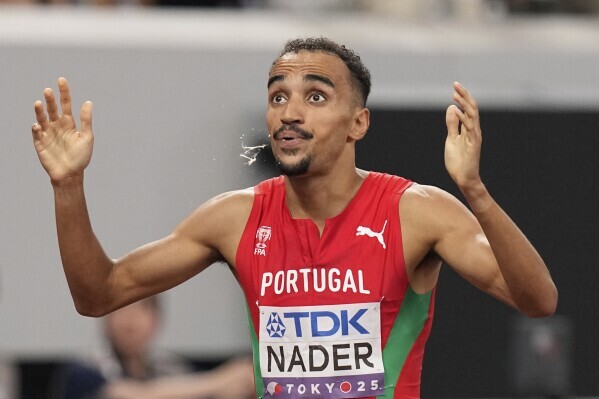
The men’s final produced one of the most electrifying finishes of the championships. For much of the race, the field remained tightly packed, with every move closely marked. As the bell rang for the final lap, the intensity soared, and the last 200 meters became an all-out sprint for glory.
Portugal’s Isaac Nader surged wide in the final stretch, clawing back ground with each stride before lunging at the line. His daring comeback forced a photo finish against Britain’s Jake Wightman, with both men collapsing past the tape in exhaustion. Officials confirmed Nader as the gold medalist in 3:34.10, edging Wightman’s 3:34.12 by just two hundredths of a second.
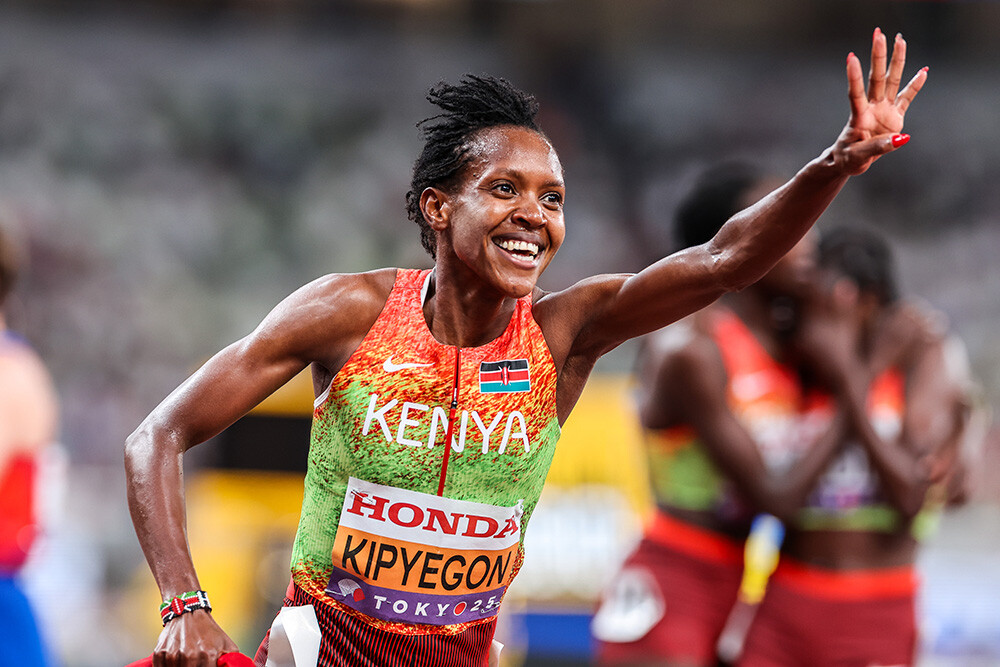
Kenya’s rising star Reynold Cheruiyot powered home for bronze in 3:34.25, while his compatriot and former world champion Timothy Cheruiyot finished fourth in 3:34.50. The razor-thin margins between the top four underscored the depth and unpredictability of today’s global 1500m racing.
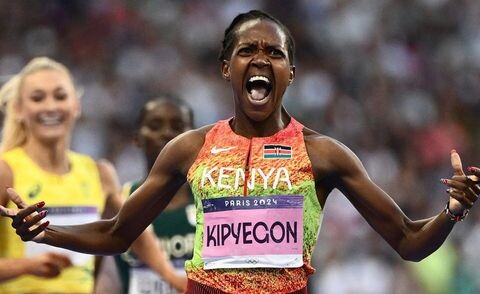
Men’s Top Four – Tokyo 2025
1. Isaac Nader (Portugal) – 3:34.10
2. Jake Wightman (Great Britain) – 3:34.12
3. Reynold Cheruiyot (Kenya) – 3:34.25
4. Timothy Cheruiyot (Kenya) – 3:34.50
Women’s 1500m: Kipyegon Reigns Supreme
If the men’s race was decided by a hair’s breadth, the women’s final was about one athlete stamping her authority on the distance. Kenya’s Faith Kipyegon, already a legend of the sport, once again proved untouchable. She controlled the pace from the front and then crushed the field over the final 300 meters, crossing in a dominant 3:52.15 to secure another world title.
Behind her, teammate Dorcus Ewoi earned silver with a strong 3:54.92, holding off Australia’s Jessica Hull, who thrilled the Tokyo crowd with a gritty run for bronze in 3:55.16. Another Kenyan, Nelly Chepchirchir, rounded out the top four in 3:55.25, making it three Kenyans in the top four.
Women’s Top Four – Tokyo 2025
1. Faith Kipyegon (Kenya) – 3:52.15
2. Dorcus Ewoi (Kenya) – 3:54.92
3. Jessica Hull (Australia) – 3:55.16
4. Nelly Chepchirchir (Kenya) – 3:55.25
A Showcase of Middle-Distance Greatness
Between the men’s photo finish and Kipyegon’s continued dominance, the Tokyo 1500m finals captured everything fans love about this distance: courage, strategy, and the ability to deliver in the biggest moments.
For Isaac Nader, it was the race of his life, as he became Portugal’s first world champion in the 1500m. For Faith Kipyegon, it was another masterclass, further cementing her status as perhaps the greatest middle-distance runner in history. And for the fans, it was proof that the 1500m remains one of the most thrilling events on the track.
by Boris Baron
Login to leave a comment
Faith Kipyegon Breaks Diamond League Record in Silesia with Second-Fastest 3000m in History
Silesia, Poland – August 16, 2025 — Kenya’s Faith Kipyegon once again delivered a masterclass in middle-distance running, storming to victory in the women’s 3000m at the Diamond League meeting in Silesia. Her time of 8:07.04 not only set a new Diamond League record but also established an African record, a meeting record, and the second-fastest performance in history.
A Perfect Setup from the Pacemaker
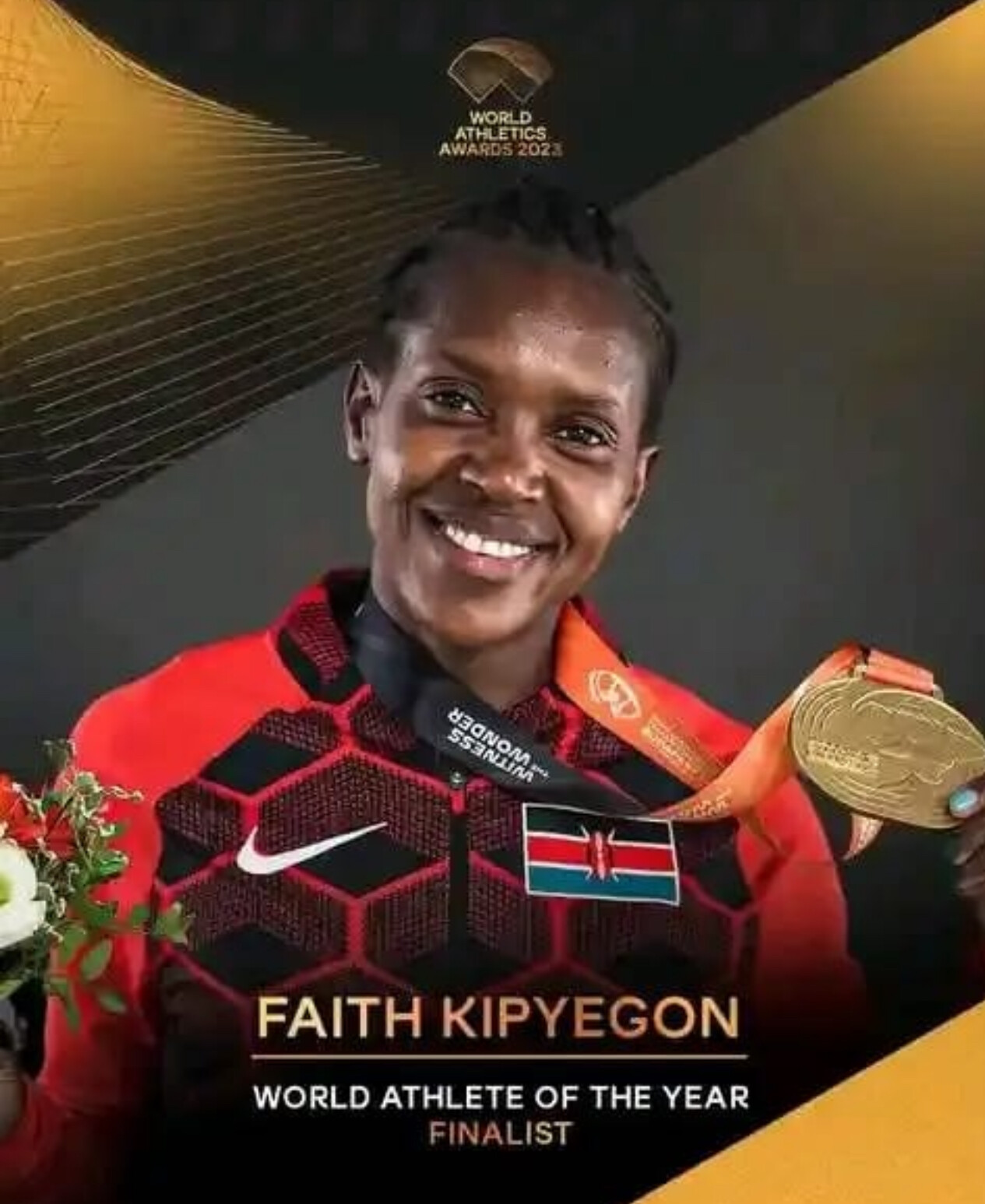
Kipyegon started the race tucked in behind Australia’s Jessica Hull, who paced the first 2000m with precision. Hull, the world record holder at 2000m (5:19.70 from July 2024), provided the ideal tempo before stepping aside, leaving Kipyegon to attack the final kilometer alone.
The Chase for History
With the green pacing light signaling world-record pace, Kipyegon powered through the last 1000m in a determined bid to eclipse the mark of 8:06.11. Down the final straight, it looked as though she might catch it, but she crossed just over a second shy.
Despite missing the world record by a whisker, Kipyegon’s 8:07.04 was good enough to rewrite multiple record books:
• Diamond League Record (DLR)
• African Record (AR)
• Meeting Record (MR)
• National Record (NR)
• World-Leading Time (WL)
Cementing Her Legacy
This performance reinforces Kipyegon’s dominance across distances from 1500m to 5000m. It also marks yet another historic milestone in a career already decorated with Olympic and World Championship titles.
Her run in Silesia was not only one of the fastest in history but also a reminder that she remains within touching distance of the 3000m world record — and that record may soon fall if she lines up for another attempt.
by Boris Baron
Login to leave a comment
A guide to the World Athletics Championships in Tokyo
Thousands of the world’s best athletes will head to Japan in September for the World Athletics Championships Tokyo 25.
The 20th edition of this prestigious competition will star more than 2000 athletes from some 200 countries as they compete for medals across 49 events during nine days of action from 13-21 September.
Which events are contested at the World Athletics Championships?
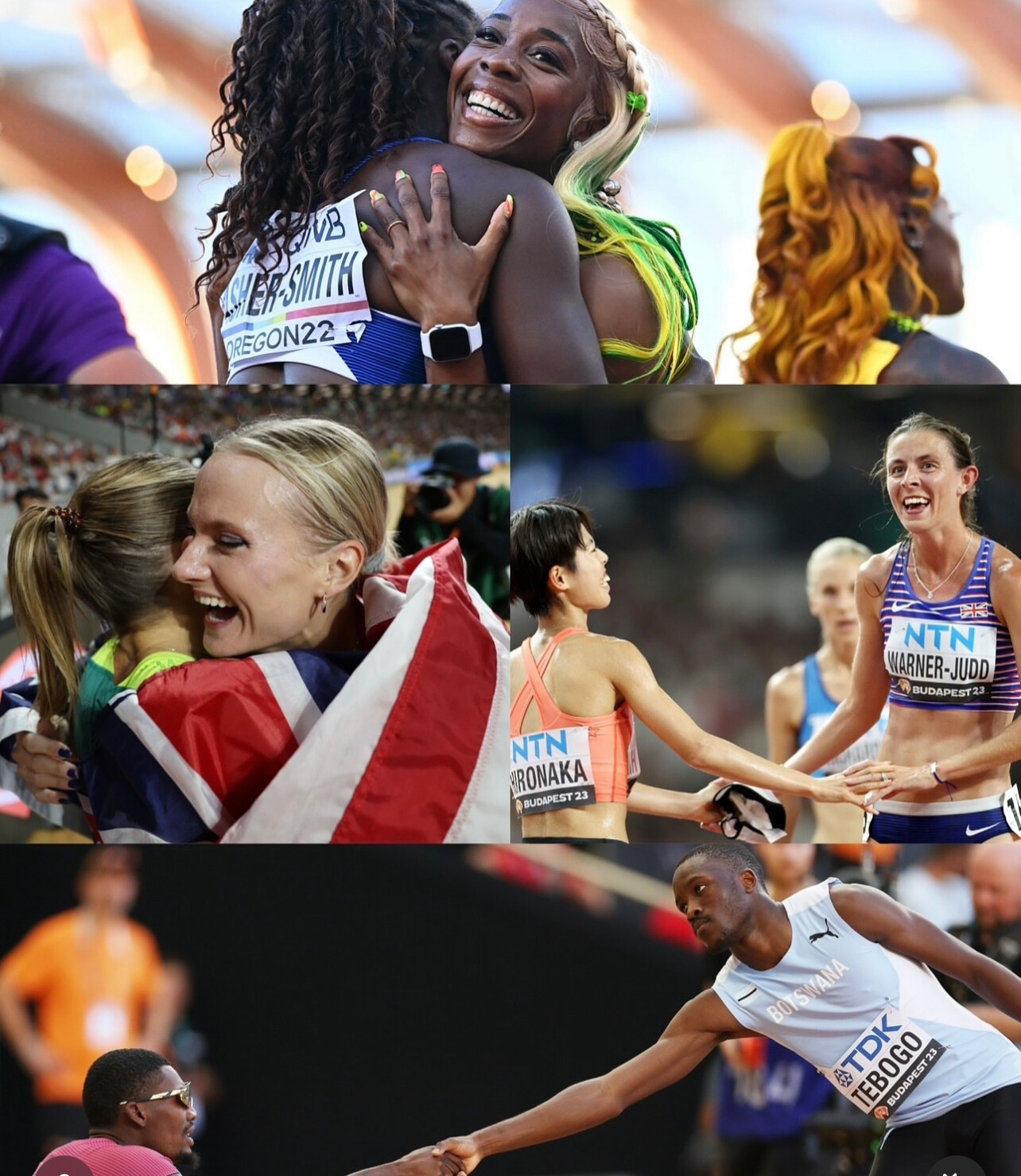
There are 49 events on the programme for the World Athletics Championships Tokyo 25, meaning 147 medals will be awarded across the nine action-packed days of competition.
There are an equal number of disciplines for women and men – 24 each and one mixed event.
The disciplines are:
• 100m – women and men• 200m – women and men• 400m – women and men• 800m – women and men• 1500m – women and men• 5000m – women and men• 10,000m – women and men• Marathon – women and men• 3000m steeplechase – women and men• 100m hurdles – women• 110m hurdles – men• 400m hurdles – women and men• heptathlon – women• decathlon – men• high jump – women and men• pole vault – women and men• long jump – women and men• triple jump – women and men• shot put – women and men• discus – women and men• hammer – women and men• javelin – women and men• 20km race walk – women and men• 35km race walk – women and men• 4x100m relay – women and men• 4x400m relay – women, men and mixed
Learn more about the various events on our dedicated disciplines page.
How do athletes qualify and gain selection for the World Athletics Championships Tokyo 25?
The qualification system is based on a combination of entry standards and world rankings. The qualifying window for the marathon was 5 November 2023 until 4 May 2025. For the 10,000m, 20km race walk, 35km race walk, combined events and relays, the window runs from 25 February 2024 to 24 August 2025. For all other events, entry standards can be achieved from 1 August 2024 to 24 August 2025.
The World Athletics Relays Guangzhou 25 was a qualifying event for the relays, with the top 14 teams in each discipline securing their place at the World Championships.
The Road to Tokyo online tool is designed to help athletes, fans and media track the qualification process. Searchable by event, country and qualification status, the tool provides a real-time view of each event over the course of the qualification period.
The tool does not, and will not, indicate which athletes have been selected for entry by their member federation. Final entries will be published nearer to the time of the World Championships.
Will athletes win prize money?
Individual athletes and relay teams will win prize money at the World Athletics Championships Tokyo 25. There is a total prize money pot of US$8,498,000.
Individuals1st US$70,0002nd US$35,0003rd US$22,0004th US$16,0005th US$11,0006th US$70007th US$60008th US$5000
Teams1st US$80,0002nd US$40,0003rd US$20,0004th US$16,0005th US$12,0006th US$80007th US$60008th US$4000
There is also a world record bonus of US$100,000.
Which athletes will be competing?
The world’s best athletes – including global champions and world record-holders – will be competing at the World Athletics Championships Tokyo 25.
The names of the athletes who will be there will not be certain until the qualifying window closes and nations select their teams.
Champions from the last edition of the World Championships in Budapest in 2023 include:
• Sweden’s world pole vault record-holder Mondo Duplantis• Kenya’s world 1500m record-holder Faith Kipyegon• USA’s double sprint champion Noah Lyles• Ukraine’s world high jump record-holder Yaroslava Mahuchikh• USA’s world shot put record-holder Ryan Crouser• Dutch Olympic and world 400m hurdles medallist Femke Bol• India’s Tokyo Olympic javelin champion Neeraj Chopra• Venezuela’s world triple jump record-holder Yulimar Rojas• Norwegian multiple world record-holder Jakob Ingebrigtsen• Japan’s Olympic javelin champion Haruka Kitaguchi
by World Athletics
Login to leave a comment
Jordan Guenther: The American Superfan Who Has Become a Beloved Part of Kenyan Athletics
In a sport often defined by national pride, few stories cut across borders like that of Jordan Guenther, an American who has become one of the most recognizable and beloved supporters of Kenyan athletics. Despite not being a coach, manager, or official, Guenther has carved out a unique space within the global running community—one built entirely on passion, consistency, and genuine admiration.
You might spot him at major championships in Paris, Budapest, or Eugene—not just in the stands, but shoulder to shoulder with the likes of Faith Kipyegon, Kelvin Kiptum, and Ruth Chepngetich, proudly wearing Kenyan gear and cheering louder than anyone.
From Fan to Family
Jordan’s journey into the heart of Kenyan athletics started simply—as a fan. But his actions quickly separated him from the crowd. He didn’t just cheer from afar. He learned Swahili. He wore the team colors. He showed up—again and again.
At the 2023 World Championships in Budapest, Faith Kipyegon, arguably the greatest female middle-distance runner in history, gifted him a race kit with her name printed on the bib. It was more than a gesture—it was an embrace.
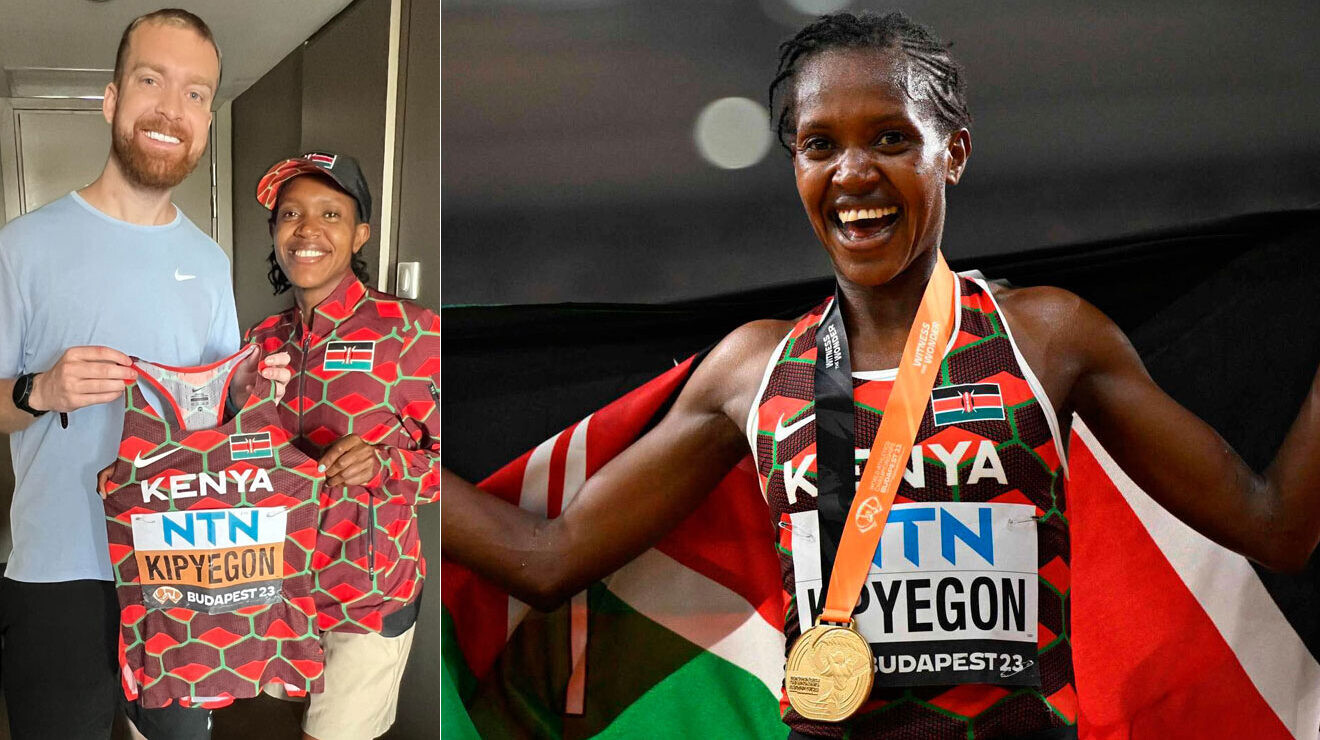
“He’s one of us,” said a Kenyan fan at the time. “More Kenyan than some Kenyans.”
The sentiment was echoed by many in the athletics community. Guenther was affectionately nicknamed “Kipchumba”, meaning “son of Kip” in Swahili, and his growing bond with Kenyan athletes became a story of its own.
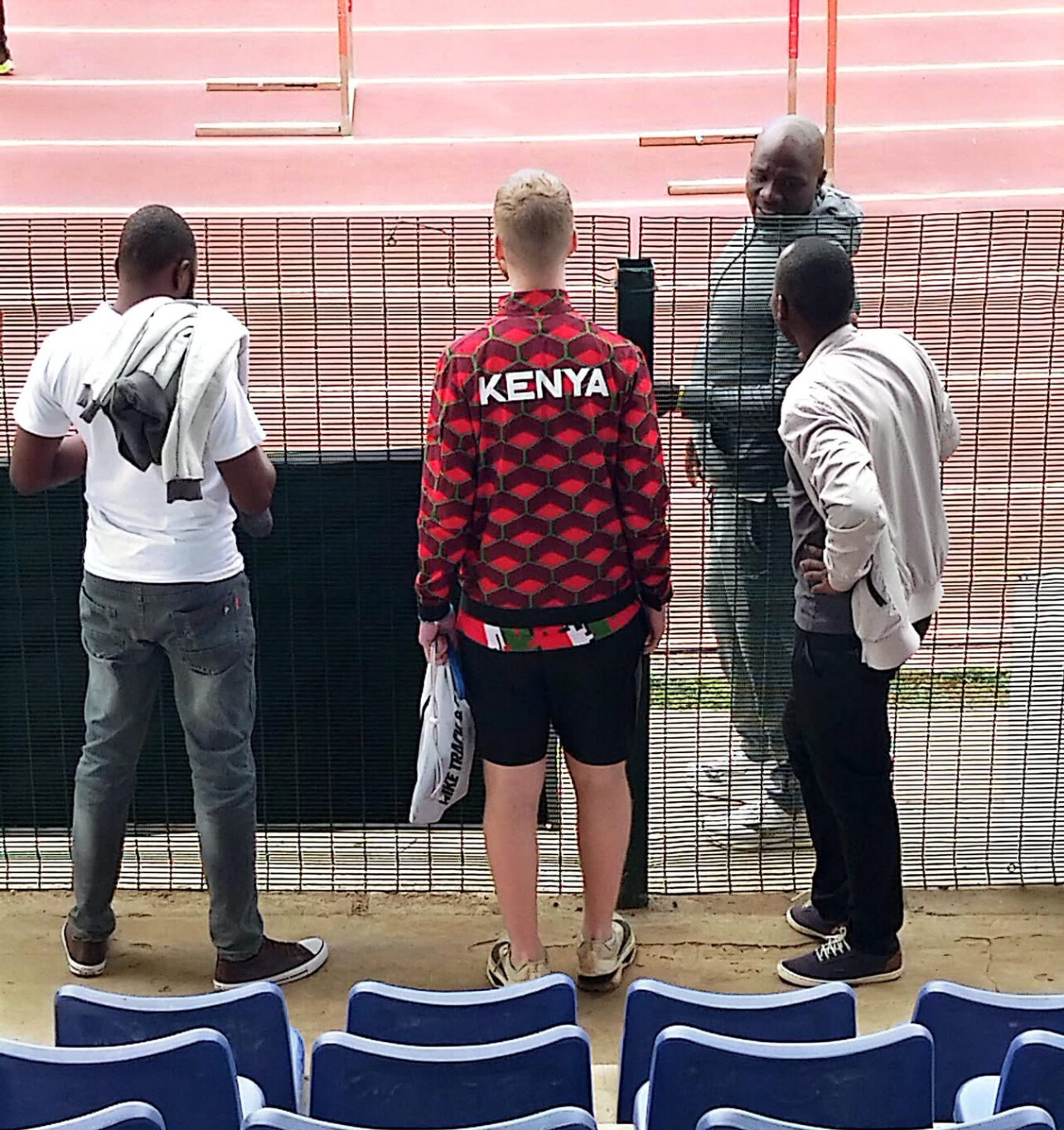
A Constant Presence
Guenther has attended countless major events around the world, often at his own expense. He has been spotted:
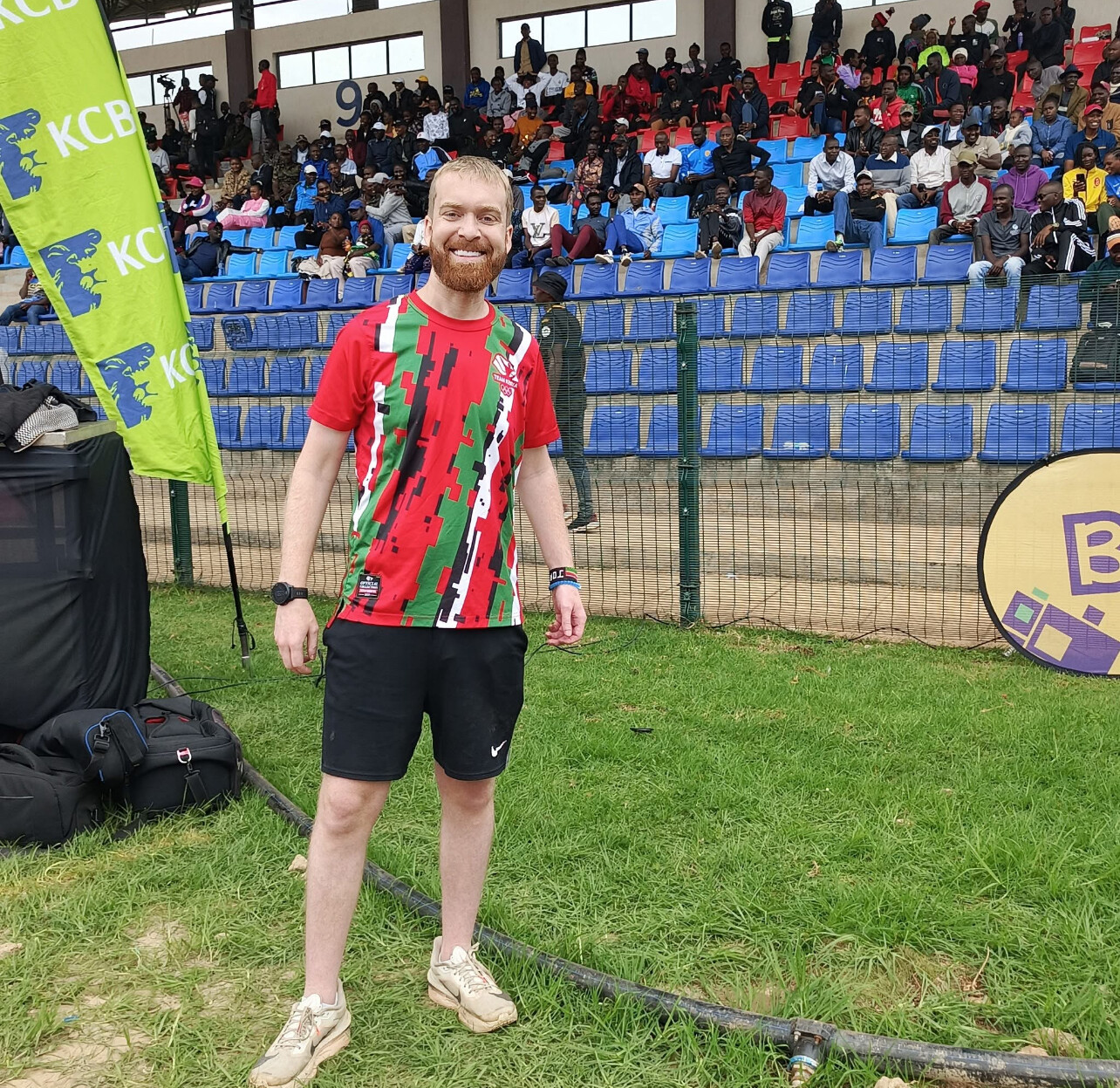
• Hosting pre-marathon meals with top stars like Benson Kipruto and Joyciline Jepkosgei
• Posing for photos in full Kenyan tracksuits
• Traveling to Paris, Monaco, and Nairobi to support athletes not just in competition—but in spirit
His unwavering dedication has made him a symbol of what sports fandom can be: personal, respectful, and deeply felt.
Behind the Scenes
Despite the growing attention, little is publicly known about Jordan’s background or source of income. He maintains a low profile online and is not affiliated with any official athletic federation. What is clear is that his commitment is real and lasting—and that athletes trust him.
The Kenya Tourism Board even highlighted Guenther in promotional materials, recognizing his unique role in promoting the country’s sports culture on a global stage.
“He doesn’t do it for the cameras,” said one coach. “He does it because he cares.”
Why It Matters
In a world where sports often feel transactional, Guenther represents something purer. His story is a reminder that connection doesn’t require contracts—it requires consistency. And that love for a team, a country, or a culture can transcend boundaries.
At a time when global athletics is searching for new audiences and deeper engagement, the story of Jordan Guenther offers a blueprint: show up, give respect, and let your actions speak louder than your voice.
Jordan Guenther may not hold a title, but he holds the respect of some of the greatest athletes in the world. And in the global family of distance running, he’s not just a fan—he’s one of the tribe.
by Boris Baron
Login to leave a comment
Sinclaire Johnson Breaks American Mile Record with 4:16.32 at London Diamond League
London, July 19, 2025 – In a race that lit up the track with historic speed, Sinclaire Johnson delivered a breakthrough performance, setting a new American and North American record in the mile with a time of 4:16.32 at the London Diamond League.
Johnson finished fourth overall in a blazing-fast women’s mile, one of the deepest in history, but her mark carved out a place in the record books. She broke the previous American record of 4:16.35 set by Nikki Hiltz in 2023—improving it by just three hundredths of a second.
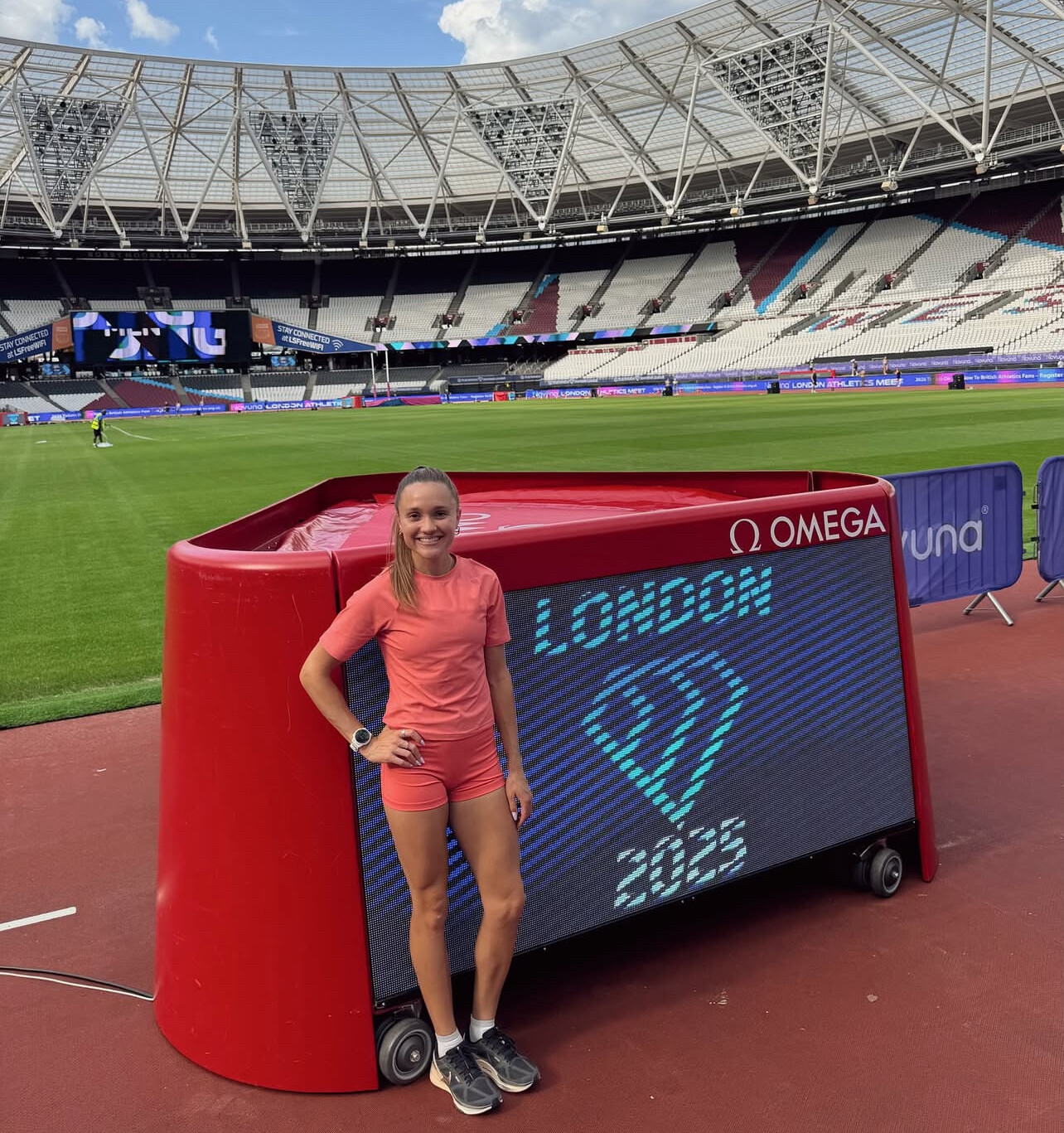
“It was a race where everything clicked,” Johnson said afterward. “I knew the field would be fast, and I just focused on hanging on and staying composed.”
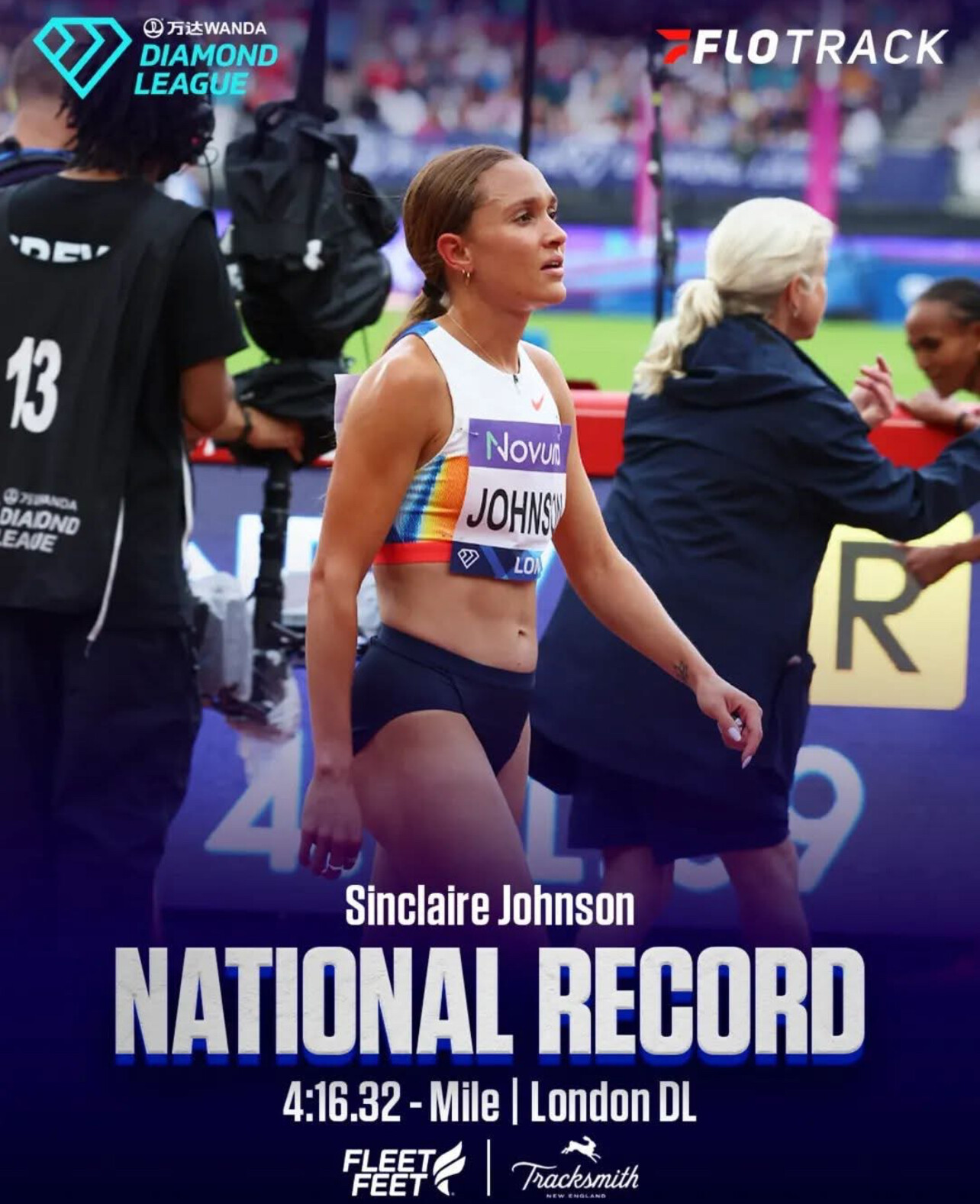
The field was stacked with some of the world’s most elite, and the pace was relentless from the gun. While the win went to Faith Kipyegon, who once again demonstrated why she’s one of the greatest milers of all time, Johnson’s run signaled that American middle-distance running is thriving on the global stage.
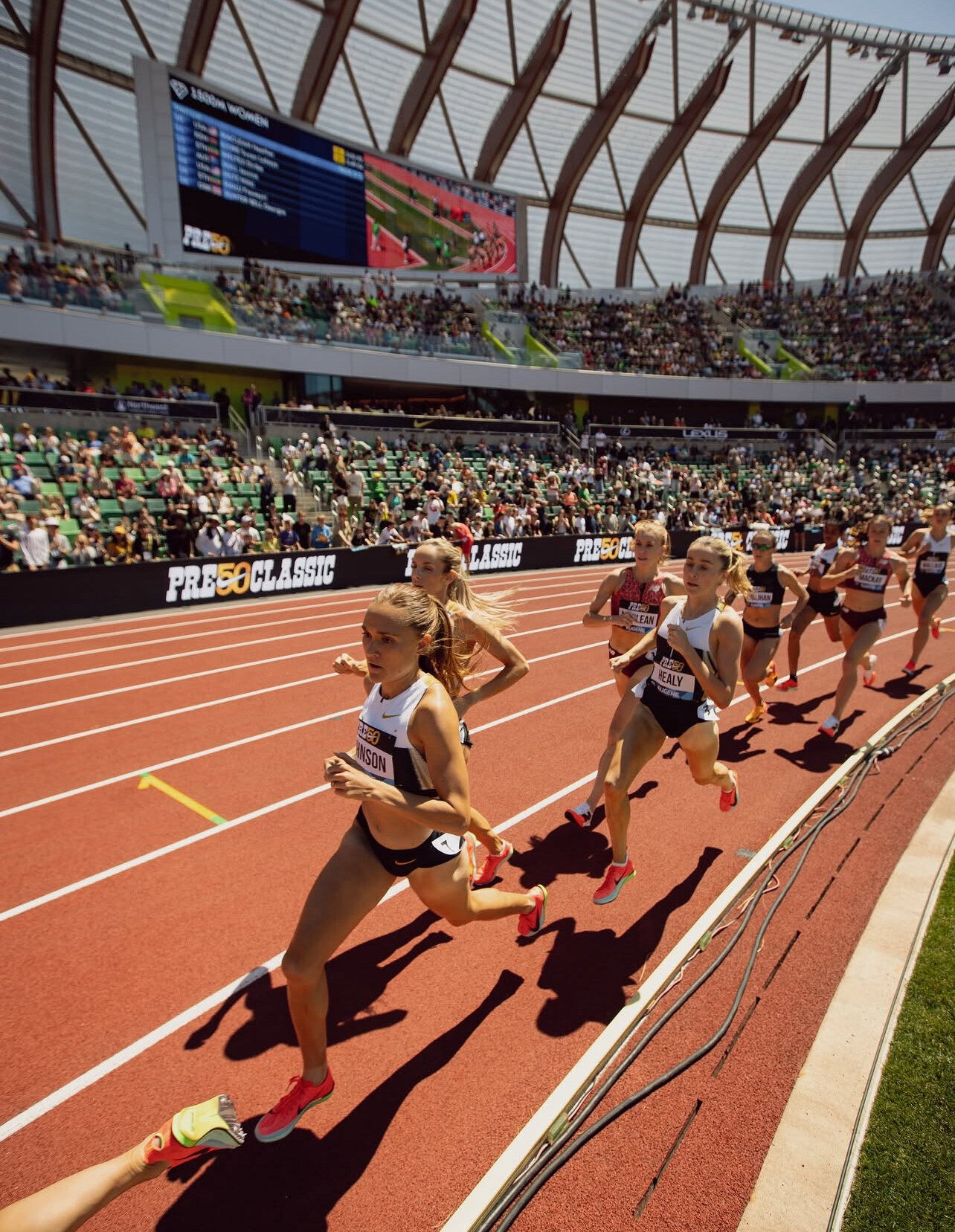
This wasn’t just a personal best—it was a statement.
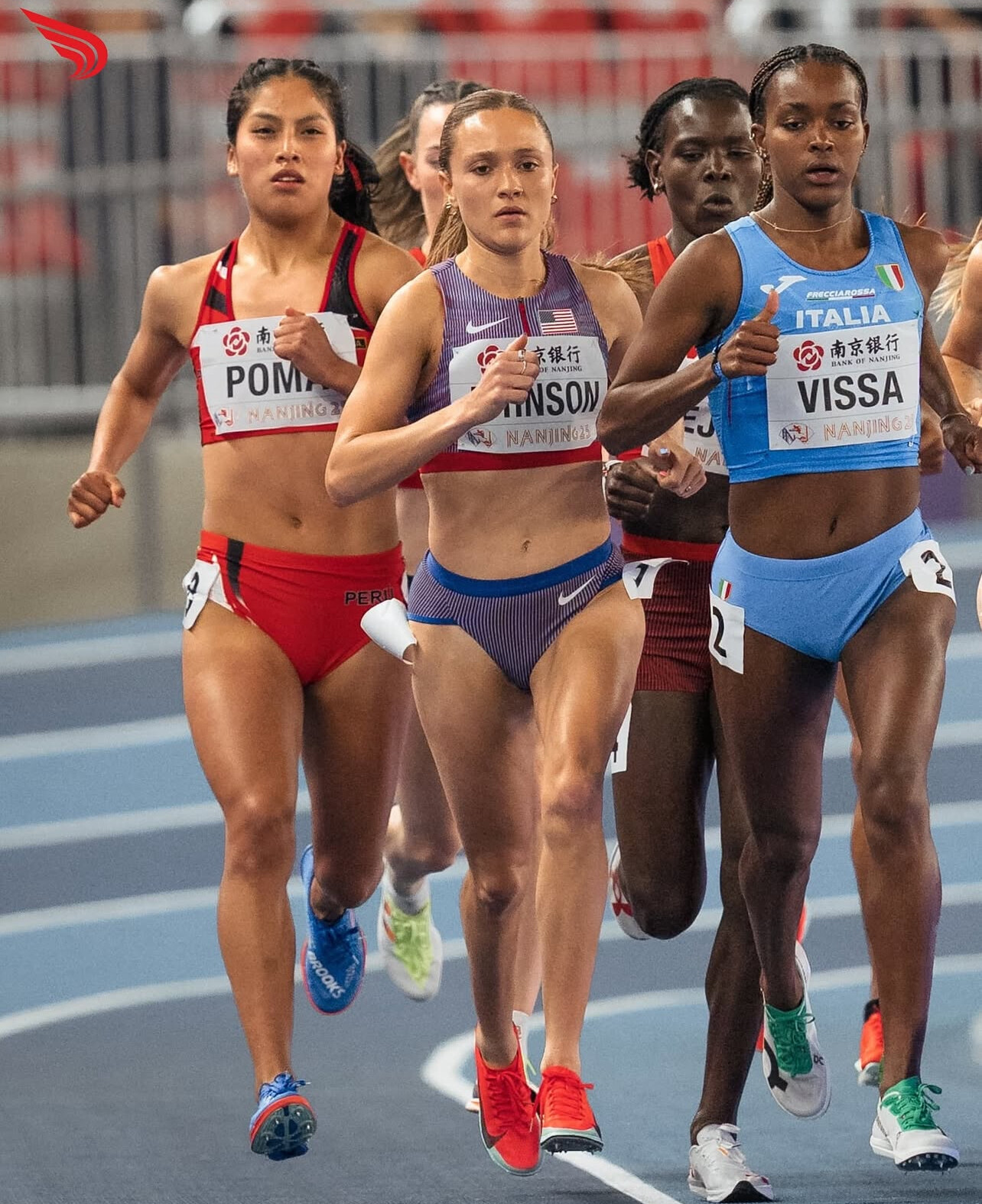
A Career on the Rise
Johnson, 26, has long been considered a top-tier talent in the 1500m and mile, but this performance confirms she’s entering her prime. She previously won the 2022 U.S. Outdoor 1500m title and has represented Team USA at multiple World Championships, but this is her first American record.
With the World Championships in Tokyo less than a month away, this performance couldn’t have come at a better time. Johnson now heads into the final stretch of the season as the fastest North American miler in history and a legitimate contender for a podium finish in Tokyo.
by Boris Baron
Login to leave a comment
Kenya’s Top Athletes to Compete for World Championships Spots at Trials on July 22
With the 2025 World Athletics Championships set to take place in Tokyo this September, Athletics Kenya has announced that the official national trials will be held at the Ulinzi Sports Complex in Nairobi on July 22, 2025.
The one-day meet will determine who earns the right to represent Kenya on the global stage—and with Tokyo hosting the championships, the stakes couldn’t be higher.
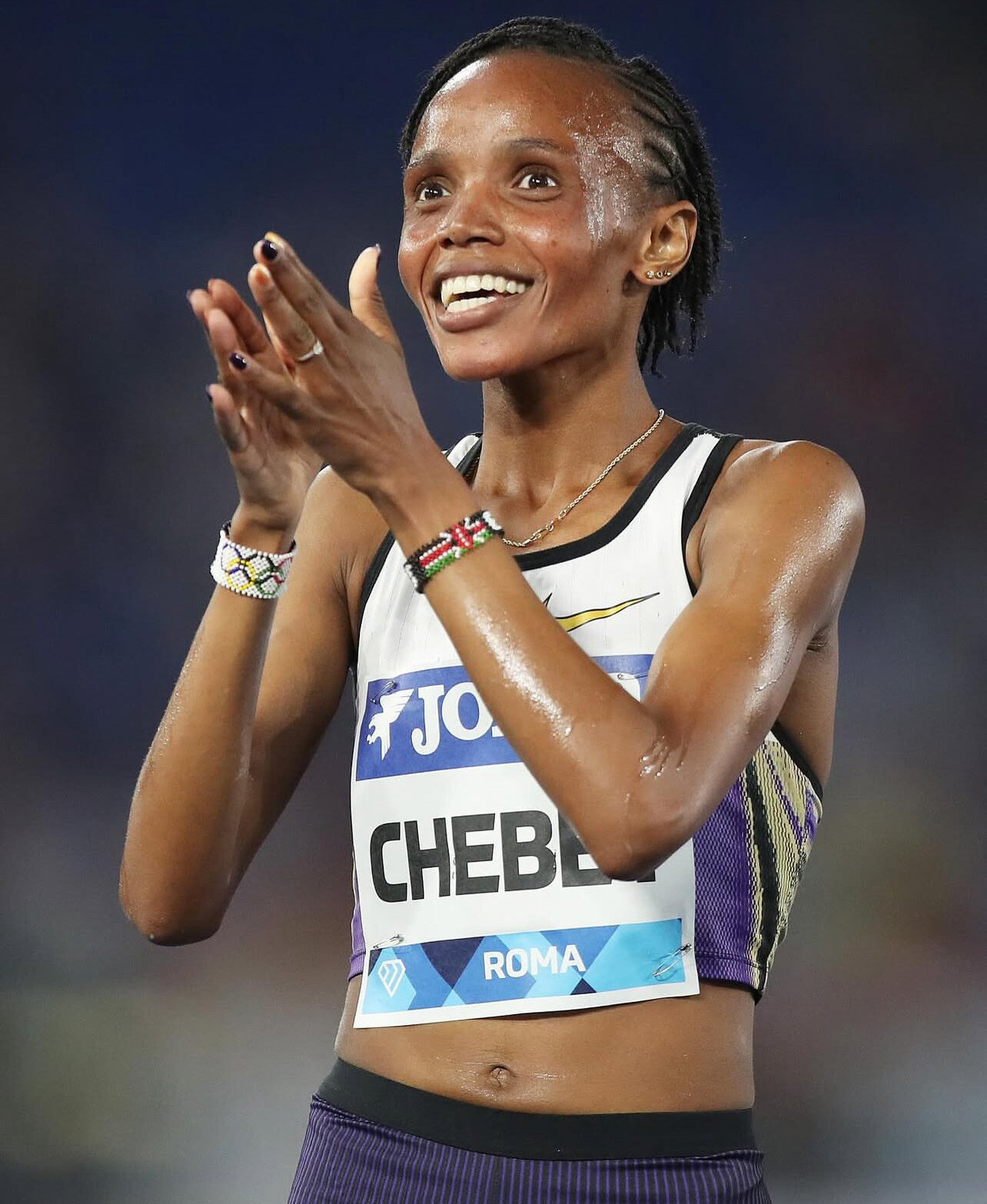
The Tokyo 2025 event is expected to draw the world’s best talent, and Kenya, known for its depth in middle and long-distance running, is aiming to field its strongest team yet. A number of top stars are expected to compete at the trials, including 100m national record-holder Ferdinand Omanyala, world steeplechase medalist Beatrice Chepkoech, 1500m ace Faith Kipyegon, and marathon standout Sharon Lokedi.
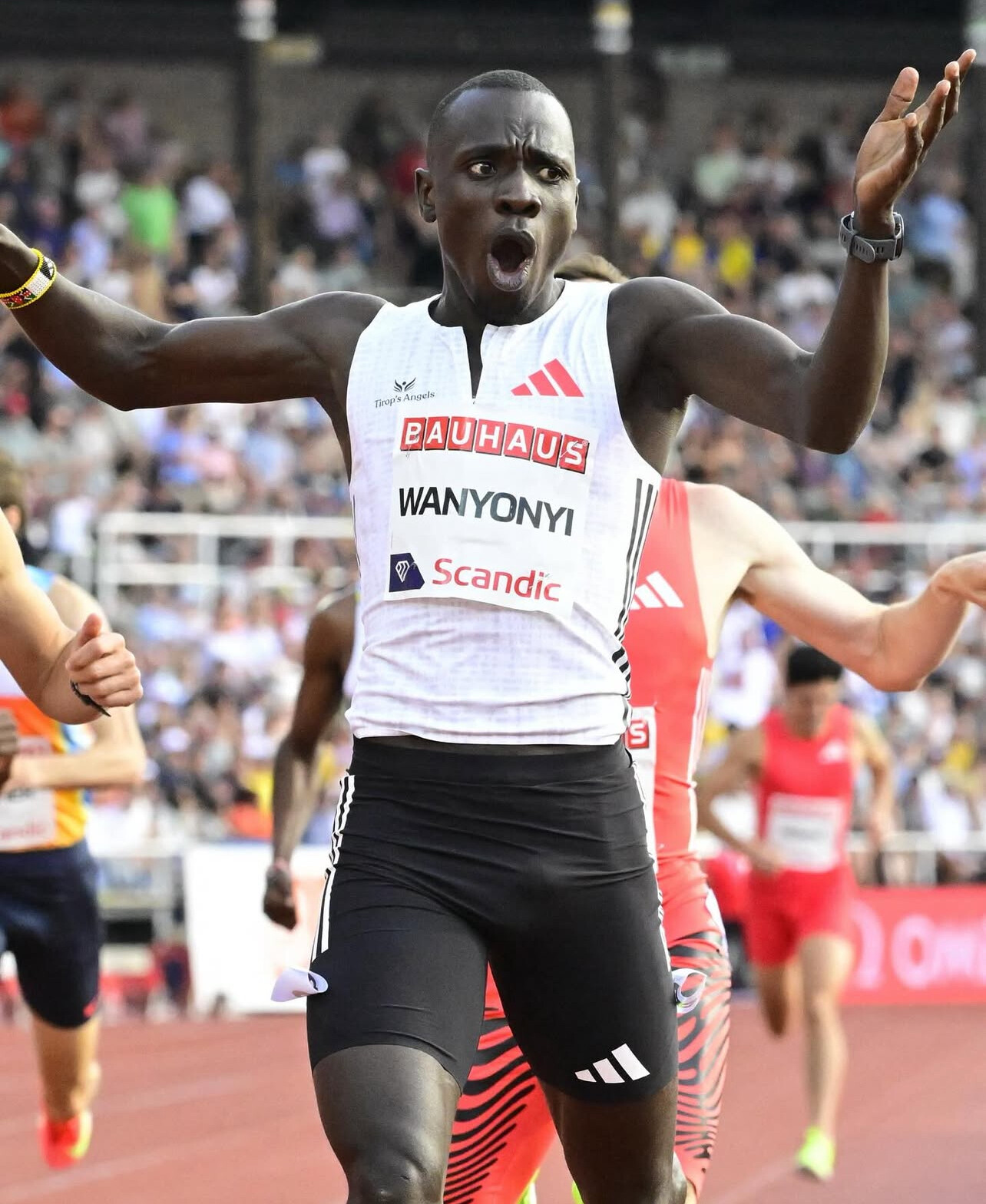
Though most of the attention will be on the track events, Kenya is also working to expand its representation in the field and sprints—areas where the country has shown recent promise.
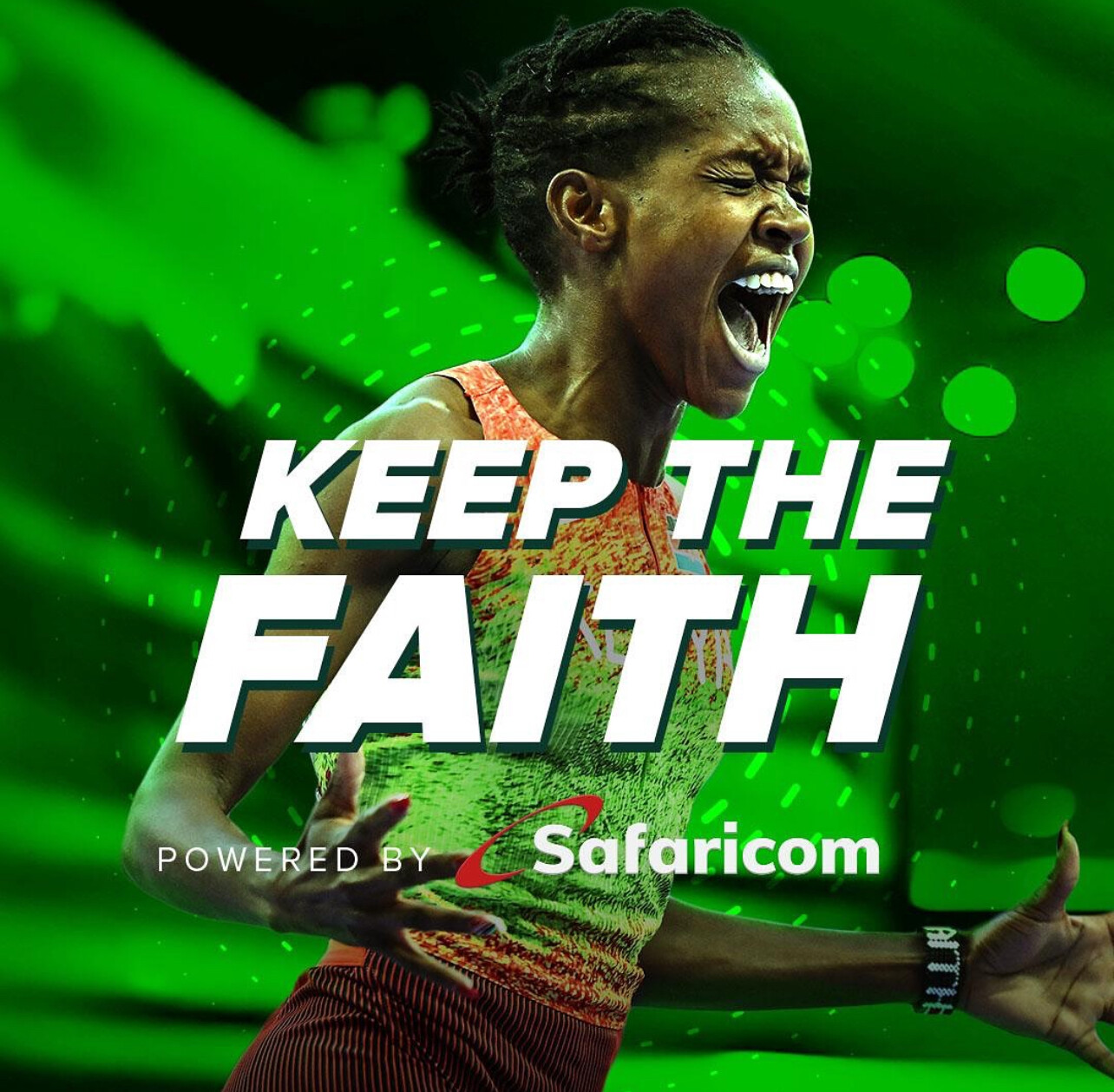
A Veiled but Historic World Championship Ahead
The Tokyo 2025 World Championships mark the first time Japan will host the event since 1991 in Tokyo—when legendary performances, including Mike Powell’s world long jump record, rewrote the sport’s history books.
The 2025 edition, however, arrives amid a more complex and veiled atmosphere in the sport. With lingering questions about past doping scandals—including renewed attention to China’s 1990s distance-running records—many in the athletics community are calling for clean and transparent competition.
Kenya is no exception. The country remains under close international scrutiny but has made visible strides in testing, education, and compliance with global anti-doping standards.
What to Watch
• Will Faith Kipyegon aim to double in the 1500m and 5000m again?
• Can Omanyala convert his sub-10 form into a world medal?
• Will a new generation of Kenyan athletes step up in the sprints and field events?
The July 22 trials in Nairobi will offer the first answers. Expect fireworks—and a preview of what Team Kenya might look like in Tokyo.
by Boris Baron
Login to leave a comment
Faith Kipyegon to Race 3000m in Silesia – Is the World Record in Sight?
World 1500m record-holder Faith Kipyegon will race the 3000 meters at the Silesia Kamila Skolimowska Memorial on August 16, setting up what could be one of the most anticipated moments of the 2025 track season.
The Kenyan star has been rewriting the history books. Over the past year, she set new world records in the 1500m (3:48.68) and 5000m (14:05.20), and ran the fastest women’s mile ever in an unofficial exhibition event in Paris. Now she’s turning her attention to the 3000m—an event she hasn’t run seriously in over a decade.
A Decade Later, a Return to 3000m
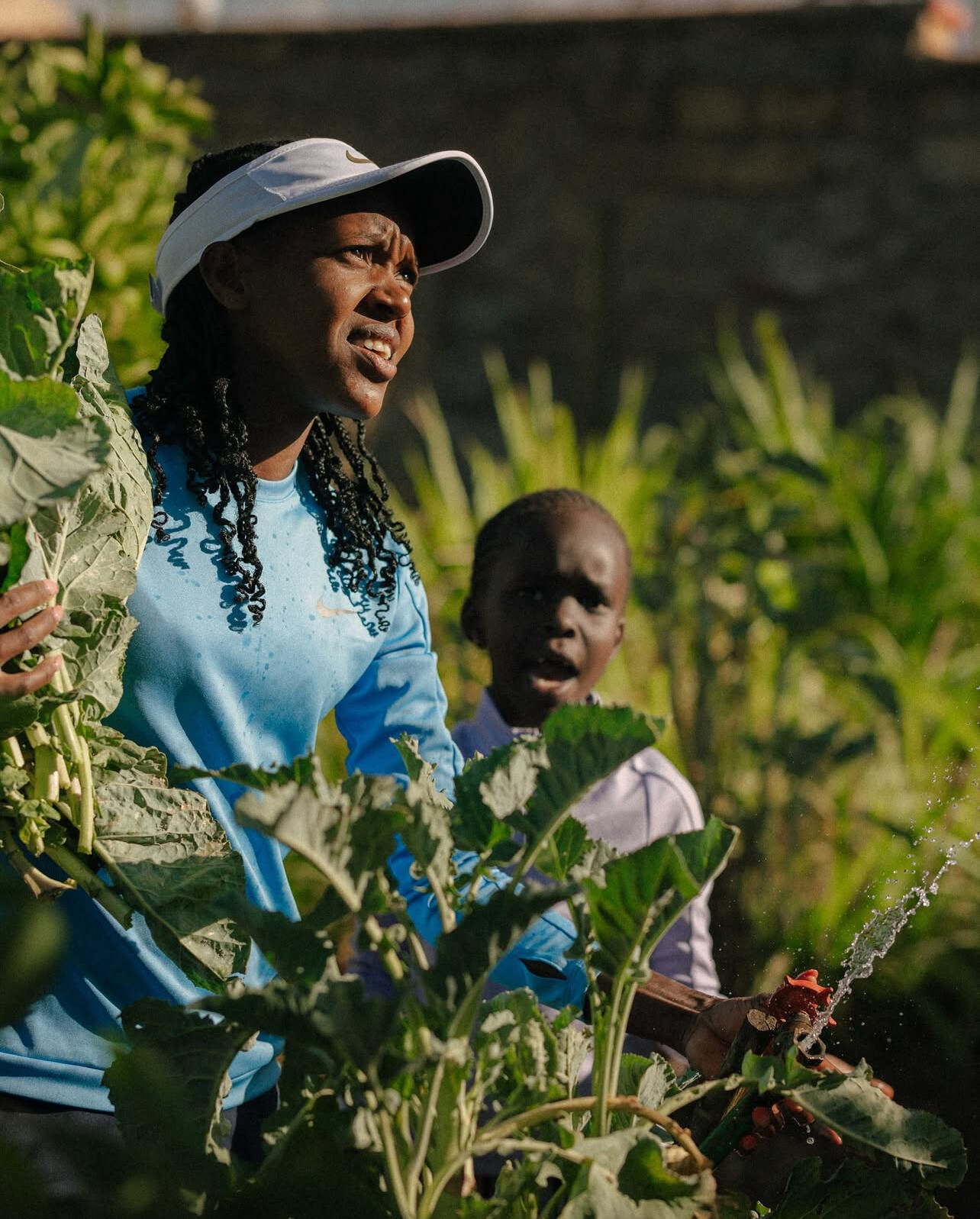
Kipyegon’s personal best of 8:23.55 was set in 2014 when she was just 20. Since then, she’s become a global icon—earning three Olympic gold medals, multiple world records, and establishing herself as the most dominant female middle-distance runner of her generation.
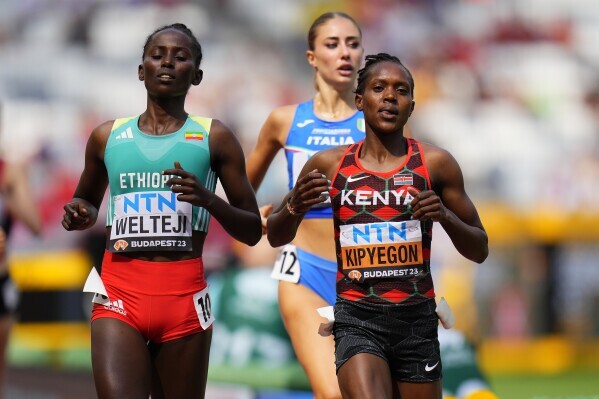
Now, with a combination of endurance from her 5000m training and unmatched speed honed in the 1500m, Kipyegon is poised to take a serious shot at history.
The Record She Might Be Chasing
The current women’s 3000m world record:
• 8:06.11 – Wang Junxia (China), set on September 13, 1993 in Beijing.
That mark has stood for more than 30 years—but it remains controversial. In 2015, a letter reportedly written by Wang Junxia in 1995 surfaced, in which she and nine teammates alleged they were forced to take “large doses of illegal drugs over the years” as part of a state-sponsored doping program under the direction of their coach, Ma Junren.
Wang wrote that the women “tried to refuse the drugs,” but that Ma would allegedly inject them himself if necessary. The letter was sent to Chinese journalist Zhao Yu but remained unpublished until decades later. Ma has consistently denied any doping allegations, and Wang’s world record still stands officially—despite renewed scrutiny.
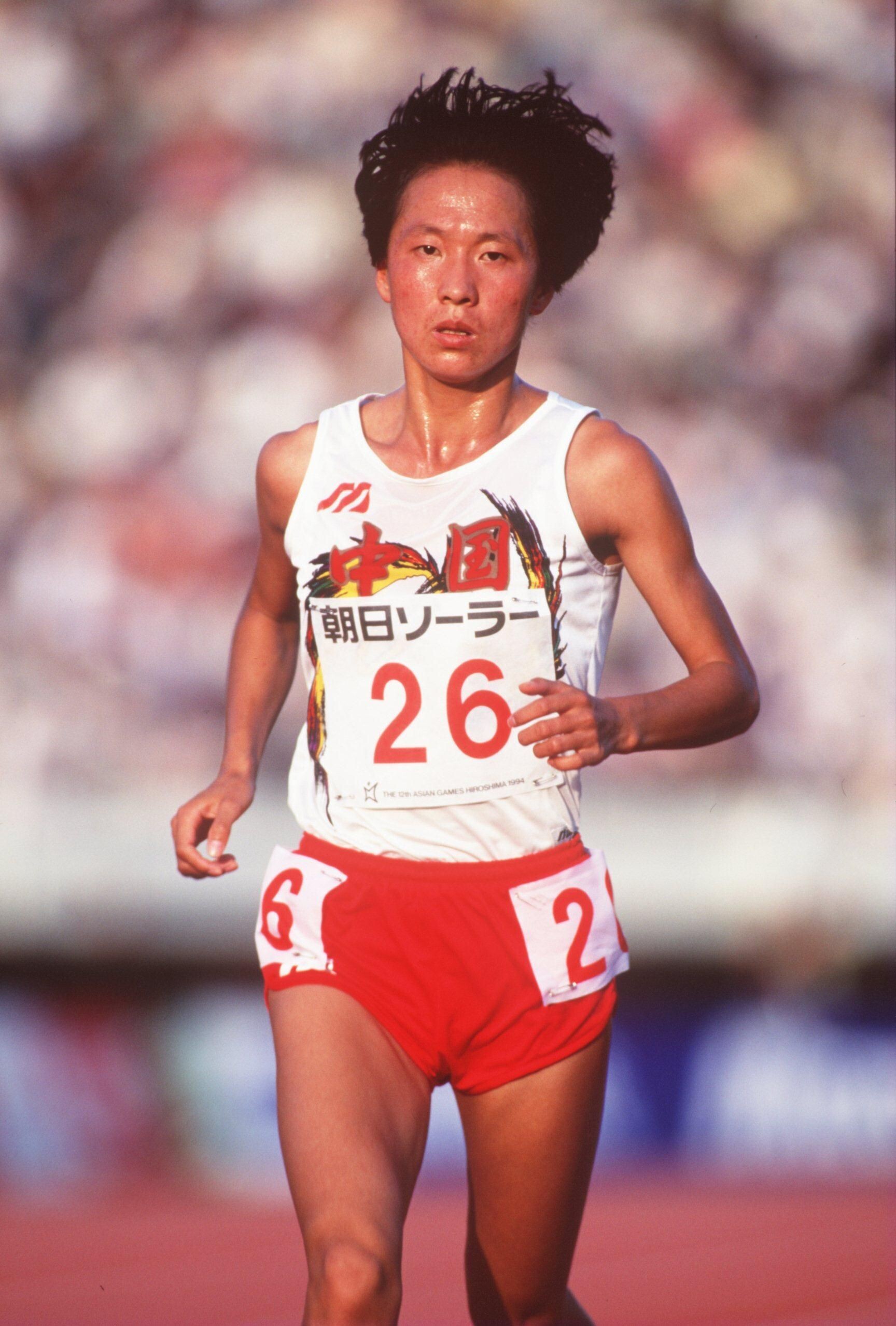
In response, the IAAF (now World Athletics) opened an investigation at the time, but as of today, the record has not been invalidated.
Why Silesia Matters
If Faith Kipyegon runs in the 8:10–8:15 range, it would mark one of the cleanest and most credible performances in the history of the event. Should she go even faster, it could position her to break or at least redefine the context of the 3000m record.
Few athletes in history have had the range, poise, and championship pedigree that Kipyegon carries. With the eyes of the world on Silesia this August, she may once again elevate the sport.
Is a new world record possible? We’ll find out soon.
If she does it, Faith Kipyegon won’t just rewrite another line in the record books—she’ll help reclaim one of the most contested chapters in women’s distance running.
by Boris Baron
Login to leave a comment
Monaco Diamond League Preview: Distance Fireworks Expected from 800m to 5000m
The prestigious Monaco Diamond League meet is set to ignite the track today, with a thrilling lineup of distance races headlined by Olympic medalists, world record holders, and rising stars. With world-best times under threat, all eyes turn to Monaco’s lightning-fast track where history is often made July 11.
Men’s 800m – 2:23 p.m. ET
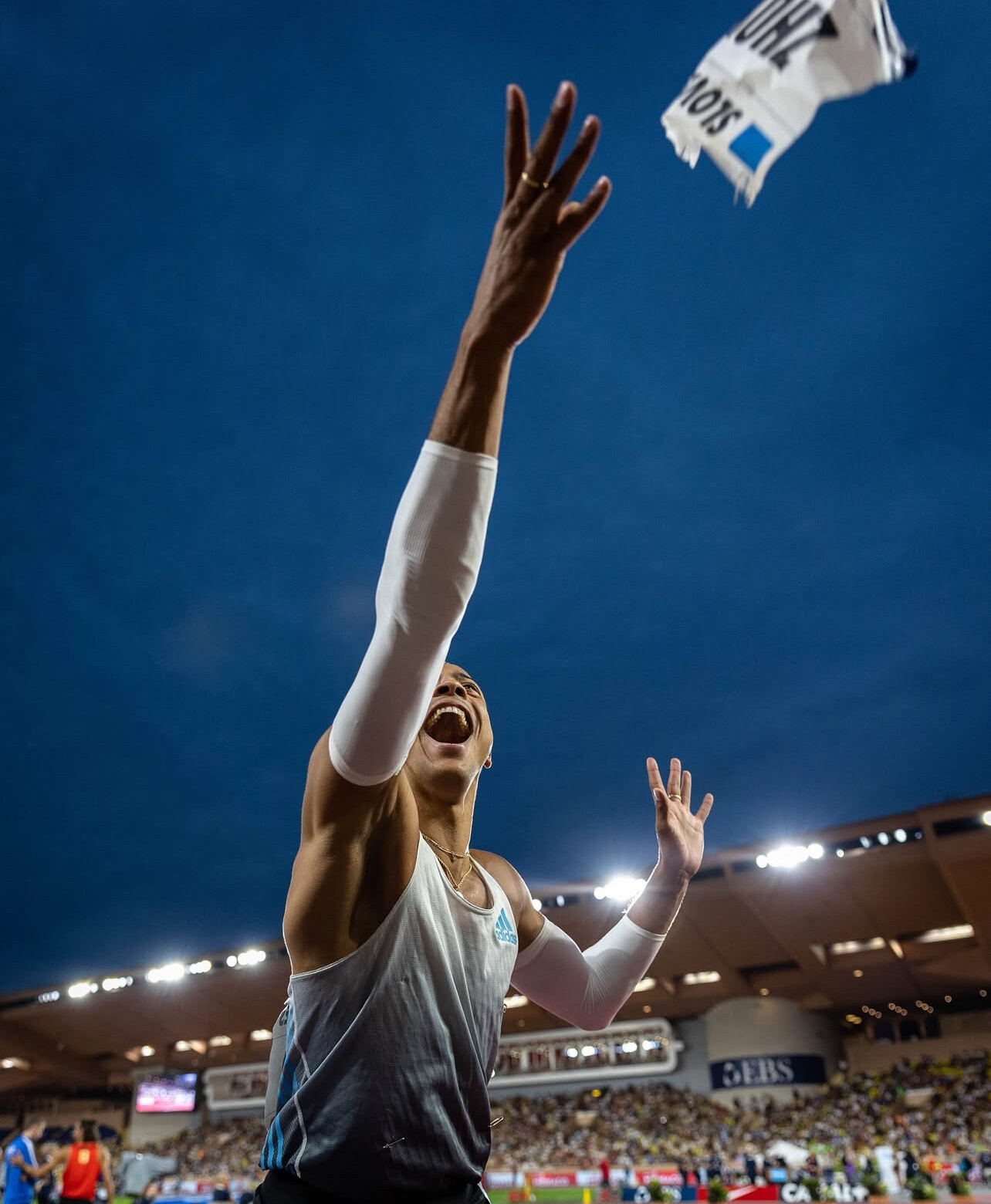
Arguably the most anticipated race of the day, the men’s 800m features seven of the eight Olympic finalists, and talk of David Rudisha’s legendary 1:40.91 world record is swirling. The pace will be red-hot, with athletes hungry to establish themselves ahead of the Paris Olympics.

Expect fireworks early. The pacing is likely to be aggressive, and with such a deep field, a sub-1:43 clocking may not even guarantee a podium spot. With a record on the line, this race is not to be missed.
Women’s 1000m – 2:43 p.m. ET

The rarely-run but always-exciting 1000m could see the 28-year-old world record of 2:28.98, set by Svetlana Masterkova in 1996, finally fall. Faith Kipyegon, the undisputed queen of middle distance, came close with a 2:29.21 earlier this year and owns the second-fastest time ever. She’s the clear favorite to take another crack at history.
Australia’s Jess Hull brings impressive credentials too, coming off a 3:52.67 1500m (the third-best of her career) and showing solid speed with a 1:58.58 800m PB. Also in the mix are:
• Mary Moraa, 800m world champion, with a 2:33.43 1000m PB,
• Nelly Jepchirchir (2:31.24 PB),
• Jemma Reekie (2:31.11 PB),
• Sinclaire Johnson and Addy Wiley, both looking to move up in distance.
With a blend of speed and endurance, this event has record-breaking potential.
Men’s 5000m – 3:05 p.m. ET
Seven men in today’s lineup have broken 12:50 this season, promising one of the fastest 5000m races of the year. Ethiopian sensation Biniam Mehari, just 18 years old, recently stunned with a 26:43.8210,000m win at the Pre Classic and a 12:45.93 at the Oslo Diamond League, where much of the spotlight went to Nico Young’s American record.
Sweden’s Andreas Almgren enters with momentum after clocking a 12:44.27 European record, currently the fastest time in the world this year.
The Ethiopian federation will be watching closely, as Yomif Kejelcha (12:47.84) and Hagos Gebrhiwetare also lining up—both seasoned athletes capable of upsets.
Final Word
Monaco has a storied history of delivering some of the fastest middle-distance times on the planet. With stars like Kipyegon, Mehari, and Almgren peaking at just the right time, the stage is set for records to be rewritten.
Stay tuned. If there’s ever a day to witness distance running greatness, this is it.
by Boris Baron
Login to leave a comment
Faith Kipyegon Sets New 1500m World Record with 3:48.68 at 2025 Prefontaine Classic
Faith Kipyegon continues to redefine greatness in women’s middle-distance running. On July 5, 2025, at the Prefontaine Classic in Eugene, Oregon, the Kenyan superstar set a new world record in the 1500m, clocking 3:48.68 and breaking her own previous mark of 3:49.04 set just a year earlier.
The Hayward Field crowd witnessed another chapter in what is becoming one of the most dominant careers the sport has ever seen.
Sharpened Focus, Sharper Speed
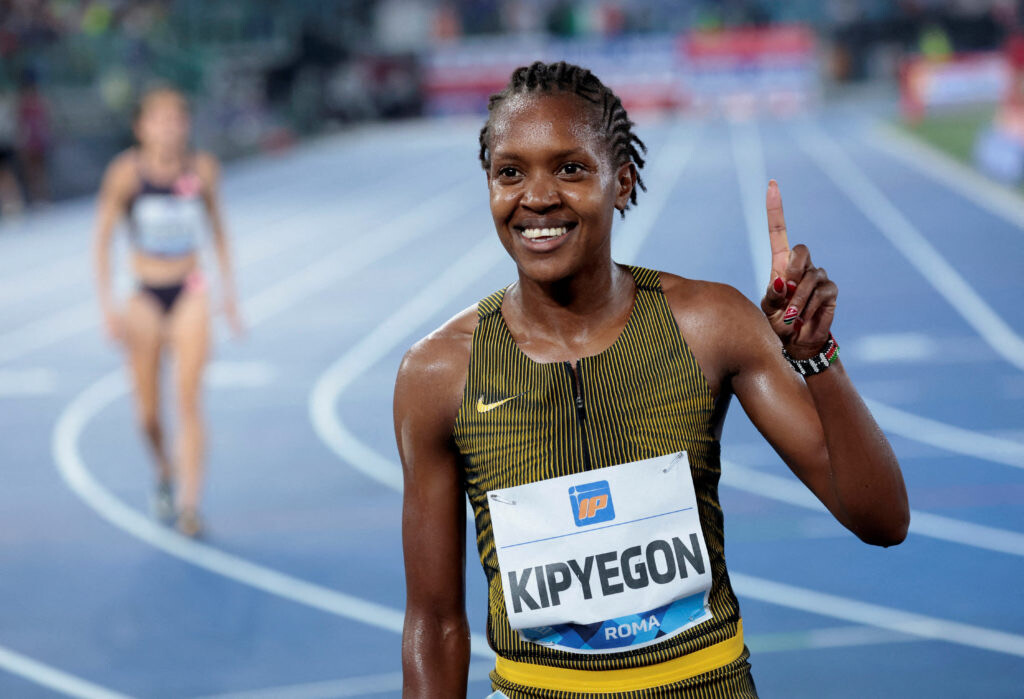
Kipyegon, already a two-time Olympic champion and multiple-time world champion, executed a flawless race. After a steady opening 800m behind the pacemaker, she began to pick up the tempo in lap three before unleashing her signature kick over the final 300 meters.
Her time of 3:48.68 now stands as the fastest women’s 1500m ever recorded — shaving more than three-tenths of a second off her previous world record from 2024.
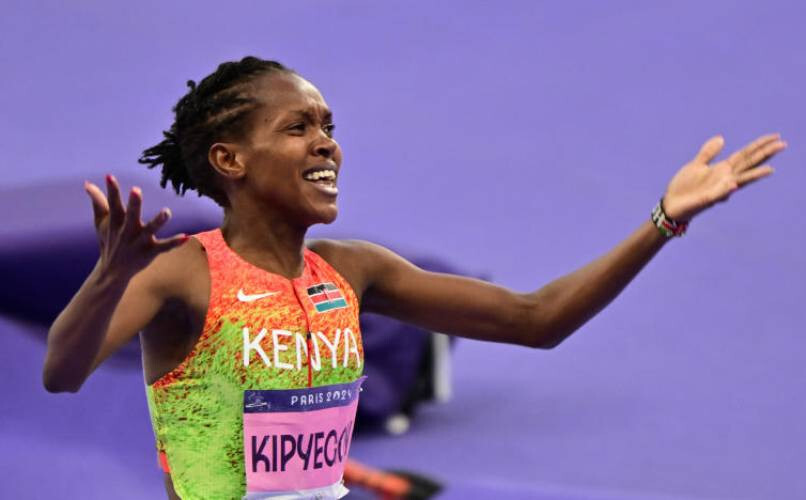
“I knew I was in shape to do something special,” said Kipyegon after the race. “Breaking the world record again, right here in front of this crowd, is a dream come true.”
One of the Greatest Careers in Track History
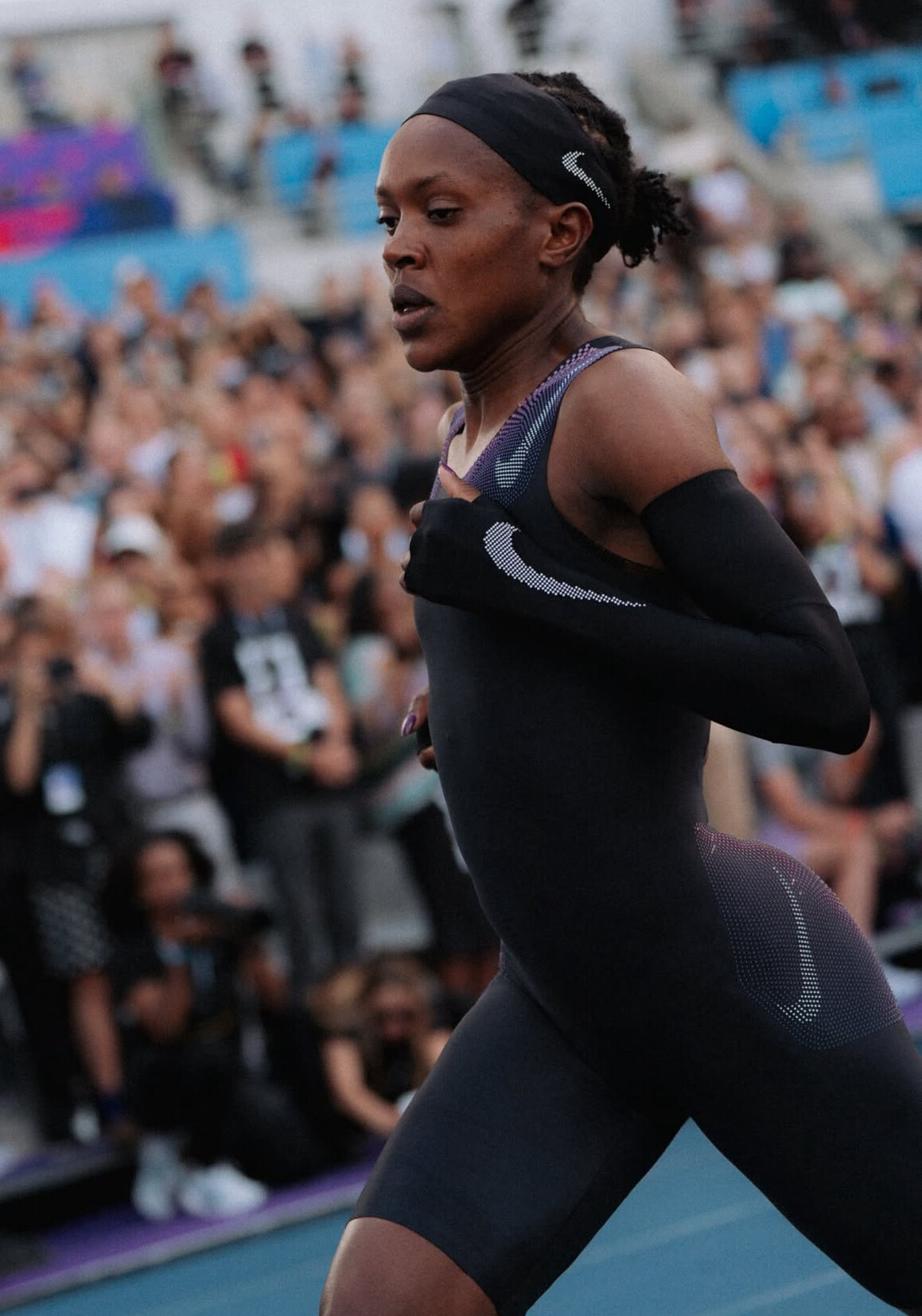
With this latest record, Kipyegon has now broken three world records in just over a year — the 1500m, mile, and 5000m — showcasing a range and consistency few have ever matched.
Her ability to dominate both the 1500m and 5000m places her in a category all her own. And after winning double gold in both events at the 2024 Paris Olympics, her legend continues to grow.
What’s coming up for Faith
With the 2026 World Championships in Tokyo looming, Kipyegon’s momentum couldn’t be stronger. She’s not just chasing titles — she’s rewriting the sport’s history.
As the only woman in history to run both sub-3:49 in the 1500m and sub-14 in the 5000m, Faith Kipyegon isn’t just winning races — she’s reshaping the limits of human performance.
by Boris Baron
Login to leave a comment
Prefontaine Classic
The Pre Classic, part of the Diamond League series of international meets featuring Olympic-level athletes, is scheduled to be held at the new Hayward Field in Eugene. The Prefontaine Classicis the longest-running outdoor invitational track & field meet in America and is part of the elite Wanda Diamond League of meets held worldwide annually. The Pre Classic’s results score has...
more...From Dirt Roads to Global Dreams: Inside Kenya’s Fastest-Growing Running Movement
In the heart of Kenya’s Rift Valley and beyond, a quiet revolution in athletics is underway. What began as a modest idea has grown into a dynamic movement that now spans 19 KATA Running Camps and Potato Farms across Kenya—plus two international retreats, including one at the historic Anderson Manor in Monforte da Beira, Portugal.
And it’s happening fast.
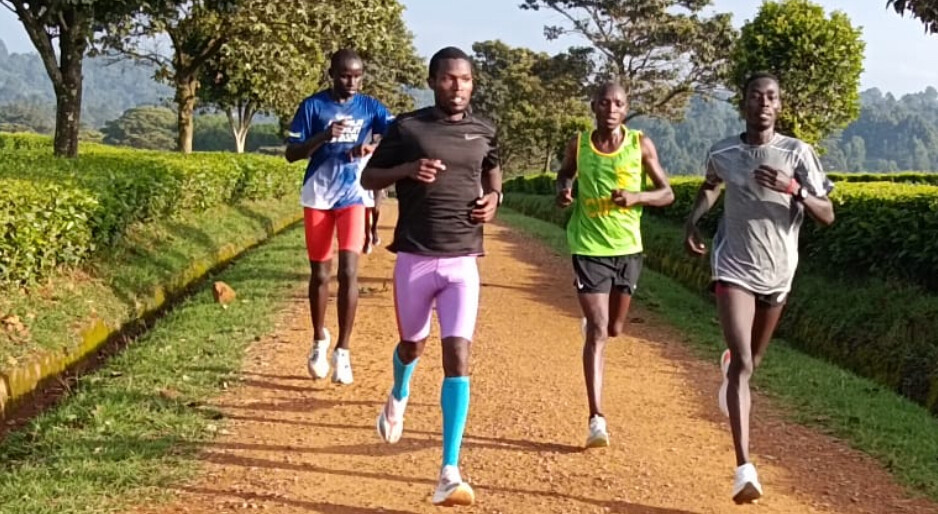
“We never planned to expand this quickly,” says Bob Anderson, founder of KATA and a lifelong advocate for long-distance running. “But the momentum of this movement just couldn’t be slowed down. We’ll be confirming one more camp shortly, and additional locations will follow in early 2026.”
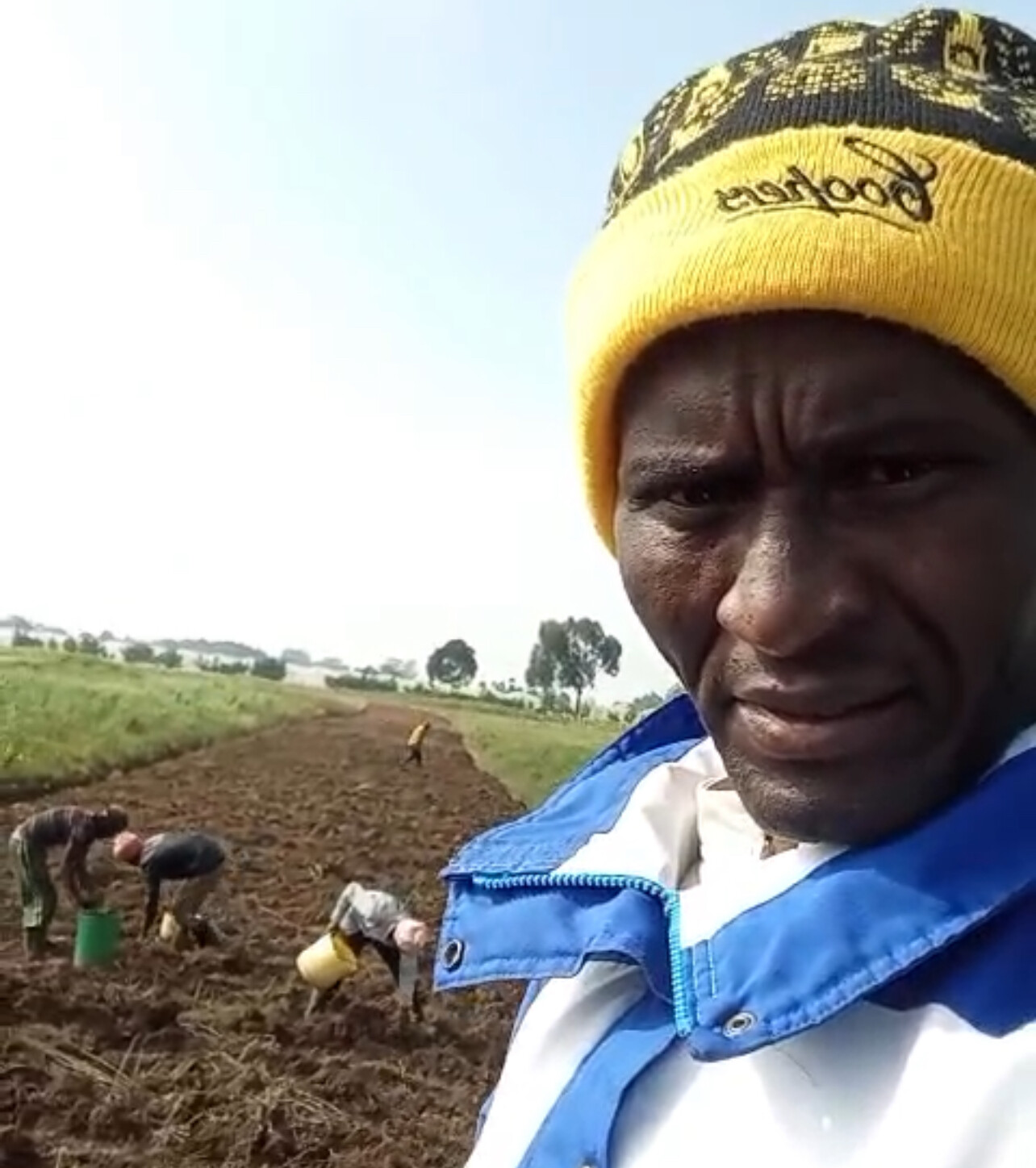
KATA—short for Kenyan Athletics Training Academy—is unlike anything else in the world of distance running. It blends elite training with economic empowerment, giving young athletes not only the tools to run fast, but also a system that sustains them—and their communities—beyond the track.
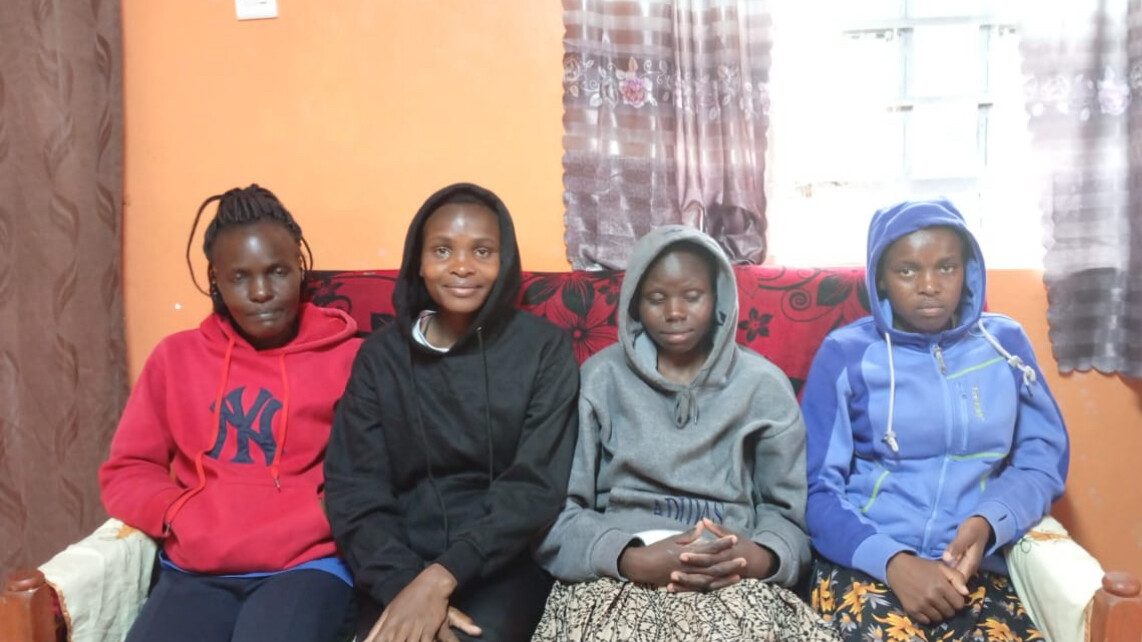
“This is not just sports development,” says Brigid Chebet, a Kenyan journalist who has closely followed the program. “It’s a model of rural transformation through athletics. And Kenya may finally have found a winning formula for generations to come.”
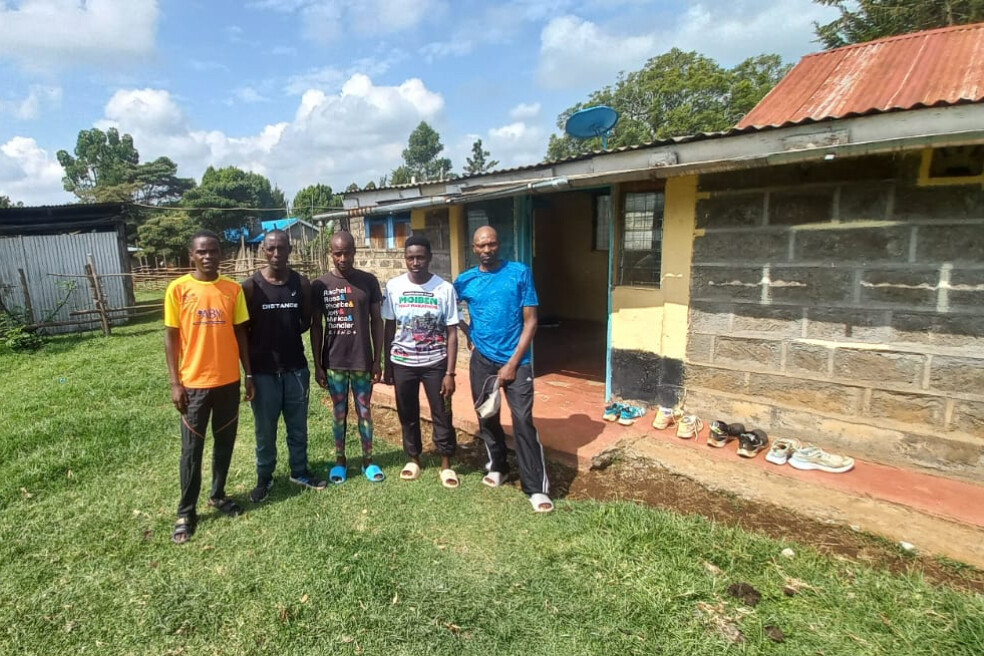
From a Vision to a Movement
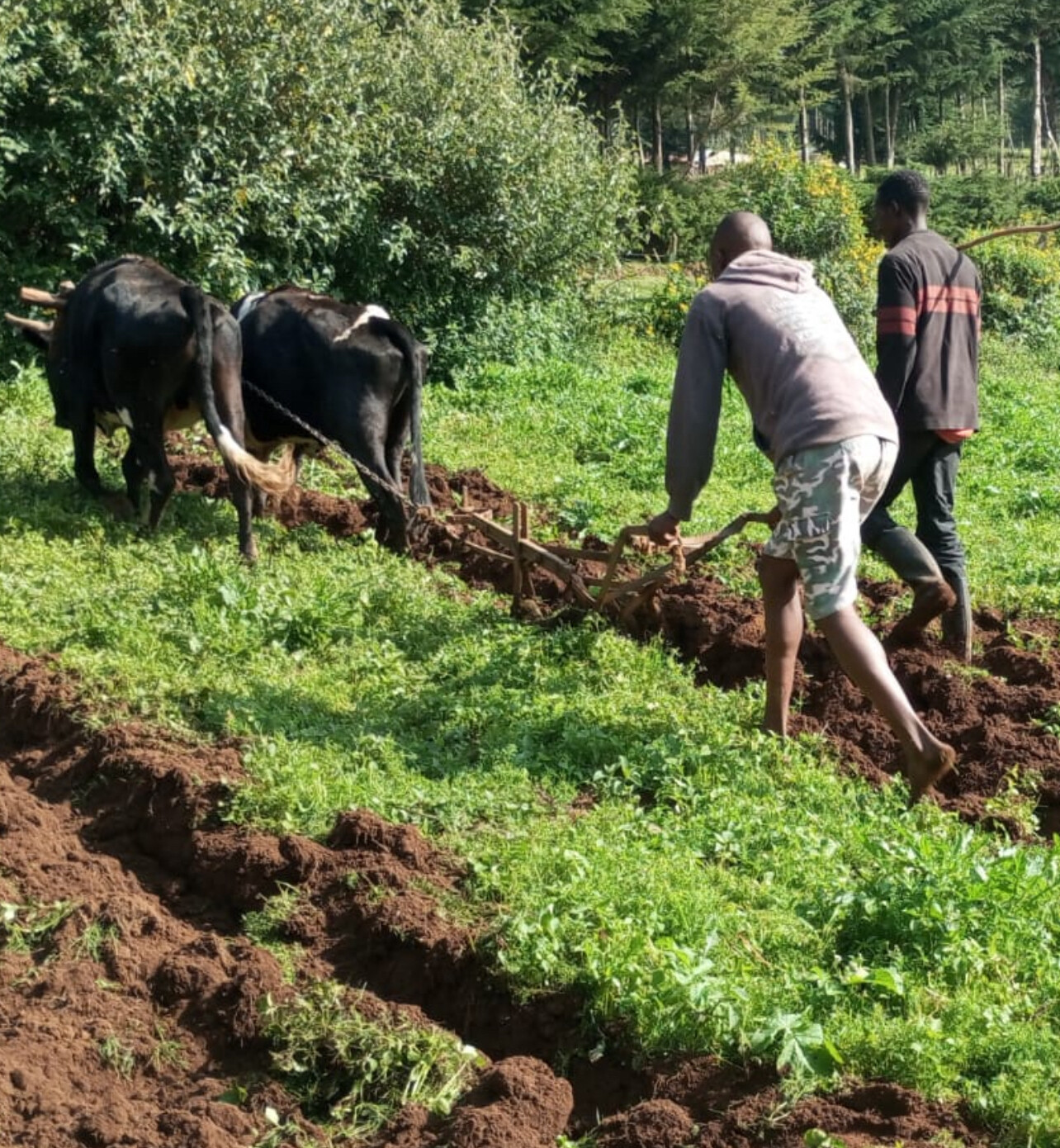
KATA was founded by Bob Anderson, an accomplished American runner who created Runner’s World magazine and later My Best Runs. After visiting Kenya in 2014, he was deeply inspired by the raw talent scattered throughout rural communities—athletes with potential but no pathway.
“He saw a path that few others in athletic management had envisioned—a system that not only trains champions but empowers them economically,” writes Chebet.
That system became KATA: a network of running camps, each paired with a three-acre potato farm. Each camp receives an interest-free loan from KATA to establish operations. In exchange, athletes train full-time and contribute 25 hours a week to the farm. Revenue from the potato harvest supports camp expenses, housing, and meals—creating a self-sustaining ecosystem.
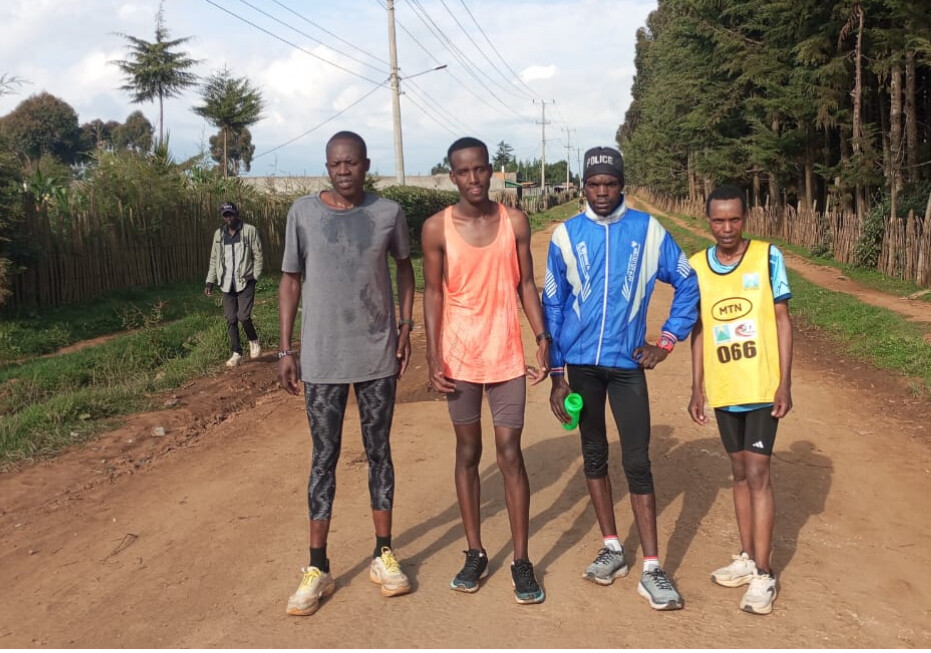
A Growing National Network
The first KATA retreat opened in Thika in 2019. Today, the initiative includes 19 camps spread across Kenya, each run by an experienced operator—many of them former elite athletes.
|
Location |
Operator |
|
Kapcherop |
Philemon Kipruto |
|
Molo |
Eric Chepkwony |
|
Kurengat |
Sammy Dismas |
|
Nyandarua |
Peter Njoroge |
|
Kericho |
|
|
Sotik |
|
|
Sachangwan |
Amos Chirchir |
|
Iten |
David Kellum |
|
Tenden |
Philemon Kipruto |
|
Eldoret |
Ruth Chumo |
|
Njerian Bomet |
Paul Kipsiele Koech |
|
Olenguruone |
Charles Ngeno |
|
Kapkembu |
Kipyegon Nehemiah |
|
Gasharrarge |
Job Langat |
|
Kaptagat |
Joseph Ngure |
|
Kiambu |
Julius Gacheru Migwi |
|
Kangundo |
Jimmy Muindi |
|
Moiben |
Hillary Kiplagat |
|
Kiptoror |
Caleb Rut |
In addition to these camps, two retreats serve as international training hubs: the KATA Running Retreat Thika, operated by Chris Muiruri, and the KATA Running Retreat Portugal, operated by Alberto Santos. Guests from around the world come to the two KATA retreats to train the Kenyan Way.
Elite Experience, Grassroots Impact
At the heart of KATA’s success is its leadership team. Olympic medalist Edwin Soi, now managing the Kuresoi Camp, brings both credibility and experience. Legendary steeplechaser Paul Kipsiele Koech, who has run under 8:10 in the 3000m steeplechase over 110 times, oversees two KATA camps/farms.
Veteran coach Charles Ngeno, known for his early work with Olympic champion Faith Kipyegon, now heads the Olenguruone camp, ensuring that young athletes from even the most remote villages receive structured training and economic opportunity.
“The new vision embraces sustainability, resilience, and empowerment,” writes Chebet. “It ensures that our athletes thrive both on and off the field.”
Looking Ahead
Anderson and the KATA team have ambitious plans: confirming one more camp this month and preparing for even more in 2026. The goal is clear—build up to 50 self-sustaining running camps across Kenya and replicate the model in other parts of the world.
“We’re not just chasing medals,” says Anderson. “We’re building lives.”
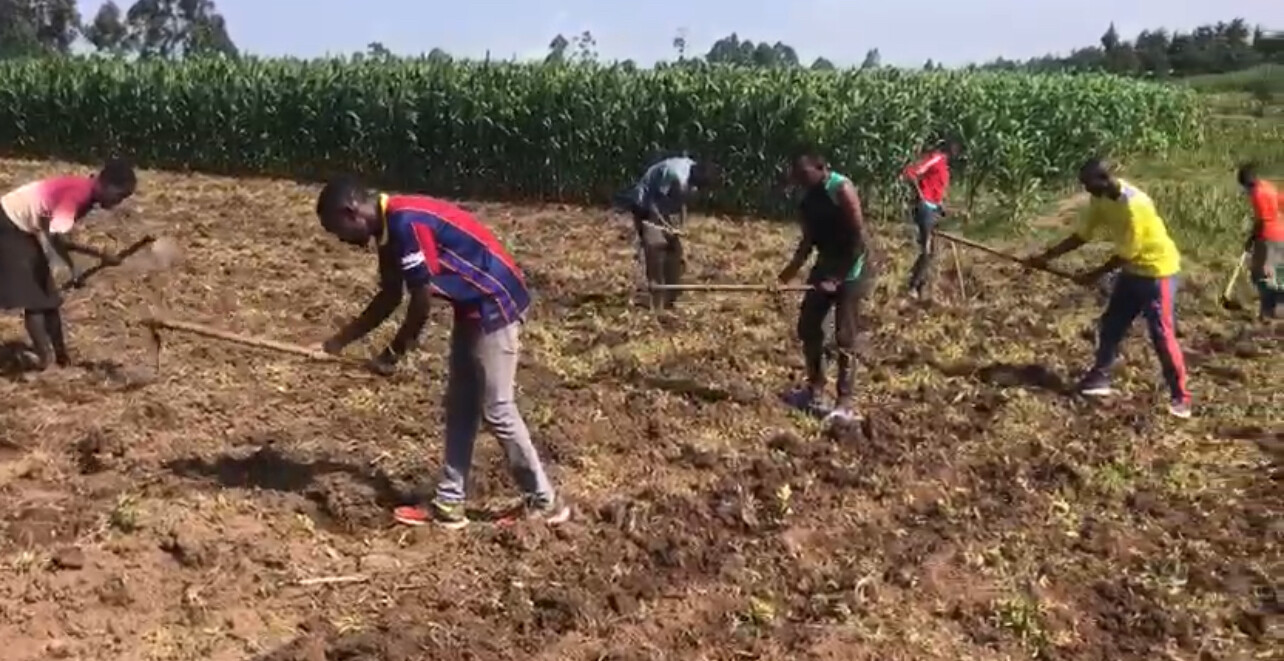
For partnership opportunities or more information, contact Bob Anderson on WhatsApp: +1-650-400-6643
by Brigid Chebet with Boris Baron
Login to leave a comment
Faith Kipyegon Clocked 3:48.8 at 1500m During #Breaking4 Attempt—Eyes Another World Record at the Prefontaine Classic on July 5
Faith Kipyegon, the reigning queen of middle-distance running, continues to stretch the boundaries of what’s possible on the track. During a high-profile #Breaking4 mile time trial, the Kenyan superstar clocked a blistering 3:48.8 at the 1500-meter mark—faster than her official world record of 3:49.04, set in Florence in 2023.
Although the time trial format means the result won’t be ratified as an official record, the performance sent a clear message: Kipyegon is still getting faster.
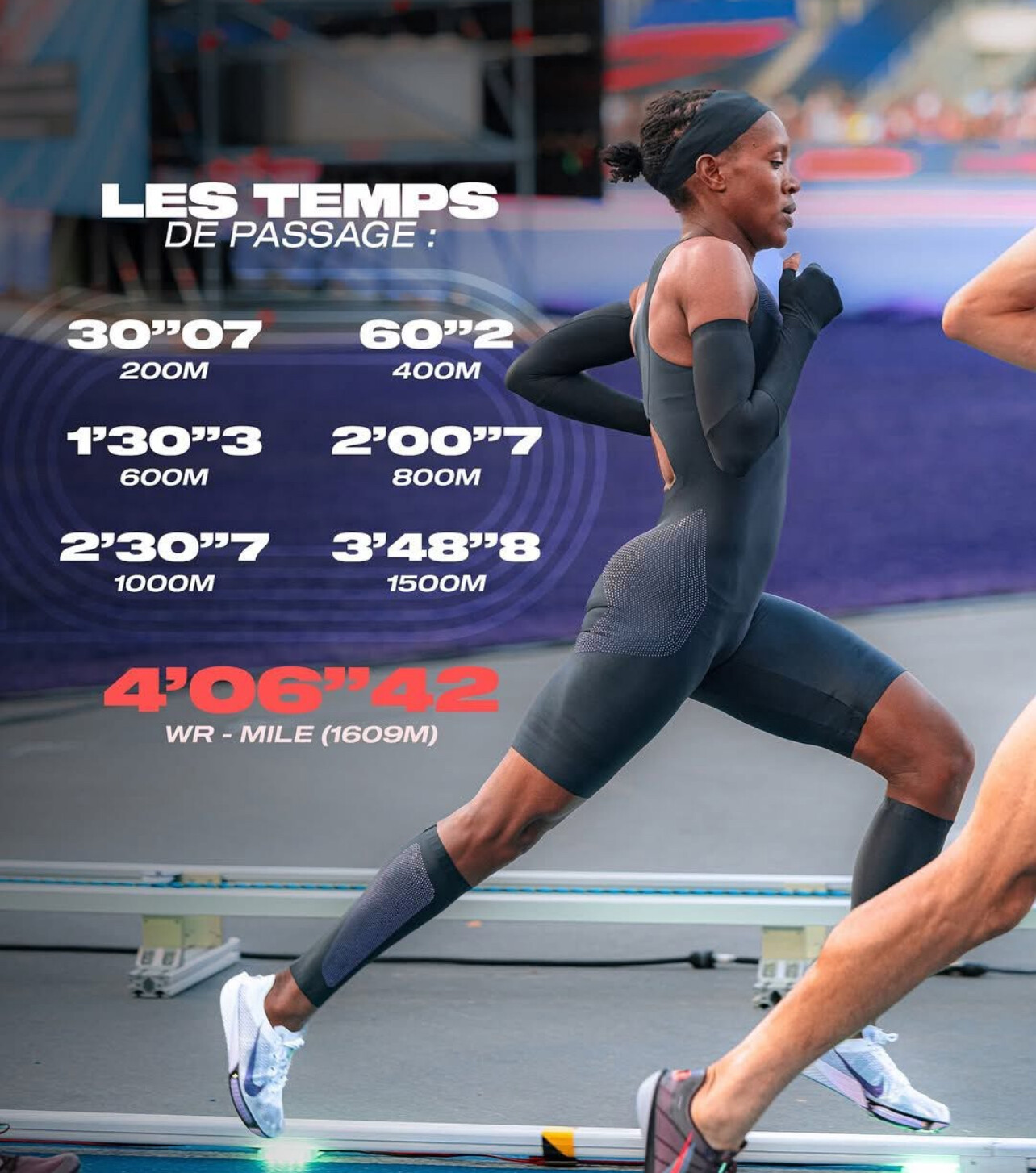
“This performance gives me great hope,” Faith said after the run. “To see 3:48.8 on the clock at 1500m confirms that sub-3:49 is within reach.”
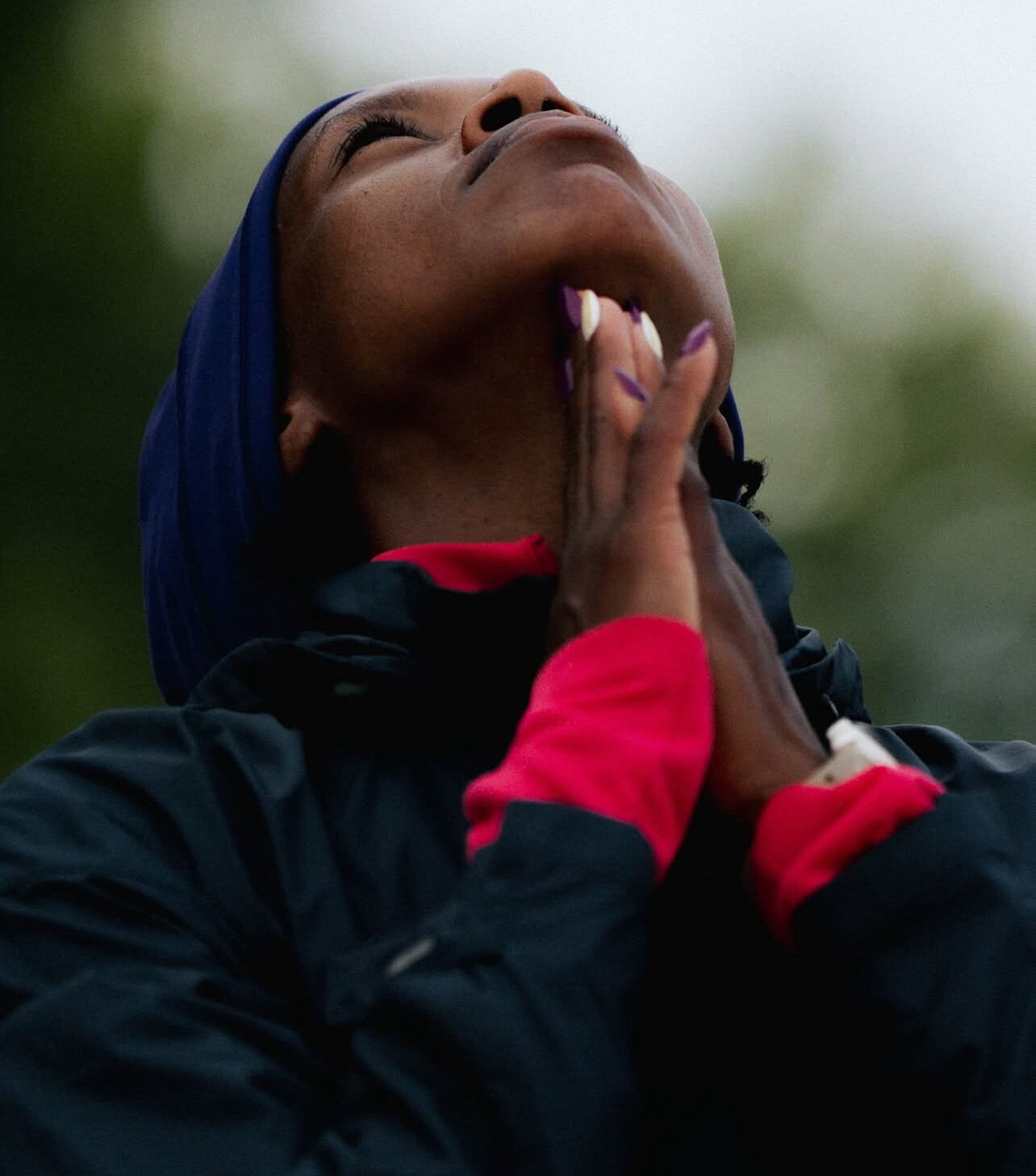
She’ll have her next big chance at the Prefontaine Classic in Eugene, Oregon, on July 5, 2025, where she’s planning a serious assault on the record books. Known for producing fast times at Hayward Field, the meet could see Faith rewrite history once again.
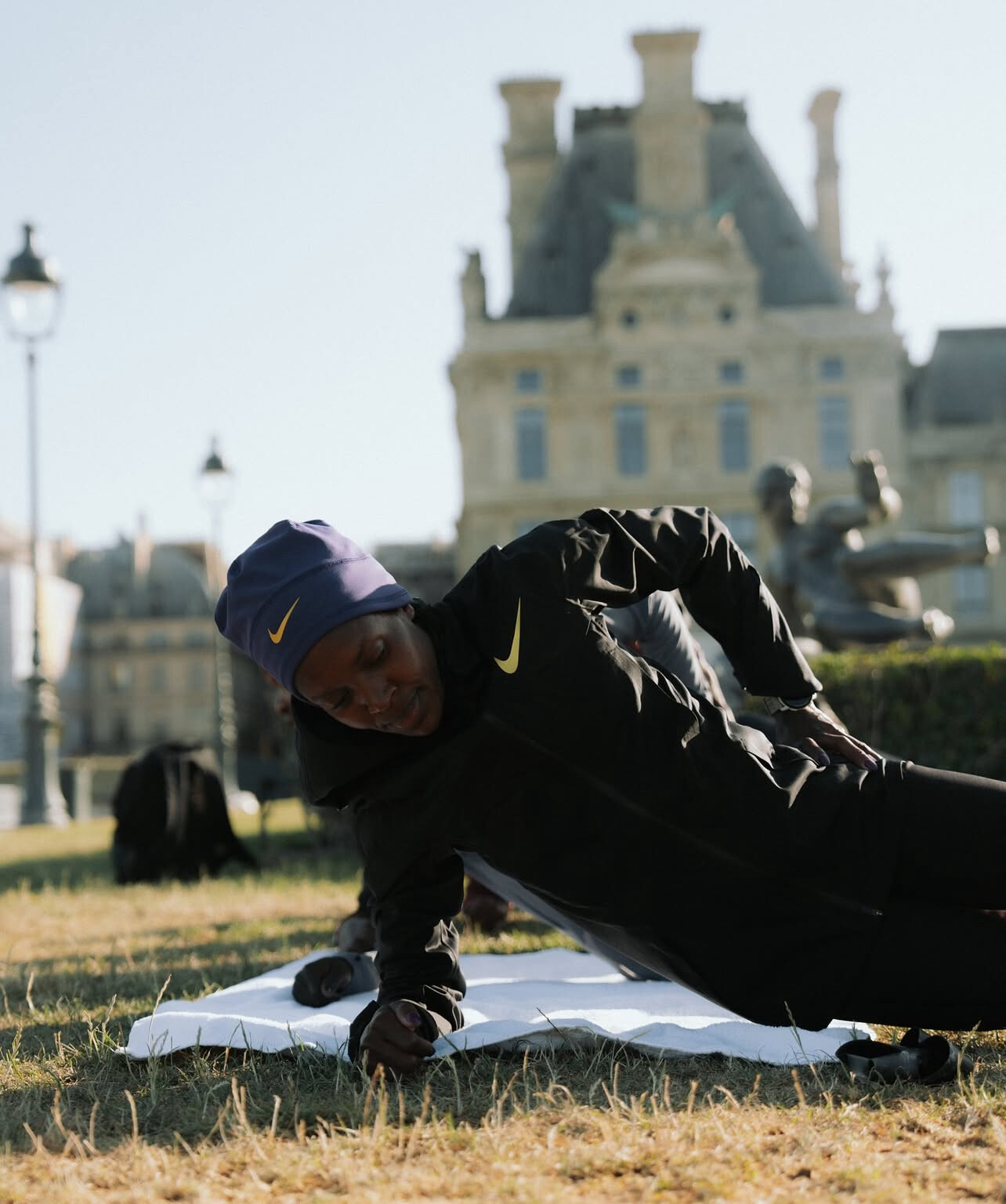
The Breaking4 attempt was designed to chase a barrier no woman has yet achieved under standard conditions: running a sub-four-minute mile. While Kipyegon ultimately finished the mile in 4:06.42, her 1500m split electrified fans and analysts alike.
Already the world record holder at 1500m, the mile, and 5000m, Kipyegon’s consistency and fearless racing continue to define this golden era in women’s distance running. Her run at the Pre Classic could mark the third time she’s broken the 1500m world record since 2023.
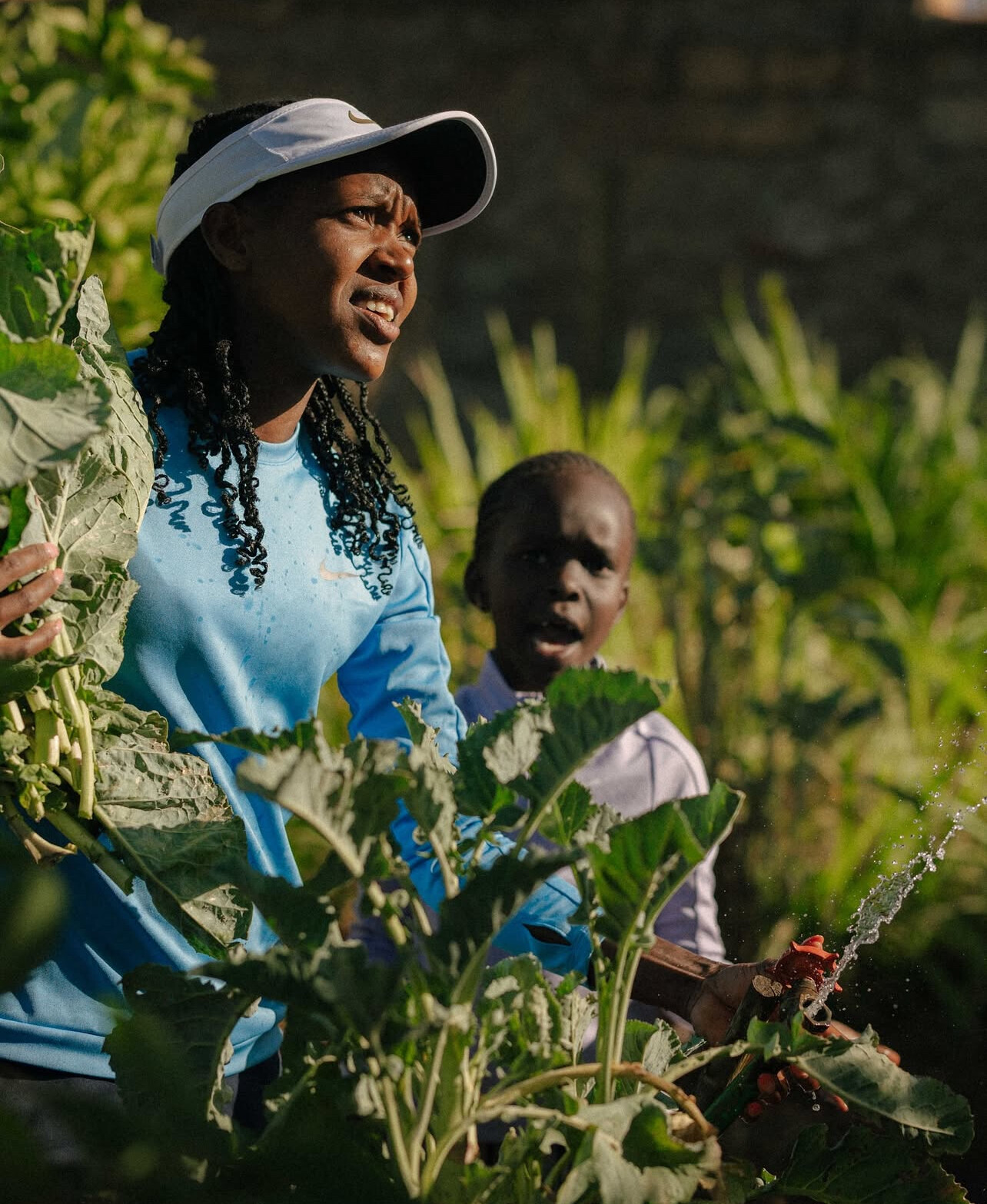
With the 2024 Paris Olympics now behind her, Kipyegon appears focused on cementing her legacy and pushing toward times no woman has ever reached.
The countdown to July 5 has officially begun.
My Best Runs
Follow us for full coverage of the Prefontaine Classic and the next chapter in Faith Kipyegon’s extraordinary journey.
by Boris Baron
Login to leave a comment
Too Many Pacers and a Missed Opportunity: Why Faith’s Sub-Four Mile Attempt Fell Short
By Bob Anderson
I watched with high hopes as Faith Kipyegon attempted to become the first woman to break four minutes for the mile—this time on the track in Paris. Nike clearly spent millions putting this event together. The lights, the controlled environment, the precision pacing system, the high-tech spikes—it was all there. Faith is one of the greatest middle-distance runners in history. If anyone could do it, she could. But what unfolded wasn’t the historic breakthrough it could have been. It was, frankly, a case study in poor execution.
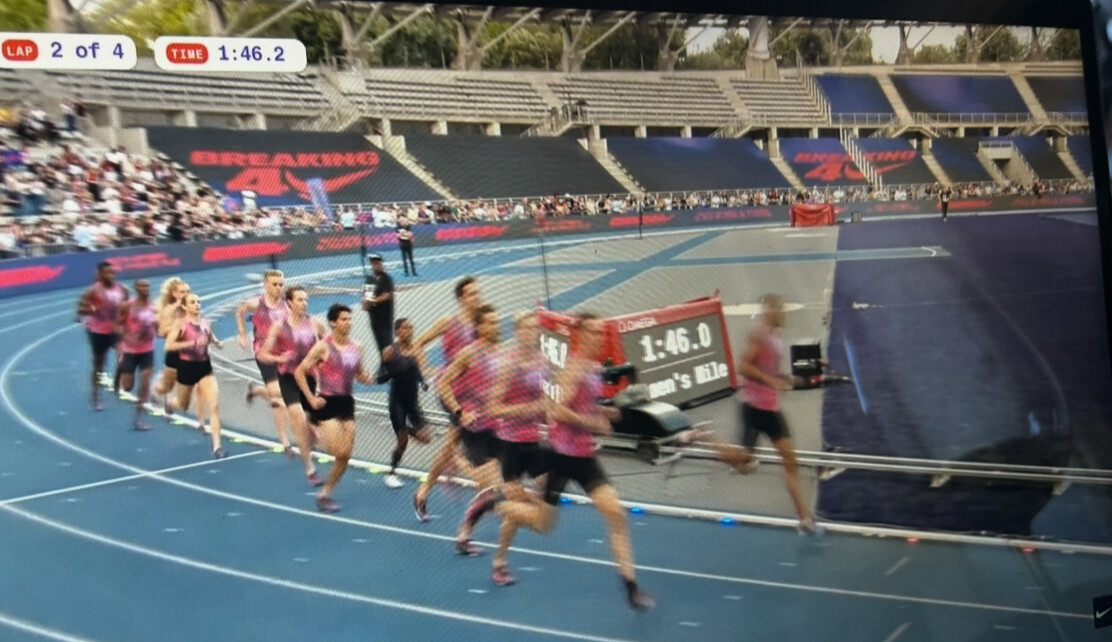
Let’s talk about the pacers. Whoever made the decision to assign thirteen of them made a fundamental error. A great runner doesn’t want five or six athletes stacked in front of her. It’s not just about drafting—it’s about mental clarity, rhythm, and feeling in control. Instead of creating an ideal pacing setup, they created visual and physical chaos. It didn’t feel like Faith was on the hunt for history—it felt like she was caught in someone else’s traffic jam.
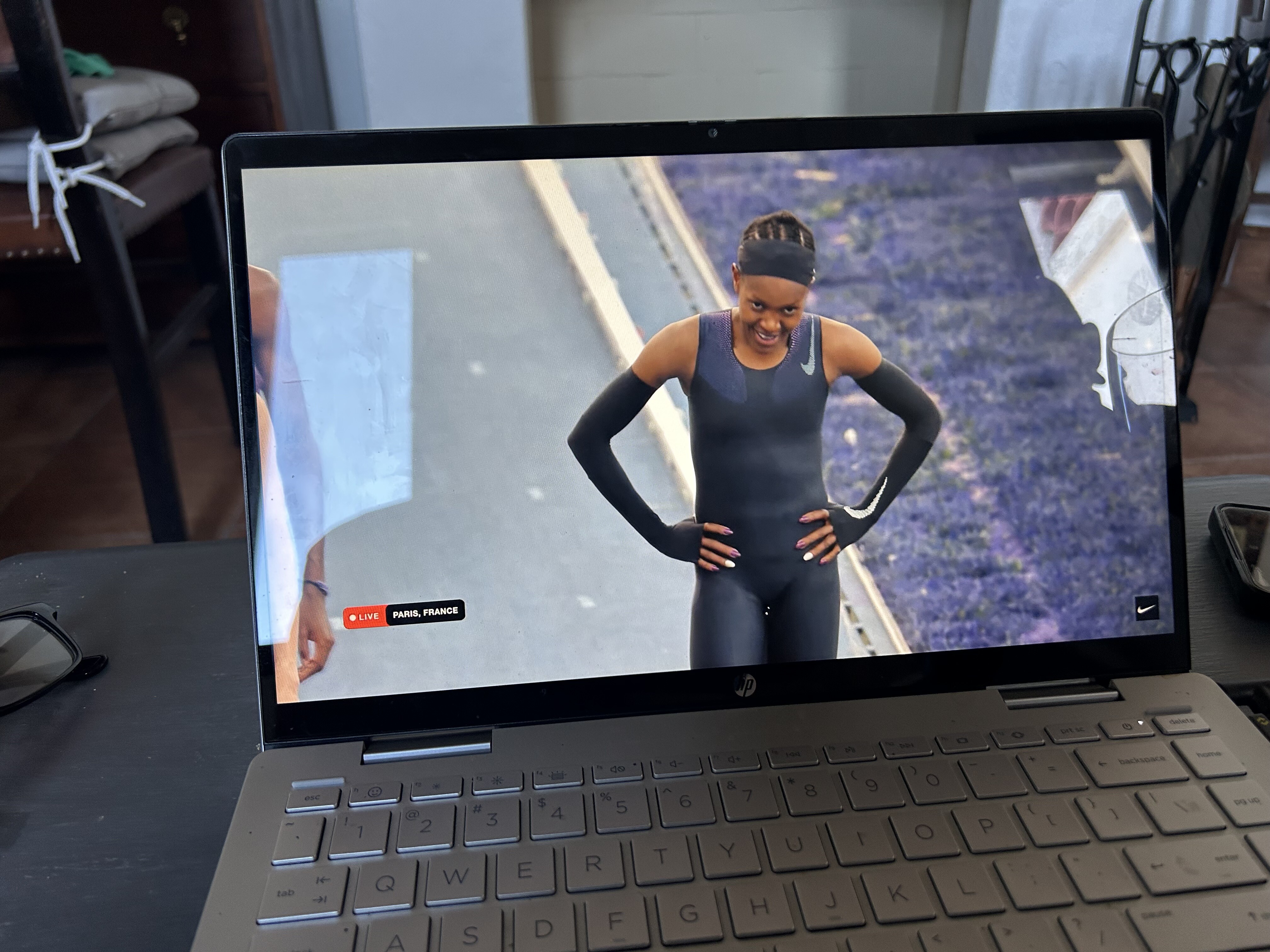
The strategy should have been simple: three pacers. That’s it. Three men capable of running 3:58 for the mile. One slightly ahead of her to cut the wind and manage the pace. One at her side to maintain tempo. One behind to steady and support. And critically, with 400 meters to go, they should have faded and let her take the lead—let her own the moment and drive the finish.
This wasn’t a Diamond League race or a championship final. It was a fully staged time trial. Nike had total control over every variable—from the lighting system and pacing software to Faith’s state-of-the-art shoes, designed to give her the maximum mechanical advantage. The shoes themselves—part of Nike’s elite spike line—were made for moments like this. But even the best gear in the world can’t fix a flawed race plan.
Faith needed to feel like the leader. She needed space to surge and the right psychology. Instead, it looked and felt more like a corporate production than a runner-centric event. Too many distractions, too little intuition.
After the race, I reached out to Charles Ngeno, Faith’s former childhood coach and now a KATA Running Camp operator in Olenguruone, Kenya. He said it best:
“Faith is one of the most disciplined and gifted athletes I’ve ever worked with. She has what it takes to run under four minutes. But this wasn’t the way. She needs a setup that gives her space, rhythm, and control—not distraction. I believe she can do it, but next time the race must be for her, not for the cameras.”
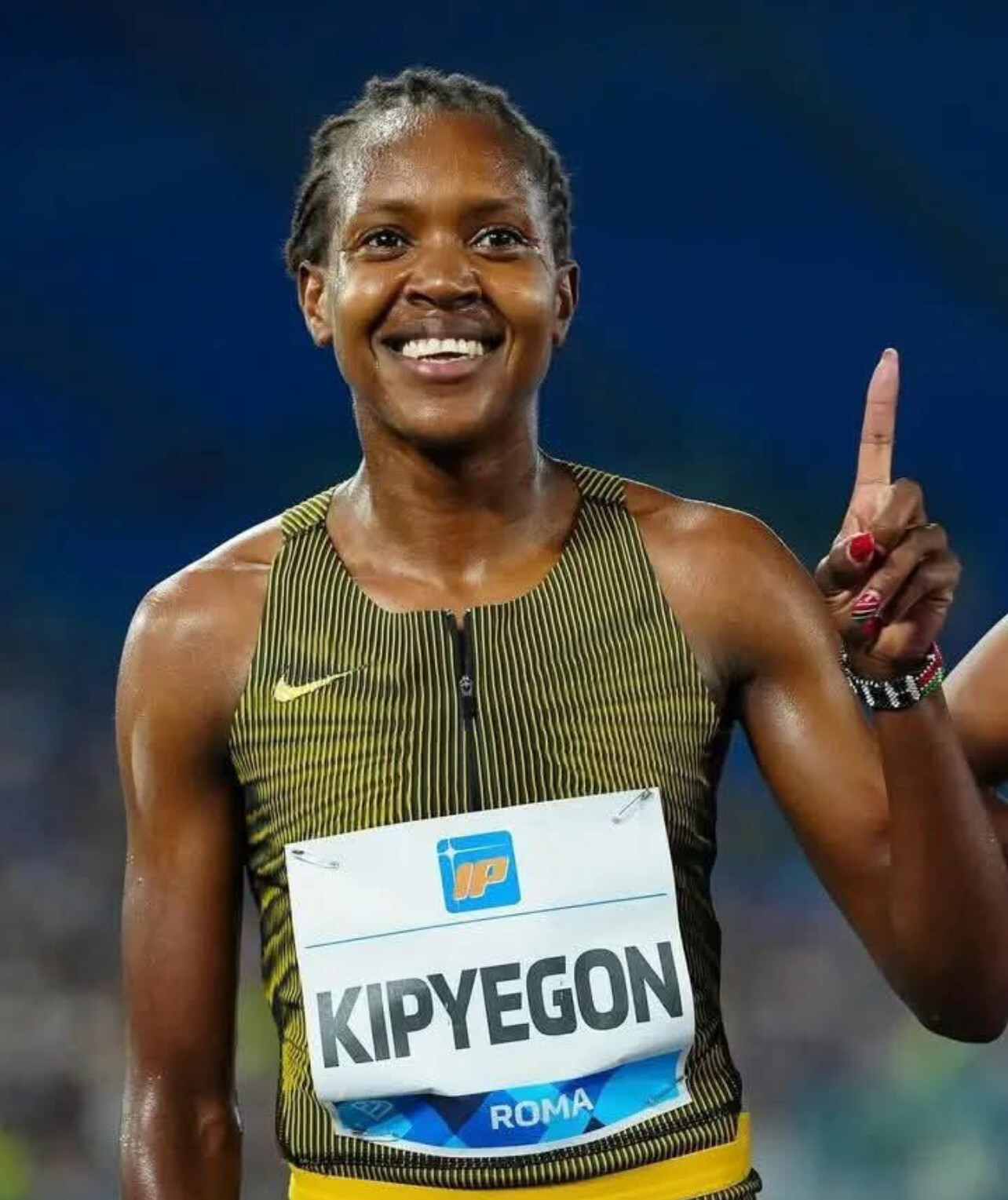
He’s right. Faith will have more chances. She’s too talented not to. But next time, I hope the planners listen—to athletes, to coaches, to those who understand what’s required to break barriers. High-tech shoes and flashing lights don’t make history. Precision, psychology, and smart pacing do.
This was a missed opportunity. Let’s not miss the next one.
by Bob Anderson
Login to leave a comment
I still don’t think she would have run under 4 minutes but probably 4:02 or more and it would have been so much better to watch. - Bob Anderson 6/26 1:10 pm |
Charles Ngeno Joins KATA to Help Build Kenya’s Next Champions
With more than 15 years of experience coaching distance runners at the highest level, Charles Ngenohas dedicated his life to unlocking the potential of Kenyan athletes. Now, as a KATA Running Camp operator, he brings that expertise to one of the country’s most innovative athletic development programs—combining elite coaching with a sustainable, community-driven model.
“I’m thrilled to join the KATA Running Camp program, where I’ll share my expertise and passion for athletics with talented young runners,” Ngeno says. “With over 15 years of coaching experience and a proven track record of developing world-class athletes, I’m confident in my ability to contribute to the program’s success. I’m excited to work with the KATA team to identify and nurture emerging talent, and to help athletes achieve their full potential. Together, we’ll take Kenyan athletics to new heights and inspire a new generation of runners.”
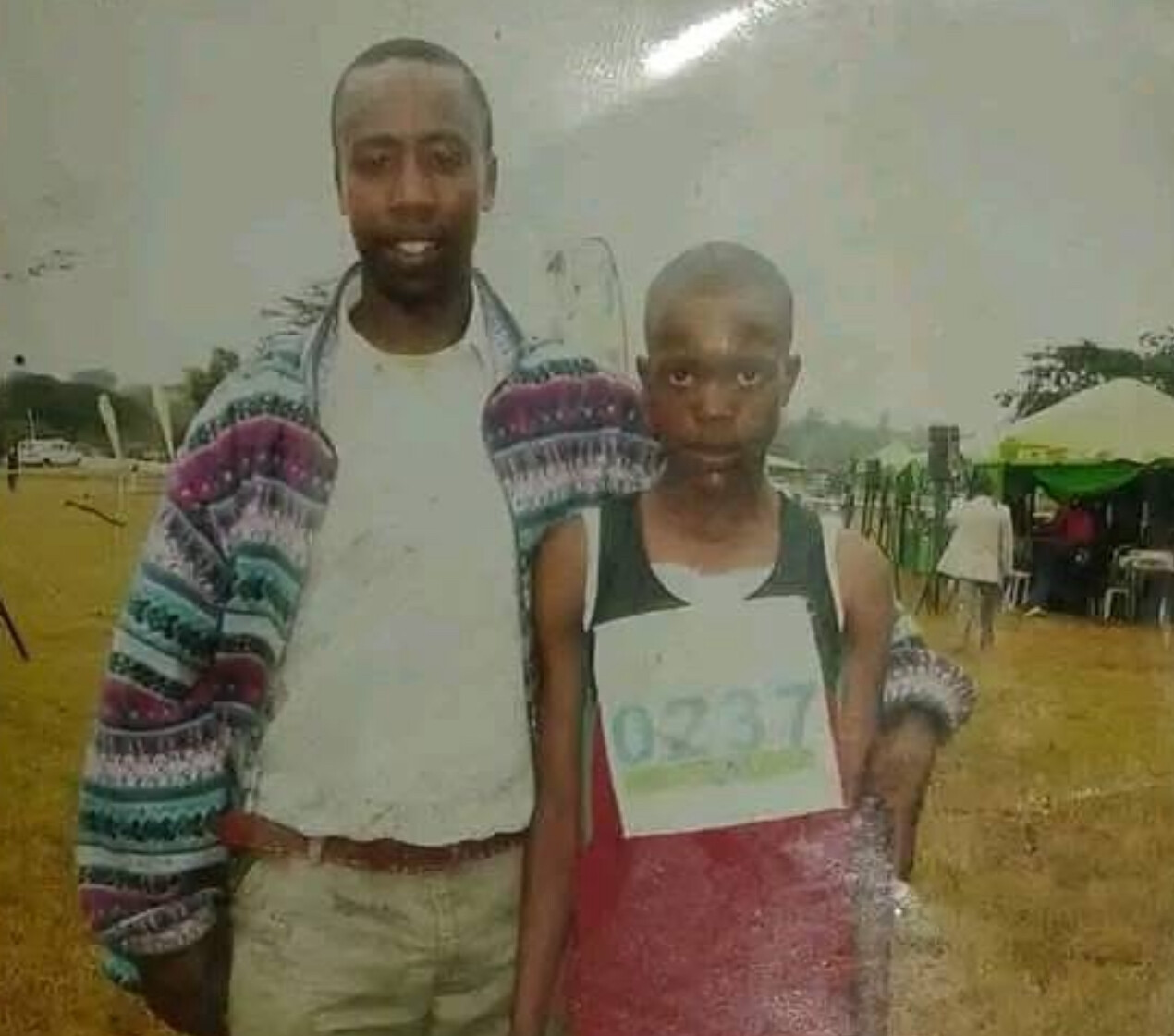
Ngeno’s coaching career has included mentoring both junior and senior athletes—many of whom have risen to national and international prominence. One of the most notable names he worked with early on is Faith Kipyegon, now a two-time Olympic champion and world record holder in the 1500m. Ngeno played a role in her formative development, helping guide her at a key moment in her youth when she was discovered near Keringet Township.
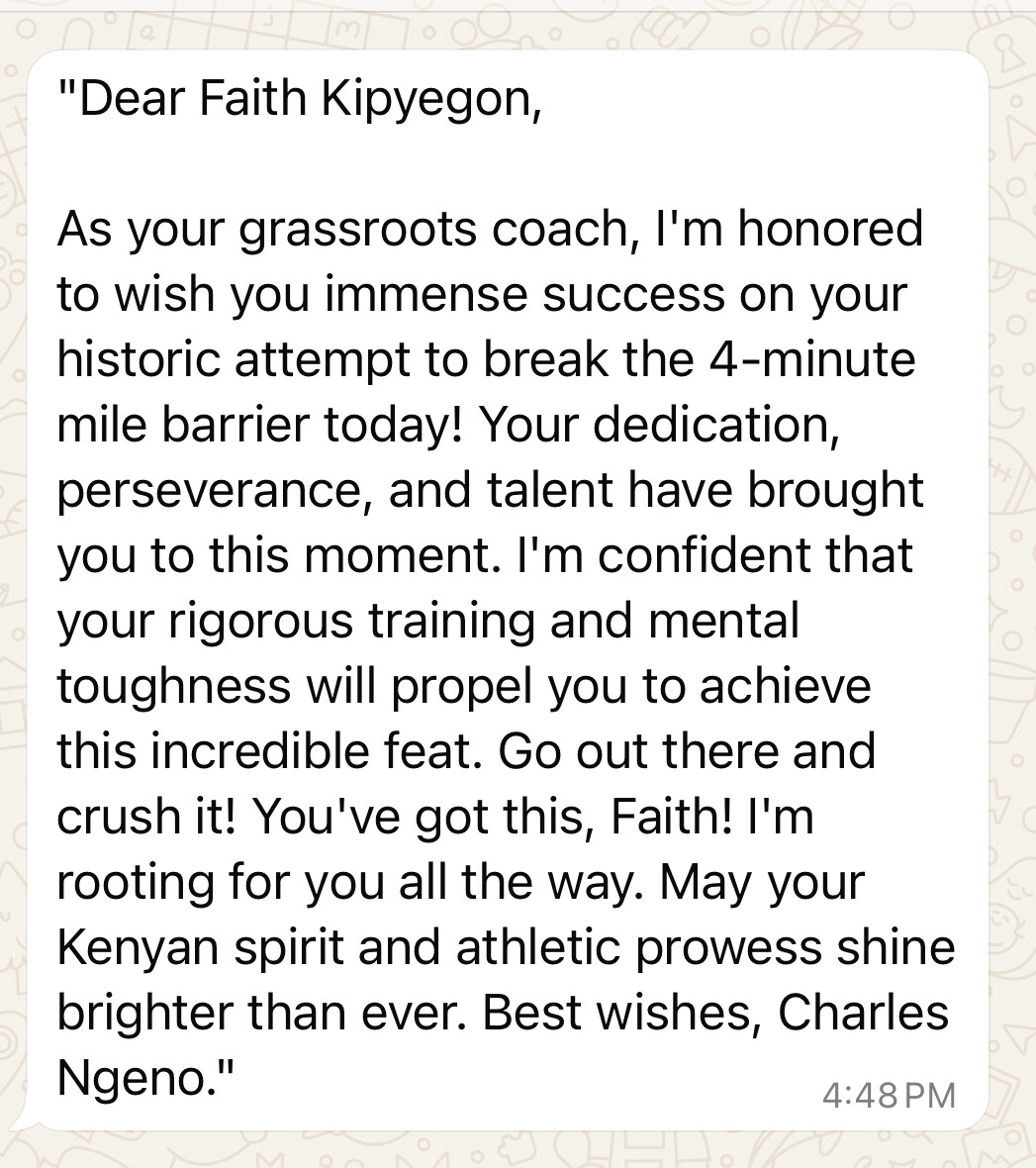
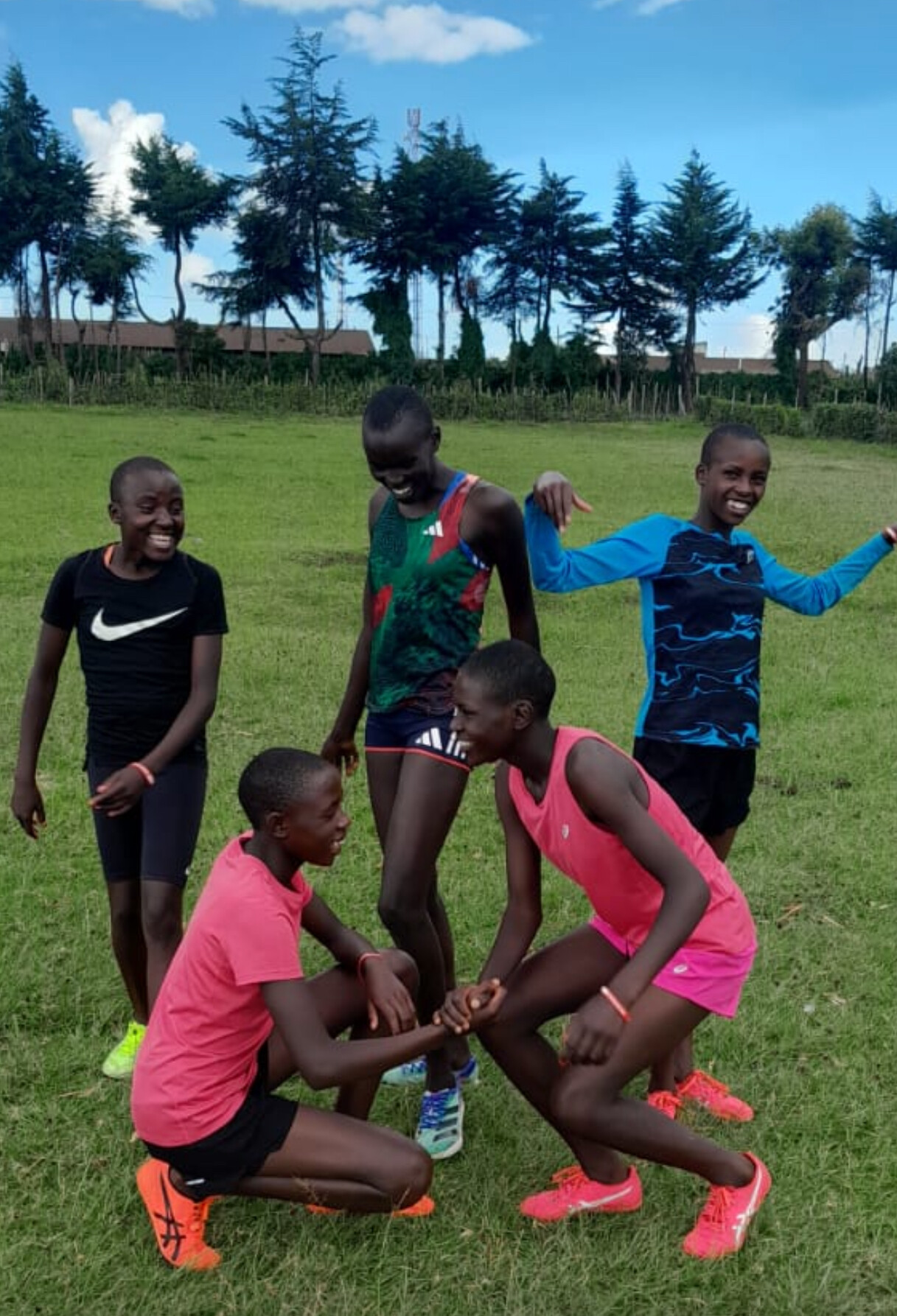
That early influence continues to resonate. Kipyegon is now attempting to do what no woman has ever done—break the four-minute barrier for the mile. The historic run is scheduled for June 26 in Paris as part of Nike’s “Breaking4” project, with the global running world watching closely. Ngeno, meanwhile, is back where his heart has always been: coaching on the ground in Kenya and building future champions.
The KATA model is unlike any other. Each camp is linked with a three-acre potato farm, where athletes work part-time—25 hours a week—in exchange for full room, board, and expert coaching. The combination of structured training and sustainable agriculture allows athletes to focus entirely on their development, while also contributing to the local economy.
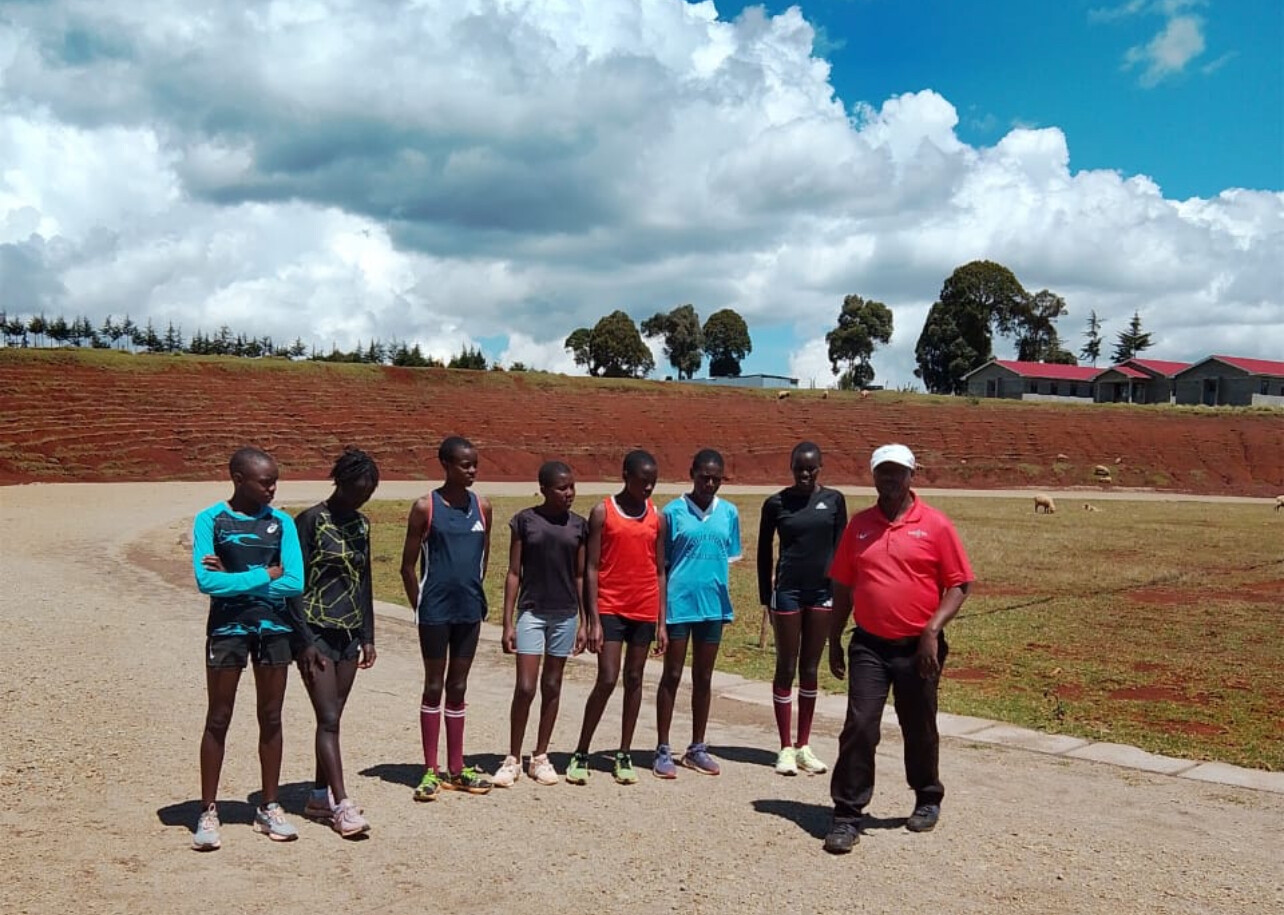
As a camp operator in Olenguruone, Ngeno oversees not only the athletic training but also the day-to-day structure of the farm program. His hands-on approach, deep knowledge, and commitment to discipline and consistency make him the ideal leader for this environment.
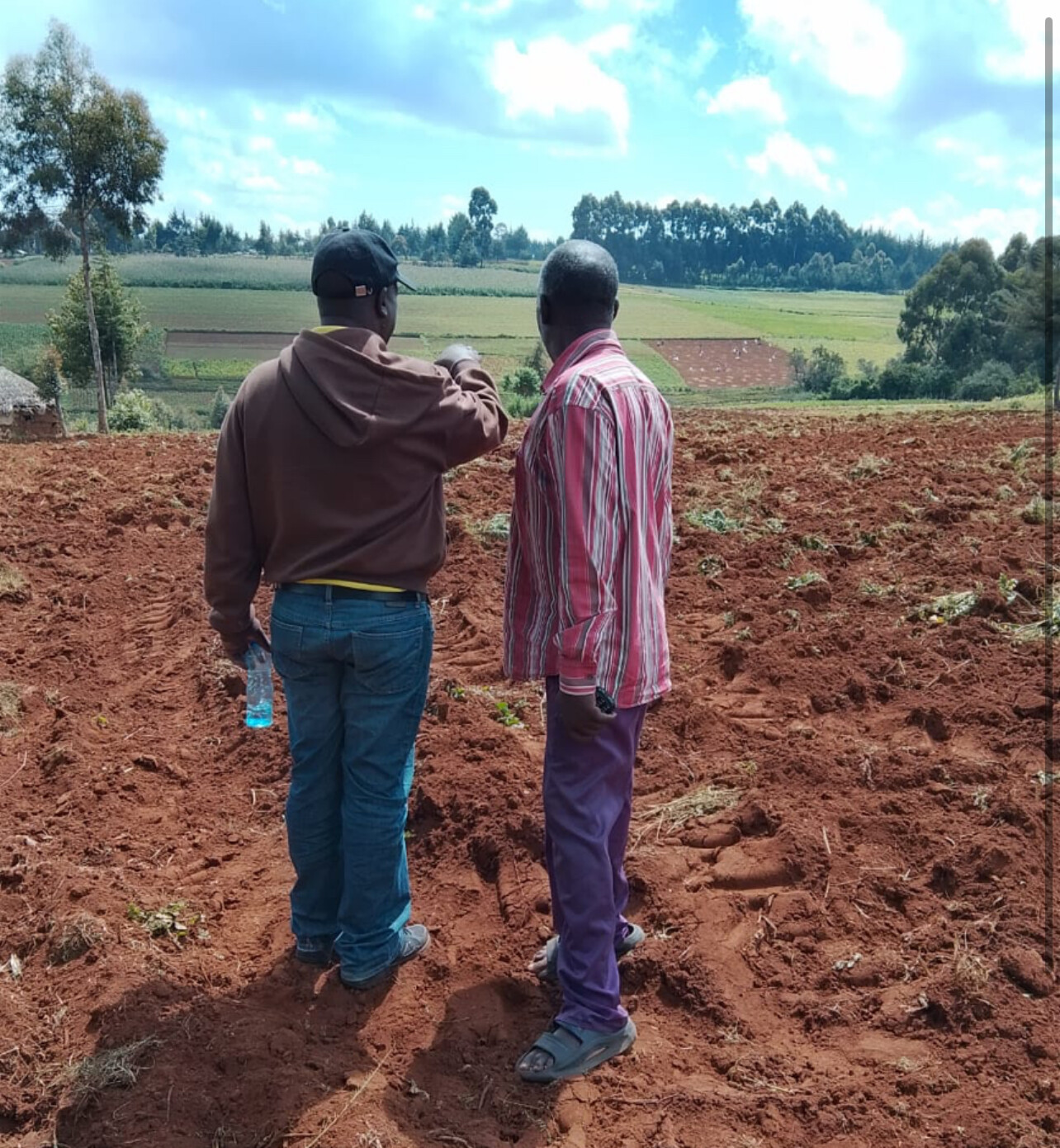
“This isn’t just another training camp,” he says. “This is a platform for real opportunity. We’re giving athletes who might otherwise be overlooked the chance to build something—to compete, to grow, and to give back. I’ve seen what’s possible when someone believes in you. I want to be that person for these runners.”
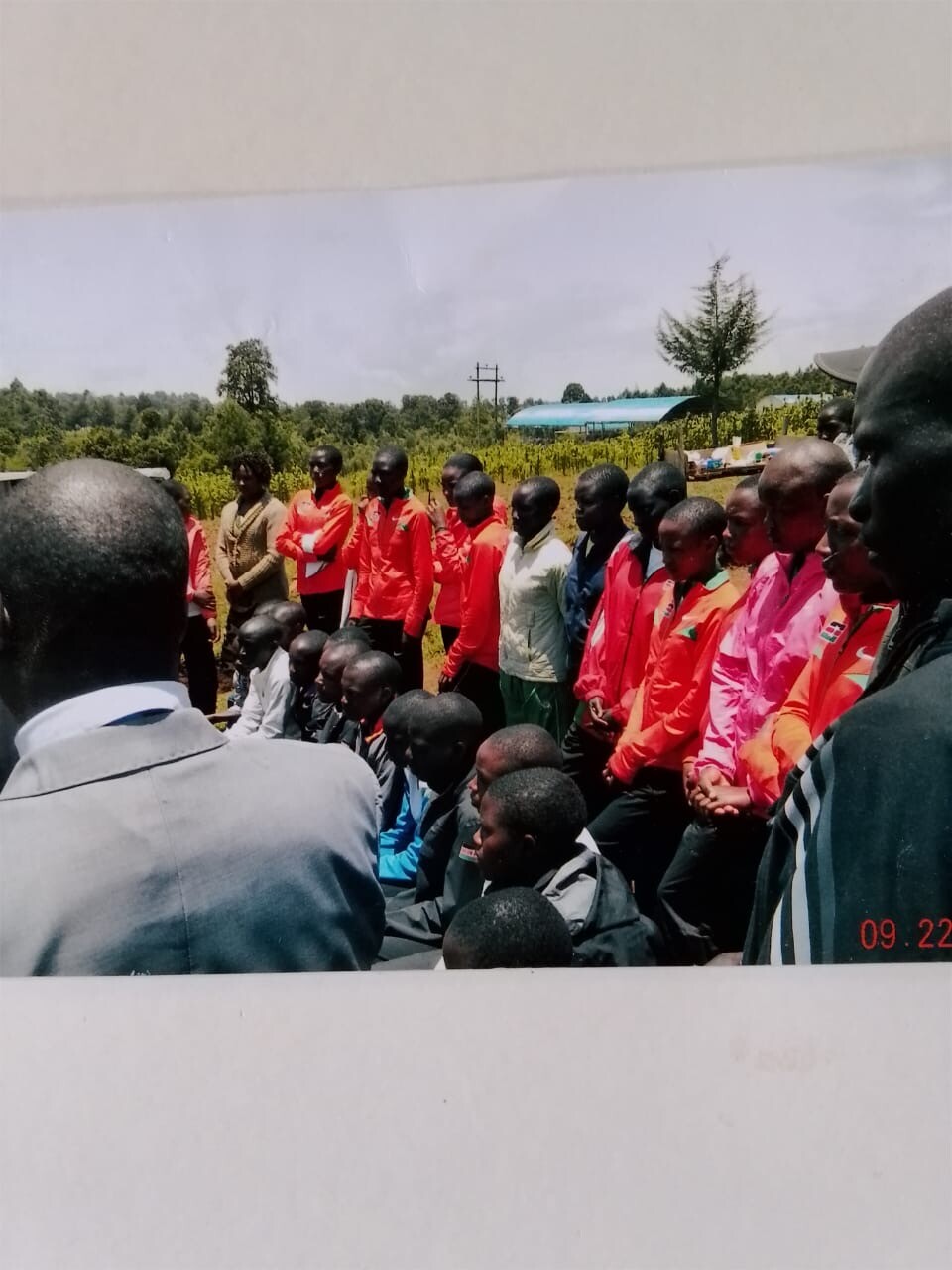
With camps already in operation across Kenya, and more launching every month, KATA is expanding rapidly under the leadership of founder Bob Anderson, who launched the original KATA in Thika in 2019. All camps follow the same guiding philosophy: develop talent locally, create economic opportunity, and prepare runners for the world stage.
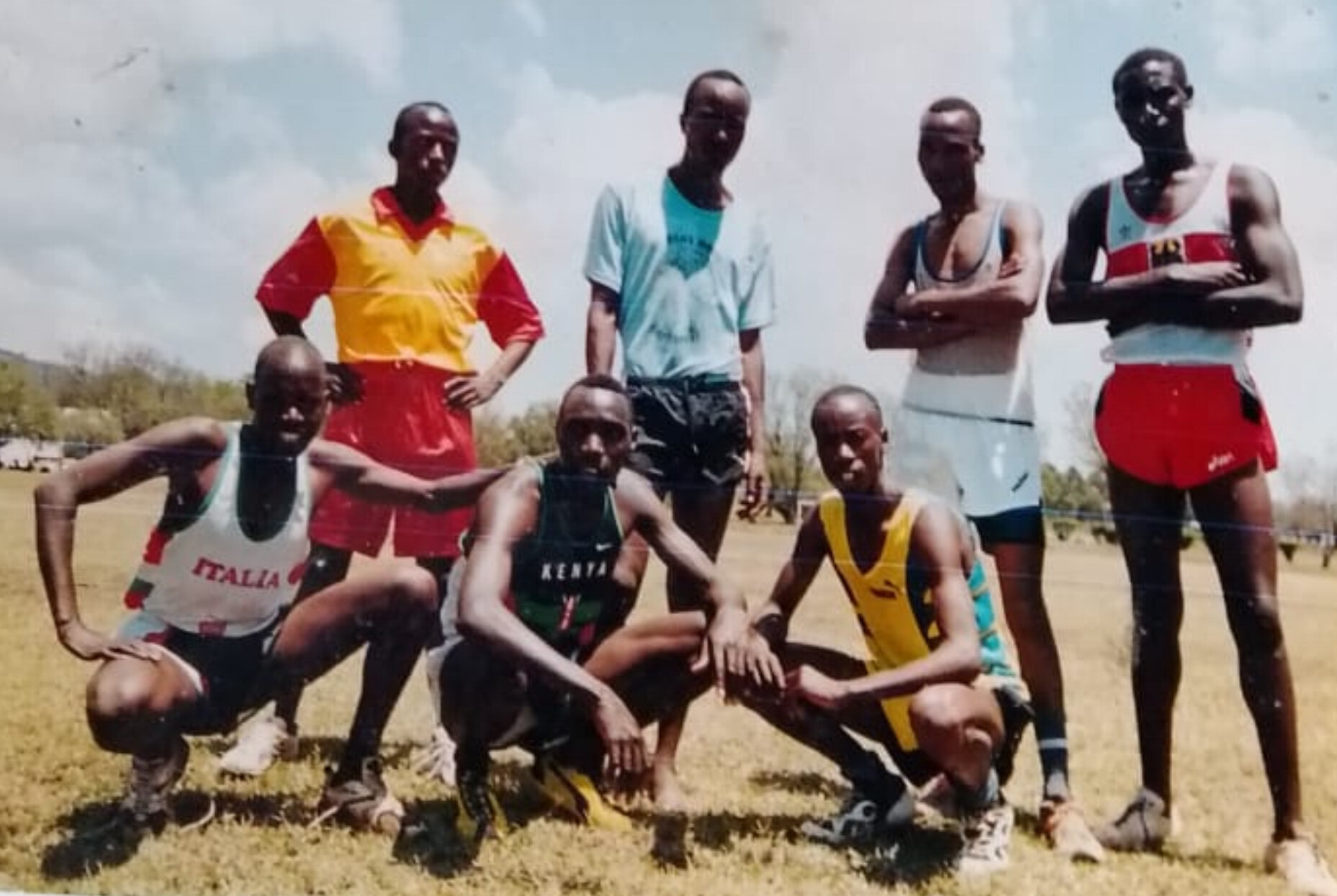
Charles Ngeno’s presence adds serious strength to that mission. His career, his values, and his passion align perfectly with the vision of KATA. And for the athletes training under his guidance today, the path forward has never looked more promising.
by Boris Baron
Login to leave a comment
Faith Kipyegon vs. the Clock — Can She Become the First Woman to Break the Four-Minute Mile?
Faith Kipyegon, the reigning world and Olympic champion and current world record holder in both the 1500m and the mile, is preparing for one of the most audacious feats in track and field history—breaking the four-minute barrier in the mile.
The attempt will take place on Wednesday, June 26, 2025, at Stade Charléty in Paris as part of Nike’s “Breaking4” initiative. The race is scheduled for the late afternoon, optimized for cooler weather and ideal pacing conditions.
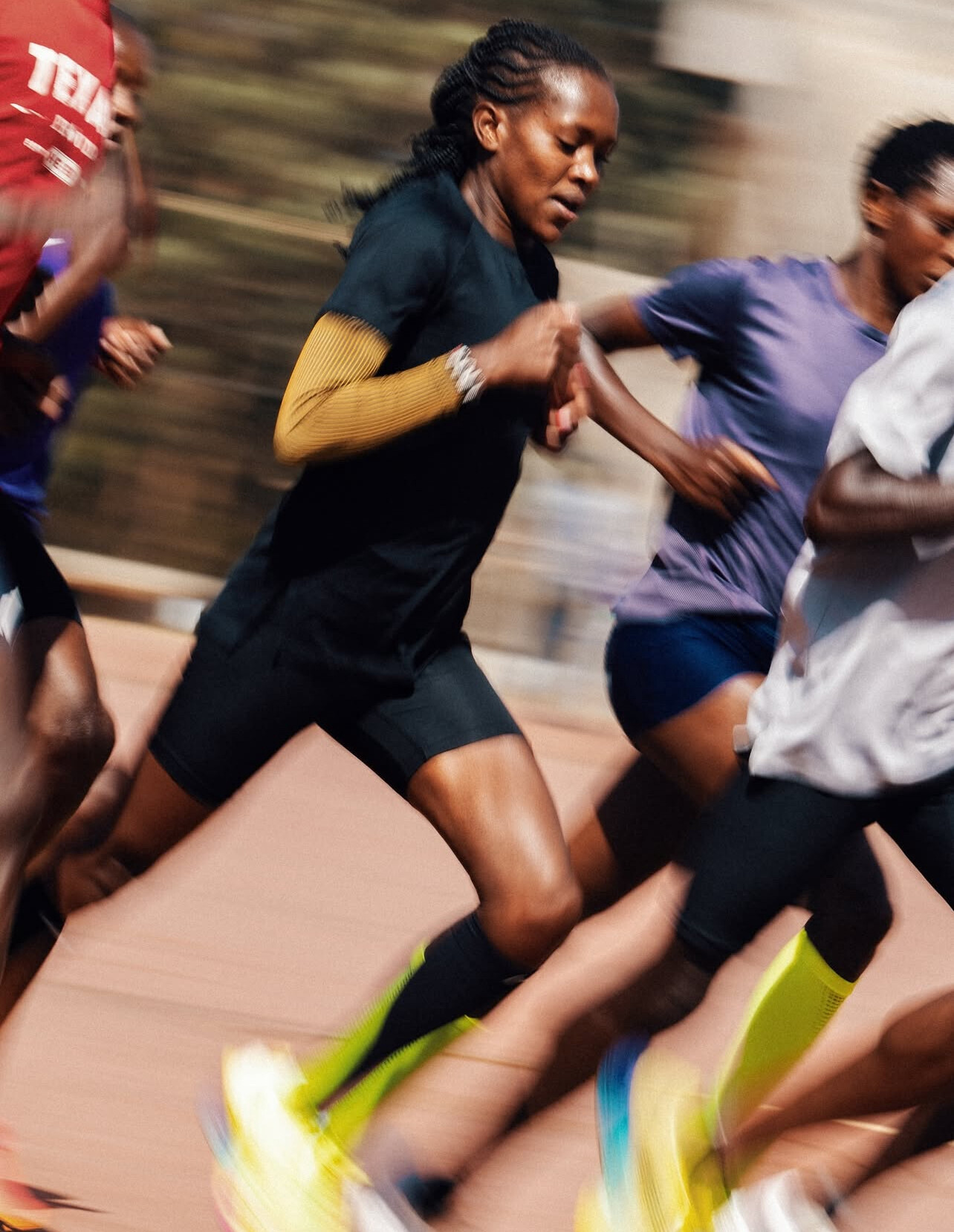
While the attempt will not be eligible for official world record ratification—due to likely use of rotating pacers, pacing lights, and other technological aids—it is poised to become a defining moment in women’s middle-distance running.
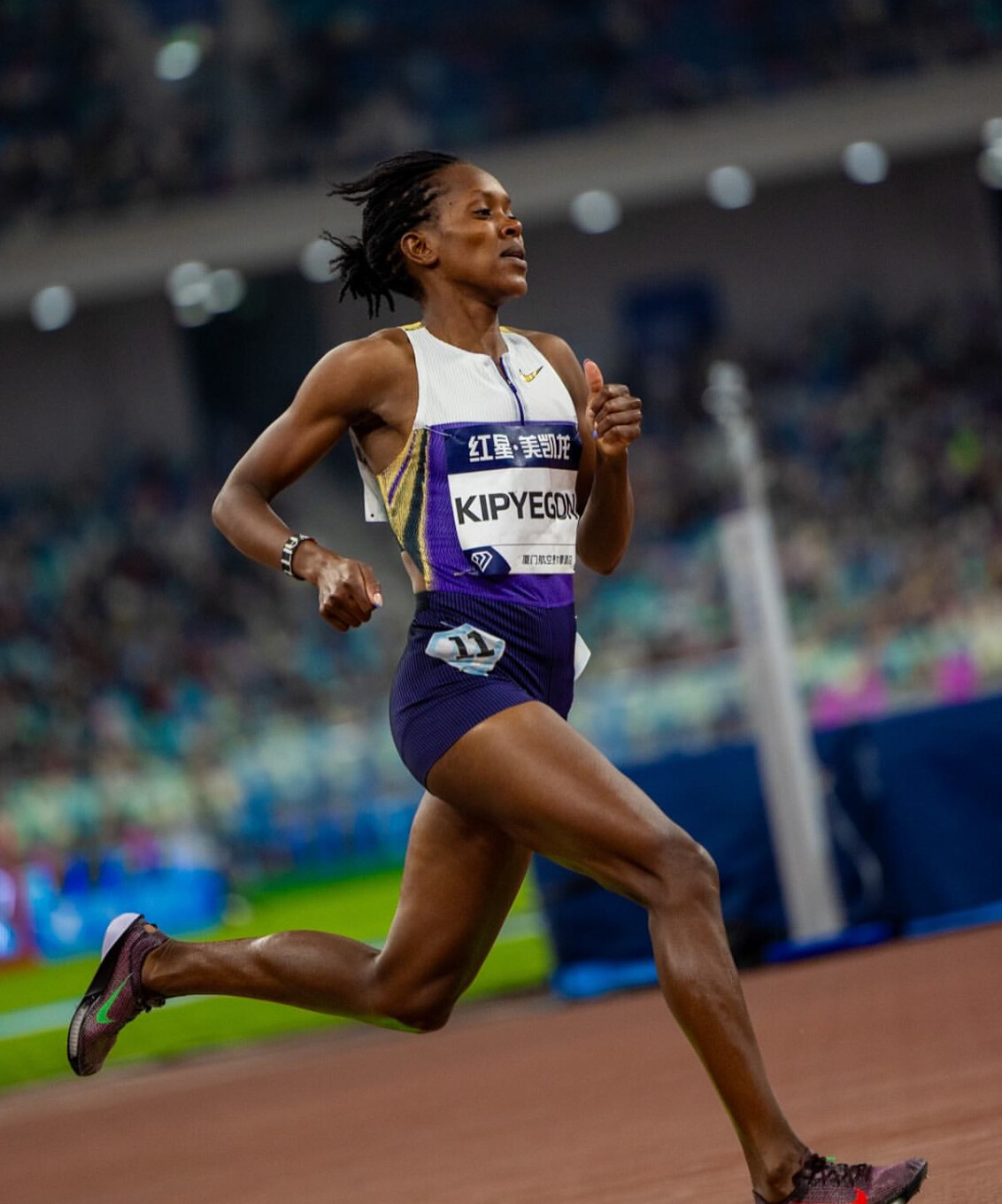
Faith Speaks: “We Have to Dream Big”
Kipyegon has never been one to back down from a challenge. In a recent press conference, she addressed the enormity of the task ahead.
“I think breaking four will really cement my legacy… Everything we do, we have to dream big and just believe in ourselves that we could do it,” Faith said.
She emphasized the importance of mindset over mechanics:
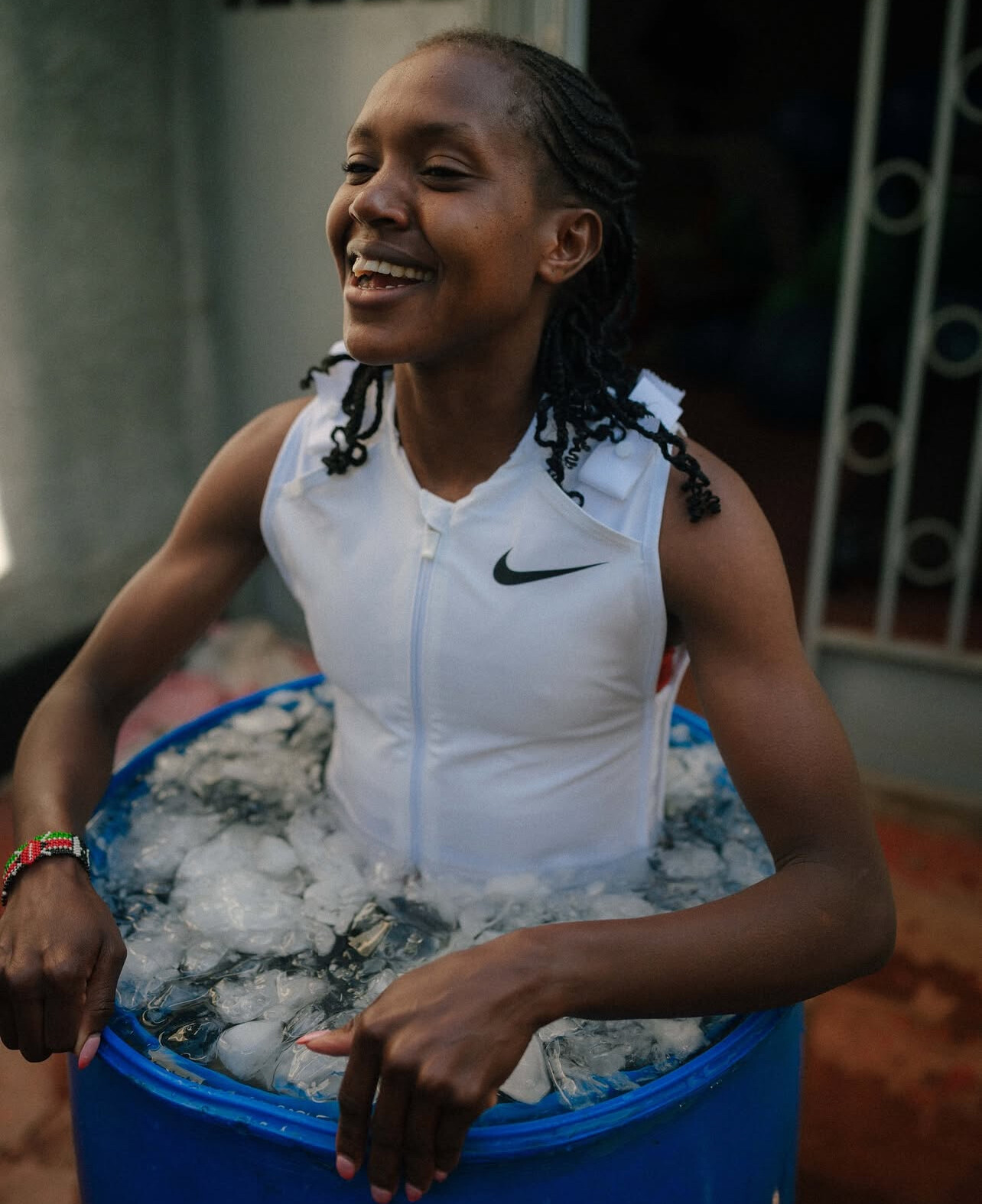
“It’s all about the mind… If you keep on telling yourself that you can do it, you can do it.”
How Big Is the Leap?
Kipyegon set the current women’s mile world record of 4:07.64 in Monaco in 2023. To go under four minutes, she would need to shave over seven seconds off that performance—a massive leap in elite middle-distance running.
For context, Roger Bannister’s famous sub-four in 1954 was just a 2-second drop from the previous best. Kipyegon would be attempting more than three times that.
Beatrice Chebet Shows Support
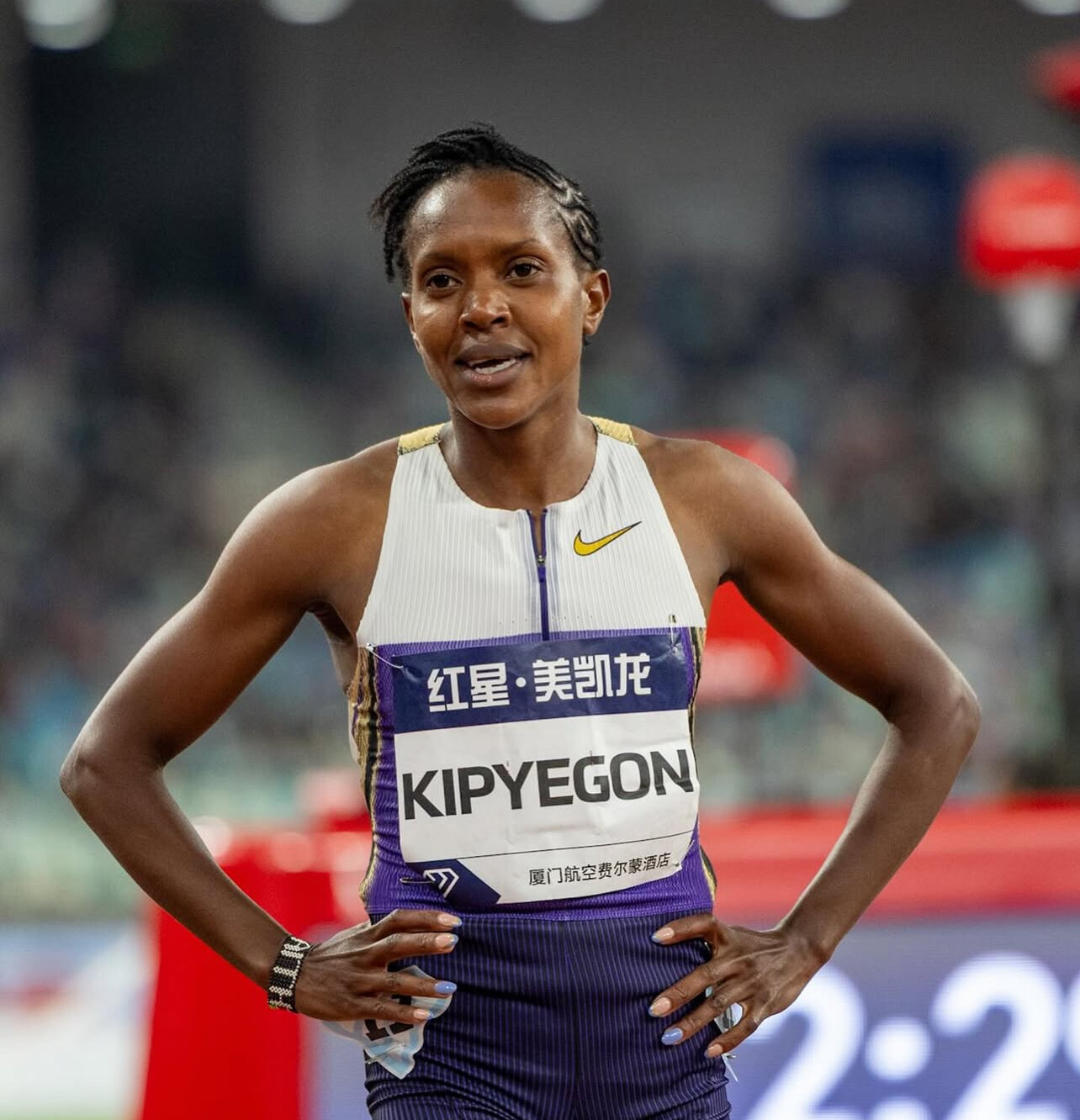
Fellow Kenyan and World Cross Country champion Beatrice Chebet has shown her full support for Faith ahead of the Paris attempt, applauding the courage it takes to take on such a goal and calling the moment “a powerful example for all athletes, especially young women.”
Doubters Remain
Not everyone believes the time is ripe for this breakthrough.
“I wish I was more positive, but I just don’t think it is going to happen,” says My Best Runs founder Bob Anderson. “Even with pacing and super shoes, it’s just too many seconds to knock off. She is an amazing athlete, and I’m sure Nike would pay an amazing amount of money to her if she does it. But to be the first woman to go under four minutes—even though it would not be official—is not going to happen now.”
Anderson adds,
“If she does do it, it would be an amazing moment in history. I’m old enough to remember when Roger Bannister accomplished this feat. That changed everything in men’s middle-distance running. If Faith does this, it would be the same for women.”
Why It Matters
• Historical Impact: A woman breaking the 4-minute barrier, even unofficially, would redefine what’s considered possible in the sport.
• Symbolism: It mirrors the legacy of Roger Bannister’s run, showing how mental and physical limits can be challenged.
• Inspiration: Nike’s Breaking4 project is about more than just time—it’s about belief. As Faith put it, “Dream big.”
All eyes now turn to Paris. Faith Kipyegon is more than just chasing a number—she’s chasing a legacy. Whether she cracks the four-minute mark or not, her attempt stands as a bold declaration: the future of women’s running is limited only by the size of the dream.
My Best Runs will be following the June 26 race closely. Stay tuned for full coverage.
by Boris Baron
Login to leave a comment
Faith Kipyegon and Jakob Ingebrigtsen Headline Historic 2025 Pre Classic
The 50th edition of the Prefontaine Classic, set for July 5 at Hayward Field in Eugene, Oregon, promises to be one of the most exciting track meets of the year. Headlining the event is three-time Olympic gold medalist Faith Kipyegon, who returns to the Pre Classic in search of her seventh career victory in the women’s 1500m.
Kipyegon, the world record holder in both the 1500m (3:49.04) and the mile (4:07.64), shattered the 1500m mark in Paris on July 7, 2024. Now, nearly a year later, she’ll look to reassert her dominance in front of a packed crowd at one of the sport’s most prestigious meets.
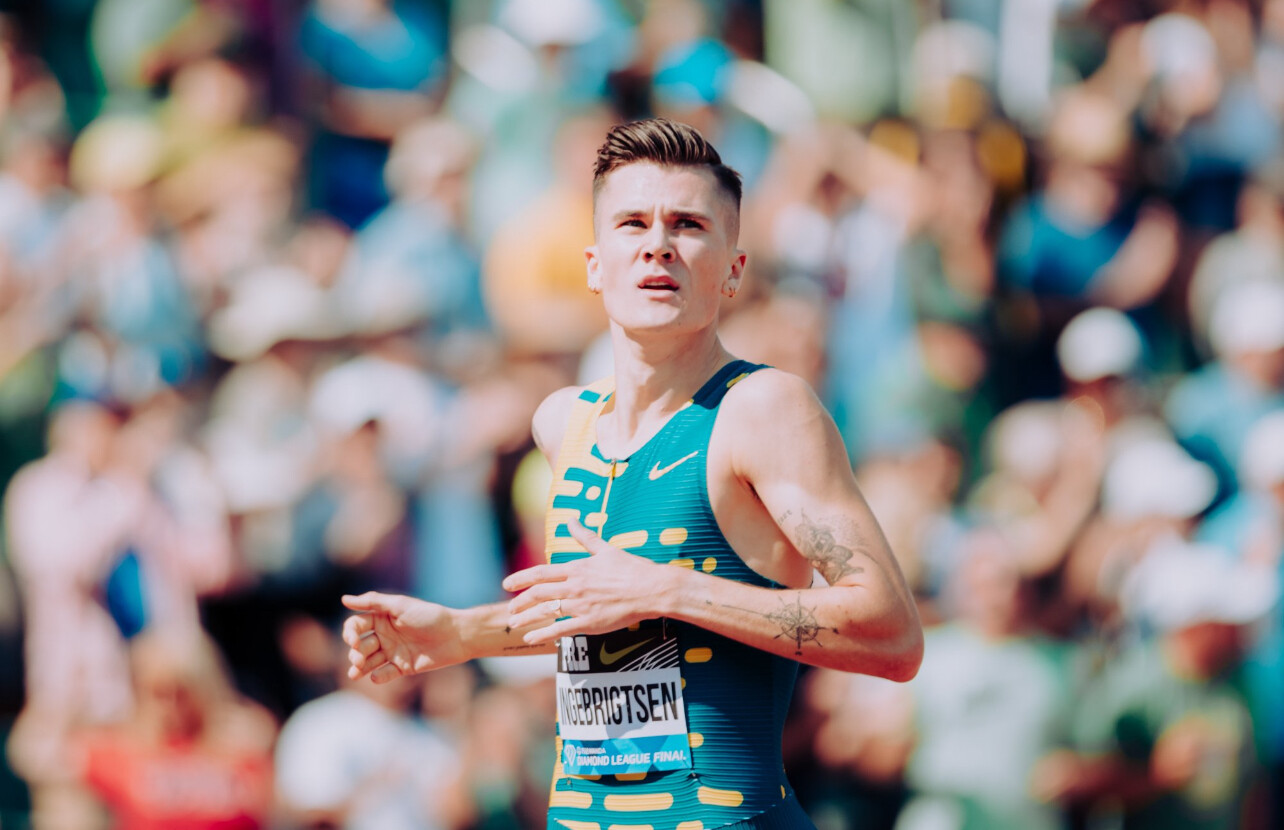
Joining Kipyegon in the 1500m are her fellow 2024 Olympic medalists—silver medalist Jessica Hull of Australia and bronze medalist Georgia Bell of Great Britain. Hull, a former University of Oregon standout, also holds the current world record in the 2000m.
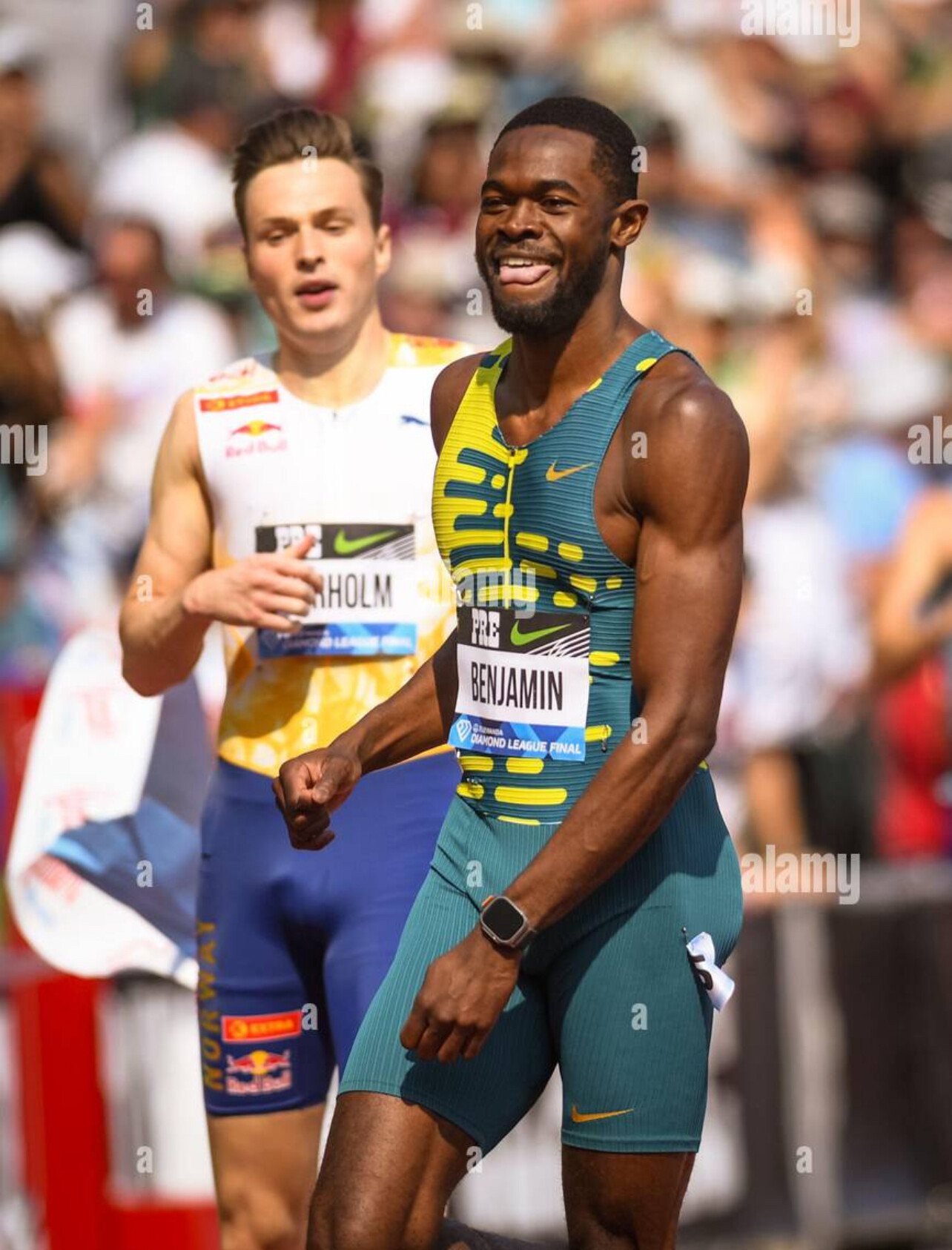
But Kipyegon isn’t the only big name set to thrill fans in Eugene. The men’s Bowerman Mile will feature a stacked lineup that includes:
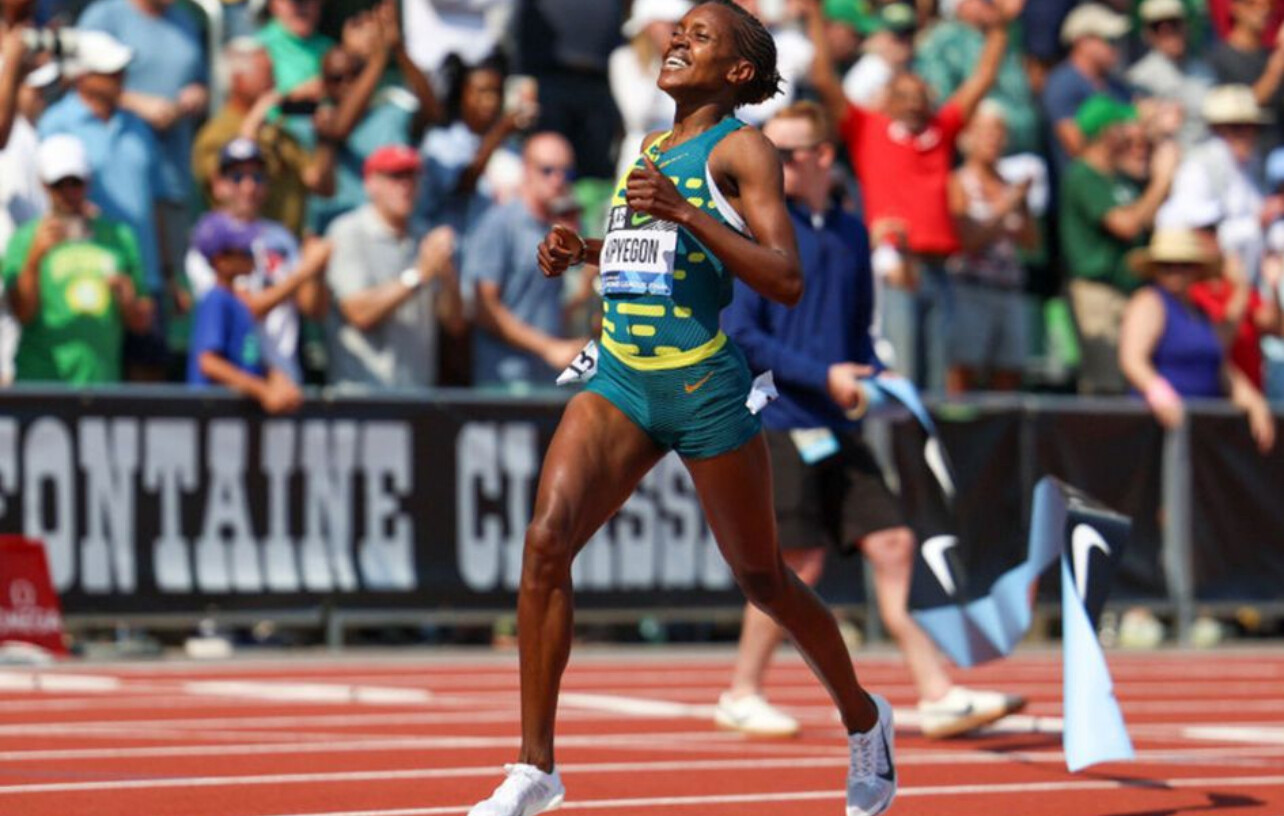
• Jakob Ingebrigtsen (Norway) – Olympic gold medalist and multiple-time Bowerman Mile champion
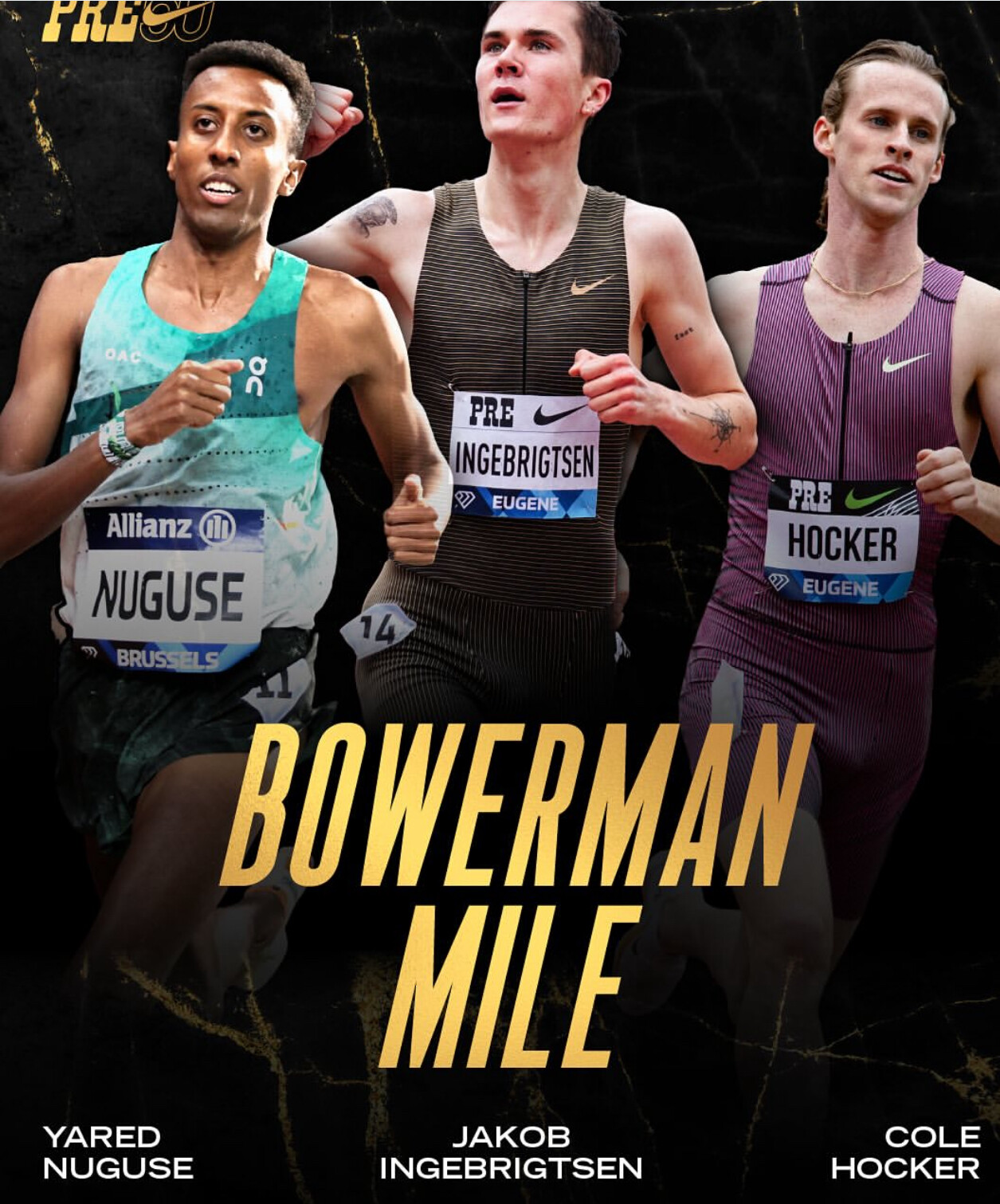
• Cole Hocker (USA) – 2024 Olympic 1500m champion
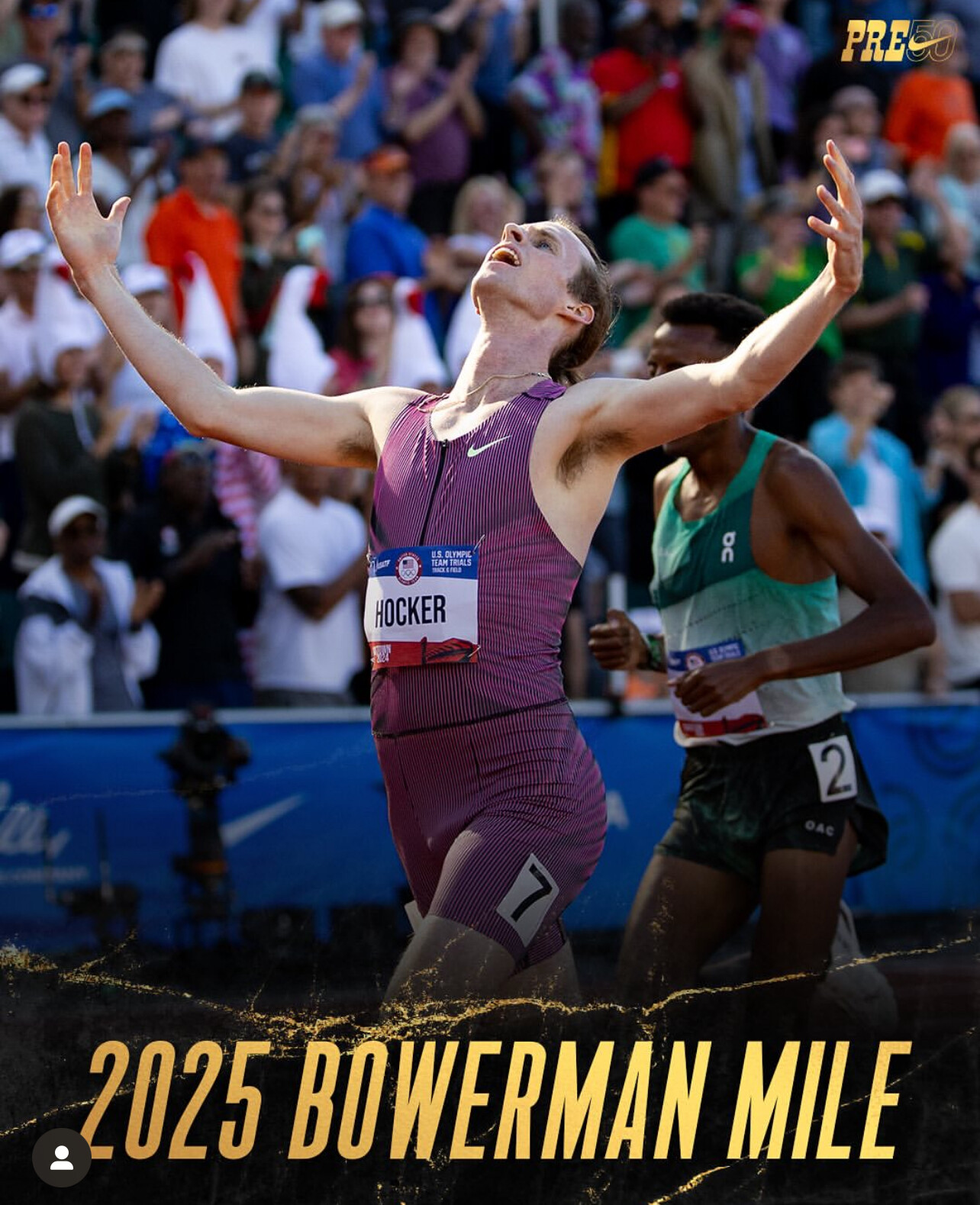
• Yared Nuguse (USA) – Olympic bronze medalist and former indoor mile world record holder
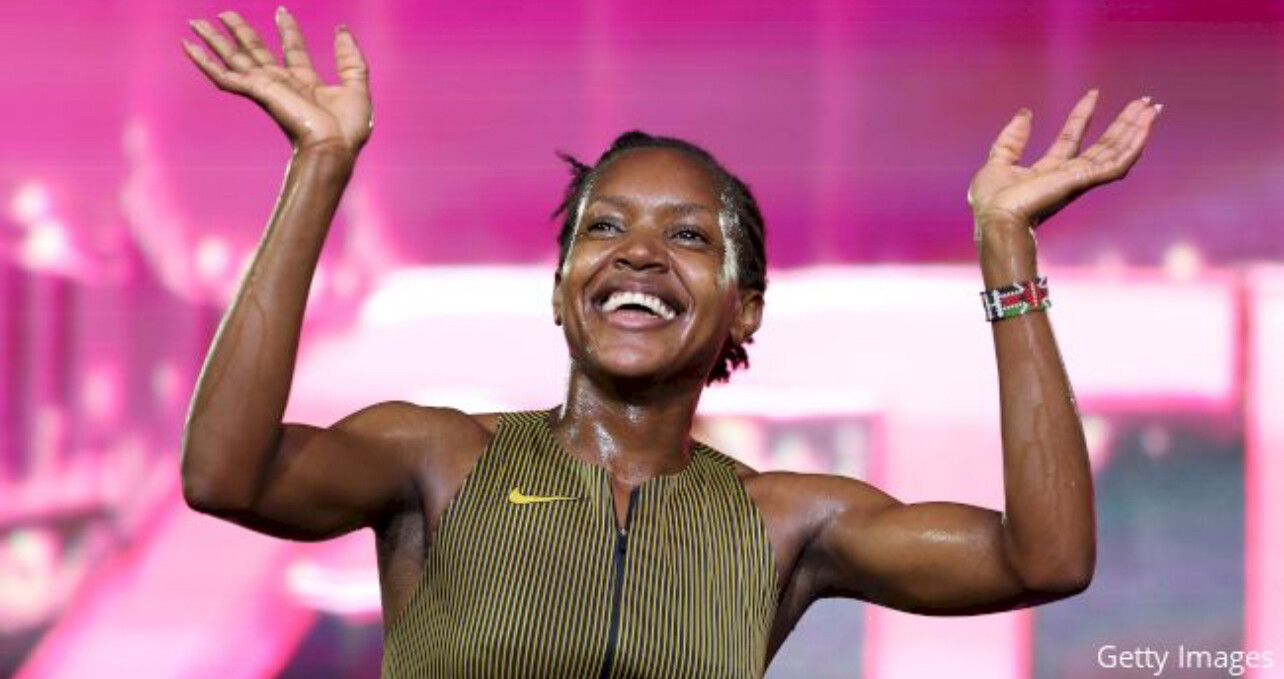
• Timothy Cheruiyot (Li Kenya) – Former world champion
• Jake Wightman (Great Britain) – 2022 world champion
• Grant Fisher (USA) – Olympic bronze medalist in both the 5000m and 10,000m
• Plus rising stars including Oliver Hoare, Neil Gourley, Azeddine Habz, Hobbs Kessler, Niels Laros, Cameron Myers, Stefan Nillessen, and Reynold Cheruiyot
In the men’s 400m hurdles, Olympic silver medalist Rai Benjamin will headline a competitive field that also includes CJ Allen, Trevor Bassitt, Clement Ducos, Malik James-King, Abderrahman Samba, and Assinie Wilson.
The 2025 Prefontaine Classic will feature 14 Diamond League disciplines, including the women’s 800m, 5000m, and 3000m steeplechase—each with world-class fields expected to be announced soon.
As the sport celebrates this milestone edition of the Pre Classic, the meet is shaping up to be not just a tune-up for global championships, but a showcase of track and field at its absolute best.
by Boris Baron
Login to leave a comment
Faith Kipyegon’s Historic Sub-4:00 Mile Attempt Set for June 26 in Paris
Kenyan middle-distance legend Faith Kipyegon is preparing to make history by attempting to become the first woman to run a mile in under four minutes. The highly anticipated event is scheduled for June 26, 2025, at Stade Charléty in Paris and is part of Nike’s “Breaking4” initiative. This project mirrors the brand’s earlier “Breaking2” campaign, which supported Eliud Kipchoge’s groundbreaking sub-two-hour marathon attempt.
Aiming for the Unthinkable
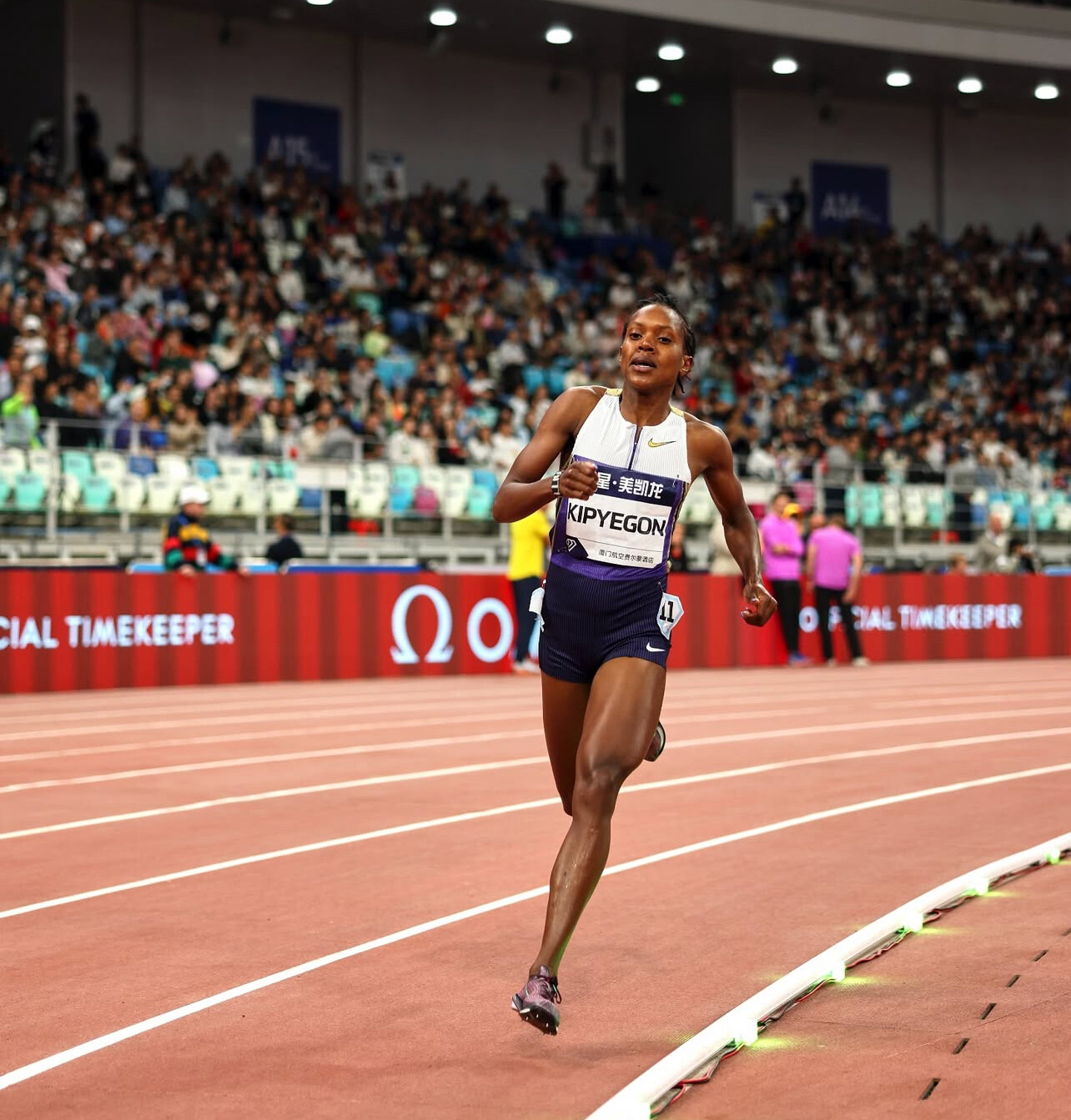
Kipyegon currently holds the women’s mile world record at 4:07.64, achieved at the Monaco Diamond League in July 2023. To break the four-minute barrier, she must shave over seven seconds off her personal best—a monumental challenge in elite middle-distance running.
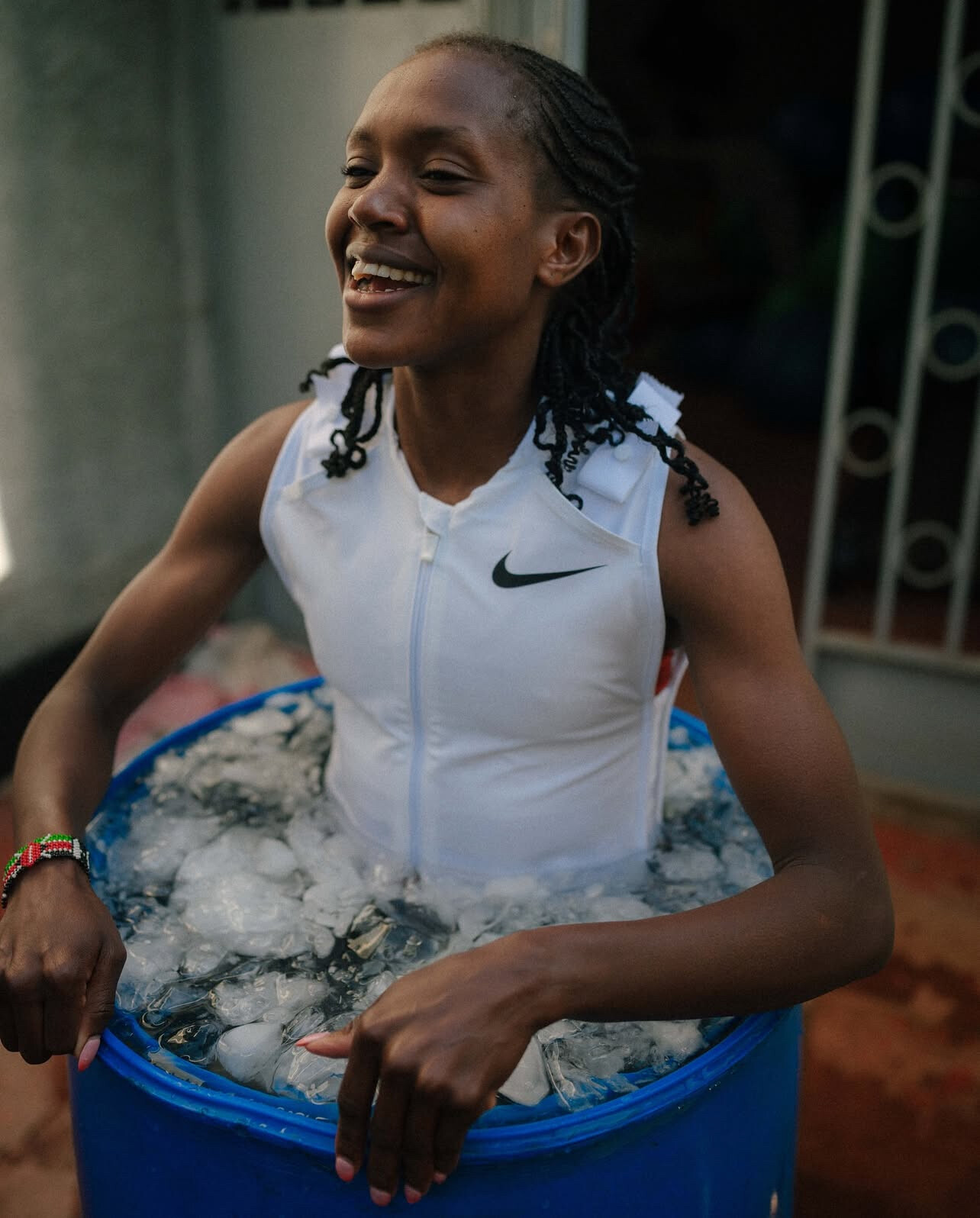
Nike is providing comprehensive support through its “Breaking4” initiative, which includes custom-designed shoes and apparel tailored to Kipyegon’s physiology. The gear is developed in Portland and aims to optimize her performance.
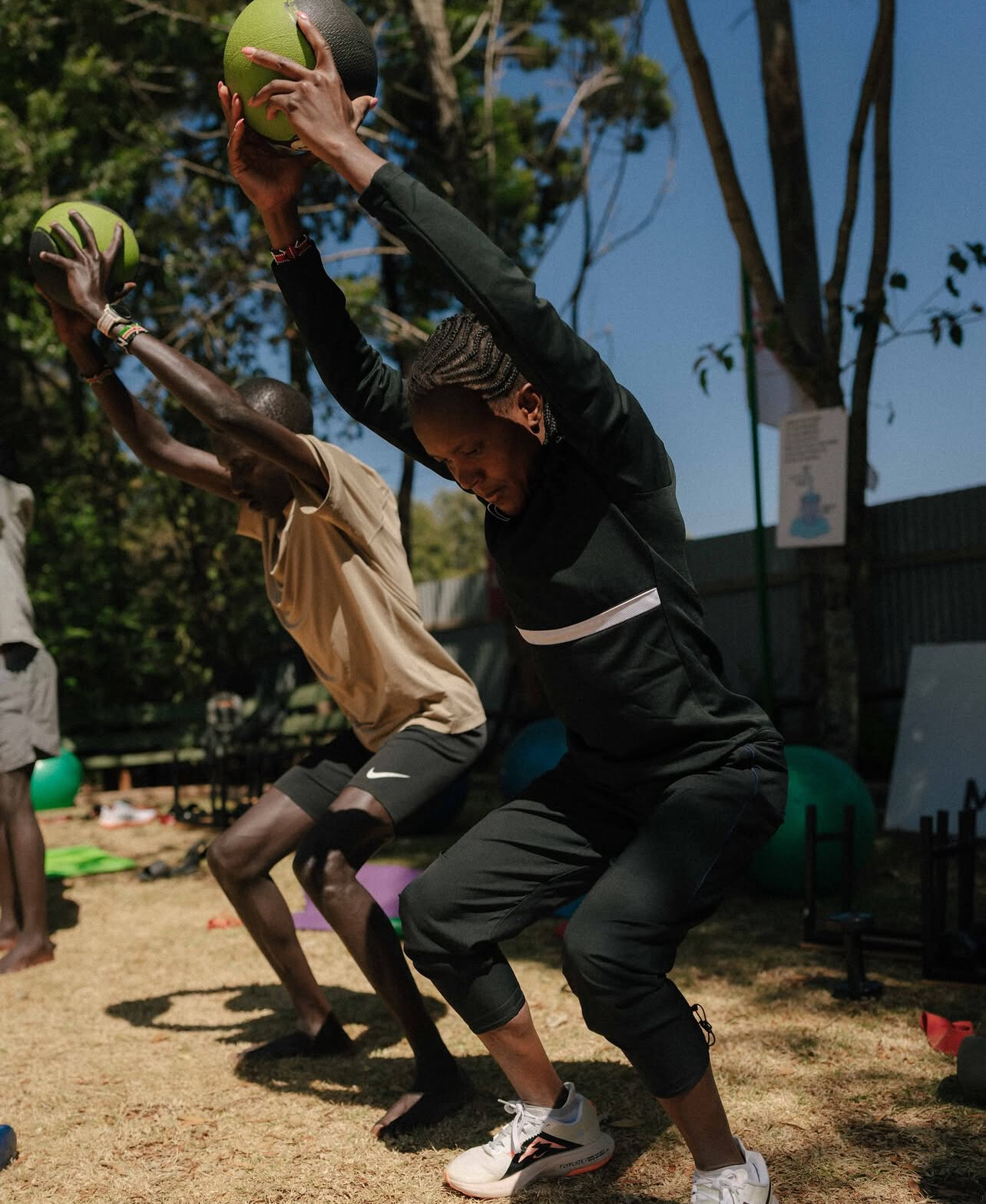
This will not be an Official Record
It’s important to note that this attempt will not be eligible for official world record recognition. The use of male pacemakers and advanced performance aids, such as laser pacing lights and cutting-edge footwear, disqualify the event from official status.
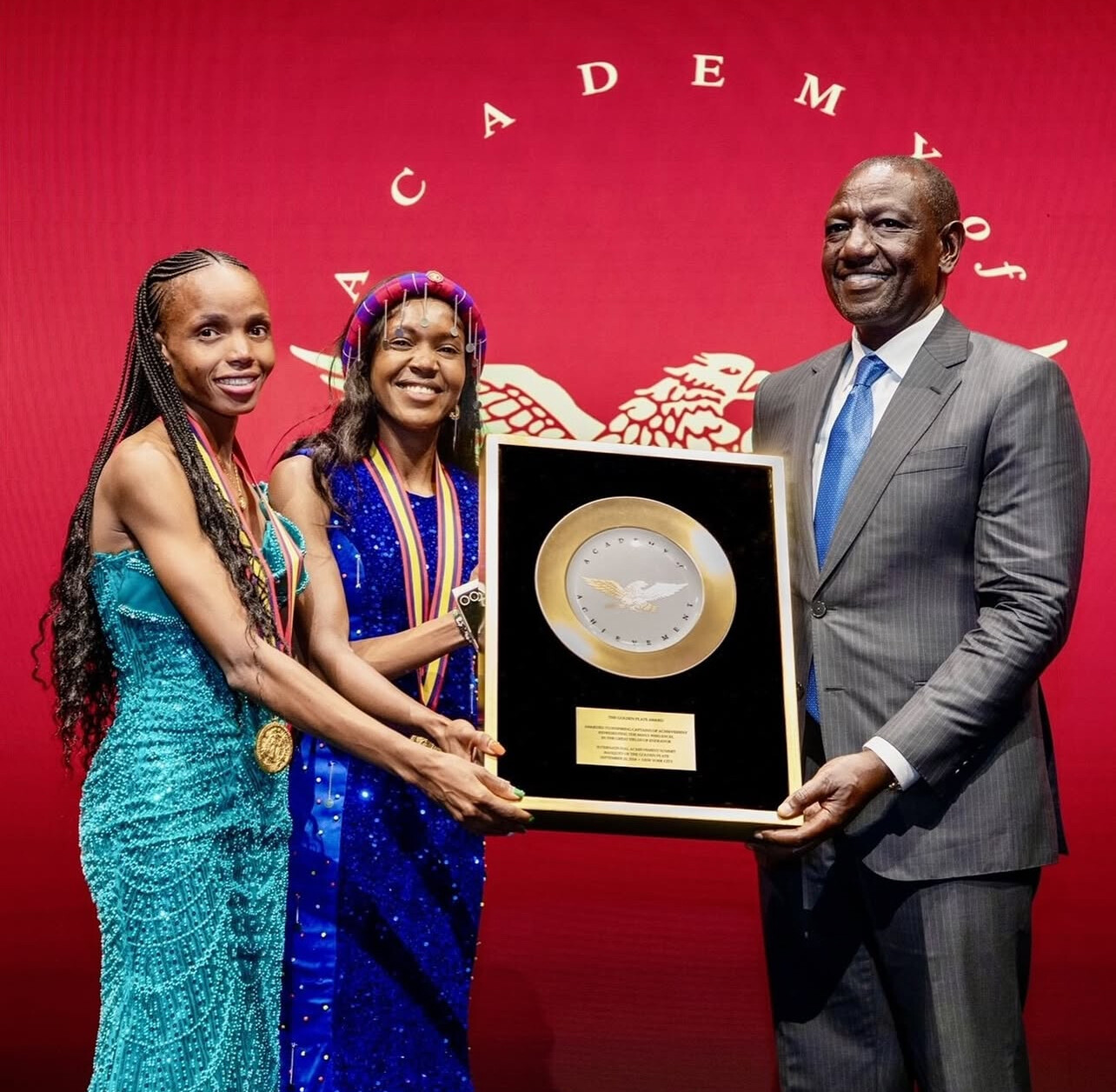
This setup is reminiscent of Kipchoge’s sub-two-hour marathon run, which, despite its significance, was not officially recognized due to similar conditions.
A Symbol of Inspiration
Beyond the athletic achievement, Kipyegon views this endeavor as a message to women worldwide. She has stated that she is running “to say to women, ‘You can dream and make your dreams valid.’”
Whether or not she breaks the four-minute barrier, Kipyegon’s attempt is set to inspire and push the boundaries of what is considered possible in women’s athletics.
by Boris Baron
Login to leave a comment
This is a marketing event for Nike being a paced time trial (what woman could have paced her anyway for an official race) but in any case it will be amazing to know that a woman can indeed run a mile in under four minutes. I know I will be watching. - Bob Anderson 4/29 5:58 pm |
Diamond League 2025 Begins Saturday in Xiamen: Distance Stars Ready to Shine on Global Stage
The 2025 Wanda Diamond League kicks off this Saturday, April 26, in Xiamen, China, launching the most prestigious one-day series in global track and field. With 15 elite meets on the calendar, this year’s circuit serves as both a proving ground and a preview for the World Athletics Championships in Tokyo this September.
While Olympic champion Grant Holloway will headline the sprint hurdles, it’s the middle- and long-distance events in Xiamen that promise some of the most compelling matchups of the weekend.
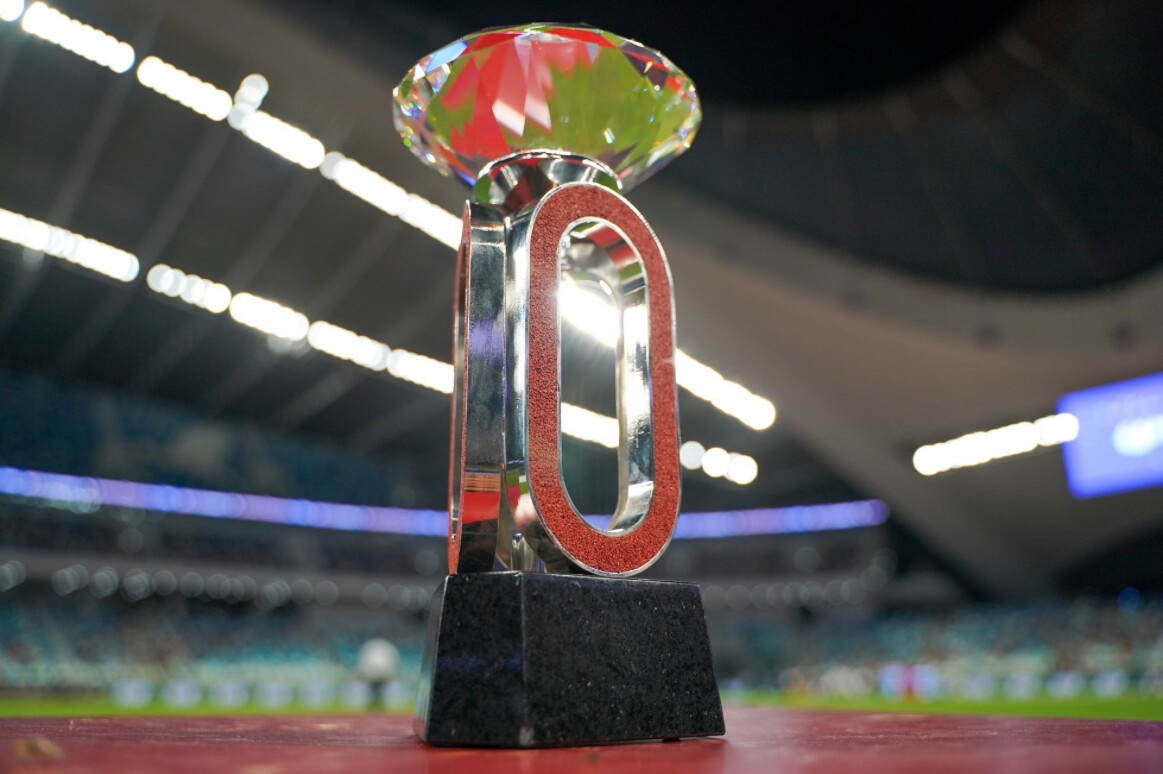
Chebet vs. Tsegay in the Women’s 5000m
Saturday’s most anticipated race may be the women’s 5000m, featuring a classic Kenya vs. Ethiopia showdown.
Beatrice Chebet, the reigning Olympic champion and world record holder in the 10,000m, opens her Diamond League campaign against Gudaf Tsegay, the reigning 5000m world champion and world record holder. With personal bests of 14:05.92 (Chebet) and 14:00.21 (Tsegay), the two are expected to push each other deep into record territory.
They’ll be challenged by rising Ethiopian talents Freweyni Hailu and Birke Haylom, both capable of delivering world-class performances.
Kipyegon Returns in the 1000m
Also making her season debut is Kenyan superstar Faith Kipyegon, who will race the rarely-run 1000m. The two-time Olympic and world champion is the current world record holder in both the 1500m and the mile.
In Xiamen, she’ll face Jamaica’s Natoya Goule-Toppin and Uganda’s Halimah Nakaayi, both of whom are known for their championship pedigree over 800m. The 1000m offers an ideal distance for Kipyegon to sharpen her speed and stamina heading into the summer.
Men’s 3000m Steeplechase: A Deep Field Emerges
The men’s 3000m steeplechase will feature a stacked lineup, with top athletes from Kenya, Ethiopia, and Morocco vying for early-season dominance. With the event’s tradition of upsets and tactical drama, this race will be one to watch for fans of distance racing.
2025 Wanda Diamond League Schedule
Following Xiamen, the Diamond League tour travels to 14 more cities before the two-day final in Zurich. Here’s the full schedule:
• April 26 – Xiamen, China
• May 3 – Shanghai/Suzhou, China
• May 16 – Doha, Qatar
• May 25 – Rabat, Morocco
• June 6 – Rome, Italy
• June 12 – Oslo, Norway
• June 15 – Stockholm, Sweden
• June 20 – Paris, France
• July 5 – Eugene, USA
• July 11 – Monaco
• July 19 – London, UK
• August 16 – Silesia, Poland
• August 20 – Lausanne, Switzerland
• August 22 – Brussels, Belgium
• August 27–28 – Zurich, Switzerland (Diamond League Final)
The series leads directly into the 2025 World Athletics Championships, set for September 13–21 at Japan National Stadium in Tokyo.
by Boris Baron
Login to leave a comment
Kenyan Athletes Nominated for Africa Golden Awards 2025
Kenyan athletes Ferdinand Omanyala, Eliud Kipchoge, and Faith Kipyegon have been nominated for the prestigious Africa Golden Awards’ Best Athlete of the Year 2025. The awards ceremony is scheduled to take place in Nairobi on April 27, 2025.
Ferdinand Omanyala
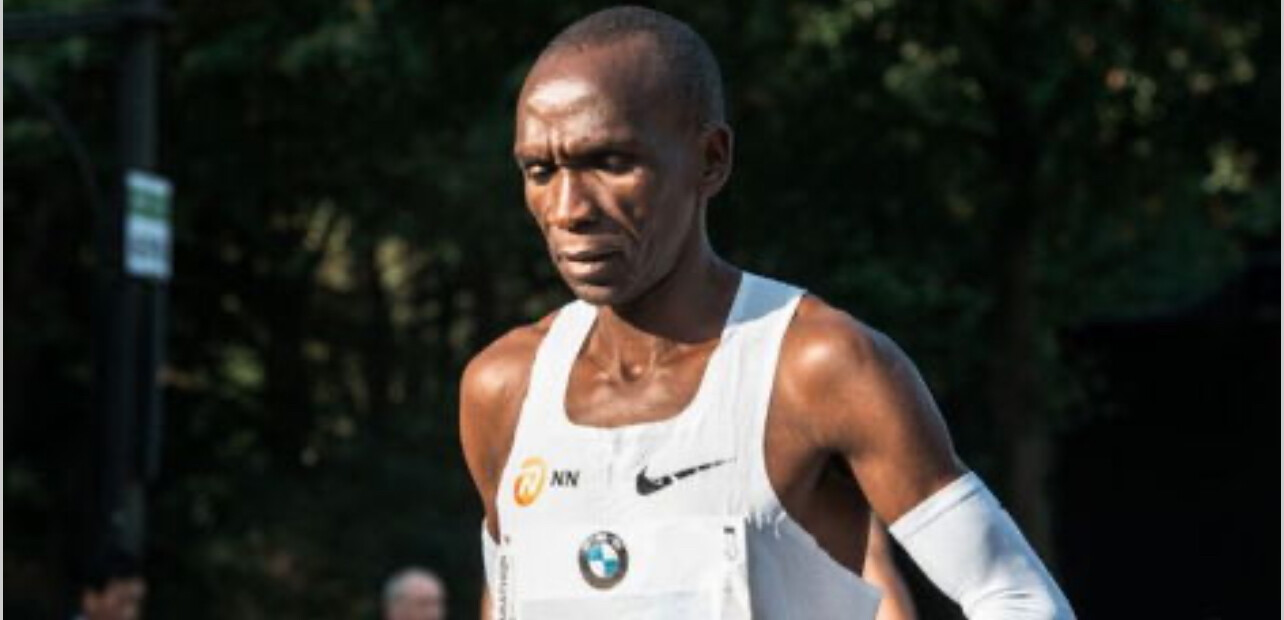
Renowned for his sprinting prowess, Omanyala had a mixed 2024 season. He secured a fourth-place finish at the World Athletics Indoor Championships and reached the semi-finals at the Paris Olympics, finishing eighth. Despite these challenges, his nomination underscores his significant impact on African sprinting.
Eliud Kipchoge
The marathon legend faced a challenging 2024, finishing 10th at the Tokyo Marathon and recording a Did Not Finish (DNF) at the Paris Olympics. Nonetheless, his enduring legacy in long-distance running and his influence on the sport have earned him a place among the nominees.
Faith Kipyegon
Middle-distance runner Kipyegon had a stellar 2024 season, highlighted by her third consecutive Olympic gold in the 1500m at the Paris Olympics. She also secured a silver medal in the 5000m, further cementing her status as one of the year’s top athletes.
Voting and Awards Ceremony
Voting for the Best Athlete of the Year award commenced on March 9 and will continue until April 21. The athlete receiving the highest number of votes will be honored at the awards gala on April 27 in Nairobi. The winner will receive Ksh4.5 million (USD 35,000), with the first and second runners-up earning Ksh2.5 million (USD 20,000) and Ksh1.2 million (USD 10,000), respectively.
The Africa Golden Awards aim to recognize and celebrate the exceptional achievements of African athletes, highlighting the continent’s growing prominence in the global sports arena.
by Boris Baron
Login to leave a comment
Can a Woman Legally Break the Four-Minute Mile?
The men’s four-minute mile barrier was once considered impossible—until Roger Bannister broke through on May 6, 1954, clocking 3:59.4. It marked a seismic shift in the world of athletics, changing not only what runners believed was possible, but what the sport expected from its best. Seven decades later, that milestone remains sacred in the women’s mile. The closest anyone has come is Faith Kipyegon of Kenya, who ran 4:07.64 at the Monaco Diamond League on July 21, 2023, smashing the previous world record.
But is a sub-four-minute mile for women still a distant dream—or are we on the cusp of another historic breakthrough?
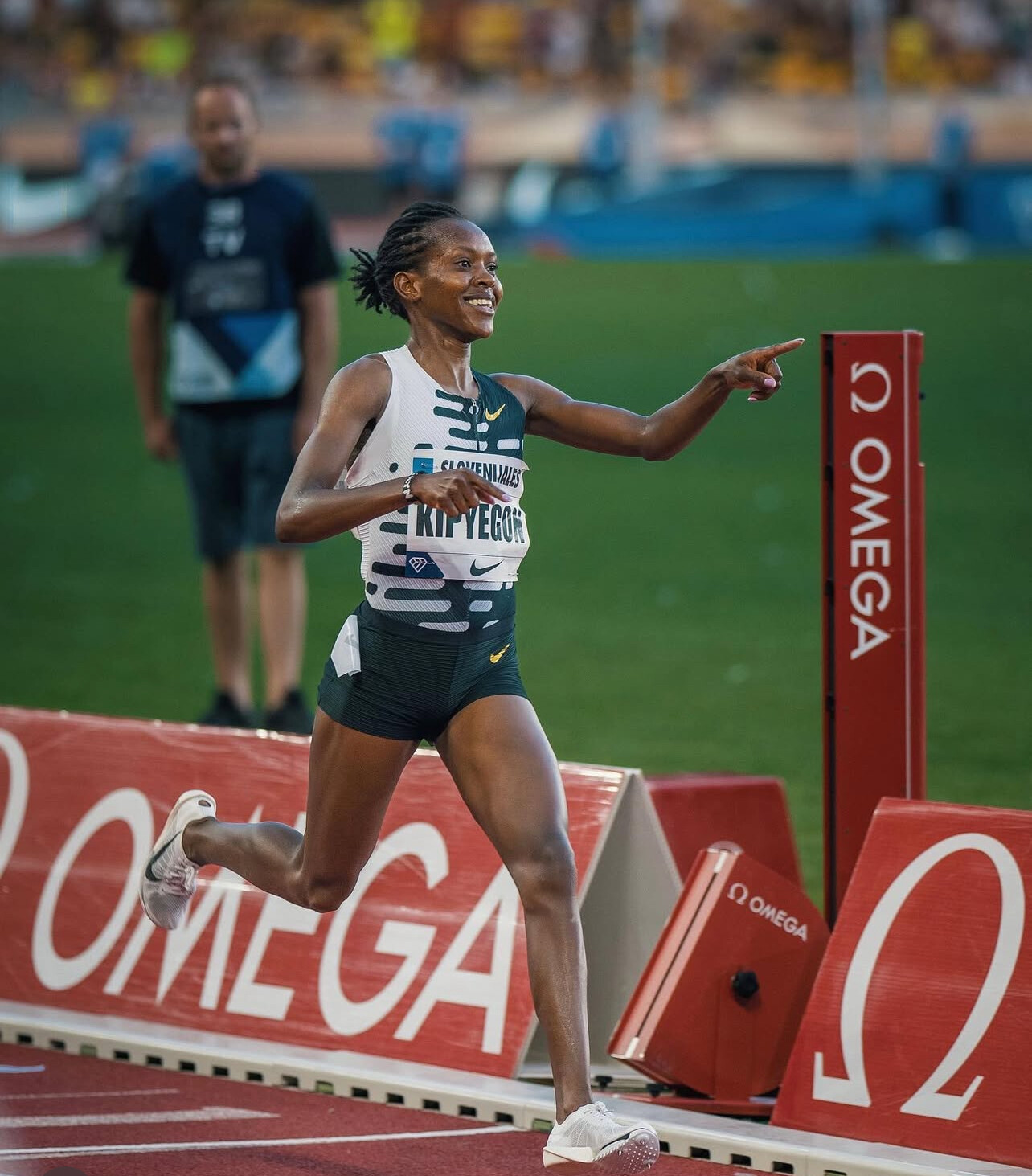
“I remember when Roger Bannister broke four minutes for the mile,” says My Best Runs founder Bob Anderson. “It was such an exciting moment in history. I think it will be even more exciting when a woman joins the club.”
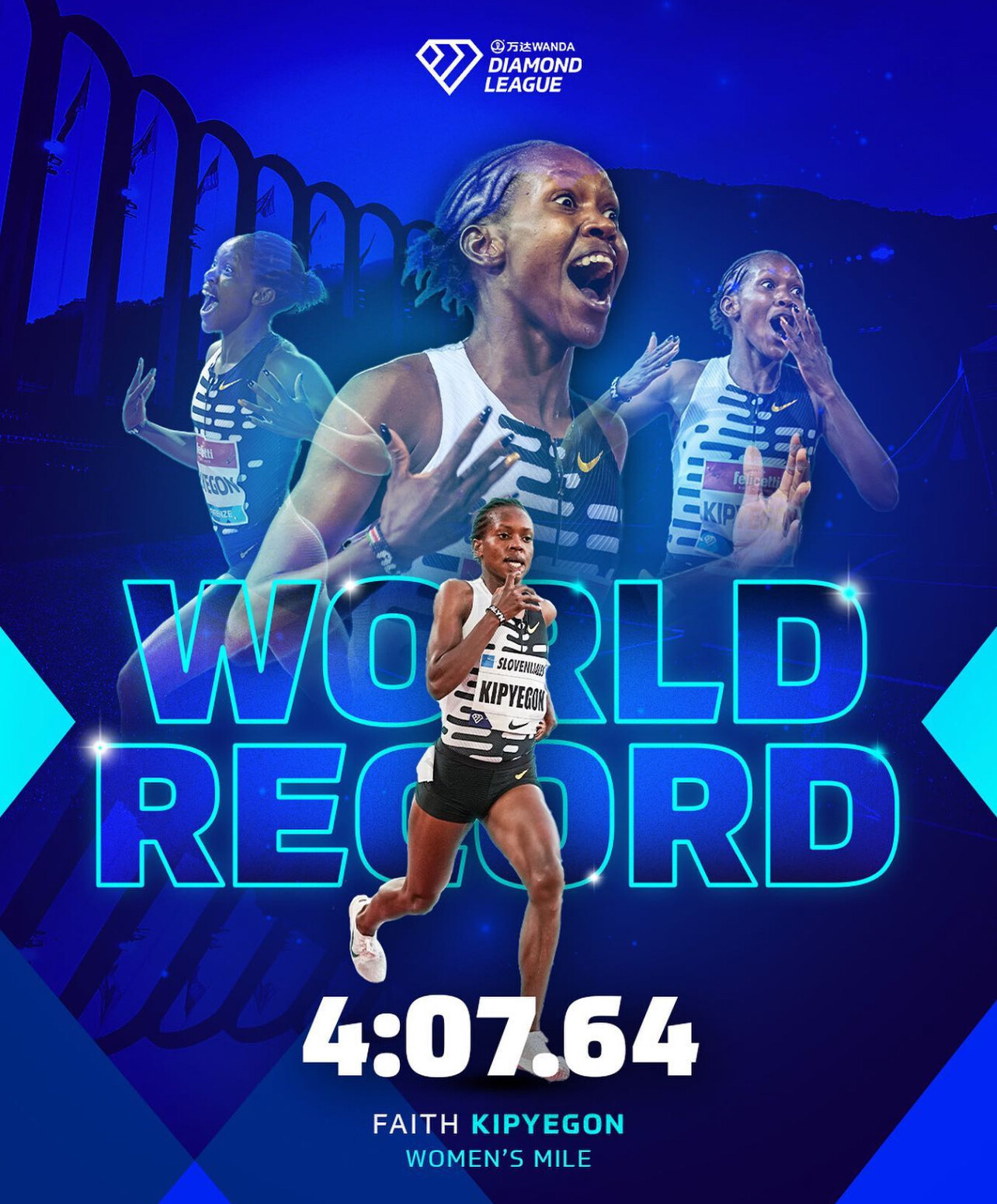
Faith Kipyegon: The Closest So Far
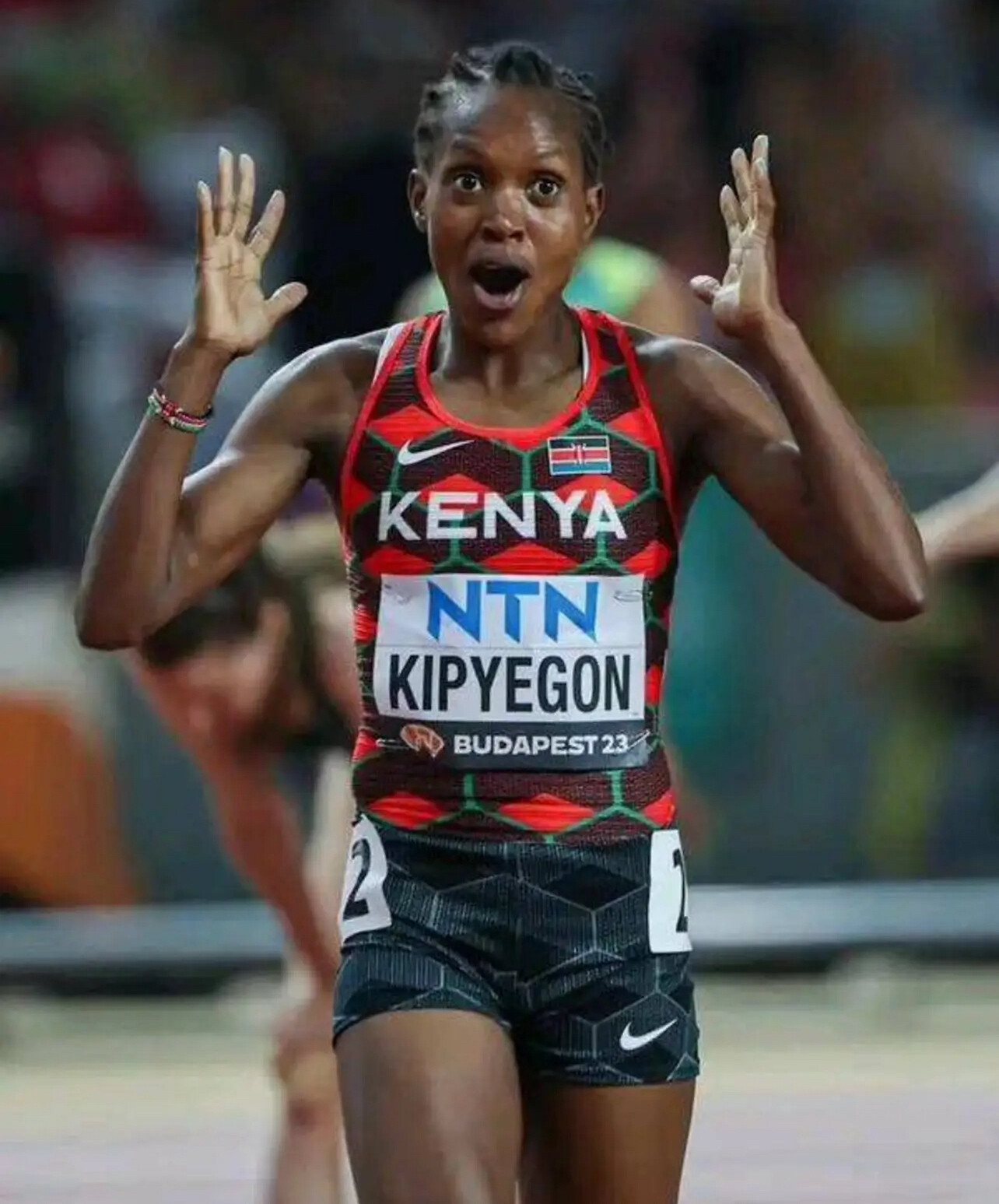
Faith Kipyegon has redefined what’s possible in women’s middle-distance running. Her 4:07.64 run in Monaco wasn’t just a world record—it was a display of precision pacing, power, and race execution. In that race, every single runner set a personal best, national record, or season best. But for Kipyegon to cut another 7+ seconds from that time—down to 3:59.9—would take another leap forward.
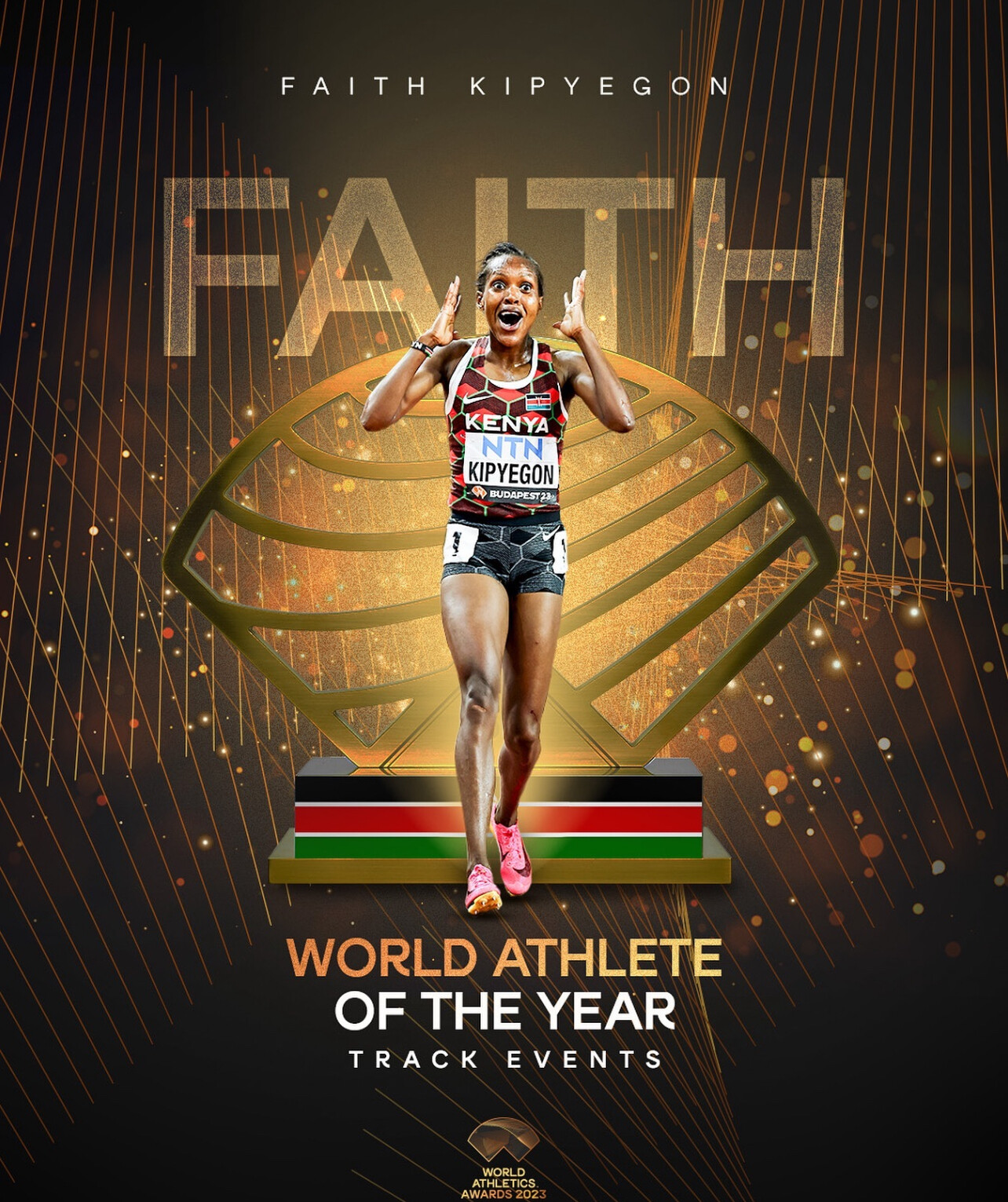
She’s already run a 3:49.11 in the 1500m, the fastest time in history. Converted directly, that performance suggests a mile potential close to 4:07–4:05, but a sub-4:00 mile would require averaging approximately 59.8 seconds per 400 meters—four consecutive laps at a pace that currently no woman in history has sustained.
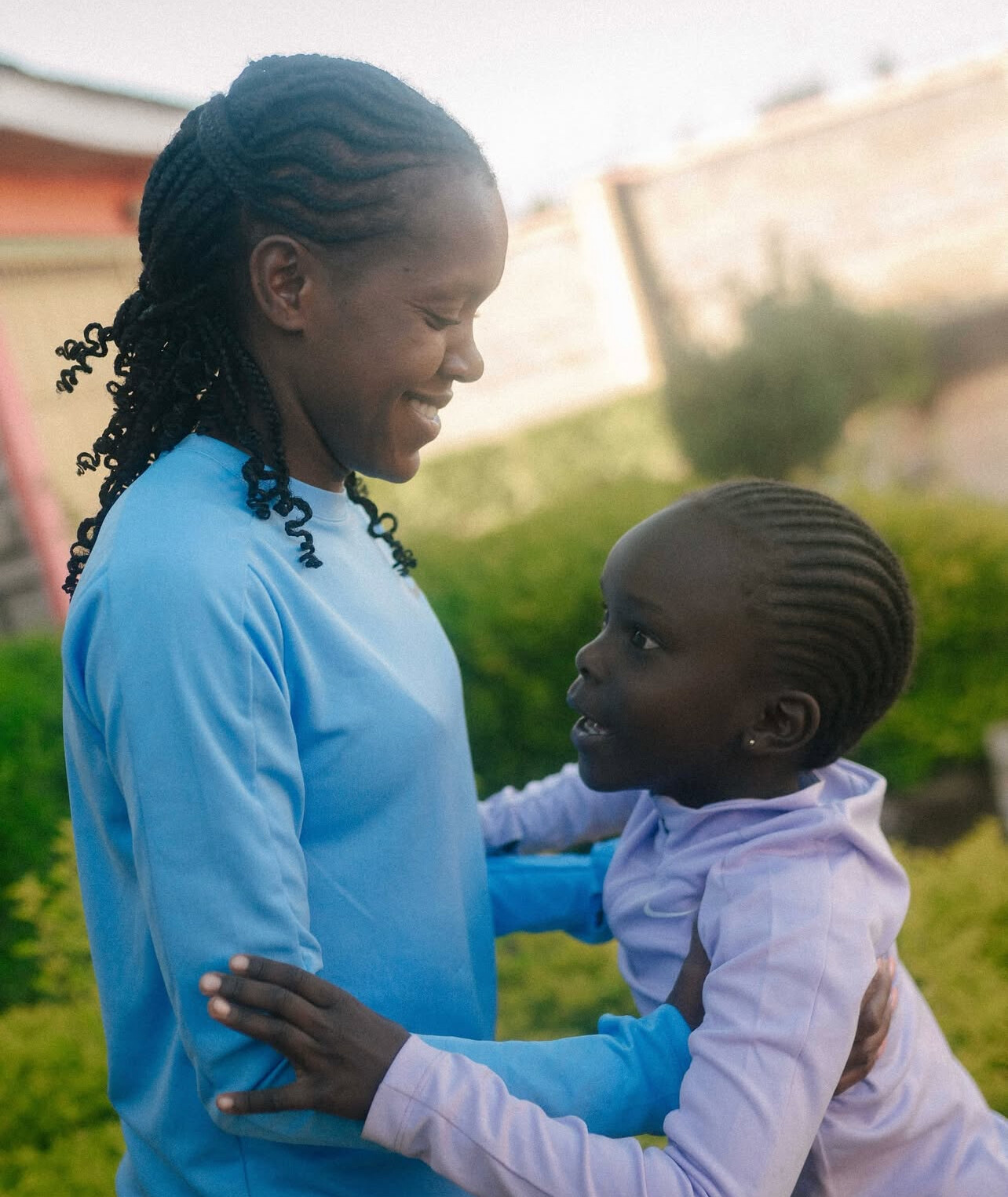
Legality Matters: What the Rules Allow
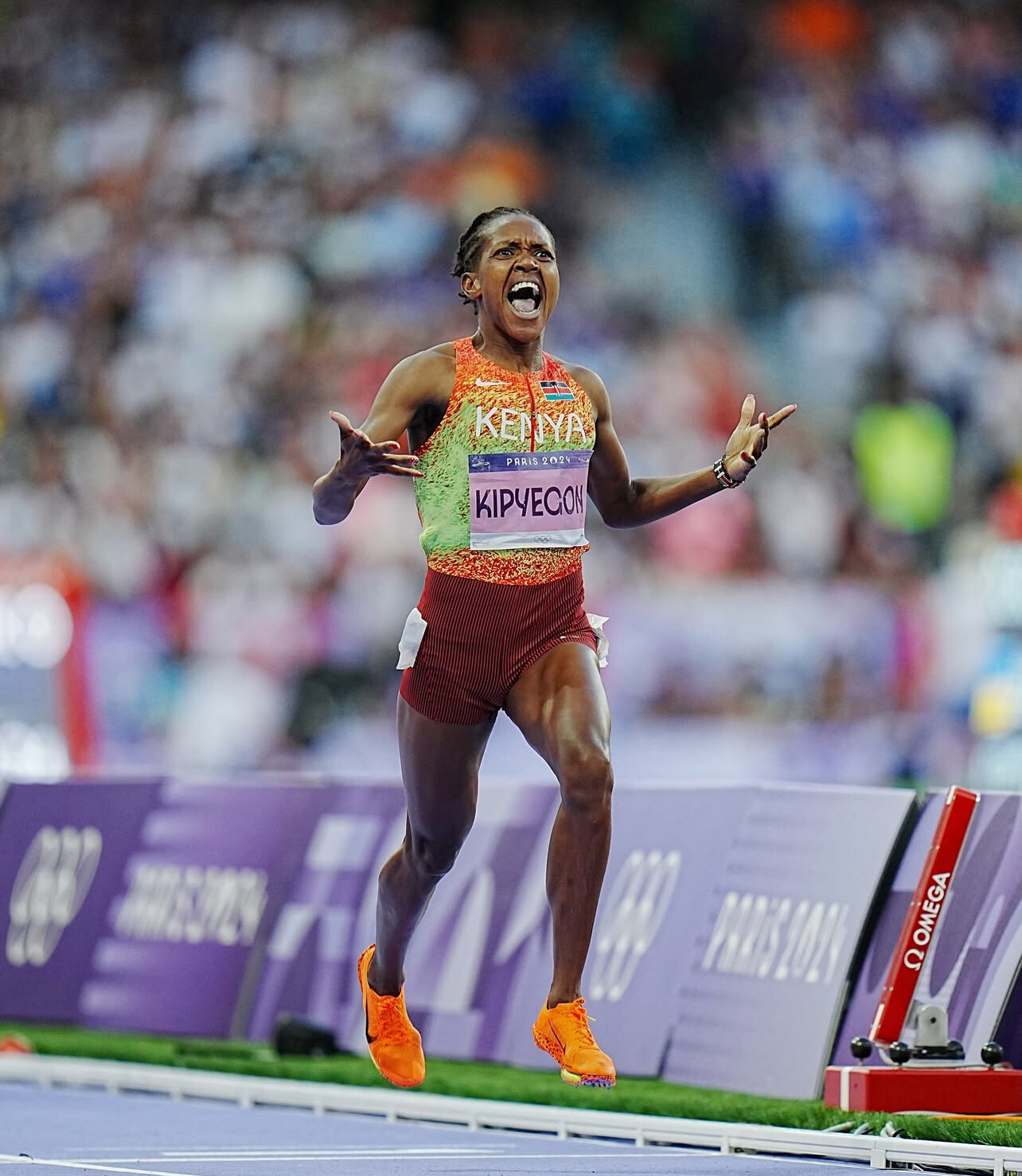
There has been plenty of discussion about whether women might break four minutes with the help of male pacemakers, similar to what’s been done in mixed road races. But here’s the reality: if a performance is going to count as a world record—or even be considered legitimate in top-level track competition—it must be done in a women-only race.
That means:
• Pacemakers must be female.
• They must be officially entered in the race.
• They must start with the field and not enter partway through.
These rules, established by World Athletics, ensure a level playing field and maintain the legitimacy of records. Male pacers are sometimes used in road races (like marathons and half marathons), particularly in mixed-gender fields, but their use invalidates a performance for women’s-only world record purposes.
So while some researchers have speculated that aerodynamic drafting with perfectly placed pacers could help a woman run 3:59, such scenarios often suggest using alternating pacers (ahead and behind) or male runners, neither of which is legal in women-only track events.
So How Could It Happen—Legally?
If it’s going to happen the right way, the most likely path forward includes:
• Female pacemakers: Even if a sub-four-mile requires a woman to finish the job solo, having another woman help with the first two or even two-and-a-half laps is still legal and useful. But that pacer would have to run the first 800–1000 meters at 4:00 mile pace—meaning 2:00–2:30 for 800–1000 meters. That’s a world-class performance on its own.
• Smart pacing and preparation: The sub-four will take near-perfect training, likely at altitude or with world-class facilities and recovery. It may require peaking for just one race with laser-focused timing.
• Technological and environmental optimization: Legal shoe tech, fast track surfaces, calm weather (for outdoor races), and ideal pacing rhythm will all play a role.
Who Might Do It?
Faith Kipyegon is the leading candidate today. She has shown the range, consistency, and drive needed to make history. But others may be in the wings—young talents with 1500m PRs in the low 3:50s and raw speed over 800 meters could have the perfect blend of endurance and turnover.
It’s also likely that, like Bannister’s 1954 run, the moment will come with the help of a team: pacemakers who understand their job, a well-timed race, and a field that pushes the pace without hesitation.
Final Thoughts
A sub-four-minute mile by a woman is not just a mathematical milestone—it’s a cultural one. It would mark the end of one of the last iconic gender-separated barriers in track and field. It would also be a celebration of decades of progress in training, physiology, opportunity, and competition.
The question is no longer “if,” but “when.”
And when it happens, it might just be one of the greatest moments in the sport’s history.
by My Best Runs Editorial Team
Login to leave a comment
Faith Kipyegon Eyes Historic Sub-Four-Minute Mile
Faith Chepngetich Kipyegon has cemented herself as one of the greatest middle-distance runners of all time, rewriting records and redefining what is possible in women’s athletics. With multiple Olympic and World Championship titles to her name, she continues to push the boundaries of human performance. Now, she stands on the brink of making history again—becoming the first woman to break the elusive four-minute mile barrier.
Born on January 10, 1994, in Bomet, Kenya, Kipyegon’s journey to greatness began in the Rift Valley, a region known for producing world-class distance runners. Initially a soccer enthusiast, her raw talent for running became evident when she effortlessly won a school race at age 14. That moment set her on a path that would lead to global dominance.
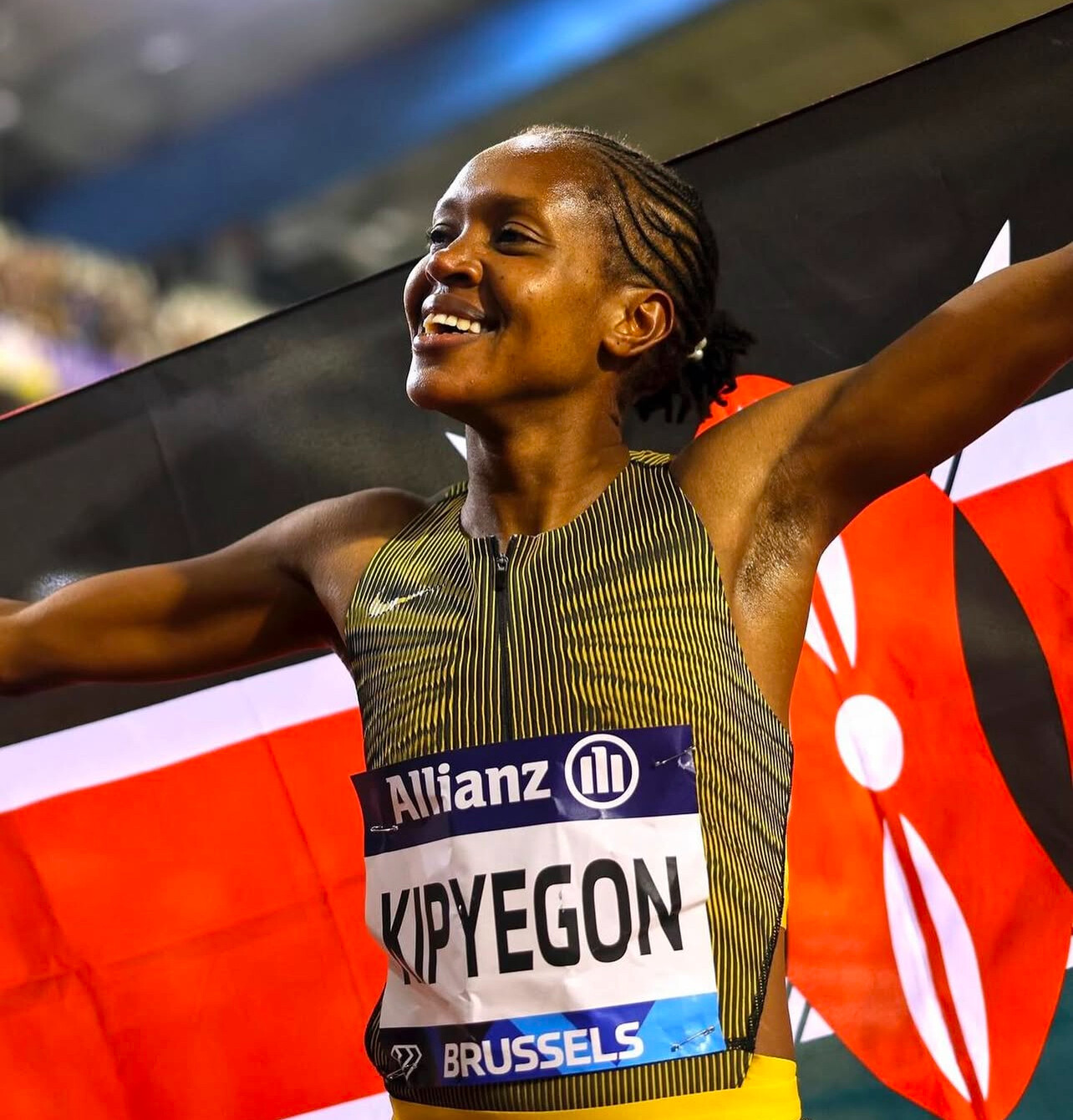
Kipyegon burst onto the international stage at the 2010 World Cross Country Championships in Poland, where she competed barefoot and finished fourth in the junior race. She quickly ascended the ranks, winning gold at the 2011 and 2013 World Cross Country Championships, as well as titles in the 1500m at the 2011 World Youth Championships and the 2012 World Junior Championships.
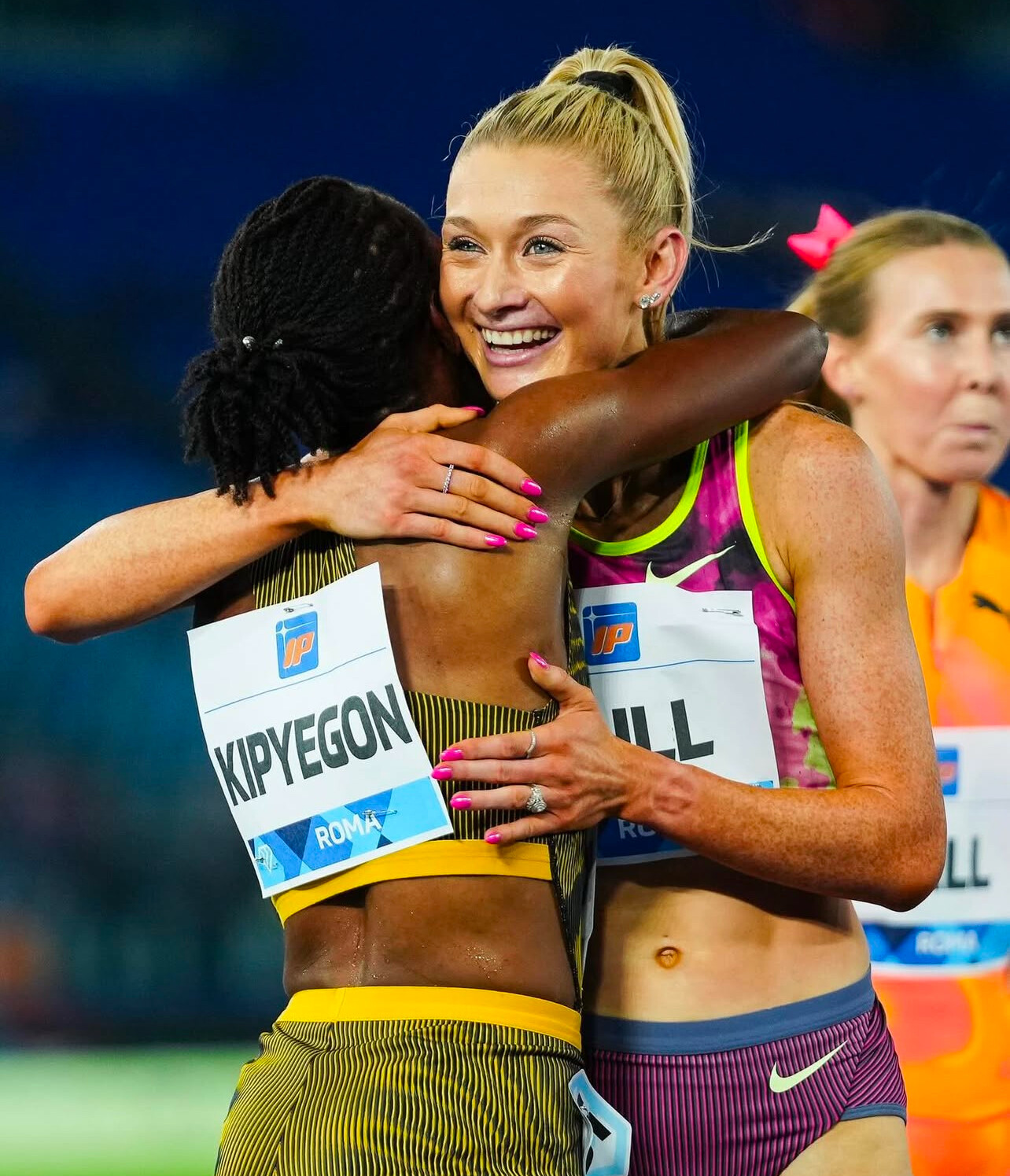
Her Olympic career is nothing short of legendary. She won her first 1500m gold at the 2016 Rio Games and defended her title in Tokyo in 2021. At the 2024 Paris Olympics, she made history by securing a third consecutive gold medal in the event, setting an Olympic record of 3:51.29. In World Championship competition, she has claimed multiple titles, including a remarkable double victory in the 1500m and 5000m at the 2023 Budapest World Championships.
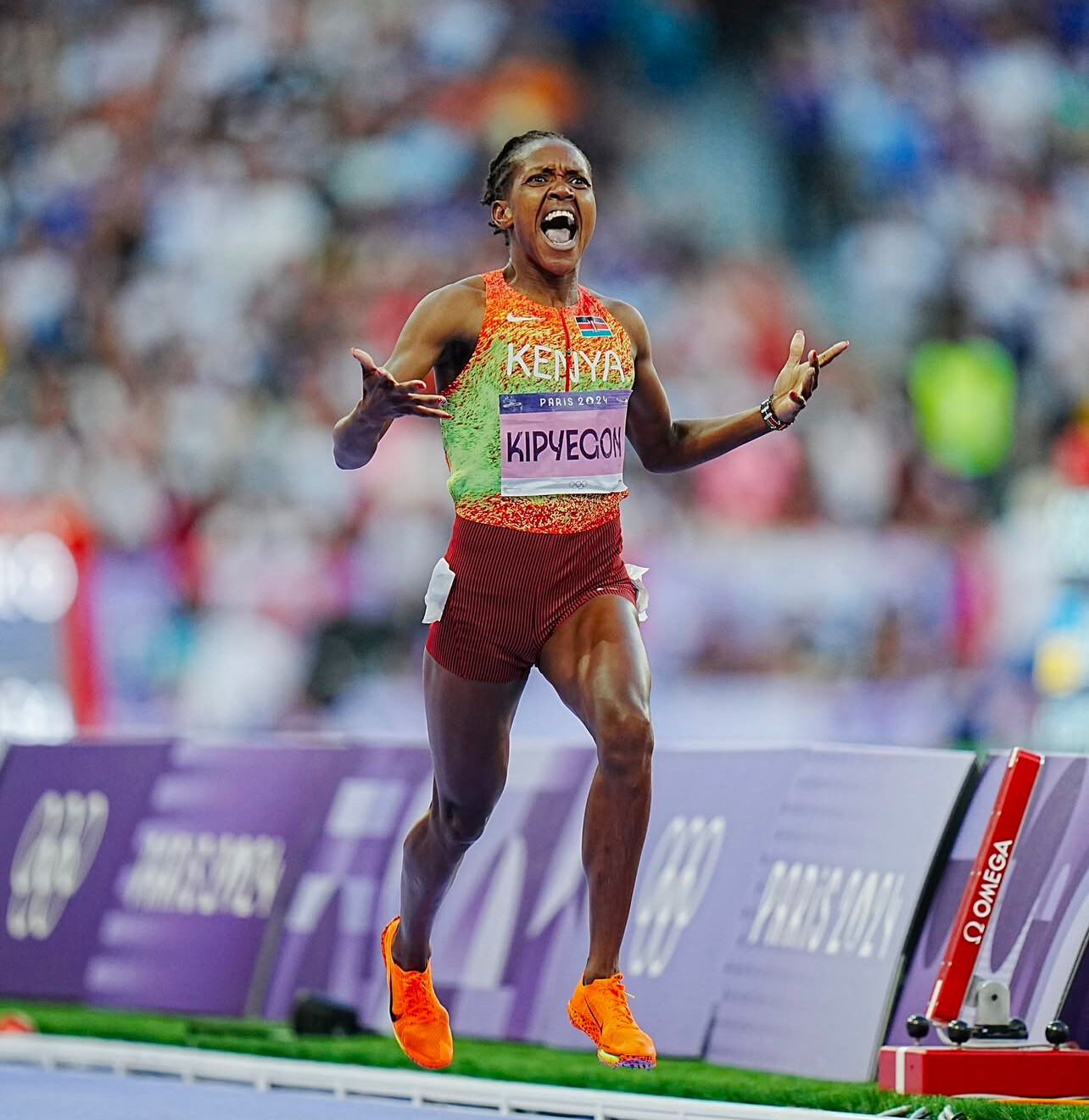
Kipyegon’s dominance extends beyond championship racing—her record-breaking performances on the track are rewriting history. The year 2023 was a defining one for her career. On June 2, she shattered the 1500m world record with a time of 3:49.11 at the Florence Diamond League. Just a week later, she broke the 5000m world record in Paris, running 14:05.20. On July 21, she delivered yet another groundbreaking performance by setting a new world record in the mile, clocking 4:07.64 at the Monaco Diamond League.
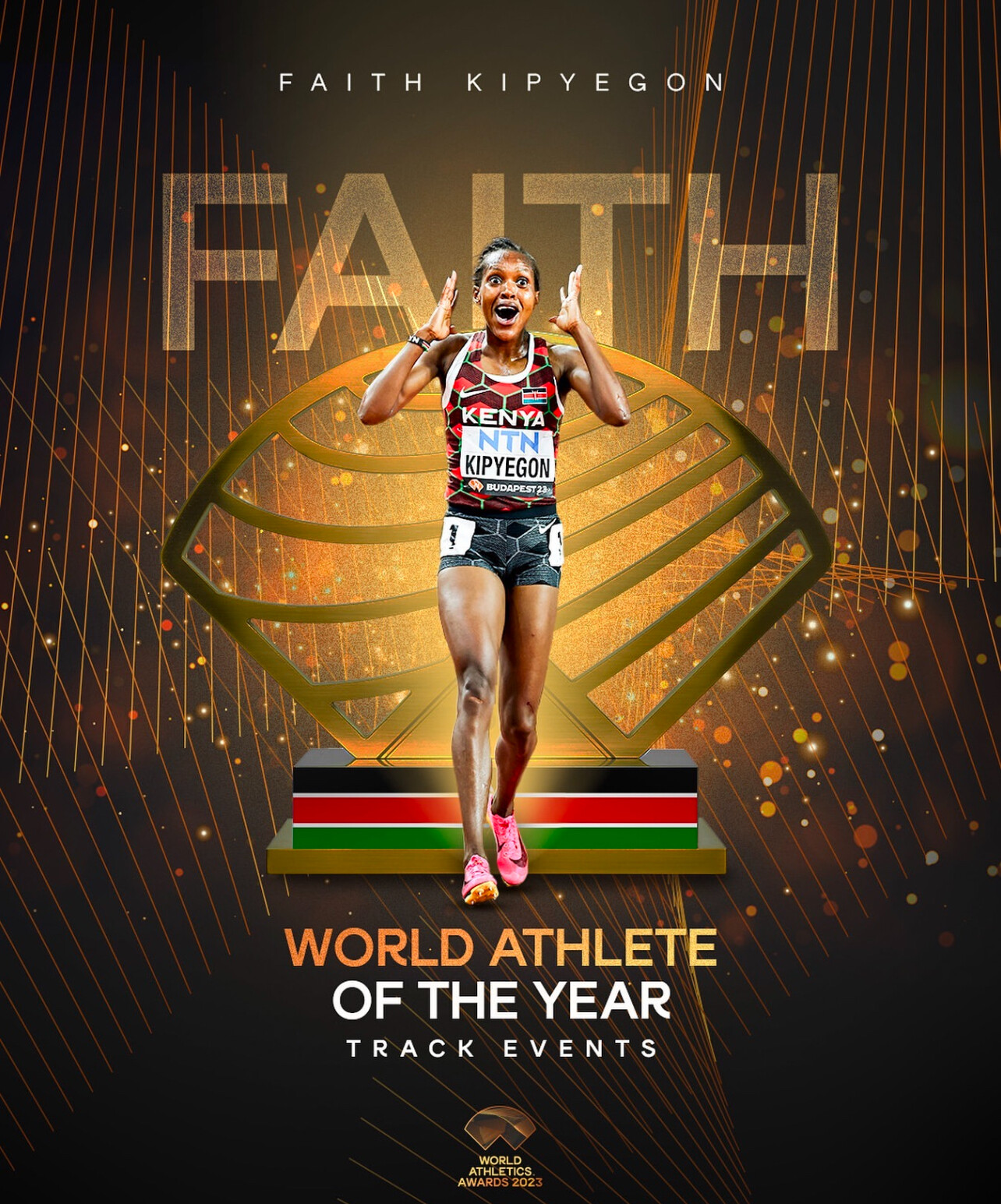
Her mile world record surpassed the previous mark of 4:12.33, set by Sifan Hassan in 2019. This extraordinary feat has sparked conversations in the running world about whether Kipyegon could be the first woman to break the four-minute mile barrier. Experts suggest that with optimal pacing, drafting, and race conditions, she has the potential to achieve what was once thought impossible.
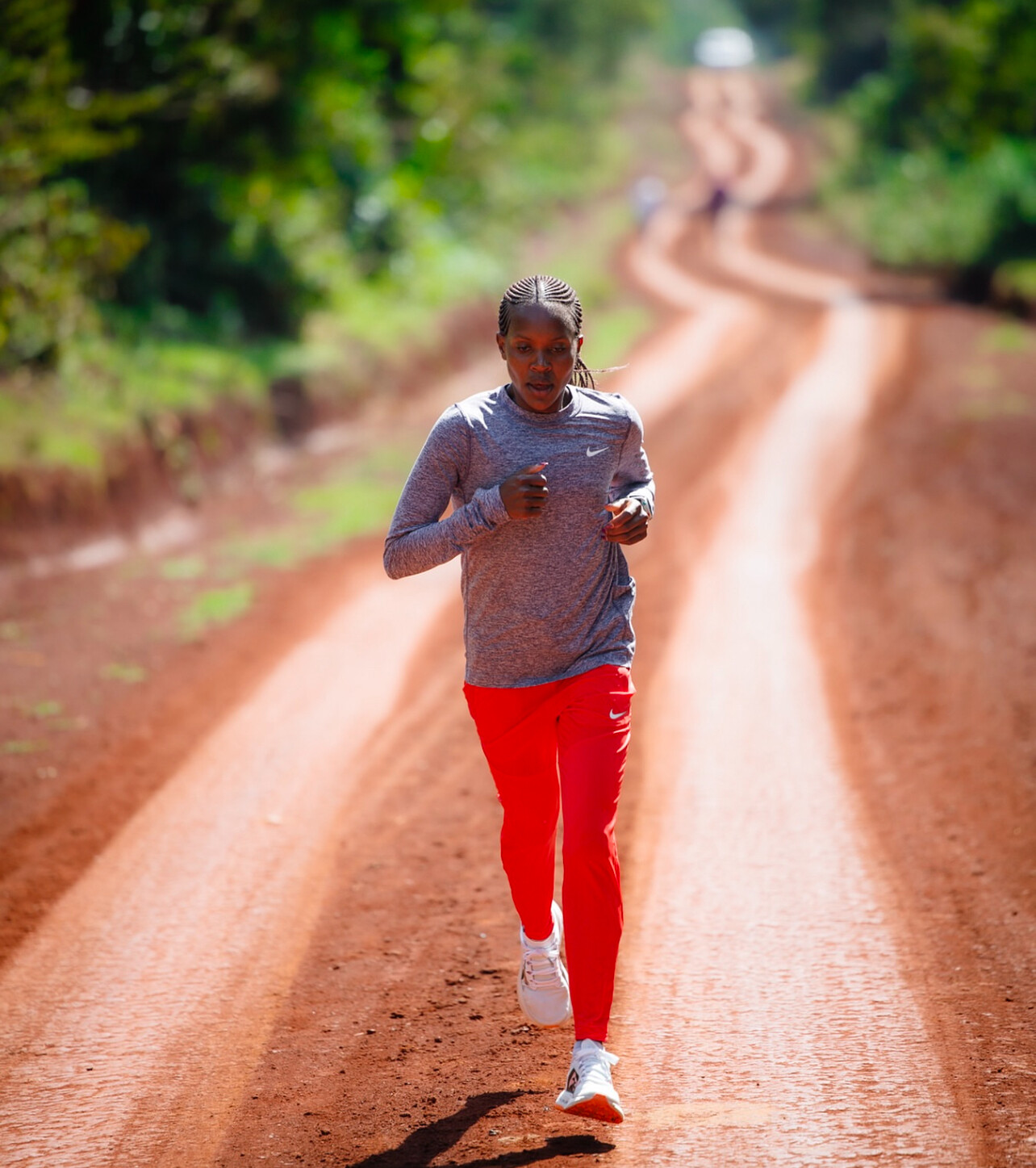
In February 2025, Kipyegon had an uncharacteristic setback at the Sirikwa Cross Country Classic in Eldoret, where she failed to finish the 10km race. Despite this rare off day, she remains focused and determined, with her eyes set on another historic season. With her current trajectory, breaking four minutes in the mile is no longer a question of if, but when.
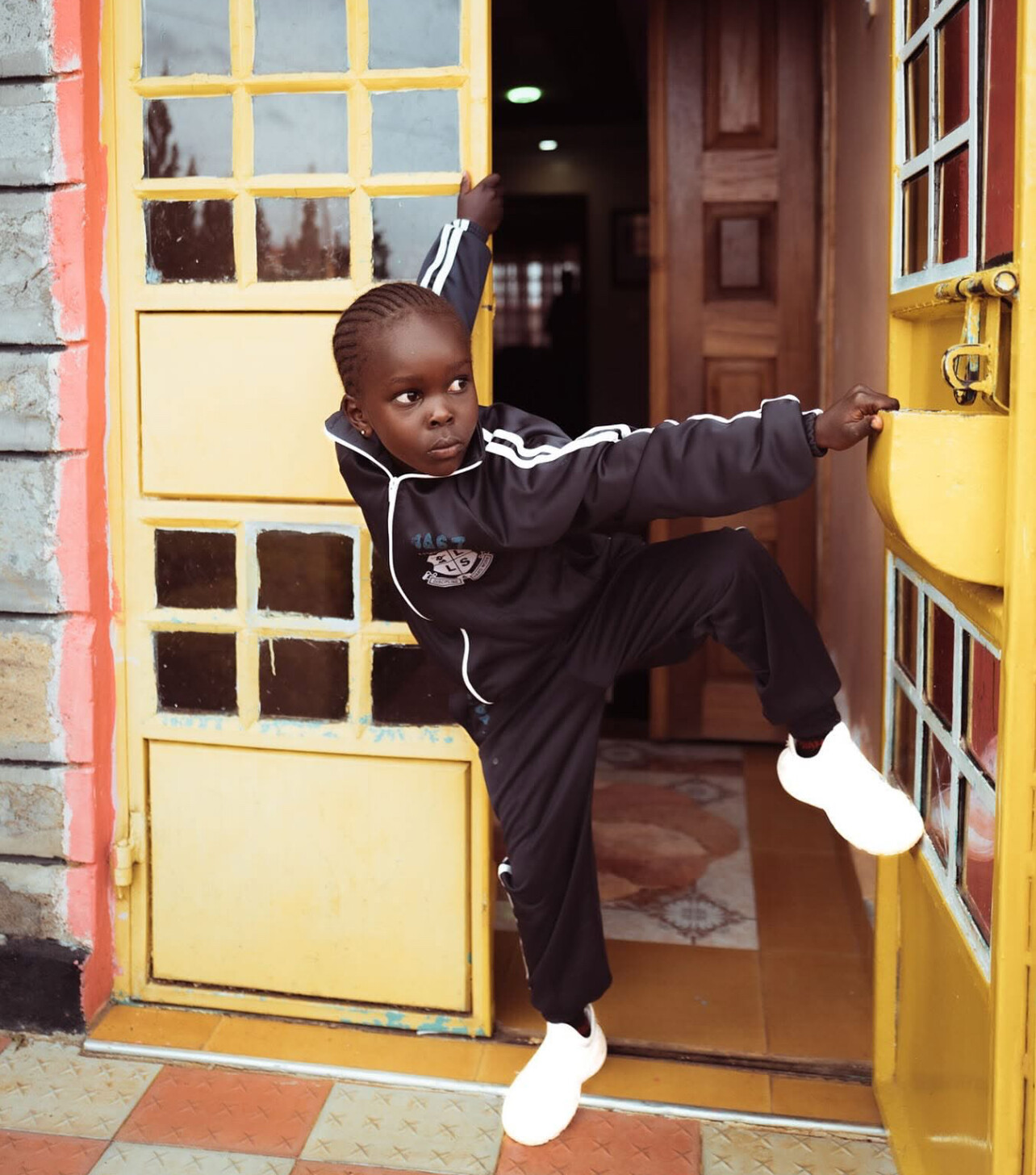
Beyond her achievements on the track, Kipyegon is also a devoted mother and wife. She is married to Timothy Kitum, the 2012 Olympic 800m bronze medalist, and together they have a daughter, Alyn, born in 2018. Balancing motherhood and elite competition, she continues to inspire millions with her work ethic and determination.

Faith Kipyegon is not just a champion—she is a trailblazer. As she continues to push the limits of middle-distance running, the world watches in anticipation. If there is one athlete capable of redefining history and shattering the four-minute mile, it is Faith Kipyegon.
by Boris Baron
Login to leave a comment
Olympic rematch between medalists Jessica Hull and Georgia Bell headlines 2025 NYRR Wanamaker Mile
In January 2024, if Georgia Bell wanted to run in an indoor meet, she had to go to the World Athletics website, look up the meet director’s email address, and beg. Bell and her coaches, Trevor Painter and Jenny Meadows, would have to explain why a 30-year-old with a 4:06 personal best at 1500 meters and no accomplishments to speak of at the senior level deserved a spot on the start line.
In January 2025, meet directors are the ones begging Bell to run in their races. An Olympic bronze medal will do that.
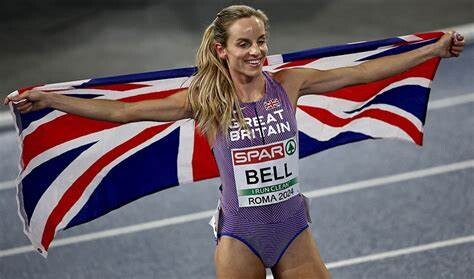
On February 8, Olympic silver medalist Jessica Hull of Australia and Bell will headline the women’s NYRR Wanamaker Mile at the 2025 Millrose Games in New York alongside World Indoor medalists Nikki Hiltz and Emily Mackay of the United States. One year ago, the idea of Bell headlining any race — let alone one of the most glamorous events on the indoor circuit — would have seemed laughable, mainly because most of the running world did not know Bell existed.
“A lot has changed in this past year,” says Bell in an interview with LetsRun.com. “Being invited to be at such a prestigious event like Millrose, I’m just really appreciative and really excited to step on the start line and race there.”
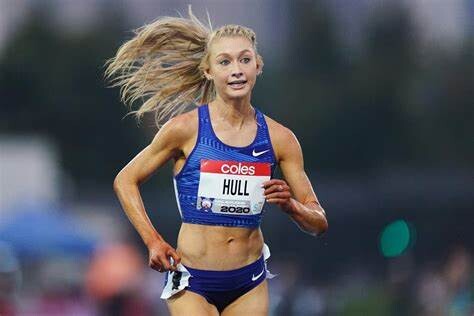
A new year brings a new reality for Bell
Being in-demand by race organizers is just one of many aspects of Bell’s new reality as an Olympic medalist. A year ago, she was working an office job in cybersecurity, waking up at 6 a.m. to cycle before work and heading to the track for a session at 7 p.m. once she had finished. Now Bell is a full-time professional runner. Her shoe contract with Nike offers many benefits, not least of which is the freedom to sleep in until 9 a.m. if she so desires.
Bell’s goals have also evolved significantly over the past 12 months. This time last year, her biggest goal for the year was to make the British team for World Indoors.
“That was kind of my Olympics,” Bell says. “I was like, maybe if I really try, [I could make the team because] I thought a lot of people would be skipping indoors because they’re focusing on Paris in the summer.”
Bell did make the team and finished fourth in the 1500m final in Glasgow, one of many surprises in a breakout season that saw her drop her personal bests from 2:03 in the 800 and 4:06 in the 1500 to 1:56 and 3:52.
In 2025, Bell is thinking much bigger. Once again, she is targeting World Indoors, which will be held in Nanjing, China, from March 21-23, and this time, she wants a medal. Bell also plans on running at the European Indoor Championships in Apeldoorn, the Netherlands (March 6-9), as well as the outdoor World Championships in Tokyo (September 13-21).
”I want to come away with as much hardware as possible,” Bell says. “So that means competing at all of the major championships.”
But first is a trip to the United States, where Bell plans on racing at the New Balance Indoor Grand Prix on February 2 before heading down to Millrose six days later for a race that will look very similar to last year’s Olympics. While Olympic champion Faith Kipyegon will be absent — she has not run a single indoor race during her decorated career — four of the top seven from the women’s 1500m final in Paris will be at Millrose.
by Jonathan Gault
Login to leave a comment
NYRR Millrose Games
The Pinnacle of Indoor Track & Field The NYRR Millrose Games, first held in 1908, remains the premier indoor track and field competition in the United States. The 2025 edition will once again bring the world’s top professional, collegiate, and high school athletes to New York City for a day of thrilling competition. Hosted at the New Balance Track &...
more...The Distance Running Scene in 2024: A Year of Remarkable Achievements
The global distance running scene in 2024 was marked by incredible performances, new records, and innovative approaches to training and competition. From marathons in bustling city streets to ultramarathons through rugged terrains, the year showcased the resilience, determination, and evolution of athletes from all corners of the globe.
The World Marathon Majors—Tokyo, Boston, London, Berlin, Chicago, and New York—continued to be the centerpiece of elite distance running, each event contributing to a year of unprecedented performances and milestones.
Tokyo Marathon witnessed a remarkable performance by Kenya's Ruth Chepngetich, who set a new women's marathon world record with a time of 2:11:24. This achievement sparked discussions about the rapid advancements in women's long-distance running and the influence of technology in the sport.
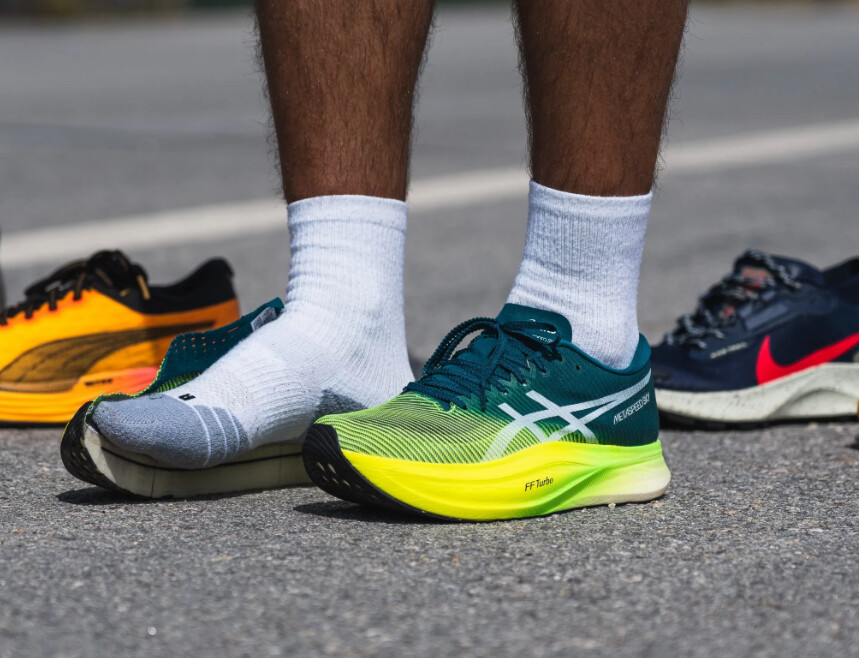
In the Boston Marathon, Ethiopia's Amane Beriso delivered a dominant performance, winning in 2:18:01. On the men's side, Kenya's Evans Chebet defended his title, highlighting Boston's reputation for tactical racing over sheer speed.
London Marathon saw Ethiopia's Tamirat Tola take the men's crown, besting the field with a strong tactical race. Eliud Kipchoge, despite high expectations, did not claim victory, signaling the growing competitiveness at the top of men’s marathoning. On the women's side, Kenya's Peres Jepchirchir triumphed, adding another major victory to her impressive resume.
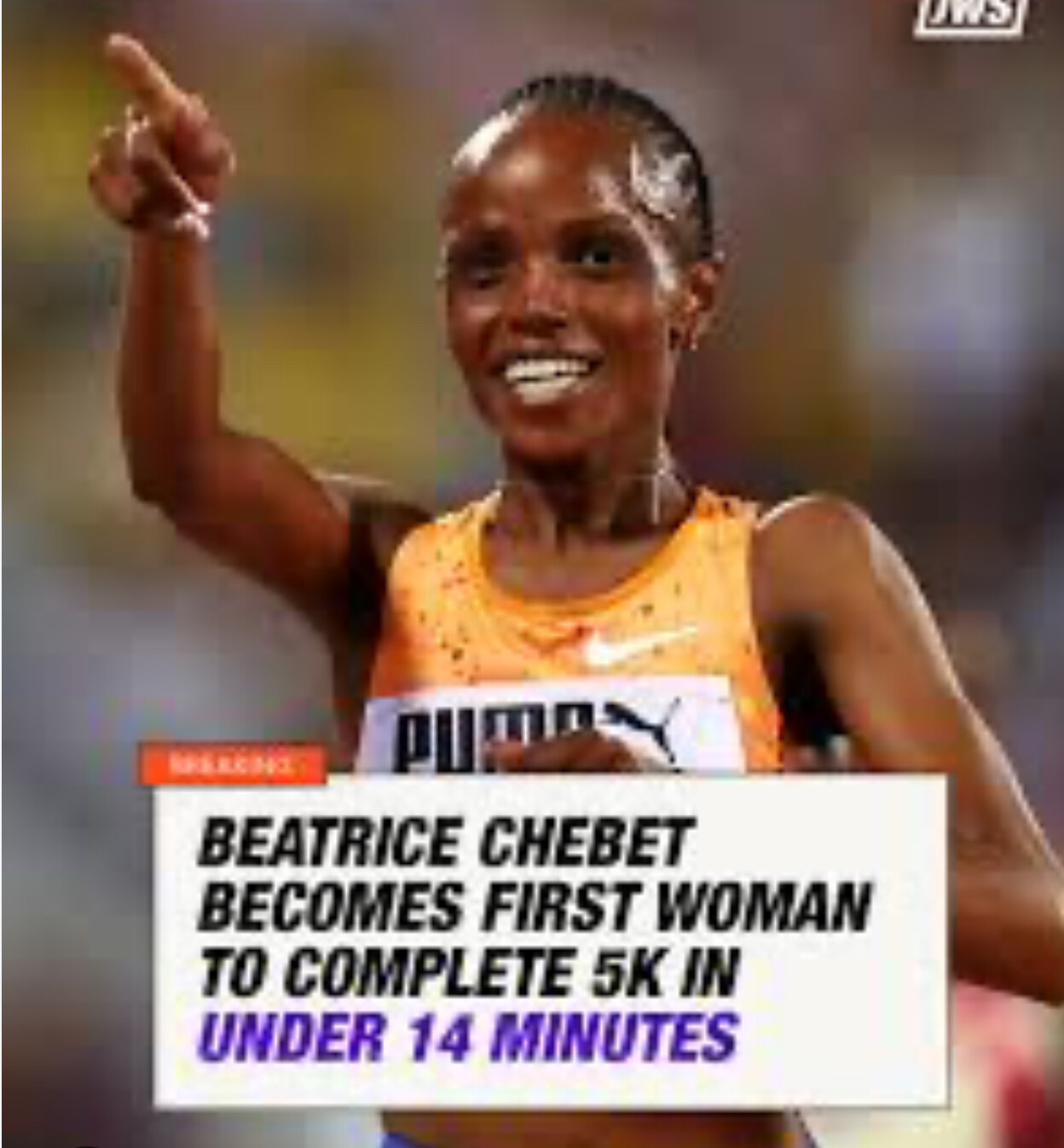
The Berlin Marathon in 2024 showcased yet another extraordinary performance on its fast course, though it was Kelvin Kiptum’s world record from the 2023 Chicago Marathon (2:00:35) that remained untouched. In 2024, Berlin hosted strong fields but no records, leaving Kiptum’s achievement as the defining benchmark for men’s marathoning.
The Chicago Marathon was the highlight of the year, where Kenya's Ruth Chepngetich made history by becoming the first woman to run a marathon in under 2:10. She shattered the previous world record by nearly two minutes, finishing in 2:09:56. This groundbreaking achievement redefined the possibilities in women's distance running and underscored the remarkable progress in 2024.
The New York City Marathon showcased the depth of talent in American distance running, with emerging athletes achieving podium finishes and signaling a resurgence on the global stage.
Each marathon in 2024 was marked by extraordinary performances, with athletes pushing the boundaries of human endurance and setting new benchmarks in the sport.
Olympic Preparations: Paris 2024 Looms Large
With the 2024 Summer Olympics in Paris just around the corner, many athletes used the year to fine-tune their preparations. Qualifying events across the globe witnessed fierce competition as runners vied for spots on their national teams.
Countries like Kenya, Ethiopia, Japan, and the United States showcased their depth, with surprising performances by athletes who emerged as dark horses. Japan’s marathon team, bolstered by its rigorous national selection process, entered the Olympic year as a force to be reckoned with, particularly in the men's race.
Ultramarathons: The Rise of the 100-Mile Phenomenon
The ultramarathon scene continued to grow in popularity, with races like the Western States 100, UTMB (Ultra-Trail du Mont-Blanc), and Leadville 100 drawing record participation and attention.
Courtney Dauwalter, already a legend in the sport, extended her dominance with wins at both UTMB and the Western States 100, solidifying her reputation as the GOAT (Greatest of All Time) in ultrarunning.
On the men’s side, Spain’s Kilian Jornet returned to form after an injury-plagued 2023, capturing his fifth UTMB title. His performance was a masterclass in pacing and strategy, showcasing why he remains a fan favorite.
Notably, ultramarathons saw increased participation from younger runners and athletes transitioning from shorter distances. This shift signaled a growing interest in endurance challenges beyond the marathon.
Track and Road Records: Pushing the Limits
The year 2024 witnessed groundbreaking performances on both track and road, with athletes shattering previous records and setting new benchmarks in distance running.
Beatrice Chebet's Dominance: Kenya's Beatrice Chebet had an exceptional year, marked by multiple world records and championship titles.
10,000m World Record: In May, at the Prefontaine Classic, Chebet broke the women's 10,000m world record, becoming the first woman to run the distance in under 29 minutes, finishing in 28:54.14.
Olympic Triumphs: At the Paris Olympics, Chebet secured gold in both the 5,000m and 10,000m events, showcasing her versatility and dominance across distances.
5km World Record: Capping off her stellar year, on December 31, 2024, Chebet set a new women's 5km world record at the Cursa dels Nassos race in Barcelona, finishing in 13:54. This achievement made her the first woman to complete the 5km distance in under 14 minutes, breaking her previous record by 19 seconds.
Faith Kipyegon's Excellence: Kenya's Faith Kipyegon continued her dominance in middle-distance running by breaking the world records in the 1500m and mile events, further cementing her legacy as one of the greatest athletes in history.
Joshua Cheptegei's 10,000m World Record: Uganda's Joshua Cheptegei reclaimed the men's 10,000m world record with a blistering time of 26:09.32, a testament to his relentless pursuit of excellence.
Half Marathon Records: The half marathon saw an explosion of fast times, with Ethiopia’s Yomif Kejelchabreaking the men's world record, running 57:29 in Valencia. The women's record also fell, with Kenya’s Letesenbet Gidey clocking 1:02:35 in Copenhagen.
These achievements highlight the relentless pursuit of excellence by distance runners worldwide, continually pushing the boundaries of human performance.
The Role of Technology and Science
The impact of technology and sports science on distance running cannot be overstated in 2024. Advances in carbon-plated shoes, fueling strategies, and recovery protocols have continued to push the boundaries of human performance.
The debate over the fairness of super shoes reached new heights, with critics arguing that they provide an unfair advantage. However, proponents emphasized that such innovations are part of the natural evolution of sports equipment.
Data analytics and personalized training plans became the norm for elite runners. Wearable technology, including advanced GPS watches and heart rate monitors, allowed athletes and coaches to fine-tune training like never before.
Grassroots Running and Mass Participation
While elite performances stole the headlines, 2024 was also a banner year for grassroots running and mass participation events. After years of pandemic disruptions, global races saw record numbers of recreational runners.
Events like the Great North Run in the UK and the Marine Corps Marathon in the U.S. celebrated inclusivity, with participants from diverse backgrounds and abilities.
The popularity of running as a mental health outlet and community-building activity grew. Initiatives like parkrunand local running clubs played a pivotal role in introducing more people to the sport.
Diversity and Representation
Diversity and representation became central themes in distance running in 2024. Efforts to make the sport more inclusive saw tangible results:
More women and runners from underrepresented communities participated in major events. Notably, the Abbott World Marathon Majors launched a program to support female marathoners from emerging nations.
Trail and ultrarunning communities embraced initiatives to make races more accessible to runners from diverse cultural and economic backgrounds.
Challenges and Controversies
Despite the many successes, 2024 was not without its challenges:
Doping Scandals: A few high-profile doping cases marred the sport, reigniting calls for stricter testing protocols and greater transparency.
Climate Change: Extreme weather conditions impacted several races, including the Boston Marathon, which experienced unusually warm temperatures. Organizers are increasingly focusing on sustainability and adapting to climate-related challenges.
Looking Ahead to 2025
As the year closes, the focus shifts to 2025, which promises to build on the momentum of 2024. Key storylines include:
The quest for a sub-2-hour marathon in a record-eligible race, with Kelvin Kiptum and Eliud Kipchoge at the forefront.
The continued growth of ultrarunning, with new records likely to fall as more athletes take up the challenge.
The evolution of distance running as a global sport, with greater inclusivity and innovation shaping its future.
Conclusion
The distance running scene in 2024 was a celebration of human potential, resilience, and the unyielding pursuit of greatness. From record-breaking marathons to grueling ultramarathons, the year reminded us of the universal appeal of running. As the sport evolves, it continues to inspire millions worldwide, proving that the spirit of running transcends borders, ages, and abilities.
by Boris
Login to leave a comment
Chekwemoi and Chebolei claim victories in Chepsaita
Ugandan teenager Loice Chekwemoi and Kenya’s Samwel Chebolei Masai were unrivalled at the Great Chepsaita Cross Country – a World Athletics Cross Country Tour Gold meeting – held on the outskirts of Eldoret on Saturday (7).
Pre-race favourite Chekwemoi, aged just 17, won the women’s race by more than 80 seconds, while 23-year-old Chebolei had a tighter contest in the men’s event.
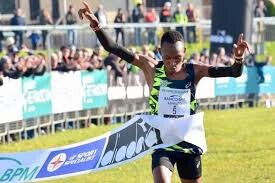
Ethiopian teenager Shimeles Mekides Molla put in an early surge after the first 2km loop of the women’s 10km race with Chekwemoi and Abigael Chepkoech trailing close behind.
Molla’s lead was short-lived, though, because Chekwemoi moved to the front and opened a gap steadily. It wasn’t long before the African steeplechase champion was running alone out in front with just the thousands of spectators for company.
The Ugandan teenager went on to finish in 34:32, while Molla was almost a minute-and-a-half behind, clocking 35:57 for the runner-up spot. Celestine Biwot completed the podium in 36:43.
“I couldn’t believe that I could win in the home of champions but I told myself I am also a champion and I have to fight for it,” said Chekwemoi. “To be a champion is not easy but I see progression and I am working hard to make sure I qualify for the World Championships in Tokyo next year.”
By contrast, there were 10 athletes running close together at the end of the first lap in the men’s race. That pack was soon reduced to five men, including world U20 cross-country bronze medallist Matthew Kipkoech Kipruto, 2019 African Games 5000m champion Robert Kiprop, and Samwel Chebolei, who was fifth at this year’s World Cross, contributing to Kenya’s team gold medal.
Heading into the fourth lap, Kipruto led from Kiprop and Chebolei. Kipruto’s challenge faded in the closing stages, though, while Chebolei proved to have the stronger finishing kick. He crossed the line in 30:49 to win by nine seconds. Kiprop took second place, improving on his fourth-place finish from last year. Pre-race favourite Kipruto was third in 31:12.
“I had to fight because there were a lot of good athletes in this race, it was not easy,” said Chebolei. “After the third lap, we still felt energetic and the three of us decided to drop the rest and the maths worked for us. I am hoping to build up from here and represent Kenya in Tokyo.”
Kevin Kiprop Biwott won the U20 men’s race, beating world U20 5000m champion Andrew Kiptoo Alamisi by 17 seconds.
Cynthia Chepkurui, who was ninth at the African Cross Country Championships earlier this year, this time emerged as the winner in the U20 women’s 6km race in 21:17.
Several of Kenya’s leading athletes, past and present, attended the Great Chepsaita Cross Country, including Eliud Kipchoge, Faith Kipyegon, Benson Kipruto, David Rudisha, Julius Yego and Janeth Jepkosgei.
by World Athletics
Login to leave a comment
Faith Kipyegon reveals why she might not run another 1,500m race at Olympics
Multiple world and Olympics champion Faith Kipyegon has hinted at the possibility of abandoning her specialty, the 1,500m, in favor of other races at the 2028 Los Angeles Olympics.
Three-time Olympics 1,500m champion Faith Kipyegon might have run her final Olympics over the distance as she is exploring the possibilities of featuring in other disciplines.
Kipyegon made history when she became the first woman to claim three straight Olympics gold medals in 1,500m at the Paris 2024 Games, adding onto her titles secured in Rio 2016 and Tokyo 2020.
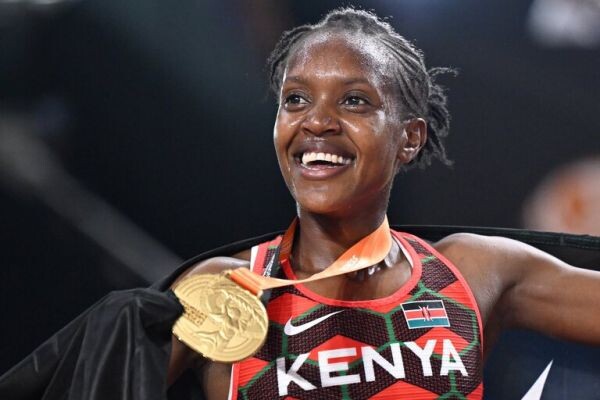
At 30, Kipyegon perhaps does not feel that she will still have the power in her legs to go for a fourth straight gold over the distance at the Los Angeles Olympics in 2028, and her fans might get to see her square it out for medals in another race instead.
“It was not easy [winning third gold in Paris],” Kipyegon said on Citizen TV’s JKL on Wednesday. “I was praying to God that I just win my third gold and I did it.”
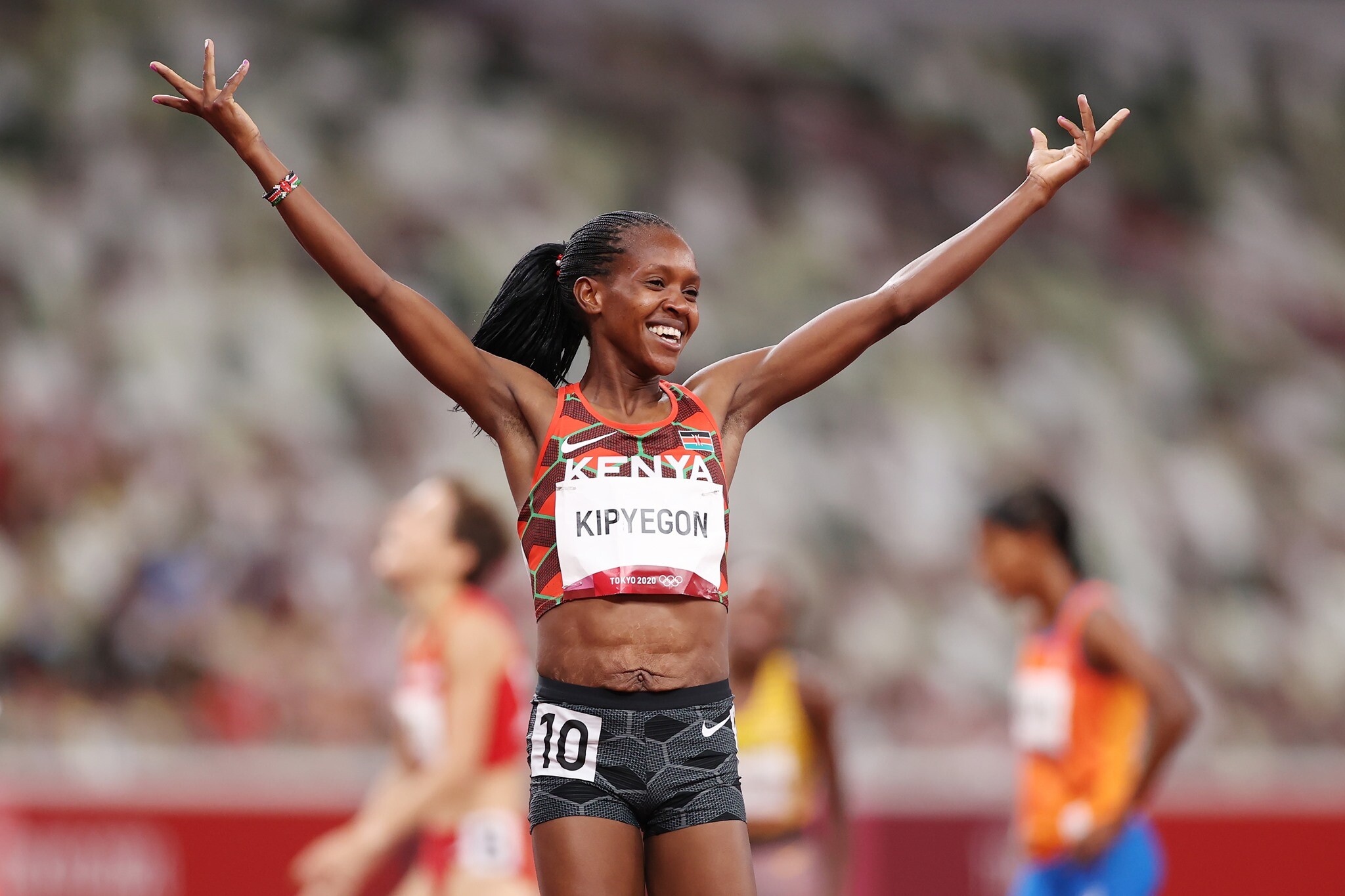
When asked if she sees herself going for a fourth straight Olympics gold, the mother of one replied: “That is a tough one, because it will be 2028 so I don’t know if I will still be doing the 1,500m or maybe 5,000m or marathon, so we don’t know.”
Kipyegon has previously expressed her desire to switch to marathons in the next phase of her career and seems to be looking at that possibility even as she squeezes out what is left in her in 1,500m.
She has also displayed enough quality in 5,000m where she is already the world champion over the distance, after her gold medal heroics in Budapest last year, and also has Olympics silver won in Paris this year.
The 1,500m world record holder will certainly defend her titles at next year’s World Championships in Tokyo but the 2027 Worlds will perhaps give an indication of how she will approach the 2028 Olympics given she will be 34 by then.
by Joel Omotto
Login to leave a comment
LA 2028 Summer Olympics Games
Discover how the Los Angeles Candidature Committee describes their vision for the Games and the legacy they plan to leave behind: For centuries, people have been following the sun to California – to a coastal paradise of beautiful weather, inspiring landscapes and an ocean of possibilities. Since it was first settled, LA – the City of Angels – has built...
more...Kenya’s Faith Kipyegon receives honorary doctorate degree
The back-to-back-to-back Olympic 1,500m champion was given an honorary doctor degree in Education on Wednesday.
It has been a monumental year for Kenya’s Faith Kipyegon, who in August became the first female athlete in Olympic history to win three consecutive gold medals in a single track discipline. On Wednesday, her achievements were celebrated in her home country when she received an honorary doctorate degree in education from the University of Eldoret.
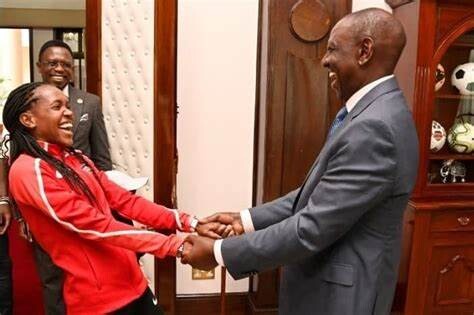
“I am greatly honoured to receive an honorary doctorate degree in education from the University of Eldoret,” Kipyegon shared on Instagram, signing off as “Dr. Faith Kipyegon.”
Honorary doctorates are typically awarded to individuals who have made exceptional contributions in their fields. Kipyegon’s recognition highlights her trailblazing career in women’s distance running, where she has inspired countless athletes by returning to elite competition and breaking records after giving birth to her daughter in 2018.
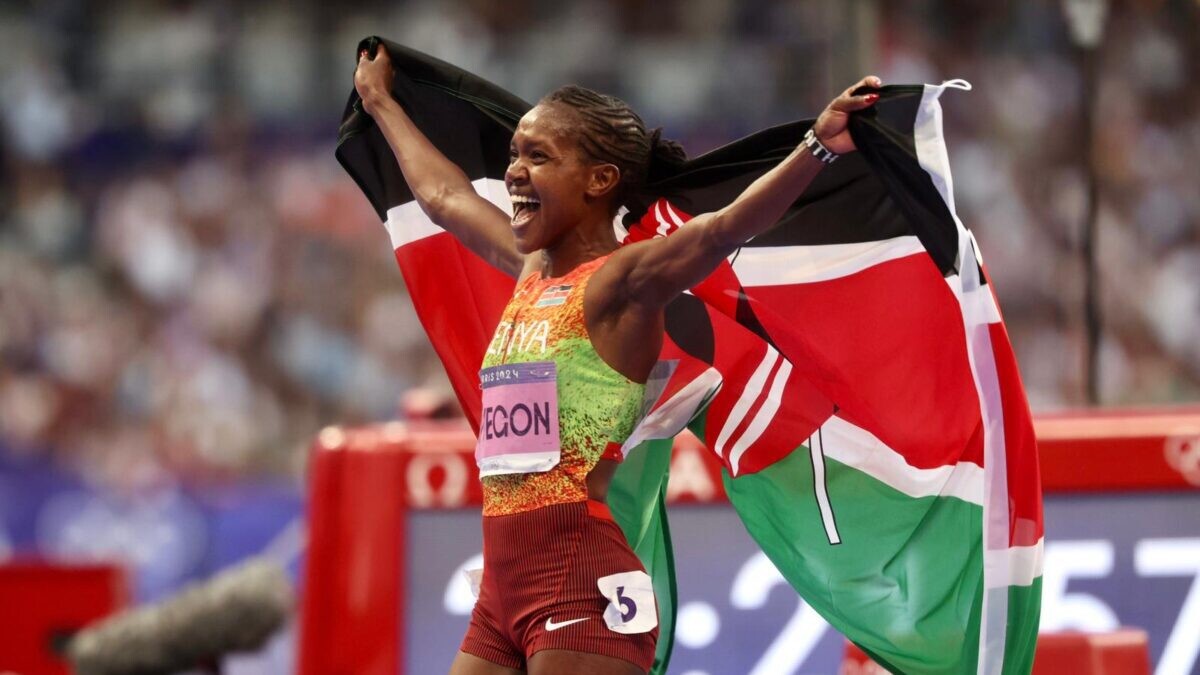
Kipyegon’s 2024 season
This year has been one of the most successful of Kipyegon’s career. At the Paris Diamond League in July, the 30-year-old broke her own world record in the 1,500m, running 3:49.04. The following month, she defended her Olympic 1,500m title at the Stade de France, setting a new Olympic record of 3:51.29.
Kipyegon also earned a silver medal in the 5,000m, an event she contested for the first time at the Olympics. Initially disqualified for an obstruction involving Ethiopian runner Gudaf Tsegay, Kipyegon was reinstated after a successful appeal. Her compatriot, Beatrice Chebet, won gold in the event.
Accolades and recognition
Kipyegon was among six nominees for the Women’s Track Athlete of the Year award by World Athletics, a title she won in 2023. Additionally, she was shortlisted for the Laureus World Sports Award for Sportswoman of the Year, an honour recognizing the year’s greatest female athlete. This year, the award was won by Spanish footballer Aitana Bonmatí.
by Marley Dickinson
Login to leave a comment
Chebet and Aregawi poised to strike in Seville
The Cross Internacional de Itálica in Santiponce on the outskirts of the Spanish city of Seville – the fifth Gold standard meeting in the current World Athletics Cross Country Tour – always boasts a quality line-up, and this year’s race on Sunday (17) features the most prominent line-up so far this season.
Entries for the women’s race, contested over 7.5km, are headed by Kenya’s two-time world cross-country champion and double Olympic gold medalist Beatrice Chebet. The 24-year-old has enjoyed a superb season, topped by her 5000m and 10,000m titles at the Paris Olympics, three months after becoming the first woman to dip under the 29-minute barrier for the latter distance thanks to a 28:54.14 clocking in Eugene on 25 May.
Chebet, who is also the reigning world champion and world record holder for the road 5km, will be making her third appearance here following her runner-up spot in 2020 and her third place in 2021. It will be her first race since her 14:09.82 5000m victory at the Diamond League Final in Brussels.
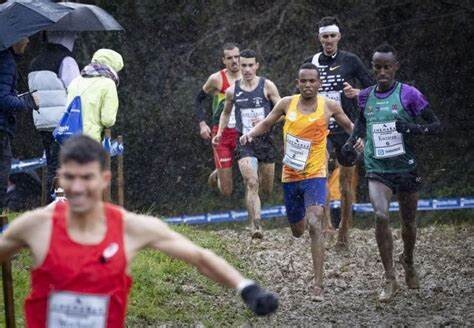
She will start as the overwhelming favourite for the victory, though she’ll face quality opposition in the form of compatriot Mercy Chepkemoi and Kazakhstan’s Daisy Jepkemei. The latter finished seventh at this year’s World Cross Country Championships in Belgrade, and more recently she captured a commanding win in Atapuerca last month.
Chepkemoi is fresh from a fine win in Cardiff last Saturday. She placed fourth over 5000m at the World U20 Championships in Lima in August, finishing just behind bronze medalist Charity Cherop of Uganda, who will also be racing in Santiponce this weekend.
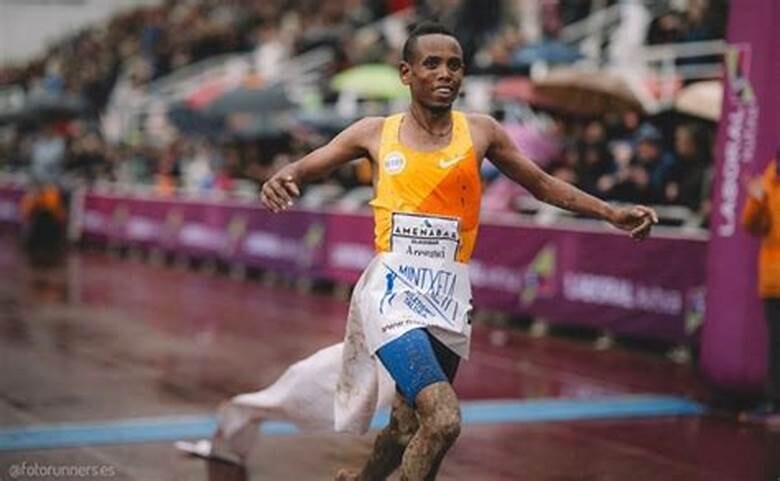
The line-up also comprises Diana and Sharon Chepkemoi, who finished third and seventh respectively in the steeplechase in Lima. Both also competed in Soria last Sunday where they finished third (Diana) and fourth (Sharon).
Meanwhile, France’s Alice Finot, who set a European record of 8:58.67 when finishing fourth in the steeplechase at the Paris Olympics, will be contesting just her second cross-country race in the past seven years.
Portugal’s Mariana Machado recently finished sixth in Atapuerca, sandwiched between Spanish cross-country champion Carolina Robles and Olympic 1500m finalist Agueda Marques who finished fourth and seventh respectively there, closely followed by Maria Forero, the 2022 European U20 cross-country champion. All of them will renew their rivalry this weekend.
European 5000m bronze medalist Marta García, meanwhile, will be making her only cross-country outing of the winter before focusing on the indoor season.
The men’s race has been reduced to 7.5km which plays into the hands of the middle-distance specialists. But that shouldn’t be a problem for Olympic 10,000m silver medalist Berihu Aregawi, as the Ethiopian is also the third-fastest man in history over 3000m.
The 23-year-old opened the year in style by retaining his silver medal at the World Cross Country Championships in Belgrade before setting a 10,000m PB of 26:31.13 in Nerja. Following his Olympic silver in Paris, he clocked an Ethiopian record of 7:21.28 for 3000m and won the 5000m at the Diamond League Final in Brussels.
Sunday’s race will be Aregawi’s first cross-country outing this season, but fellow Etiopians Ayele Tadesse and Wegene Addisu have already made a mark on the tour, finishing second and fourth respectively in Soria last weekend.
Yet Aregawi’s fiercest opposition should come from Burundi’s Rodrigue Kwizera and Spain’s Thierry Ndikumwenayo. Kwizera is still unbeaten this cross-country season, having won in Amorebieta, Atapuerca and Soria. He has successively finished first, second and third on his appearances in Seville over the past three years.
Meanwhile, his training partner Ndikumwenayo – winner in Seville in 2022 – is the European 10,000m bronze medallist and lowered his 10,000m PB to 26:49.49 for ninth place at the Paris Olympics. Ndikumwenayo will travel to Seville from his altitude stint in Sierra Nevada where he’s building up for the European Cross Country Championchips in Antalya on 8 December.
Watch out too for Uruguay’s Santiago Catrofe. He boasts PBs of 7:37:15 for 3000m and 13:05.95 for 5000m and was a surprise winner in San Sebastian two weeks ago when he kicked away from Uganda’s Martin Kiprotich, who’ll also be in contention on Sunday.
Kiprotich will be joined by his compatriots Kenneth Kiprop, Dan Kibet and Hosea Kiplangat. The former is the world U20 5000m bronze medallist and triumphed in Cardiff where Kibet had to settle for third.
The Spanish charge will be led by European indoor 3000m silver medallist Adel Mechaal, US-based Aarón Las Heras, national 10km record-holder Abdessadam Oukhelfen, and the always consistent Nassim Hassaous.
Past winners in Seville include Fernando Mamede (1984 and 1985), Paul Tergat (1998 and 1999), Paula Radcliffe (2001), Kenenisa Bekele (2003, 2004 and 2007), Faith Kipyegon (2016), Joshua Cheptegei (2018) and Jacob Kiplimo (2019).
Temperatures between 22-24C are predicted for the time of the elite races on Sunday.
by World Athletics
Login to leave a comment
Cross internacional de Italica
The Cross Internacional de Itálica is an annual cross country running competition it will be held on 21st of November in Santiponce, near Seville, Spain. Inaugurated in 1982, the race course is set in the ruins of the ancient Roman city of Italica. As one of only two Spanish competitions to hold IAAF permit meeting status, it is one of...
more...Chebet braces for Italica International Cross Country meeting on November 17
Double Olympic champion Beatrice Chebet is set to bring her fierce form to the 42nd Italica International Cross Country meeting on November 17, a highlight event on the World Athletics Cross Country Tour Gold circuit.
Chebet stunned the world in Paris in August with her dual gold-winning performances in the 5,000m and 10,000m.
She secured the 10,000m gong in a time of 30:43.25 leading Italy’s Nadia Battocletti ( 30:43.35 ) and Olympic marathon champion Sifan Hassan of Netherlands ( 30:44.12 ).
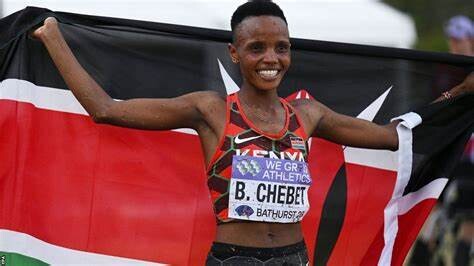
Chebet went on to add the 5,000m title, finishing in 14:28.56 outpacing three-time Olympic 1,500m champion Faith Kipyegon ( 14:29.60 ) and Hassan ( 14:30.61 ).
Chebet is no stranger to cross-country success.
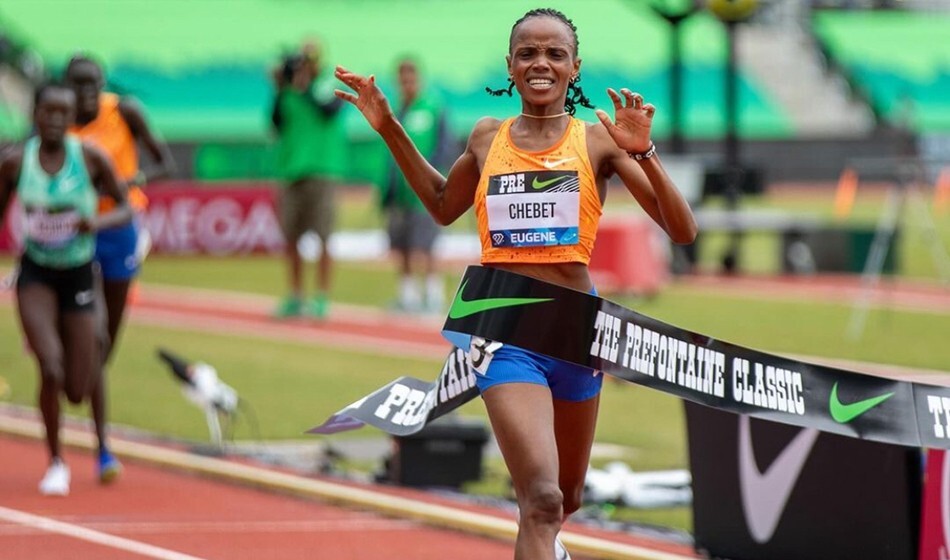
She captured the World U20 Cross Country title in Denmark in 2019 in 20:50.
In 2021, Chebet placed second at the Atapuerca 8km Cross Country event in 25:04 behind Eritrea’s Rahel Ghebreneyohannes ( 25:03 ).
That same year, she clocked 24:35 for a third-place finish at the Seville 7km cross-country meeting.
In 2022, she returned to Atapuerca, this time claiming the title in 25:39.
Last year, she claimed the World Cross Country Championships title in Bathurst, Australia clocking 33:48 with Ethiopia’s Tsigie Gebreselama ( 33:56 ) in second and Agnes Ngetich ( 34:00 ) completing the podium.
She defended her title this year in Belgrade, Serbia, finishing in 31:05 ahead of compatriots Lilian Kasait ( 31:08 ) and Margaret Chelimo ( 31:09 ).
Her illustrious track career boasts silver and bronze medals in the 5,000m during the 2022 (Eugene) and 2023 (Budapest) World Championships.
She boasts gold from the 2022 Birmingham Commonwealth Games as well as the Saint Pierre African Games, both in the 5,000m.
Chebet is the 2018 World Junior 5,000m champion as well as the 2019 African 5,000m junior champion.
In Italy, Chebet will be in the company of 2024 World U20 3,000m steeplechase bronze medallist Diana Chepkemoi as well as the 2018 World 3,000m steeplechase champion Daisy Jepkemei.
The trio will face off against European 3,000m steeplechase record holder Alice Finot of France as well as the World U20 5,000m bronze medallist Charity Cherop of Uganda.
Sweden’s Sarah Lahti, Portugal’s Mariana Machado and Spain’s Carolina Robles will add depth to the field.
In the men’s field, Olympic 10,000m silver medallist Berihu Aregawi from Ethiopia will lead the charge.
His main rivals will be the 2024 Rome Half Marathon champion Yemaneberhan Crippa of Italy as well as Ugandan’s Dan Kibet, Hosea Kiplangat and Kenneth Kiprop.
Portugal’s Etson Barros, Uruguay’s Santiago Catrofe and Spain’s adel Mechaal add depth to the field.
by Teddy Mulei
Login to leave a comment
Cross internacional de Italica
The Cross Internacional de Itálica is an annual cross country running competition it will be held on 21st of November in Santiponce, near Seville, Spain. Inaugurated in 1982, the race course is set in the ruins of the ancient Roman city of Italica. As one of only two Spanish competitions to hold IAAF permit meeting status, it is one of...
more...Faith Kipyegon to receive honorary doctorate degree from University of Eldoret
Faith Kipyegon to receive honorary doctorate from University of Eldoret for remarkable achievements in athletics
Triple Olympic Champion Faith Kipyegon is set to receive an Honorary Doctorate in Education from the University of Eldoret, a recognition that highlights her exceptional contributions to athletics and her inspiring career as a world-class runner.
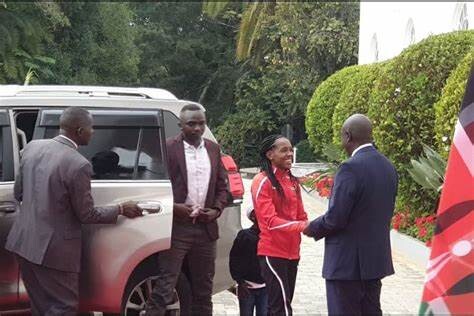
The honorary degree will be awarded to Kipyegon during the university's 13th graduation ceremony, scheduled for November 21, 2024.
“Kipyegon is an accomplished middle and long-distance runner and is the reigning 1,500-meter and mile world record holder.
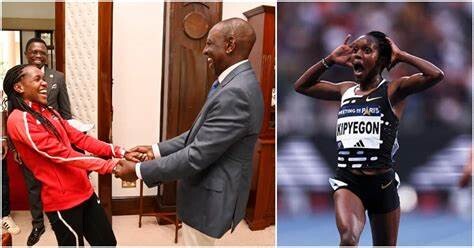
"Her most notable feat was becoming the first athlete to win three consecutive Olympic gold medals in the 1,500 meters,” the university announced in a statement on Friday.
2024 has indeed been a landmark year for Kipyegon, as she claimed her third Olympic title in the 1,500 meters and broke world records in both the 1,500 meters and the mile, accomplishing these feats within a remarkable 49-day span.
These achievements have earned her a nomination for the prestigious World Athlete of the Year 2024 award.
In addition to her records, Kipyegon also faced Olympic challenges, notably in the 5,000 meters race, where she was briefly disqualified for alleged obstruction of Ethiopia's world record holder, Gudaf Tsegay. However, the disqualification was successfully appealed by Kenyan officials, and her silver medal was reinstated.
She concluded her 2024 season on a high note, marking another year at the peak of global athletics.
Entering the Olympic year, Kipyegon held titles as both the 1,500m and 5,000m World Champion and was the 1,500m world record holder.
Though she began the season with uncertainty due to an injury, she quickly dispelled doubts by taking on 10,000m world-record holder Beatrice Chebet in the 5,000m race at Kenya’s National Olympic trials, winning with a time of 14:46.28.
Faith Kipyegon’s journey continues to inspire young athletes and cement Kenya's legacy in athletics. This honorary doctorate from the University of Eldoret is a tribute to her dedication, resilience, and historic accomplishments.
by Mark Kinyanjui
Login to leave a comment
'Give Ruth the respect she deserves!'- Athletics Kenya jumps to Ruth Chepng'etich's defense following doping accusation
Athletics Kenya has defended Ruth Chepngetich after her record-breaking Chicago Marathon win, urging respect and dismissing doping accusations, emphasizing her consistent, hard-earned success.
Athletics Kenya has called for the respect of newly-crowned Chicago Marathon champion Ruth Chepng’etich who is fresh from breaking the marathon world record.
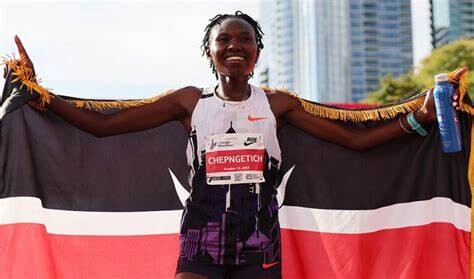
Ruth Chepng’etich clocked an impressive 2:09:56 to win the race at the Chicago Marathon, shattering Tigst Assefa’s previous record of 2:11:53 that she set to win the 2023 Berlin Marathon.
The Kenyan distance sensation ran a solo race to showcase her mastery of the course after winning the 2021 and 2022 editions of the race and finishing second behind Sifan Hassan at the 2023 edition of the event.
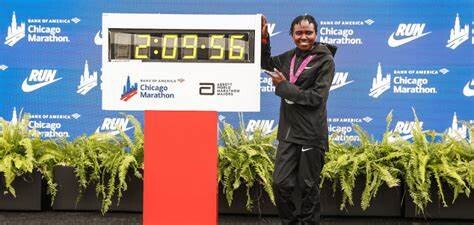
However, rumours have emerged that Ruth Chepng’etich might have doped following her impressive splits and that her world record might not be credible. However, Chepng’etich is one of the most consistent marathoners who has a lot of titles including the world marathon title she won at the 2019 World Championships in Doha, Qatar.
Following a ton of accusations, Athletics Kenya has jumped to her defence, urging the public to allow her to celebrate her huge feat and acknowledge her efforts as one of the most outstanding marathon runners in the world.
In a statement released on Wednesday, Athletics Kenya acknowledged her efforts, noting that she has been extraordinary in her performances for over five years and has joined the exclusive world of world record holders including Faith Kipyegon, Beatrice Chebet and Beatrice Chepkoech.
“In any case, many world records were broken this year, and to single her out is utterly unfair. It is therefore disheartening to witness some sections of the media casting unwarranted doubt on her achievements. Such aspersions, made without due process, undermine not only her efforts but the integrity of the sport,” Athletics Kenya said in a statement.
“We urge the media and the global community to give Ruth the respect she deserves and protect athletes from harassment. Let her celebrate this hard-earned victory and let us acknowledge the years of hard work and discipline that have brought her to this moment.”
The Kenyan federation was quick to note that every athlete, including Ruth Chepng’etich, underwent the required anti-doping tests and defended her performance on the global stage.
Login to leave a comment
Bank of America Chicago
Running the Bank of America Chicago Marathon is the pinnacle of achievement for elite athletes and everyday runners alike. On race day, runners from all 50 states and more than 100 countries will set out to accomplish a personal dream by reaching the finish line in Grant Park. The Bank of America Chicago Marathon is known for its flat and...
more...Faith Kipyegon hints at moving to different discipline after dominating 1,500m for years
Multiple World and Olympics champion Faith Kipyegon is not ruling out a switch to other distances next year after dominating the 1,500m for many years.
Multiple world and Olympics champion Faith Kipyegon is weighing whether to take on other challenges next season after totally dominating the 1,500m race.
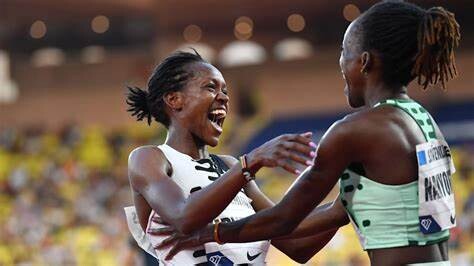
Kipyegon has three Olympics titles, a world record, and as many world titles, which makes her the greatest female athlete in history over the distance.
She added a fifth Diamond League title to her trophy cabinet last weekend and she says a switch to other races to test herself is not off the table in 2025.
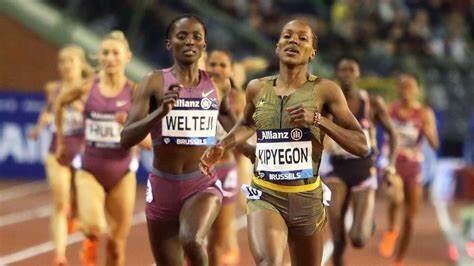
“I hope to stay strong and healthy towards next year and see what I am capable of doing. I don’t know if I will still do 1,500m or move to 5,000m but I hope for the best next year,” Kipyegon told Athletics Weekly.
Kipyegon says she has been motivated by other athletes who have contested different disciplines, such as Norwegian Jokob Ingebrigtsen who made his half marathon debut last weekend, and Dutchwoman Sifan Hassan, who has won titles in marathon, half marathon, 1,500m and 10,000m.
“I have seen Jakob is running in Copenhagen, I hope he gives me the motivation and I can also do half [marathon],” she added.
“Also, Sifan [Hassan] doing half, marathon and coming to 1,500m, 5,000m so I think it is only to twist how you think and say I am going to do this and hopefully we will do it.”
Kipyegon has already proven that she has what it takes to compete in the 5,000m after winning a world title in Budapest last year, this coming after she had broken a world record, while she also claimed Olympics silver in Paris over the distance.
She has also previously expressed her interest in running a marathon in future and 2025 could be the year she starts the transition if she makes the decision.
by Joel Omotto
Login to leave a comment
Faith Kipyegon confirms next stop as she gears up for tough test in Brussels
Faith Kipyegon has revealed her next spot as she gears up for title defence at the Diamond League Meeting final in Brussels.
Three-time Olympic 1500m champion Faith Kipyegon headlines a stacked field in the women’s 1500m at the Diamond League Meeting in Rome scheduled for Friday, August 30.
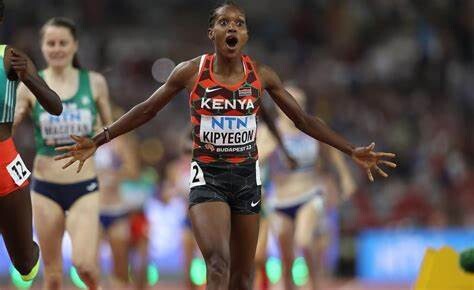
Kipyegon will be racing for the first time after a quite dramatic Paris Olympic Games that saw her almost lose her silver in the women’s 5000m. Kipyegon was shortly disqualified for obstruction and her medal was stripped but Athletics Kenya officials filed an appeal and it was later reinstated.
Going into the women’s 5000m, Kipyegon knew she had her work cut out and put in the work to ensure she defended her title for the third time. She first won the title at the 2016 Rio Olympic Games before winning the delayed 2020 Tokyo Olympic Games.
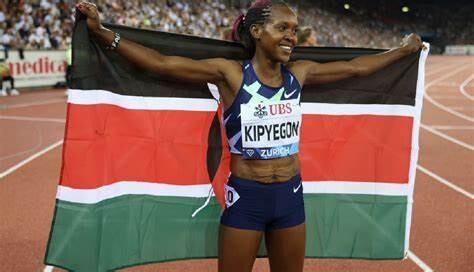
She now heads to Rome with a lot of confidence in winning the race as she gears up for the Diamond League Meeting final in Brussels. She enters the race with a ton of experience as she claimed two gold medals at the 2023 World Championships in Budapest, Hungary, winning the 1500m and 5000m.
Kipyegon, widely regarded as one of the greatest 1500m runners of all time, will face off against a strong Ethiopian cast but the Kenyan never disappoints when it comes to showing up on the global stage.
The race in Rome will be her second Diamond League of the season after she improved her previous world record in a blistering time of 3:49.04 to win the Diamond League Meeting in Paris.
She goes up against home talent Nadia Battocletti, the Olympic 10,000m silver medalist and a two-time European champion. Battocletti also placed fourth in Paris, in the 5000m. Sintayehu Vissa and Ludovica Cavalli will also be in the mix.
In the line-up, Ethiopians Diribe Welteji, Birke Haylom, Worknesh Mesele, and Nigist Getachew will be out to showcase their prowess.
by Abigael Wafula
Login to leave a comment
Olympic medalists Chebet, Kibiwott promoted to corporal
Beatrice Chebet and Abraham Kibiwott left Kenya for the Paris Olympics games as a constable in the police service, but ascended to the rank of Corporals, upon landing back.
Chebet was promoted to the rank by acting Inspector General of Police Gilbert Masengeli at Jogoo House on Wednesday, after grabbing gold in the women's 5000m and 10000m races.
Meanwhile, Kibiwott won bronze in the men’s 3000m race, to also get one star added on his sleeve, moving to the Corporal rank.
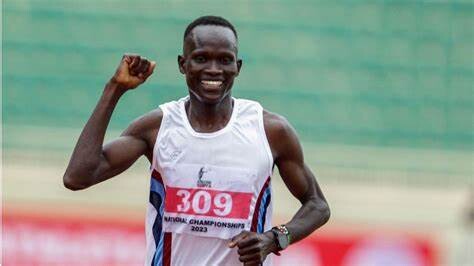
It is a custom that officers in the discipline forces are always promoted one rank higher for their stellar performances in all disciplines on the international stage.
Chebet who is based in Kericho couldn’t hide her joy, saying she achieved her goals through hard work and discipline and promised to continue making Kenya proud.
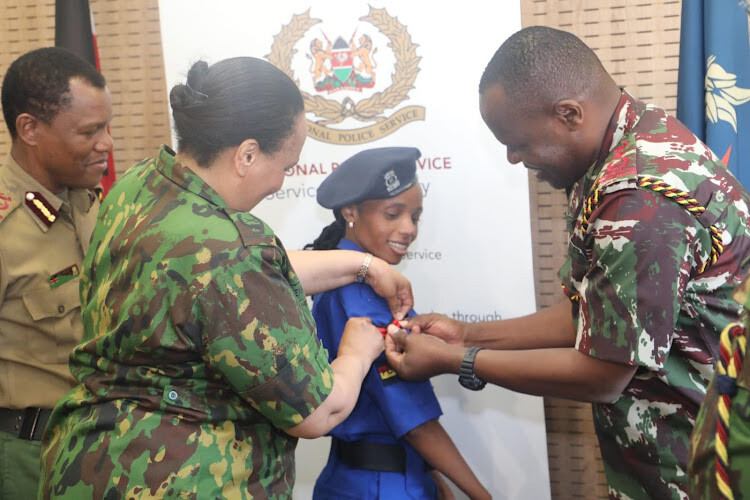
“It feels good to be promoted and I thank my boss Masengeli, for awarding my efforts handsomely. I also appreciate my collogues, teammates, and my family for pushing me towards this achievement.”
The Olympics debutant beat an experienced field of runners on August 6t, to claim the 5000m gold in 14 minutes and 28.56 seconds, finishing ahead of compatriot Faith Kipyegon and Dutch legend Sifan Hassan respectively.
The 24-year-old national police officer is based in Kericho and is coached by Peter Bii.
The best performer in team Kenya’s camp completed her historic double on August 9th 2024 in style grabbing the 10,000m race in 39:43.25.
She beat Italy's Nadia Batocletti and Sifan in that order, at the iconic Stade de France.
Chebet’s historic performance places her among the legends of long-distance running, becoming only the third woman to win both events at the same Olympics.
Meanwhile, Abraham Kibiwott who is an Administration police officer based in APTC training school Embakasi, also made a courtesy call to his boss for his coronation hours after landing from Paris.
Kibowott who was among the five Kenyan bronze medalists, clocked 8:06.47, to finish behind America’s Kenneth Rooks and Morocco’s Soufiane El Bakkali.
The 28-year-old who hails from Uasin Gishu County, has a personal best of 8:05.51 minutes.
He also claimed bronze in the 2023 World Championships in Budapest and the 2016 Durban, African Championships.
“I did my best, but I couldn’t get the desired gold. I will continue working towards it. I want to thank my boss for acknowledging my efforts, I am so happy to have climbed one rank higher,” said Kibiwott.
Both athletes proceeded to Eldoret the City of Champions where President William Ruto, hosted the Kenyan Olympics for a breakfast meeting.
President Ruto is expected to award the medalists with cash-winning bonuses.
Team Kenya finished at position 17 in Paris with 11 medals; 4 gold, 2 silver and 5 bronze medals.
by George Ajwala
Login to leave a comment
What next for Kenya after Paris 2024 Olympic Games
The curtains for the 2024 Paris Olympics fell on Sunday night with Kenya ranking 17th in the world after winning 11 medals.
Despite Kenya topping the African continent with 4 gold, 2 silver and 5 bronze medals, the results left a lot to be desired.
From 83 athletes competing in seven disciplines, a significant impact was expected from the Kenyan athletes and the world.
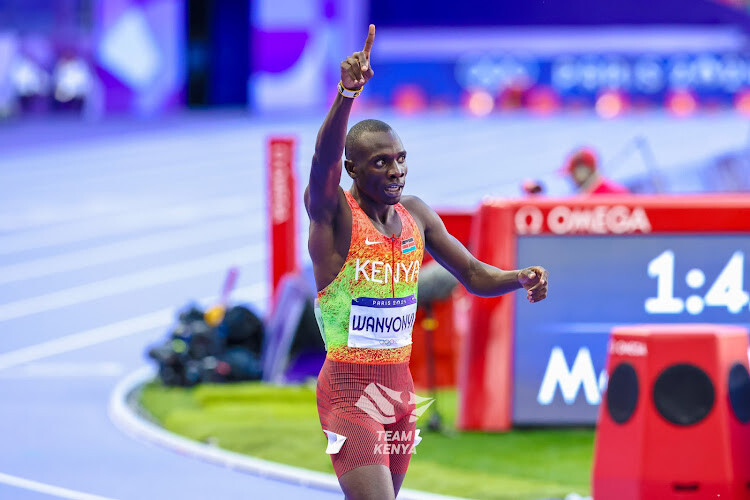
The show started with Judoka Zeddy Cherop falling 10-0 to Portugal’s Patricia Sampao in a record 22 seconds while Fencing African champion Alexandra Ndolo crushed out 13-12 to Ukranian Olena Kryvytska in her debut.
Maria Brunlehner and Ridhwan Mohamed finished 3rd and 4th in the women’s 50m freestyle and Men’s 400m freestyle heats respectively to crush out of contention for a swimming medal.
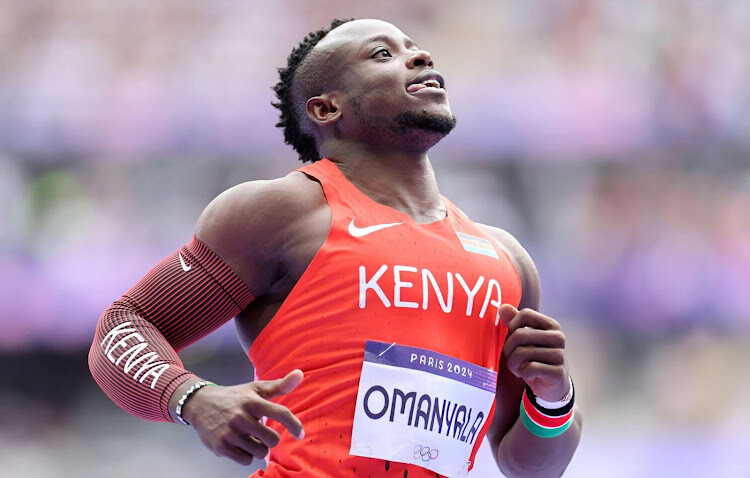
The sevens rugby team also crushed out in the group stage, after going down to Australia, Argentina and Samoa.
The women’s volleyball team booked their next flight after failing to win a single set following three identical 3-0 losses in a tough group B pool comprising Brazil, Poland and Japan.
Paris, the City of Love, had very little affection for Kenya as former world champion Julius Yego, finished a distant 5th in the javelin final with a 87.72m throw, to also bite the dust.
Africa's fastest man, Ferdinand Omanyala's 100m Olympic medal dream was shattered in the semi-finals after clocking 10.08 seconds to finish 8th.
However, Kenya redeemed herself with debutant Beatrice Chebet grabbing double gold in the 5000m and 10000m women’s races.
The best performer was followed closely by Faith Kipyegon who defended her 1500m gold and added the 5000m women’s silver.
Another debutant, Emmanuel Wanyonyi, grabbed the 800m gold, while Ronald Kwemoi struck the men’s 5000m silver.
Mary Moraa, the dancing queen, grabbed the 800m bronze, same as Faith Cherotich (3000m steeplechase) and Abraham Kibiwot (3000m steeplechase).
Hellen Obiri and Benson Kipruto rounded up the bronze tally in the men's and women's marathons.
Obiri failed in her quest for an Olympic medal having won silver in the women's 5000m in Tokyo, 2020 and Rio 2016 games.
History Making
Kenya will however keep pride in making history after Faith Kipyegon became the first woman to complete an Olympic hat trick after breaking her 1500m record in 3:51.29, before a fully packed iconic Stade de France.
Debutant Beatrice Chebet was the best performer entering the history books by winning a double gold in the women's 5000m and 10000m.
The feat makes Chebet the first Kenyan woman to win Olympic 10000m gold for Kenya since the race was introduced in the 1988 Olympics.
She is the third woman after Tirunesh Dibaba and Sifan Hassan to win the 5000m and 10000m double at the Olympic Games.
"I'm dedicating this medal to all Kenyans. I just want to hear my country is proud. This was for you, you were in my mind and heart in every lap; I might have made history but I will sleep better knowing Wananchi wataenjoy the weekend," she said.
Kenya’s legend Eliud Kipchoge failed to complete an Olympic marathon treble after dropping out of the race at the 20km mark.
Kipchoge later confirmed he won’t be running in the Los Angeles 2028 summer games.
“I felt a sharp pain in the stomach and I couldn’t continue. I'm disappointed that for the first time in my career, I failed to finish a race .” Kipchoge said.
Lady luck also smiled on Kenya after Kipyegon's 5000m silver medal was reinstated following an appeal, after a push and shove with Ethiopian nemesis, Gudaf Tsegay, had her initially disqualified.
In the 800m final, Canada appealed against Kenyan winner Emmanuel Wanyonyi's personal best of 1:41.91 in the 800m, claiming he obstructed silver medallist Marco Arop. Kenya won the appeal.
Tokyo 2020
Despite the dismal show in Paris, Kenya had bettered the 2020 Tokyo tally of 10 medals and a 19th spot finish.
The post-Covid games had challenges but Kenya grabbed four gold, four silvers and two bronze medals.
Emmanuel Korir (800m), Faith Kipyegon (1500m), Peres Jepchirhir (marathon), and Eliud Kipchoge (marathon) were the gold medalists while Hellen Obiri (5000m), Fergussin Rotich (800m), Brigid Kosgei (marathon) and Timothy Cheruiyot (1500m) won silver.
Benjamin Kigen and Hyvin Kiyeng won the men's and women's 3000m steeplechase races respectively.
Rio 2016
In the 2016 Rio De Janeiro games, Kenya managed six gold, six silver and one bronze medal for a tally of 13 medals.
Rio 2016 Olympics gold medalists were Jemima Sumgong in women's marathon, David Rudisha in 800m, Faith Kipyegon in 1500m, Conseslus Kipruto in 3000m steeplechase, Vivian Ceruiyot in 5000m and Eliud Kipchoge marathon.
Meanwhile, Vivian Cheruiyot (10000m); Paul Tanui (10000m); Hyvin Kiyeng (3000m steeplechase); Boniface Mucheru (400m hurdles); and Hellen Obiri (5000m) all grabbed silver, while Julius Yego managed a rare javelin silver. Margaret Wambui won bronze in women's 800m.
London 2012
The London 2012 Summer Games saw Kenya manage 2 gold, 4 silver and 7 bronze for a total of 13 medals.
Despite a cold and warm performance in the Queens land, Kenya won two gold medals to finish a distant 29th in the world rankings.
Legendary track masters Ezekiel Kemboi and David Rudisha grabbed gold in the men's 3000m and 800m races respectively.
Sally Kipyegon brought home the women's 10000m silver, while Priscah Jeptoo won the women's marathon silver medal as Vivian Cheruiyot grabbed the women's 5000m race.
Abel Kirui rounded up the silver medals haul after clinching the men’s marathon race.
Vivian Cheruiyot won bronze in the 10000m women's race, while Asbel Kiprop and Milcah Chemos clinched bronze in the men's and women’s 3000m steeplechase.
Timothy Kiptum and Pamela Jelimo clinched the men's and women's 800m race respectively while Thomas Longosiwa and Wilson Kipsang rounded off Kenya's bronze medals haul, winning the 5000m men's and women's marathon races.
What next?
As the nation awaits the Paris 2024 Games report on what worked and what didn't work, a lot will be looked into including preparations, sports science, lack of stadia and lack of funds among others.
However, one constant reminder is that Kenya must smell the coffee, lest our legacy is discarded by the improving rival nations every day.
The next Omanyala, Yego, Obiri and Kipchoge should be nurtured immediately if we are to remain world beaters in the summer games.
Beating the 2008 Beijing Summer Games remains the target, where Kenya sent a total of 46 athletes: 28 men and 18 women who brought home the best tally of six gold, four silver and six bronze medals.
The journey to the Los Angeles 2028 games starts with a new sheriff in town, CS Kipchumba Murkomen, at the helm of the Sports ministry.
by Eric Munene
Login to leave a comment
Paris 2024 Olympic Games
For this historic event, the City of Light is thinking big! Visitors will be able to watch events at top sporting venues in Paris and the Paris region, as well as at emblematic monuments in the capital visited by several millions of tourists each year. The promise of exceptional moments to experience in an exceptional setting! A great way to...
more...How Long Does It Take to Run a Mile?
Knowing the average pace can help you set new goals.
The best way to find your average running speed is by tracking your mile pace.
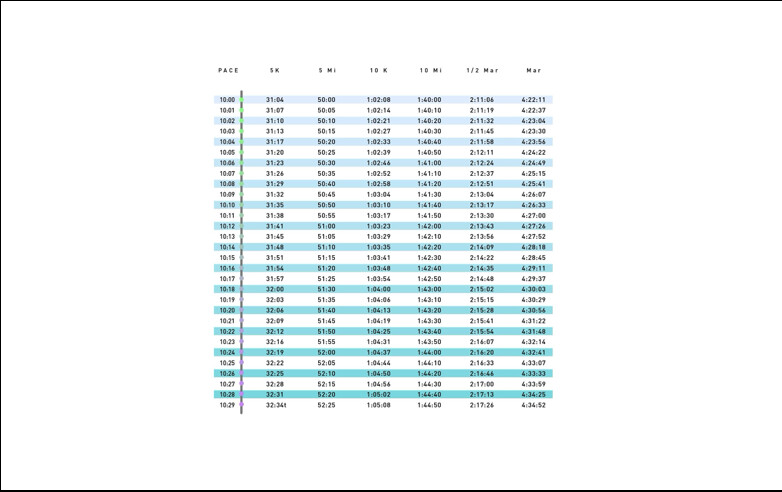
For example, say you go out for a three-mile race. You might start off running fast because of an adrenaline rush, then slow down once you realize you’re running too hard. But toward the end, when the finish is in sight you might catch a second wind and pick up speed again. This all results in different mile times.
Your average mile time, which will be the sum of all your mile times divided by the number of miles completed, may look different than each individual mile. The more you train, not only will your average mile pace drop, but each individual mile time will likely become closer in time to the others.
That’s why tracking your average mile time is a great way to monitor your progress. Plus, when you reach a new barrier—like the first time you run faster than a 10-minute mile, for example—it allows you to search out new goals in your running journey and also scope out your competition.
How long does it take to run a mile on average?
Based on real-life data from all public uploads to Strava from August 1 2022 to July 30 2023, the average mile time across the globe is 10 minutes and 25 seconds (10:25). That number adjusts based on gender: 10:02 for men and 11:17 for women. In the U.S., the average running speed is 9:54 and breaks down to a 9:32 mile pace for U.S. men and 10:37 for U.S. women.
These paces have changed since 2018 when the average global mile pace hit 9:48 and U.S. pace averaged 9:44.
Don’t fret if your current average time is a little off from those marks. Keep in mind that, while sizable, the dedicated Strava community doesn’t represent the entire running community.
What factors affect average running speed?
The following factors play a big role in every runner’s mile speed:
Gender
Age
Weather/wind
Nutrition and hydration
Injuries
Height
Weight
Terrain
The list could go on. Even what you think about or your mindset can affect how fast you run, and that’s under your control. Other factors, however—such as height and age—are things you obviously can’t change.
Also, according to recent number crunching at Runner’s World, based on data from platforms like MapMyRun, even the type of year you’re having has an effect on one’s average mile time and pace. From mid-April to mid-September—during the start and midpoint of the coronavirus pandemic—the average mile pace recorded was 8.5 percent slower compared with the same range in 2019, which the MapMyRun team attributes to a new or returning runner effect.
When it comes to age, one data analysis performed in 2010 and based on 10,000 U.S. runners who completed a 5K showed the average minutes per mile for runners of different ages. The average overall was 11:47 per mile. Men in the 16- to 19-year-old age range finished the run with an average pace of 9:34; women in the same age group finished in 12:09. The numbers gradually increased as the age groups got older.
In most cases, though, the gaps between the finishing times of the different age groups weren’t drastic. And you might not necessarily get slower with age. As Runner’s World has reported, many pro runners and average runners peak in their 30s, and even runners in their 70s can keep getting better with age.
Because of the many variables associated with running pace, it can be difficult to establish an across-the-board average running speed.
How fast should you run a race?
If you’re looking to find out what your average running pace should be to hit a specific time goal in a race, you’re in luck. Our Runner’s World Pace Charts (in both minutes per mile and kilometer) show what time a given pace will produce for six common race distances: 5K, 5 miles, 10K, 10 miles, half marathon, and marathon. As an example in the chart below, if you want to run under 1 hour and 45 minutes for a 10-mile race, you’d need to have an average pace of 10 minutes and 29 seconds per mile to accomplish your goal.
Use our charts as a reference point after you start training so you can know what average pace is necessary (and realistic) for your upcoming goal race.
How can you boost your average running speed?
If you want your average running pace to be faster, there are several steps you can take to improve, like figuring out how to breathe properly and mixing up your types of runs. You should also recognize the importance of nutrition and hydration.
Adopt a holistic approach to your training, doing regular conditioning workouts to improve your strength and flexibility in addition to running, as a stronger, mobile body can help you run faster and avoid injury.
What’s the fastest ever mile speed?
The fastest mile ever recorded was set by Hicham El Guerrouj, a Moroccan runner who ran a mile in 3:43.13 in 1999. Guerrouj was 24 years old at the time.
For women, the fastest mile ever was run by Faith Kipyegon, which she snagged just this month, with a time of 4:07.64.
If you’re looking for the fastest average running paces over the course of 26.2 miles, look no further than the world record holders in the marathon—Eliud Kipchoge (4:37.2 per mile) and Brigid Kosgei (5:06.8 per mile).
And just for fun, if Usain Bolt were to ever keep his jaw-dropping sprint going for a full mile at his peak ability, the Jamaican’s top speed in 2009 during his 9.58 world record 100-meter dash would have put him just over 27 miles per hour.
by Runner’s World
Login to leave a comment
FAITH KIPYEGON CLAIMS THIRD WOMEN’S 1500M TITLE IN OLYMPIC RECORD TIME
Faith Kipyegon blazed to victory in the Olympic Games Paris 2024 women’s 1500m, finishing in 3:51.29 to claim a brilliant gold and Olympic record on the final night of track action at the Stade de France. She is the first athlete - male or female - to win gold in the event at three different Games.
“It’s a big, big achievement,” said an elated Kipyegon after her victory. “I was really looking forward to defending my title (from the last two Olympic Games), and I had a dream. It’s amazing to me, I completed it. I’m so, so happy.
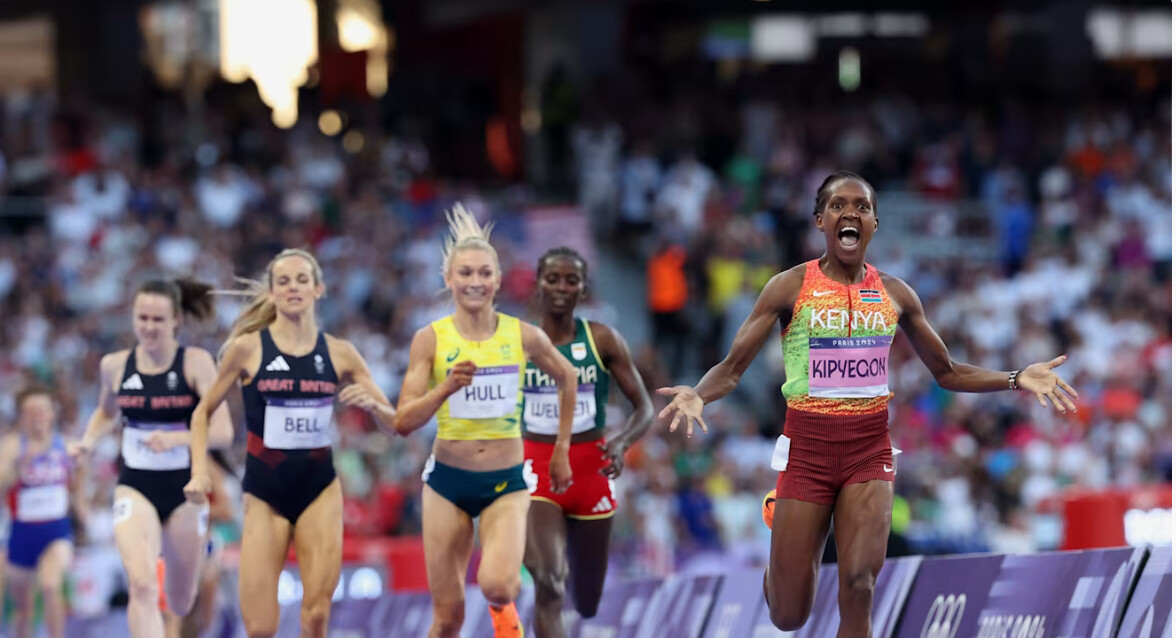
“This is history. I managed to make history. I’ve done it. This is an amazing honour, to win the gold medal in the 1500. It was my key target.”
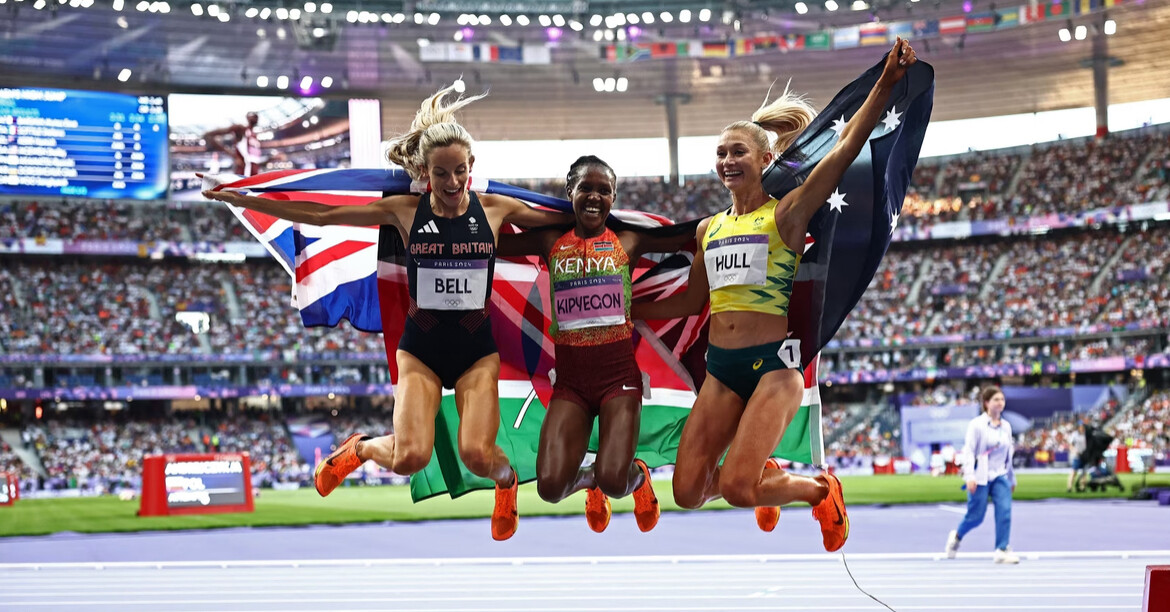
Jessica Hull of Australia won silver in 3:52.56, with Great Britain’s Georgia Bell running the race of her life to take bronze in a national record time of 3:52.61.
“It’s all a bit of a blur,” said bronze medallist Bell. “I think it’ll hit me a little bit later. On the start (line) I really had the feeling that if I just stuck in there I’d be able to do something special, so I’m over the moon to get a medal.”
Kipyegon is the world record holder in the 1500m, having posted a time of 3:49.04 in Paris earlier this year. She came into the race having already won Olympic silver in the 5,000m behind compatriot Beatrice Chebet.
However, over a distance she had made her own, the Kenyan sprinted to the finish line to take her third Olympic title and break the Olympic record she herself had set at Tokyo 2020.
History was made across the entire podium, with the British record falling into the hands of bronze-winning Bell and Hull becoming the first-ever Australian medallist in the event.
But the day belonged to World Athlete of the Year Kipyegon, who has become close to unbeatable over the metric mile and stands victorious once again after a scintillating performance at Paris 2024.
Login to leave a comment
Paris 2024 Olympic Games
For this historic event, the City of Light is thinking big! Visitors will be able to watch events at top sporting venues in Paris and the Paris region, as well as at emblematic monuments in the capital visited by several millions of tourists each year. The promise of exceptional moments to experience in an exceptional setting! A great way to...
more...Chebet seeks Olympic double in 10,000m race as Wanyonyi eyes 800m final spot
Olympic 5,000m champion Beatrice Chebet will be seeking a historic double when she lines up in the 10,000m women's final at the Paris 2024 games Later tonight.
Chebet, won the 5000m on Monday night, dashing in the last 50m to beat two-time Olympic 1500m champion Faith Kipyegon and Dutch woman Sifan Hassan to the tape.
She will fly the Kenyan flag alongside compatriots Margaret Chelimo and Lilian Kasiait.
Kasait, is the second fastest runner this year with another sub-30 display of 29:26.89, while Chelimo finished fifth in the 5000m final, has a best time of (29:27.59), in the 25 laps race
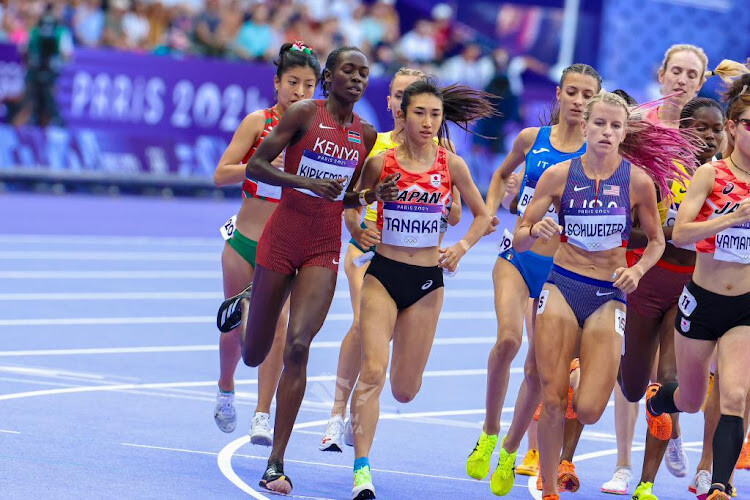
The world record holder with a time of (28:54.14), will face a rich field led by defending champion Sifan Hassan (29:06.82), Ethiopian two-time world 5000m record-holder Gudaf Tsegay and compatriots Fotyen Tesfay (29:47.71) and Tsigie Gebreselama (29:48.34).
While Chebet will be seeking to become the first Kenyan to clinch an Olympic double, Sifan's victory will see the Dutch star become the only woman to have won the title consecutively after Ethiopia’s Tirunesh Dibaba's grabbed the Beijing 2008 and London 2012 titles.
The 24-year-old Olympics debutant faces an acid test in her quest for a second gold medal despite being among the favourites despite flooring seasoned track legends Faith Kiyegon, Sifan and Ethiopia's Tsegay Gudaf. In the 5000m race.
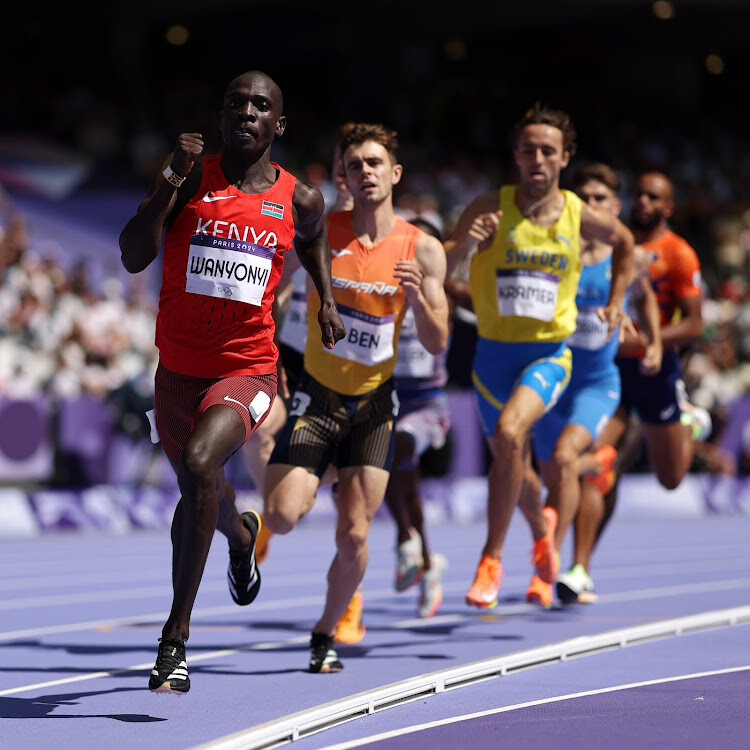
“This is a different race and I have to use a different technique to emerge victorious. "It will be tough but I will try my best," Chebet said.
The race takes place at 9.47 pm at the iconic Stade de France.
Meanwhile, Emmanuel Wanyonyi and Commonwealth Games title holder Wycliffe Kinyamal will kick start team Kenya’s track events this afternoon when they line up in the men's 800m semifinals at the 2024 Paris Olympic Games.
by George Ajwala
Login to leave a comment
Paris 2024 Olympic Games
For this historic event, the City of Light is thinking big! Visitors will be able to watch events at top sporting venues in Paris and the Paris region, as well as at emblematic monuments in the capital visited by several millions of tourists each year. The promise of exceptional moments to experience in an exceptional setting! A great way to...
more...Faith Kipyegon ready for historic 1,500m Olympics hat-trick
Two-time 1,500 Olympic champion Faith Kipyegon will be seeking to become the first woman to win three titles in the same individual track event at the Olympics, when she lines up in the semifinals of the race on Thursday at the Stade de France.
The defending champion clocked (4:00.74) to finish fourth in heat two, behind winner Ethiopia’s Diribe Welteji (3:59.73), Britain’s Georgia Bell (4:00.290 and USA’s Nikki Hiltz (4:00.42) yesterday.
The heats came barely 12 hours after Kipyegon successfully appealed to overturn her disqualification from the 5,000m after a mid-race altercation with Ethiopia’s Gudaf Tsegay in which both narrowly missed crashing onto the track.
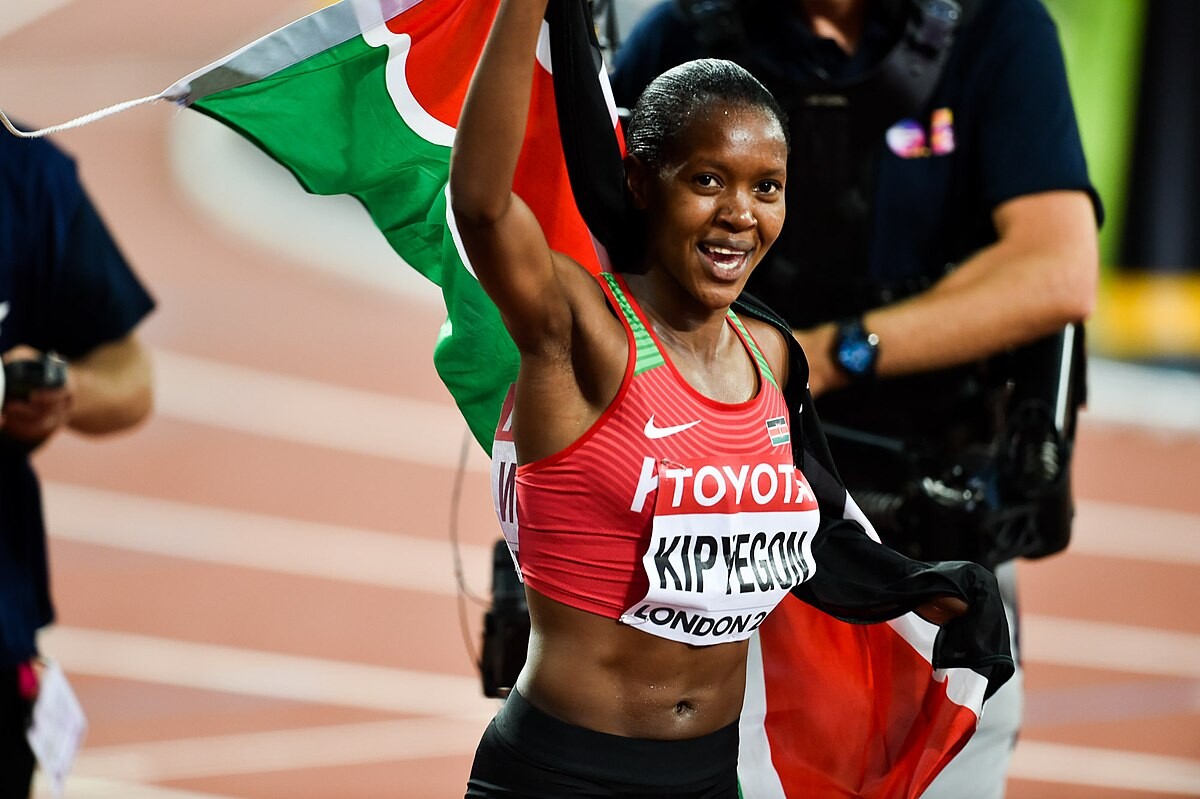
Kipyegon grabbed silver in 14:29.60, finishing ahead of the Netherlands’ Sifan Hassan (14:30.61) as compatriot Beatrice Chebet grabbed gold in (14:28.56).
However, the track queen will have to be mentally fit in Thursday’s semis, to reach Saturday’s finals, following a drama packed Monday night 5,000m race finals.
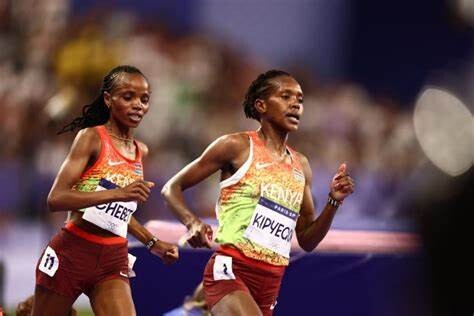
“I feel fresh and ready for the semis, I am Faith and I participate in a good way and I believe in myself. It was a good race a lot of pushing up and down but all in all, it is finished and I focus on the 1,500m semis,” Kipyegon said.
Kipyegon who didn’t manage to talk to journalists after Monday’s drama didn’t want to dwell much on the matter.
“I just went to the village and took a nap knowing that I had another race the next morning. I was not disappointed but this is another distance altogether, I really thank Kenyans for the support and prayers as we continue pushing in the 1,500m,” Kipyegon said.
Having put Monday’s drama behind her, she goes to the semis not having lost in the 1,500m since 2021, with the historical third Olympic title beckoning.
The world champion must beat three of the five fastest 1,500m runners in history, including her Ethiopian rival Tsegay and Austraila’s Jessica Hull, to reach her dreams.
She will fly the Kenyan flag alongside compatriots Susan Ejore and Nelly Jepchirchir who also qualified for the semis.
The Kenyan star ended her 2023 track campaign with a 1,500m win at the Wanda Diamond League final in Eugene on 26 Aug 2023.
She ran 3:53.98 in the 1,500m and 14:46.28 for 5,000m in Nairobi, during the Kenyan Olympic trials.
Faith warmed up for the Olympics by breaking the world 1,500m record again at the Paris Diamond League meeting on July 7, 2024 after clocking 3:49.04
Poland’s Anita Wlodarczyk is the only woman in the history of the games to ever claim a threepeat, as well as possessing the two fastest performances of all time in the hammer throw.
by George Ajwala
Login to leave a comment
Paris 2024 Olympic Games
For this historic event, the City of Light is thinking big! Visitors will be able to watch events at top sporting venues in Paris and the Paris region, as well as at emblematic monuments in the capital visited by several millions of tourists each year. The promise of exceptional moments to experience in an exceptional setting! A great way to...
more...Sifan Hassan says she thought about Olympic marathon during 5,000m final
"I am really freaking scared of the marathon," says Hassan.
Sifan Hassan won her first medal of her attempted distance triple at the Paris 2024 Games, taking bronze in the women’s 5,000m behind Kenya’s Beatrice Chebet and Faith Kipyegon. At the post-race press conference, Hassan said she was super happy with the bronze, since the only thing on her mind during the race was how much harder the marathon will be compared to the 5,000m.
The Dutch distance runner is attempting the 5,000m, 10,000m and the marathon at these Games, which means she will compete in three races over seven days. Hassan said she was happy to win bronze in 14:30.61: “I would have been proud even if I was fourth,” she laughed. “It was an incredible field.”
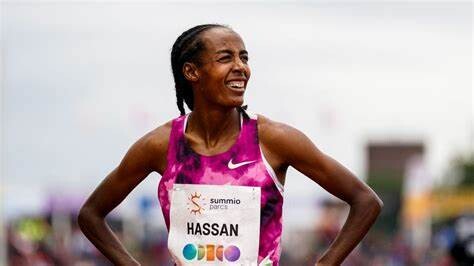
She mentioned in the post-race press conference that whenever the 5,000m got tough, she reminded herself that it’s not as hard as the marathon. “I am really freaking scared of the marathon,” Hassan admitted.
Hassan crossed the line in third, but was briefly upgraded to silver after Kipyegon, the second-place finisher, was disqualified for obstructing another athlete with two laps to go. However, Kipyegon was reinstated to the silver medal position following a successful appeal from Athletics Kenya. Hassan said she was happy to see Kipyegon reinstated. “She’s a phenomenal athlete, and I have a lot of respect for her,” she said. “I was here to medal, and I’m really grateful to get one.”
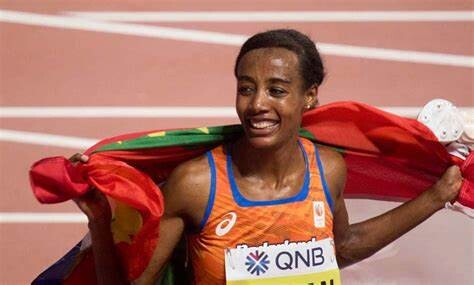
The four-time Olympic medallist from the Netherlands said she has never pushed her limits as she has this year in preparation for the distance triple at the Paris Olympics. “I really want to cry before every race; I am so under pressure—like, ‘how am I going to do this? Why do I put myself through this?'” said Hassan. “Maybe I am just crazy.”
The 31-year-old will next compete on Friday in the women’s 10,000m final, and then run in the marathon on Sunday.
Athletics events at the Paris 2024 Olympic Games are taking place from Aug. 1-11. Today’s coverage is brought to you by Canadian Running and New Balance Canada. Follow us on Twitter on Instagram for all things Team Canada and up-to-date exclusive news and content.
by Marley Dickinson
Login to leave a comment
Paris 2024 Olympic Games
For this historic event, the City of Light is thinking big! Visitors will be able to watch events at top sporting venues in Paris and the Paris region, as well as at emblematic monuments in the capital visited by several millions of tourists each year. The promise of exceptional moments to experience in an exceptional setting! A great way to...
more...Faith Kipyegon Disqualified, Then Wins Appeal To Earn Back Olympic Silver
A dust up just before the 800m mark in the women's 5,000 meter final at the Paris Olympics cost one Kenyan a silver medal, before an appeal overruled it.
An instinctive moment initially cost Faith Kipyegon an Olympic 5,000 meter silver medal on Monday at the Paris Olympics.
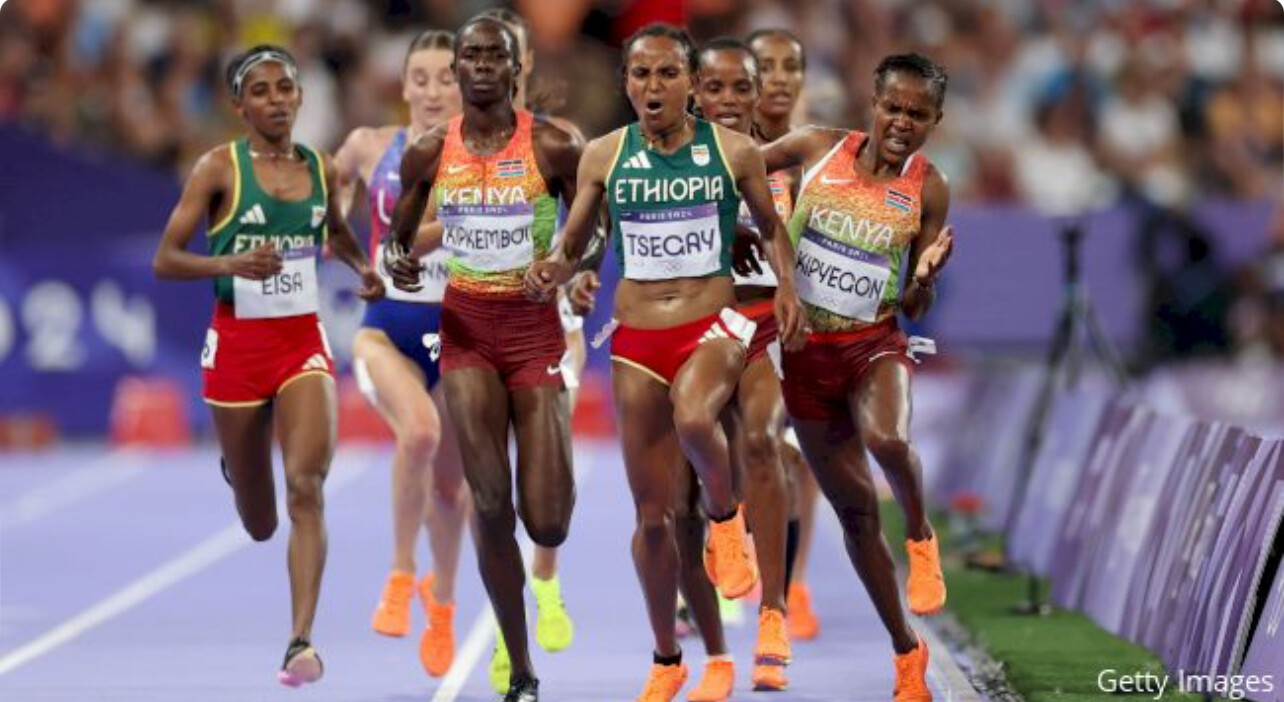
And then after appeal, it didn't.
But first, here's what happened:
The Kenyan outstretched her right arm, making contact with Ethiopia's Gudaf Tsegay with a little more than 800 meters left to go and created a reaction that unbalanced her competitor before the race continued on. The official ruling was obstruction for the infraction.
Kipyegon went on to battle stride-for-stride with her countrywoman Beatrice Chebet, the world record-holder over 10,000 meters, over the next two laps, eventually relenting for silver.
After an appeal by the Kenyan Federation, Kipyegon was re-instated with her silver medal.
Chebet took the Olympic gold with a time of 14:28.56.
Originally, Kipyegon was disqualified for her obstruction with just over 800 meters remaining. That result initially re-ordered the podium and lifted the Netherlands' Sifan Hassan to second in 14:30.61 and Italy's Nadia Battocletti to third in 14:31.64.
With the appeal won, Battocletti moved back to fourth and Hassan to third.
Tsegay, crucially involved in the dust up, settled for eighth in 14:45.21. She is the world record-holder for 5,000 meters, but that fact means little after Monday's performance.
Hassan, who's eyeing up an incredible Olympic triple with her performance in the 5K, 10K and marathon, made swift work over the last lap to close on the Kenyans.
Battocletti, meanwhile, scored a new Italian national record with her performance.
Kipyegon, the world record-holder in the 1,500m and mile, was a former record-holder in the 5K before Chebet passed her.
Americans Karissa Schweizer and Elise Cranny finished ninth and 10th, respectively, in 14:45.57 and 14:48.06.
Login to leave a comment
Beatrice Chebet wins Kenya's first gold medal at Paris Olympics as Faith Kipyegon is disqualified
Beatrice Chebet won Kenya's first gold medal at the Paris Olympics after a great victory past favorite Faith Kipyegon with the world champion losing silver over a track offence.
Beatrice Chebet executed a top strategy to stun Faith Kipyegon and claim Kenya’s first Olympics gold medal in Paris on Monday.
The world silver medalist saved the best for last in what was an ill-tempered race that had a quality field.
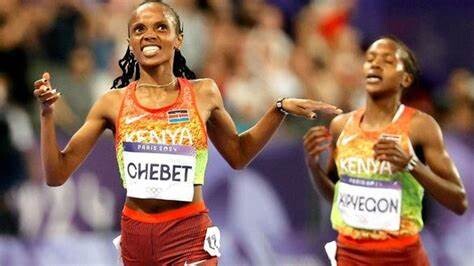
With all eyes on Kipyegon, world record holder Guday Tsegay of Ethiopia and Dutchwoman Sifan Hassan, Chebet ran without pressure and waited for the right opportunity to go for the kill.
Hassan briefly surged forward before retreating while Ethiopian runners also took the lead after which Kipyegon raced head.
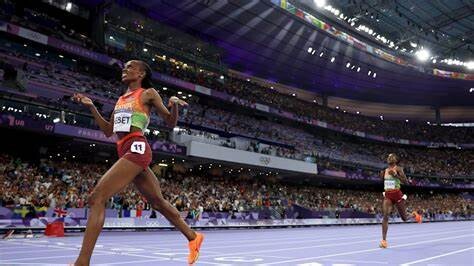
There was a moment of worry when the world champion was boxed in and had a go at Tsegay with two laps to go. She then sprinted forward after the bell and it appeared she was set to claim gold.
However, Chebet kept pace with her and in the final 60m, the double world cross-country champion went past Kipyegon to claim her first Olympics title and a first gold for Kenya at the 2024 Games.
Chebet clocked 14:28.56 as Kipeygon finished second but there would a be a further shocker for her as she was disqualified with Hassan elevated to second place in 14.30.61 while Italian Nadia Battocletti was awarded a bronze medal.
It was not cleat why Kipyegon was disqualified but it appears her altercation on the track with could have led to the shocking decision with obstruction cited as the main reason.
by Joel Omotto
Login to leave a comment
Paris 2024 Olympic Games
For this historic event, the City of Light is thinking big! Visitors will be able to watch events at top sporting venues in Paris and the Paris region, as well as at emblematic monuments in the capital visited by several millions of tourists each year. The promise of exceptional moments to experience in an exceptional setting! A great way to...
more...‘I Can. I Will. I Must:’ Mantras and Affirmations That Propel Olympic Athletes to Victory
These motivating words from Olympians—and the stories behind them—can help you get through any tough run.
For all the drama it contained—including a fall by defending Olympic champion Athing Mu—the final of the women’s 800 meters at the 2024 U.S. Olympic Track and Field Trials was over in less than 2 minutes.
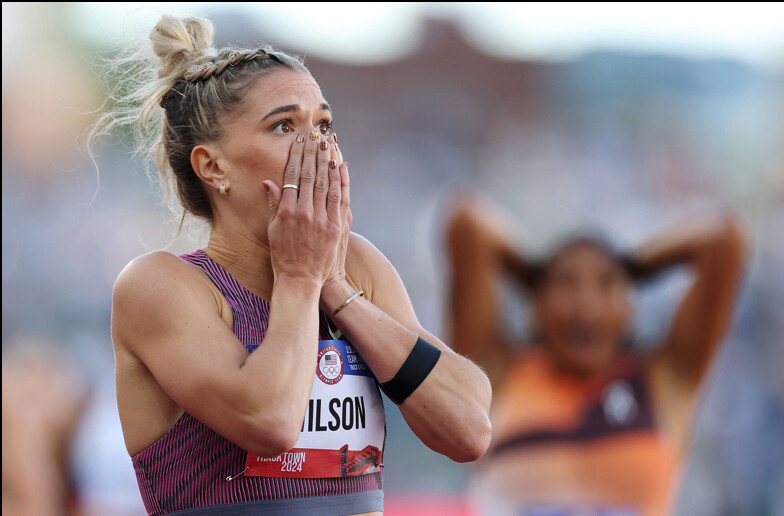
But for Allie Wilson, time stood still. “Everything, any mantra I’ve ever talked about, was rapid-fire flying through my brain,” she told Runner’s World. “‘Try to get top three.’ ‘Pass one more person.’ ‘1 percent.’ I was so calm, cool, and collected, like I’ve never felt before.”
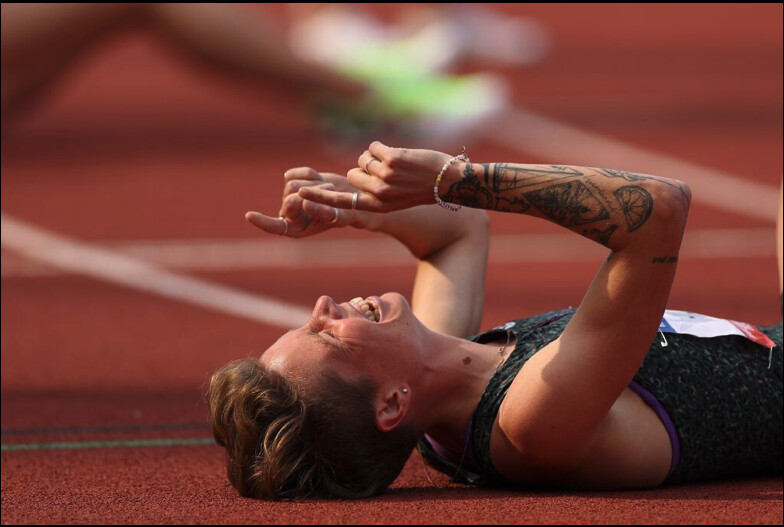
Buoyed by these confidence-boosting claims, Wilson placed second in a personal best 1:58.32 to earn a spot on Team USA.
She credits this flow state to her work with Bianca Martin, a mindset coach currently studying for her master’s degree in sport and performance psychology. Since meeting three years ago, the two have worked on many psychological aspects of performance. One of the most important, Wilson says, has been replacing negative thoughts with neutral or positive ones.
She’s far from the only track and field Olympian to use this approach to performance psychology. Many use spoken or written affirmations—statements that challenge negative thoughts and reinforce positive emotions—as well as mantras, a few words that might be repeated during a workout or race.
Here are the powerful phrases that got Wilson, 1500-meter champion Nikki Hiltz, and champion heptathlete Anna Hall to their first Olympics in Paris this summer. While mantras and affirmations tend to work best when they’re personal, you might find inspiration from their examples for your own big goals.
Looking for inspiration?
Swipe through the deck to find a mantra that resonates with you today!
Looking for inspiration?
Swipe through the deck to find a mantra that resonates with you today!
Allie Wilson’s Mantras“Just another race.”
Yes, the stakes at the Trials—and, before that, at the 2024 USA Indoor Track and Field Championships in Albuquerque in February—were higher than at most meets. But Wilson realized the more she kept her mindset and routine consistent, the better she performed.
“I’m running two laps around the track—that’s what I do every weekend,” says Wilson, a Nike athlete. “Why am I going to go berserk over it and start doing things all differently than I would, or freaking out? It’s the same thing at the end of the day; I’ve done it a million times.”
“I can win.”
In the days before the indoor championships, Wilson found herself nervously telling Martin she knew what was going to happen. Just like at every other major competition, she’d likely give it her all but come up just short. Martin stopped her and ordered her to say the opposite instead: “I can win.”
Wilson hesitated, but Martin insisted. “I would sit there and I wouldn’t speak for 10 seconds. And eventually, I would say it,” Wilson says.
Thanks to all that practice, it didn’t take nearly as long for the thought to surface during the race itself. “When it got really hard, all of a sudden, I was like, ‘Oh my god, I can win it,’” Wilson says—and she did, in 2:00.63.
“1 percent.”
With competition like Mu, who’s also the American record holder, in the race at the team trials, Wilson knew winning would take a fast time. And she wasn’t sure she could keep the pace—though her personal best was 1:58.09, in 2022, she’d only run one race faster than 2 minutes since that summer.
Martin had her calculate what time would result if she ran just 1 percent faster than her best time this season. Wilson figured out it was 1:59 with a few milliseconds. “That struck a chord with me. I was like, ‘Wow, 1 percent is so little, but it makes such a big difference,’” she says. After that, she told herself: “Even when you think you’re trying your hardest, try 1 percent harder.”
“Why not you?”
Thanks to all the work she’d done in the lead-up, Wilson says she had fewer negative thoughts during the Trials than she used to. But she still couldn’t help but express a few doubts. When she did, Martin reminded her that any three women in the final could go to the Olympics. “Why not you?” she asked Wilson.
“That was probably the one I was using on the starting line the most,” Wilson says. “I told myself, it could be any combination of three. I only have to beat six people and then I could be one of them.”
Allie Wilson’s Mantras
“Just another race.”
Yes, the stakes at the Trials—and, before that, at the 2024 USA Indoor Track and Field Championships in Albuquerque in February—were higher than at most meets. But Wilson realized the more she kept her mindset and routine consistent, the better she performed.
“I’m running two laps around the track—that’s what I do every weekend,” says Wilson, a Nike athlete. “Why am I going to go berserk over it and start doing things all differently than I would, or freaking out? It’s the same thing at the end of the day; I’ve done it a million times.”
“I can win.”
In the days before the indoor championships, Wilson found herself nervously telling Martin she knew what was going to happen. Just like at every other major competition, she’d likely give it her all but come up just short. Martin stopped her and ordered her to say the opposite instead: “I can win.”
Wilson hesitated, but Martin insisted. “I would sit there and I wouldn’t speak for 10 seconds. And eventually, I would say it,” Wilson says.
Thanks to all that practice, it didn’t take nearly as long for the thought to surface during the race itself. “When it got really hard, all of a sudden, I was like, ‘Oh my god, I can win it,’” Wilson says—and she did, in 2:00.63.
“1 percent.”
With competition like Mu, who’s also the American record holder, in the race at the team trials, Wilson knew winning would take a fast time. And she wasn’t sure she could keep the pace—though her personal best was 1:58.09, in 2022, she’d only run one race faster than 2 minutes since that summer.
Martin had her calculate what time would result if she ran just 1 percent faster than her best time this season. Wilson figured out it was 1:59 with a few milliseconds. “That struck a chord with me. I was like, ‘Wow, 1 percent is so little, but it makes such a big difference,’” she says. After that, she told herself: “Even when you think you’re trying your hardest, try 1 percent harder.”
“Why not you?”
Thanks to all the work she’d done in the lead-up, Wilson says she had fewer negative thoughts during the Trials than she used to. But she still couldn’t help but express a few doubts. When she did, Martin reminded her that any three women in the final could go to the Olympics. “Why not you?” she asked Wilson.
“That was probably the one I was using on the starting line the most,” Wilson says. “I told myself, it could be any combination of three. I only have to beat six people and then I could be one of them.”
Anna Hall’s Mantras“You’re one of the best athletes in the world—act like it.”
Hall has a history of winning. She’s claimed two NCAA titles and two previous national championships in the heptathlon, which involves seven different running, throwing, and jumping events.
But she broke her foot during the 2021 Trials, taking her out of contention for the Tokyo Games. And then, just this past January, she had knee surgery. The tight timeline for her return made it challenging to stay confident, and the first few weeks she was back at practice post-surgery, she would feel frustrated and cry frequently.
One night, she went home and took a step back. She asked herself: “How would the person who is where I am in sport act throughout this injury? How would they show up every day motivated and ready to go?” Her coaches noticed her mindset was more positive and even her body language improved, says Hall.
“I can, I will, I must.”
Hall has kept a journal ever since 2022, when she was returning from her foot injury. She typically writes in it a few times a week. Sometimes, she jots down technical cues that help her remember how she wants to feel when she’s tossing a shot put (“slide, twist, lift, HIT”) or leaping over hurdles (“tall tight shoulders down”).
But she also includes affirmations like this one, taken from her jumps coach in Florida, Nic Peterson. Hall uses it during every meet to remind herself not only of her own determination, but also the team behind her. The day of her last event the Trials, the 800 meters, it’s written three times on the top of a page of her journal, followed by the statement: “Today I will become an Olympian.”
“Prove them wrong.”
For all her winning, Hall prefers an underdog mentality. “No matter how much I’m favored to win something, in my head, I’m like, ‘Somebody thinks I’m not supposed to win this,’” she says.
This time, she had a concrete example: Early in the season, as she was regaining her post-injury footing, a prominent track and field competition ranked Hall third in early predictions for the Trials. Hall understands why they’d do that, but she still used it as fuel to outperform their projections.
“We are so back.”
The day after the Trials, Hall immediately picked up her journal again to acknowledge all she’d accomplished. In addition to a gold medal and a trip to Paris, the victory had given her a powerful mindset shift.
No longer was she questioning whether she was ready to compete after surgery—she’d done so, successfully. She’ll keep that feeling and phrase in mind, and in her journal, at the Games, where she hopes to be in contention for the win.
Anna Hall’s Mantras
“You’re one of the best athletes in the world—act like it.”
Hall has a history of winning. She’s claimed two NCAA titles and two previous national championships in the heptathlon, which involves seven different running, throwing, and jumping events.
But she broke her foot during the 2021 Trials, taking her out of contention for the Tokyo Games. And then, just this past January, she had knee surgery. The tight timeline for her return made it challenging to stay confident, and the first few weeks she was back at practice post-surgery, she would feel frustrated and cry frequently.
One night, she went home and took a step back. She asked herself: “How would the person who is where I am in sport act throughout this injury? How would they show up every day motivated and ready to go?” Her coaches noticed her mindset was more positive and even her body language improved, says Hall.
“I can, I will, I must.”
Hall has kept a journal ever since 2022, when she was returning from her foot injury. She typically writes in it a few times a week. Sometimes, she jots down technical cues that help her remember how she wants to feel when she’s tossing a shot put (“slide, twist, lift, HIT”) or leaping over hurdles (“tall tight shoulders down”).
But she also includes affirmations like this one, taken from her jumps coach in Florida, Nic Peterson. Hall uses it during every meet to remind herself not only of her own determination, but also the team behind her. The day of her last event the Trials, the 800 meters, it’s written three times on the top of a page of her journal, followed by the statement: “Today I will become an Olympian.”
“Prove them wrong.”
For all her winning, Hall prefers an underdog mentality. “No matter how much I’m favored to win something, in my head, I’m like, ‘Somebody thinks I’m not supposed to win this,’” she says.
This time, she had a concrete example: Early in the season, as she was regaining her post-injury footing, a prominent track and field competition ranked Hall third in early predictions for the Trials. Hall understands why they’d do that, but she still used it as fuel to outperform their projections.
“We are so back.”
The day after the Trials, Hall immediately picked up her journal again to acknowledge all she’d accomplished. In addition to a gold medal and a trip to Paris, the victory had given her a powerful mindset shift.
No longer was she questioning whether she was ready to compete after surgery—she’d done so, successfully. She’ll keep that feeling and phrase in mind, and in her journal, at the Games, where she hopes to be in contention for the win.
Nikki Hiltz’s Mantras
“I am capable.”
Hiltz, the Lululemon-sponsored runner who won the women’s 1500 meters in a meet-record 3:55.33, began journaling in 2023 as part of a New Year’s resolution. One part of that has been writing down affirmations like this one, followed by specific workouts and races that offer data points to back them up.
For example, Hiltz won their semifinal with the fastest time of all the heats, 4:01.40. Although that was their personal best time less than a year ago, at the Trials, “it felt like 6/10,” they wrote—far from an all-out effort. And a month before, they ran 3:59 at the Prefontaine Classic, despite doing a hard double-threshold workout the same week.
“You’re going to perform how you practice.”
In addition to a written journal, Hiltz uses the Notes app to jot down motivating, calming, or confidence-boosting sentiments. Inspiration can come from anywhere—sometimes it’s a coach or sport psychologist, but in this case, it’s from Netflix’s docuseries America’s Sweethearts: Dallas Cowboys Cheerleaders.
Hearing the coach say it to the cheerleaders before a performance—reminding them to “just go out there and do what you’ve already been doing”—caused Hiltz to think about how all their hard work in training would translate into success when it mattered.
“I have all the tools.”
Hiltz headed into the finals particularly confident of their ability not only to run fast, but to shift gears and kick hard. In their journal, they wrote that they thought they were now capable of accelerating off a 3:57 pace.
And that’s exactly what happened—after Elle St. Pierre led for the first three laps in 3:08.77, Hiltz swung wide and surged in the final 100 meters to take the win. “Every time I’ve written something like that in my journal, it kind of comes true,” Hiltz says. “That’s the power of putting it out to the world.”
“Respect everybody, fear nobody.”
Hiltz knew the field in the 1500 meters was deep, and that multiple athletes could run faster than 4 minutes. But they didn’t let that rattle them.
They’ll carry that approach over to the Games, too. Exactly a week after the Trials, Kenya’s Faith Kipyegon broke her own world record in the event, running 3:49.04—and Australia’s Jess Hull stuck with her, finishing in a new national record of 3:50.83.
While it would be easy to find this intimidating—and in moments, Hiltz does—their mental work allows them to quickly see the flip side. “We’ve all beat Jess Hull at some point or another,” they say. “Jess doing that was badass and impressive, and she’s inspiring me to go out at a faster pace than I ever have before.”
That ability to reframe is exactly why Hiltz—along with Hall and Wilson—say they’ll keep using affirmations and mantras as they head into their big races in Paris.
“When you’re on the starting line of the Olympic final, no one’s doing anything more or less than anyone else. We all have incredible coaches, and we’ve done incredible training,” Hiltz says. “What’s going to separate us from each other is the belief and the mental stuff.”
Nikki Hiltz’s Mantras
“I am capable.”
Hiltz, the Lululemon-sponsored runner who won the women’s 1500 meters in a meet-record 3:55.33, began journaling in 2023 as part of a New Year’s resolution. One part of that has been writing down affirmations like this one, followed by specific workouts and races that offer data points to back them up.
For example, Hiltz won their semifinal with the fastest time of all the heats, 4:01.40. Although that was their personal best time less than a year ago, at the Trials, “it felt like 6/10,” they wrote—far from an all-out effort. And a month before, they ran 3:59 at the Prefontaine Classic, despite doing a hard double-threshold workout the same week.
“You’re going to perform how you practice.”
In addition to a written journal, Hiltz uses the Notes app to jot down motivating, calming, or confidence-boosting sentiments. Inspiration can come from anywhere—sometimes it’s a coach or sport psychologist, but in this case, it’s from Netflix’s docuseries America’s Sweethearts: Dallas Cowboys Cheerleaders.
Hearing the coach say it to the cheerleaders before a performance—reminding them to “just go out there and do what you’ve already been doing”—caused Hiltz to think about how all their hard work in training would translate into success when it mattered.
“I have all the tools.”
Hiltz headed into the finals particularly confident of their ability not only to run fast, but to shift gears and kick hard. In their journal, they wrote that they thought they were now capable of accelerating off a 3:57 pace.
And that’s exactly what happened—after Elle St. Pierre led for the first three laps in 3:08.77, Hiltz swung wide and surged in the final 100 meters to take the win. “Every time I’ve written something like that in my journal, it kind of comes true,” Hiltz says. “That’s the power of putting it out to the world.”
“Respect everybody, fear nobody.”
Hiltz knew the field in the 1500 meters was deep, and that multiple athletes could run faster than 4 minutes. But they didn’t let that rattle them.
They’ll carry that approach over to the Games, too. Exactly a week after the Trials, Kenya’s Faith Kipyegon broke her own world record in the event, running 3:49.04—and Australia’s Jess Hull stuck with her, finishing in a new national record of 3:50.83.
While it would be easy to find this intimidating—and in moments, Hiltz does—their mental work allows them to quickly see the flip side. “We’ve all beat Jess Hull at some point or another,” they say. “Jess doing that was badass and impressive, and she’s inspiring me to go out at a faster pace than I ever have before.”
That ability to reframe is exactly why Hiltz—along with Hall and Wilson—say they’ll keep using affirmations and mantras as they head into their big races in Paris.
“When you’re on the starting line of the Olympic final, no one’s doing anything more or less than anyone else. We all have incredible coaches, and we’ve done incredible training,” Hiltz says. “What’s going to separate us from each other is the belief and the mental stuff.”
by Runner’s World
Login to leave a comment
The Dutch distance specialist has decided to drop the 1,500m to focus on the marathon
After the Dutch Olympic team announced that distance phenom Sifan Hassan was set to become the first athlete in history to attempt four Olympic athletics events, Hassan has decided to drop down to a triple. In 2023, she became the first athlete to medal in the 1,500m, 5,000m, and 10,000m at a single Games, bringing home a bronze (in the 1,500m) and two golds. This year, she will swap out the 1,500 for her newest discipline, the marathon.
Hassan’s third-place finish in the 1,500m at Tokyo 2020, behind Kenya’s Faith Kipyegon and Team GB’s Laura Muir, was the weakest of her three performances. Now, the deep field in the women’s 1,500m in Paris threatens her chances to bring home another medal in the event. Kipyegon (the defending world champion and world record holder) and Australia’s Jessica Hull (the newly crowned 2,000m world record holder), ran the world’s best times in the discipline earlier this month. Muir (the Olympic silver medallist) and Ethiopia’s Gudaf Tsegay (5,000m world record holder) are also medal contenders in the event, adding to the challenge.
Hassan only made her marathon debut in 2023, and followed up her win at the London Marathon by clocking a 2:13:44 (the second-fastest women’s marathon time in history) to win the 2023 Chicago Marathon. With world record holder Tigst Assefa of Ethiopia the sole competitor ranked ahead of her, Hassan stands a much better chance of bringing home a medal in the marathon. (Additionally, the women’s 1,500m final is scheduled for Saturday evening, Aug. 10, which is the night before the marathon–obviously not ideal timing for a strong marathon.)
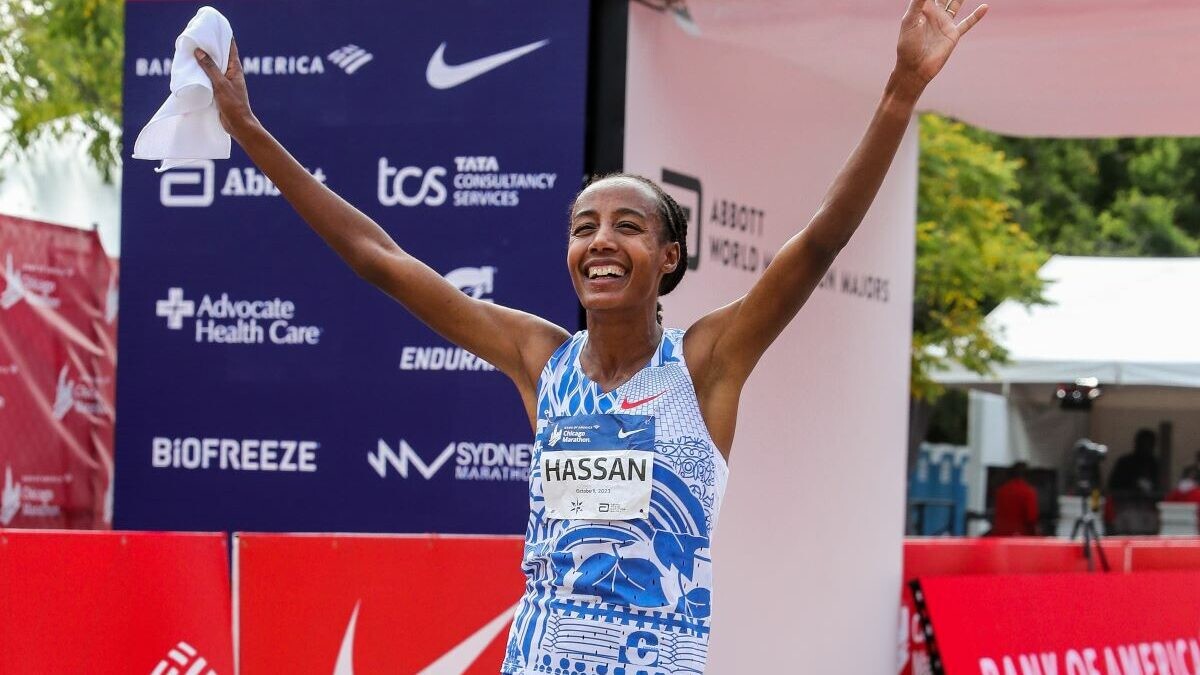
With three races removed from her Olympic itinerary, Hassan’s new schedule is somewhat less demanding, with her races spaced out by a couple of days each.
Aug. 2: 5,000m, Round 1 – 6:10 p.m. local timeAug. 5: 5,000m, Final – 9:10 p.m.Aug. 9: 10,000m Final – 8:55 p.m.Aug. 11: Marathon – 8:00 a.m.
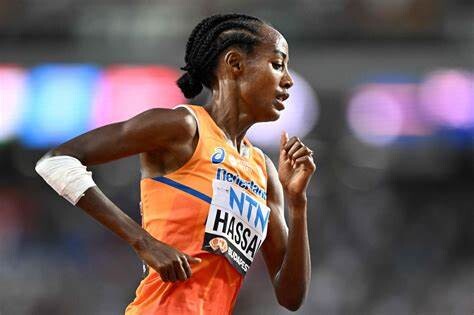
by Cameron Ormond
Login to leave a comment
Paris 2024 Olympic Games
For this historic event, the City of Light is thinking big! Visitors will be able to watch events at top sporting venues in Paris and the Paris region, as well as at emblematic monuments in the capital visited by several millions of tourists each year. The promise of exceptional moments to experience in an exceptional setting! A great way to...
more...50 laps and then a marathon: Sifan Hassan chases the ‘impossible’ dream at Paris Olympics
The Olympics is a time to marvel at the incredible but the sheer size of the opportunity should ensure an element of caution among athletes.
Not so for Sifan Hassan, the Dutch middle and long distance runner, after she announced her bid to pull off a historic treble at the Paris Olympics when she will compete in the 5,000m, 10,000m and marathon events.
The Olympic champion in Tokyo over 5,000m and 10,000m, Hassan had entered the 1,500m, too, before dropping that event on Wednesday.
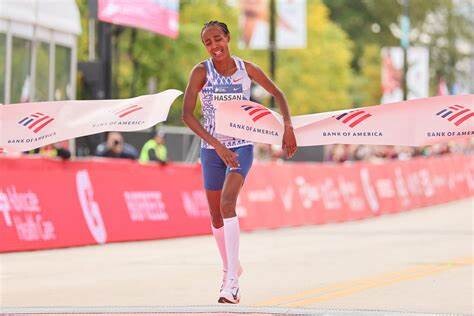
Hassan provoked excitement in the sport three years ago when she attempted an exhausting Tokyo treble.
She would add bronze to her two golds in Tokyo when she rallied in the 1,500m heats after falling over, before settling for bronze in the final after a fierce battle with Faith Kipyegon and Laura Muir.
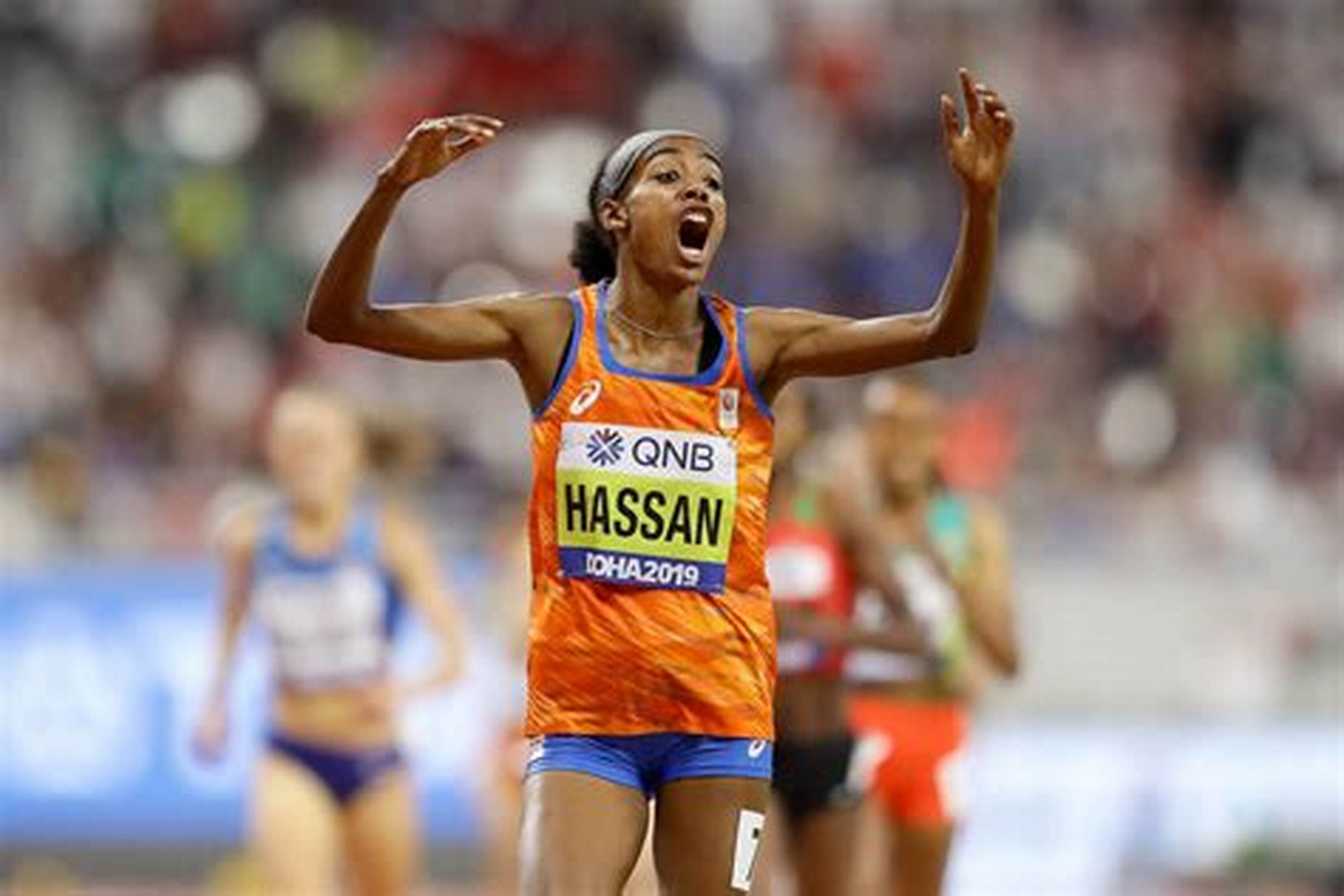
That bronze, while adding a dash of disappointment in the Tokyo rush for three golds, was a gift to the sport in hindsight. It delivered a shove, compelling Hassan to roll the dice and taste 26.2 miles on the roads.
The marathon and the roads bring acclaim and fortunes rarely afforded on the track and the hope was that Hassan, with her formidable track speed, would graduate in time. Yet her transition was seamless: She made her debut in London last year, pulling off one of the most staggering comebacks.
Hunched over and stationary in the middle of the race at 19km, Hassan desperately stretched to rid her aching body of lactic acid. Not only did it vanish, but she found a spring to outkick Alemu Megertu and win by a mere four seconds in two hours, 18 mins and 33secs.
More was to come, with victory and the second-fastest women's marathon of all time (2:13.44) in Chicago, before a respectable fourth in Tokyo this year. It begs the question as to why Hassan would risk scuppering hopes of marathon gold by subjecting her legs to 20km (the 5,000m has two rounds) on the track. Notably, the marathon course will present a number of hills, which could see each race unfold into a tactical affair with the opportunity for a sprint finish.
Even with 4mins 4.08secs in the 1,500m this year, Hassan would revel in the opportunity to test Ethiopian world record holder Tigst Assefa (2:11:53) and Kenyan trio Peres Jepchirchir, Helen Obiri and Sharon Lokedi over a late dash.
But the 31-year-old, whose face can be seen across many of the metro stations in Paris for an eye-catching Nike campaign, insists the attempt is nothing more than intrigue. And for that. she should be praised, in a sport where so many play it safe.
“I’m a very curious person,” she remarked. “Is life all about a gold medal? I'm very curious to do many events. I think it's impossible. So I want to see if it is, so I have to try. In Tokyo, it was successful after the three events. I discovered myself, also.
“Curiosity, when I try new things, is actually what keeps me going in my career. My journey is more important, the other things come after. I love the journey as much as the challenge.
“Did I balance speed on the track with enough endurance in the marathon? Let’s find out together. It’s not easy to face the unknown but my curiosity has driven all my training towards this goal. I will try my best to succeed.”
Hassan starts her campaign in Paris in the 5,000m opening round on Friday and will return on Monday for the final, should she qualify.
The 10,000m final is set for 9 August, meaning less than 48 hours of rest before lining up for the marathon.
“For anyone else this would be insane!” American track legend Michael Johnson wrote on social media. “I don't believe there's ever been an athlete who enjoys racing more than Sifan Hassan.”
And her attempt has left many of her fellow athletes in awe, with 1,500m world champion Josh Kerr impressed by her versatility.
“I don't think I could do that on the women’s side... to do a triple like that, the training is so gruelling for the marathon,” said Kerr. “She’s so well rounded that being able to have enough speed in the rank to do track races, it’s two rounds in the five, she’ll be out there having fun. Very impressive.”
“It's good sometimes when I'm nervous ... I do better,” Hassan laughed. Her rivals will hope she is not.
by Jack Rathborn
Login to leave a comment
Paris 2024 Olympic Games
For this historic event, the City of Light is thinking big! Visitors will be able to watch events at top sporting venues in Paris and the Paris region, as well as at emblematic monuments in the capital visited by several millions of tourists each year. The promise of exceptional moments to experience in an exceptional setting! A great way to...
more...Paris 2024: Favorites and best value picks on the track
We are just four days away from the opening ceremony of the 2024 Paris Olympics and a little over a week from the start of the athletics events at the Stade de France. If you’re looking to place your bets for gold or want to know the favorites for each event (according to Vegas sportsbooks), we’ve got you covered with insights and odds to help you get the best value out of your picks.
Men’s 100m
Favorite: Kishane Thompson (JAM) -105 [world leader]
Best value: Oblique Seville (JAM) +900
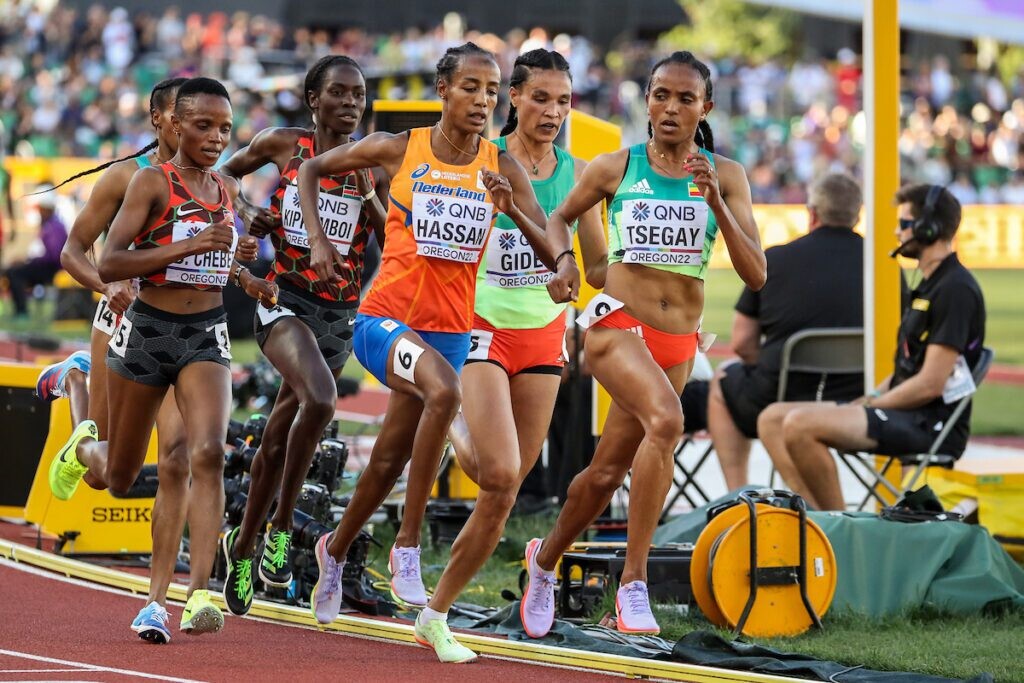
Men’s 200m
Favorite: Noah Lyles (USA) -290 [3x world champion]
Best value: Erriyon Knighton (USA) +1000 [2x world championship medallist]
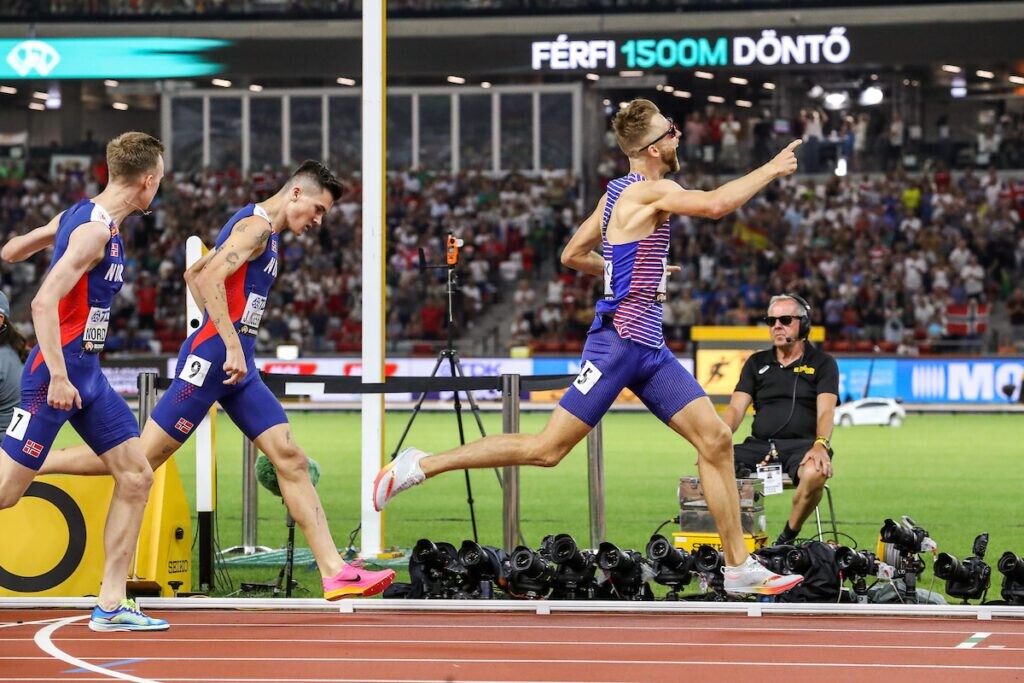
Men’s 400m
Favorite: Matthew Hudson-Smith (GBR) +120 [world silver medalist]
Best value: Steven Gardiner (BAH) +350 [reigning Olympic champion]
Men’s 800m
Favorite: Djamel Sedjati (ALG) -250 [world leader]
Best value: Marco Arop (CAN) +1500 [reigning world champion]
Men’s 1,500m
Favorite: Jakob Ingebrigtsen (NOR) -225 [reigning Olympic champion]
Best value: Josh Kerr (GBR) +175 [reigning world champion]
Men’s 5,000m
Favorite: Jakob Ingebrigtsen (NOR) -290 [reigning world champion]
Best value: George Mills (GBR) +4000
Men’s 10,000m
Favorite: Joshua Cheptegei (UGA) +120 [world record holder]
Best value: Berihu Aregawi (ETH) +600
Men’s 110m hurdles
Favorite: Grant Holloway (USA) -500 [world leader and world champion]
Best value: Hansle Parchment (JAM) +1000 [reigning Olympic champion]
Men’s 400m hurdles
Favorite: Rai Benjamin (USA) +100 [world leader]
Best value: Alison Dos Santos (BRA) +300 [2022 world champion]
Men’s 3,000m steeplechase
Favorite: Lamecha Girma (ETH) -120
Best value: Soufiane El Bakkali (MAR) +190
Men’s marathon
Favorite: Eliud Kipchoge (KEN) -190 [reigning Olympic champion]
Best value: Benson Kipruto (KEN) +900 [2024 Tokyo Marathon champion]
Women’s 100m
Favorite: Sha’Carri Richardson (USA) -225 [reigning world champion]
Best value: Julien Alfred (LCA) +700
Women’s 200m
Favorite: Gabby Thomas (USA) +105 [2020 Olympic bronze medalist]
Best value: Shericka Jackson (JAM) +180 [reigning world champion
Women’s 400m
Favorite: Marileidy Paulino (DOM) -135 [2020 Olympic silver medalist]
Best value: Rhasidat Adeleke (IRL) +700
Women’s 800m
Favorite: Keely Hodgkinson (GBR) -290 [Olympic silver medallist]
Best value: Nia Atkins (USA) +1500
Women’s 1,500m
Favorite: Faith Kipyegon (KEN) -285 [world record holder]
Best value: Jessica Hull (AUS) +1000
Women’s 5,000m
Favorite: Faith Kipyegon (KEN) -285 [world champion]
Best value: Beatrice Chebet (KEN) +750 [world XC champion]
Women’s 10,000m
Favorite: Sifan Hassan (NED) +120 [reigning Olympic champion]
Best value: Gudaf Tsegay (ETH) +250 [reigning world champion]
Women’s 100m hurdles
Favorite: Cyrena Samba-Mayela (FRA) +250 [European champion]
Best value: Tobi Amusan (NGR) +1500 [world record holder]
Women’s 400m hurdles
Favorite: Sydney McLaughlin-Levrone (USA) -700 [world record holder and reigning Olympic champion]
Best value: Femke Bol (NED) +300 [reigning world champion]
Women’s 3,000m steeplechase
Favorite: Beatrice Chepkoech (KEN) n/a [world record holder]
Best value: Sembo Almayew (ETH) n/a
Women’s marathon
Favorite: Tigst Assefa (ETH) +250 [world record holder]
Best value: Hellen Obiri (KEN) +400 [2023 & 2024 Boston Marathon champion]
by Marley Dickinson
Login to leave a comment
Paris 2024 Olympic Games
For this historic event, the City of Light is thinking big! Visitors will be able to watch events at top sporting venues in Paris and the Paris region, as well as at emblematic monuments in the capital visited by several millions of tourists each year. The promise of exceptional moments to experience in an exceptional setting! A great way to...
more...Sifan Hassan to race four events at Paris 2024 Olympics
At the Tokyo 2020 Olympics, Dutch distance runner Sifan Hassan made history by winning three individual medals across three different athletics disciplines, two golds and one bronze. She won golds in the women’s 5,000m and 10,000m events, and bronze in the women’s 1,500m behind Faith Kipyegon and Laura Muir. Well apparently three events didn’t keep Hassan busy enough, raising the stakes for Paris 2024 by competing in the 1,500m, 5,000m, 10,000m and the marathon—an unprecedented Olympic quadruple.
According to an announcement from the Dutch Olympic team, Hassan is entered in all four disciplines and will race a total of seven times over 10 days. Her most challenging stretch will be from Aug. 8-11, when she is scheduled to race the 1,500m semi-finals and finals, the women’s 10,000m final, and the women’s marathon on the final day of Paris 2024 (Aug. 11); all on consecutive days.
Hassan is the only athlete in Olympic history to have medaled in the 1,500m, 5,000m and 10,000m events at a single Games. She is also the first to qualify for and attempt this quadruple-distance feat.
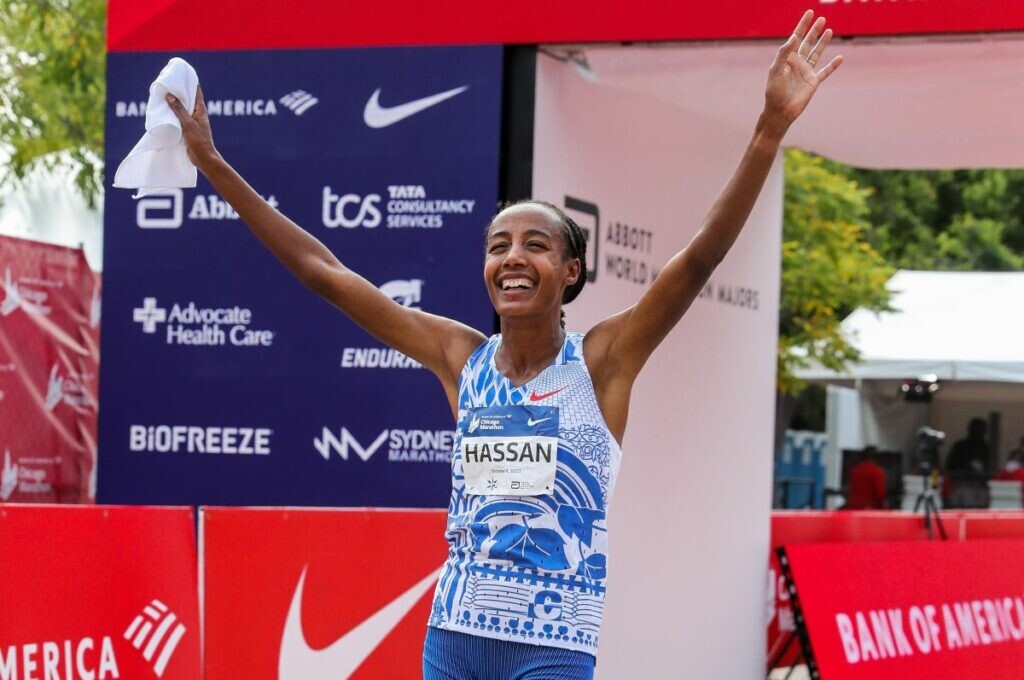
Last year, Hassan expanded her repertoire by adding the marathon to her list of racing disciplines. She won her marathon debut at the 2023 London Marathon and went on to clock the second-fastest women’s marathon time in history (2:13:44) to win the 2023 Chicago Marathon.
Hassan’s Paris 2024 schedule is ambitious. Although she is one of the greatest distance runners in history, replicating her Tokyo success will be incredibly challenging. The women’s 1,500m and 5,000m are two of the deepest events right now, featuring formidable competitors like defending world champion Faith Kipyegon, Laura Muir (Olympic silver medallist), Australia’s Jessica Hull (2,000m world record holder), Ethiopia’s Gudaf Tsegay (5,000m world record holder), and Kenya’s Beatrice Chebet (world XC champion). Hassan’s best chances for a medal lie in the women’s 10,000m final and the marathon, which come at the end of the Olympic schedule.
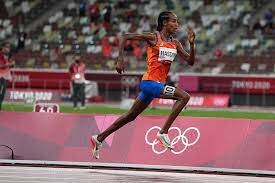
Here’s a look at Hassan’s Olympic schedule:
August 2: 5,000m, Round 1 – 6:10 p.m.
August 5: 5,000m, Final – 9:10 p.m.
August 6: 1,500m, Round 1 – 10:05 a.m.
August 8: 1,500m, Semifinal – 7:35 p.m.
August 9: 10,000m Final – 8:55 p.m.
August 10: 1,500m, Final – 8:25 p.m.
August 11: Marathon – 8:00 a.m.
Only two athletes have won four medals at a single Olympic Games: U.S. sprint icon Florence Griffith-Joyner, who won three golds and one silver (in the 4x400m relay) at Seoul in 1988, and Fanny Blankers-Koen of the Netherlands, who won four golds at the 1948 Olympics in London in the 100m, 200m, 4x100m relay, and 80m hurdles.
by Marley Dickison
Login to leave a comment
Paris 2024 Olympic Games
For this historic event, the City of Light is thinking big! Visitors will be able to watch events at top sporting venues in Paris and the Paris region, as well as at emblematic monuments in the capital visited by several millions of tourists each year. The promise of exceptional moments to experience in an exceptional setting! A great way to...
more...Faith Kipyegon shares two reasons behind her record-breaking 1500m display at Paris Diamond League
Kipyegon reveals two reasons behind her record-breaking display at the Paris Diamond League, despite it only being her second race of the season which has been hindered by injuries.
Faith Kipyegon has offered an insight into the factors that have been fueling her seemingly nonchalant ability to dominate races.
Kipyegon, who launched her Diamond League season in Paris on Sunday, took the world by surprise as she shattered her own record in the 1500m, running 3.49.04, some seven microseconds faster than when she broke the record again in Monaco a year ago.
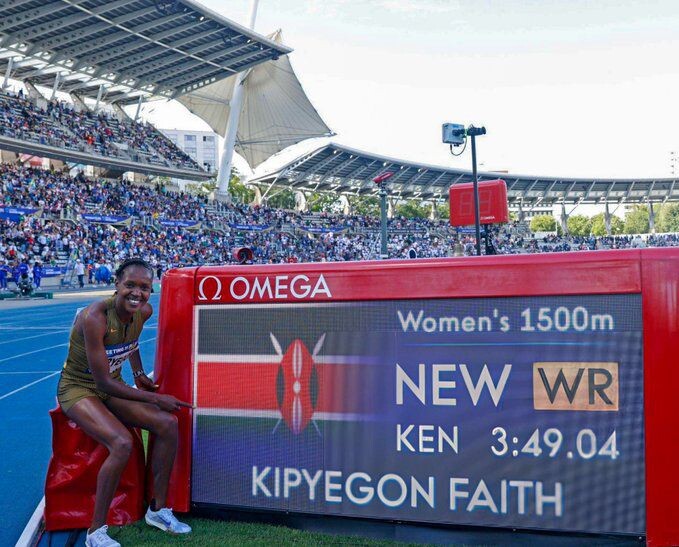
Kipyegon showcased why she is a force to be reckoned with as she eyes a historic third consecutive Olympic gold in the 1500m.
Speaking to Citius Mag, Kipyegon revealed the two crucial factors fueling her dominant display: belief in her training and the competitive push from fellow athletes.
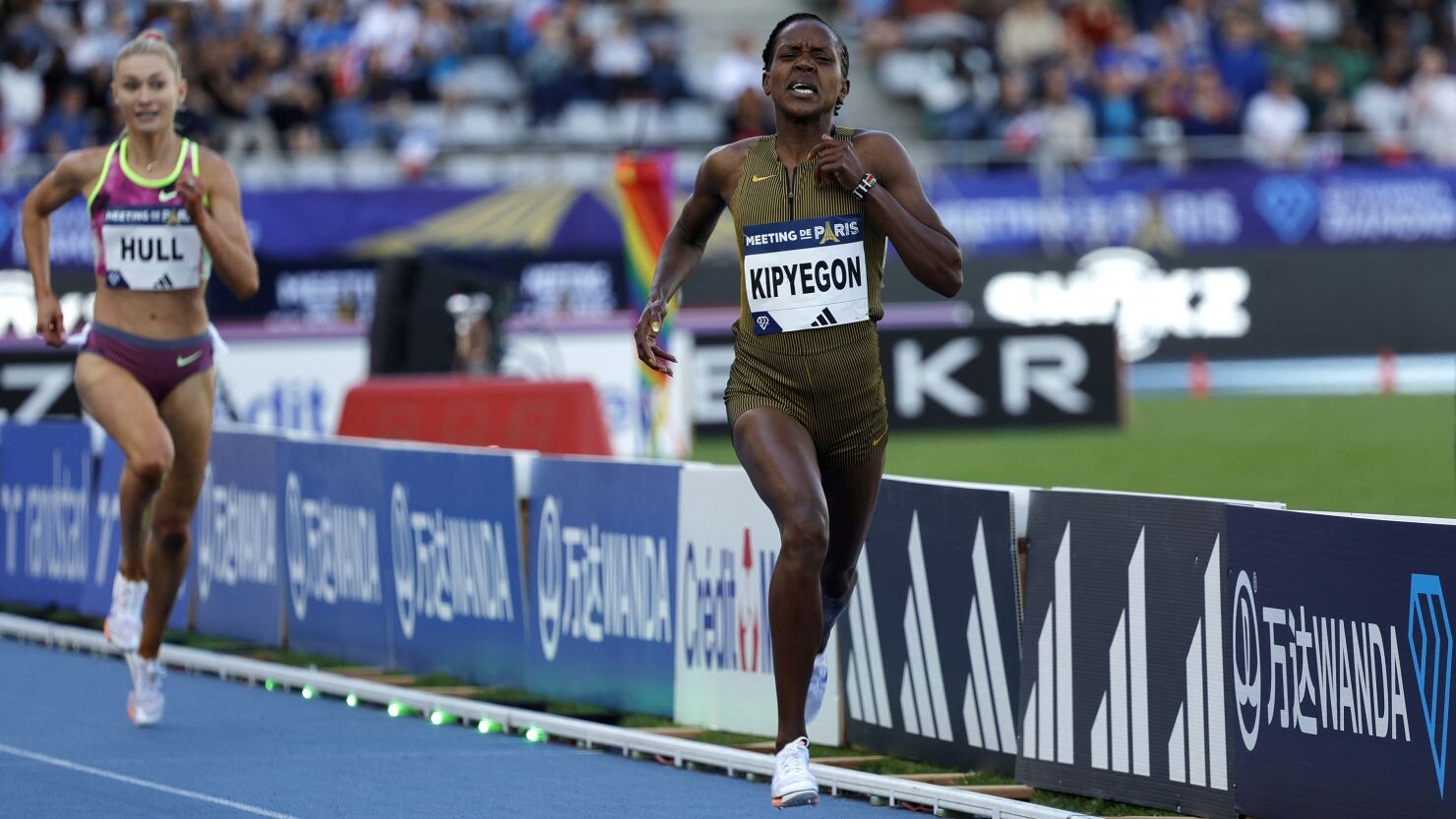
1. Unwavering Belief in Training
Kipyegon attributed her record-breaking performance to her confidence in the rigorous training she underwent. Despite the long absence from the track, her belief in the hard work and preparation was unwavering.
“I think it is all about believing in the training I have done so far. After I asked my coach what was possible in Paris, he told me, ‘Yeah, everything is possible, you never know, the training you have done (could reap reward),” Kipyegon explained.
This confidence propelled her to execute her race strategy flawlessly, leading to her remarkable finish. “I came here and just believed in myself, executed it just to see what was possible. I came here and ran a world record in my first Diamond League classic of the season,” she added.
2. Competitive Push from Jessica Hull
Another significant factor in Kipyegon’s stellar performance was the intense competition from Australian runner Jessica Hull. Hull’s relentless pressure throughout the race kept Kipyegon on her toes, ultimately pushing her to new heights.
Hull's impressive time of 3:50.83 not only set a new Australian record but also became the fifth quickest ever run by a female athlete. Reflecting on the race, Kipyegon expressed her admiration for Hull’s performance.
“I was like, who is following me? But I turned back and saw Jessica Hull behind me. It was really feeling great to push each other towards the finish line. I am really really happy for her,” Kipyegon said.
Hull’s presence and competitiveness provided Kipyegon with the energy and drive needed to break her own world record.
by Mark Kinyanjui
Login to leave a comment
Gudaf Tsegay, Lamecha Girma head Ethiopia's 43-athlete squad to battle Kenya in Paris Olympics
In the 2021 Tokyo Olympics, Kenya bested Ethiopia as the top African nation, finishing 19th overall with 10 athletics medals.
World record-holders Gudaf Tsegay and Lamecha Girma are set to lead a formidable Ethiopian squad of 43 athletes at the upcoming Paris Olympic Games.
The robust team comprising top-tier talent across various track and field events promises to offer fierce competition to their long-time rivals Kenya in the race for Olympic medals.
Tsegay will be competing in the 10,000 meters, 5,000 meters, and 1,500 meters events.
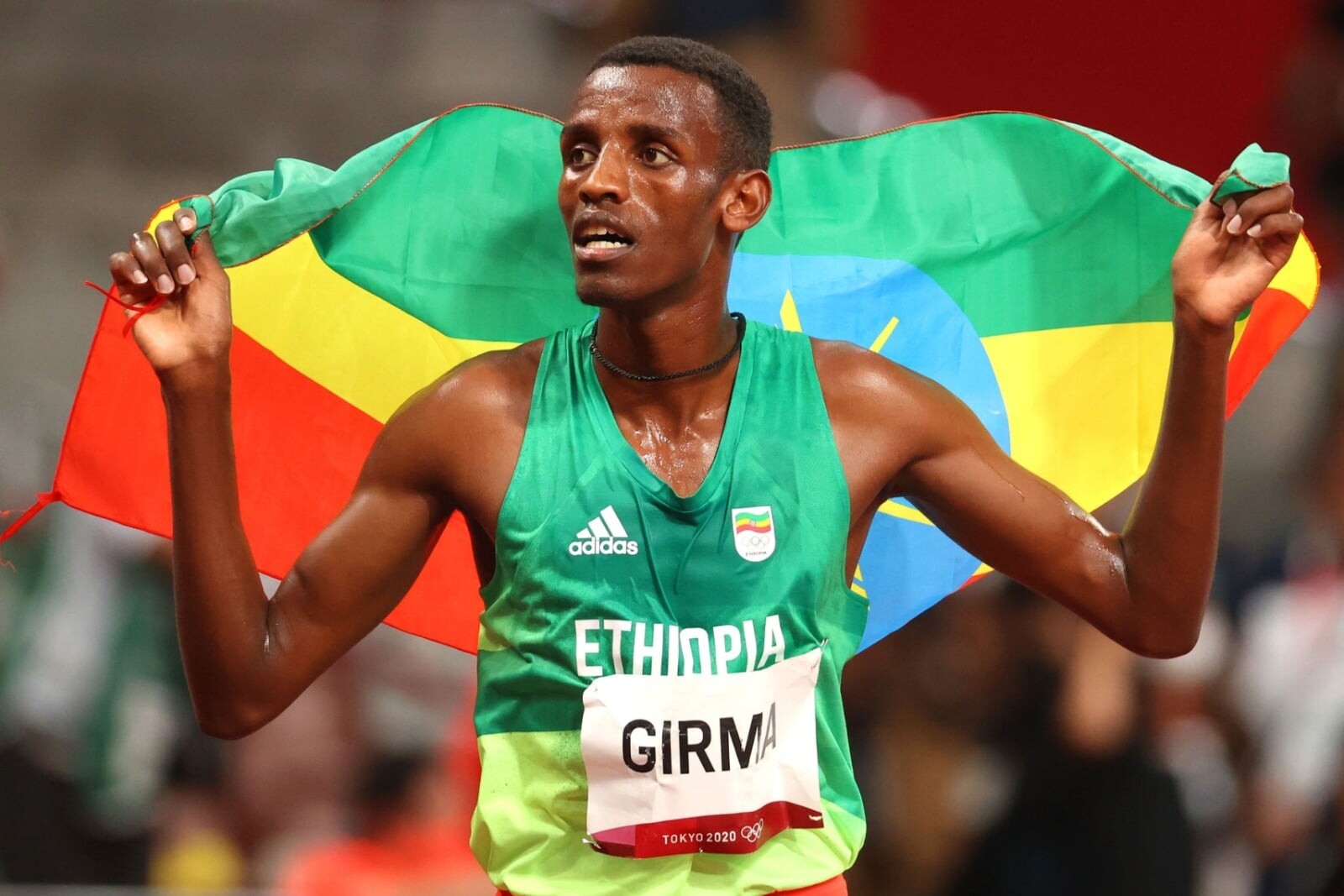
The 27-year-old athlete's standout performance at the Prefontaine Classic, where she shattered the world record in the 5,000 meters with an astounding time of 14:00.21, means she will be challenging rival Kenya's Faith Kipyegon who will chase two gold medals after winning the 1500m and 5000m.
The women's team also boasts an impressive lineup in the 800 meters, featuring Tsige Duguma, Habitam Alemu, and Werknesh Mesele, with Nigist Getachew as the reserve.
In the 1,500 meters, Tsegay will be joined by Birke Haylom and Diribe Wolteji, with Hirut Meshesha on standby. Medina Eisa and Ejgayehu Taye will support Tsegay in the 5,000 meters, with Freweyni Hailu as reserve, while Fotyen Tesfay, Tsigie Gebreselama, and Aynadis Mebratu will compete in the 10,000 meters.
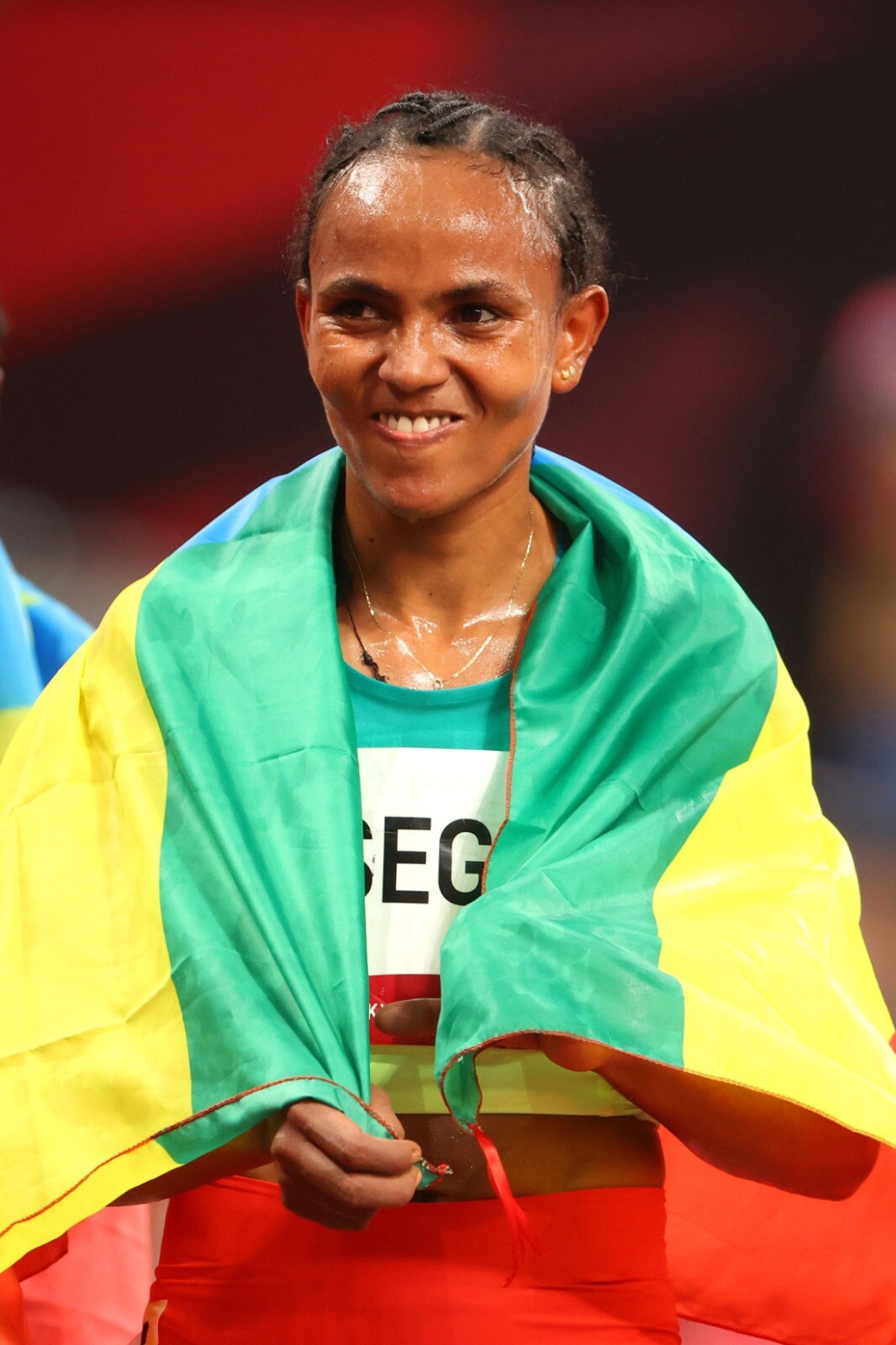
The 3,000 meters steeplechase will see Sembo Almayew and Lomi Muleta in action, and the marathon team includes Tigst Assefa, Amane Beriso, and Megertu Alemu, with Gotytom Gebreslase as reserve.
On the men's side, the team is equally impressive as Abdisa Fayisa, Samuel Tefera, and Ermias Girma will compete in the 1,500 meters.
The 5,000 meters team includes Hagos Gebrhiwet, Yomif Kejelcha, and Addisu Yihune, with Selemon Barega as reserve.
Kejelcha will also contest the 10,000 meters alongside Berihu Aregawi and Biniam Mehari, with Barega again as a reserve.
Lamecha Girma, alongside Samuel Firewu and Getnet Wale, will vie for victory in the men's 3,000 meters steeplechase, with Abrham Sime as reserve.
Ethiopia team to Paris
Women
800 meters: Tsige Duguma, Habitam Alemu, Werknesh Mesele, Nigist Getachew (Reserve)
1500 meters: Gudaf Tsegay, Birke Haylom, Diribe Wolteji, Hirut Meshesha (Reserve)
5000 meters: Gudaf Tsegay, Medina Eisa, Ejgayehu Taye, Freweyni Hailu (Reserve)
10,000 meters: Gudaf Tsegay, Fotyen Tesfay, Tsigie Gebreselama, Aynadis Mebratu (Reserve)
3000 meters Steeplechase: Sembo Almayew, Lomi Muleta
Marathon:Tigst Assefa, Amane Beriso, Megertu Alemu, Gotytom Gebreslase (Reserve)
Men
1500 meters: Abdisa Fayisa, Samuel Tefera, Ermias Girma, Teddese Lemi (Reserve)
5000 meters: Hagos Gebrhiwet, Yomif Kejelcha, Addisu Yihune, Selemon Barega (Reserve)
10,000 meters: Yomif Kejelcha, Berihu Aregawi, Selemon Barega, Biniam Mehari (Reserve)
Men's 3000 meters steeplechase: Lamecha Girma, Samuel Firewu, Getnet Wale, Abrham Sime (Reserve)
Marathon: Sisay Lemma, Deresa Geleta, Kenenisa Bekele, Tamirat Tola (Reserve)
20 km Race walk: Misgana Wakuma
by Festus Chuma
Login to leave a comment
Paris 2024 Olympic Games
For this historic event, the City of Light is thinking big! Visitors will be able to watch events at top sporting venues in Paris and the Paris region, as well as at emblematic monuments in the capital visited by several millions of tourists each year. The promise of exceptional moments to experience in an exceptional setting! A great way to...
more...

